
Ultra-processed foods warning for pregnant women
Scientists have warned pregnant women to avoid ultra processed foods as a new study has shown that they could increase exposure to harmful chemicals known as phthalates.
Phthalates can shed from the wrapping, packaging and even from plastic gloves worn by food handlers into food. Once consumed during pregnancy, the chemicals can get into the bloodstream, through the placenta and then into the foetal bloodstream.
Previous literature has shown that exposure to phthalates during pregnancy can increase the risk of low birth weight, preterm birth, autism and ADHD.
The researchers analysed data from 1,031 pregnant women and measured their levels of phthalate through urine samples. They found that ultra processed food comprised 10 to 60 per cent of the participants' diets. Each 10 per cent higher dietary proportion of ultra-processed food was associated with a 13 per cent higher concentration of phthalates.
Ultra-processed foods are made mostly from substances extracted from foods such as oils, sugar and starch. But they have been so changed from processing and the addition of chemicals and preservatives that they are hard to recognise from their original form.
Senior author Dr Sheela Sathyanarayana recommended that pregnant women avoid ultra-processed food as much as possible, and instead consume fruits, vegetables and lean meats. The findings were published in the journal Environmental International.

Study sheds light on sugary drink intake
Consuming sugary drinks is linked with a higher risk of cardiovascular disease. But, a new study has shown that the benefits of physical activity do not outweigh these risks. These were the findings of a study led by the Harvard T..H..Chan School of Public Health.
For the study, the scientists used two cohorts of 100,000 adults, followed for about 30 years. The data showed that those who consumed sugary beverages more than twice a week had a higher risk of cardiovascular disease, regardless of physical activity levels.
Lead author Lorena Pacheco said: "Our findings provide further support for public health recommendations and policies to limit people's intake of sugar-sweetened beverages, as well as to encourage people to meet and maintain adequate physical activity levels."
The study was published in The American Journal of Clinical Nutrition.

Say no to junk!
According to a new survey by ethical vitamin company Viridian Nutrition, two-thirds of consumers don't know how to spot ultra-processed foods (UPFs) or artificial ingredients in their supplements.
Of the 2,000 Britons who were surveyed, three out of 5 couldn't identify a UPF from its label, yet 76 per cent of people said they wanted to avoid UPFs.
Aimee Benbow, Head Nutritionist at Viridian, said: "Research clearly shows the negative impact of ultra-processed foods. A study of over 100,000 people in France linked UPFs with significantly higher rates of heart disease and strokes."
The survey also highlighted some confusion regarding supplements. When asked about key additives, 7 in 10 respondents didn't recognise certain ingredients found in supplements or know if they are good or bad.
In response to the findings, Viridian has created the Viridian Dejunk Your Life Report which gives people advice on dejunking not only their diets but also their entire lives. This includes: how to de-process your diet and identify ultra-processed foods, how to read the labels on foods and supplements and choose the purest options, how to simplify your digital life, how to exercise in a way that's proven to work and much more.
To find out more about No Junk and to download the Dejunk Your Life Report, visit www.viridian-nutrition.com/nojunk

A healthy diet early in life may protect against bowel disease
A healthy diet from an early age may protect against inflammatory bowel disease (IBD), a new study has shown.
Researchers from the University of Gothenburg analsysed data from more than 80,000 children. Parents were interviewed about their children's diets at 12-18 and 30-36 months of age. Diet quality was scored and classified as either low, medium or high. Higher quality equalled a higher intake of vegetables, fruit, dairy products and fish, and a lower intake of meat, sweets, snacks and sweet drinks.
The children's health was monitored from the age of 1 to 21. During this period, 307 of them were diagnosed with IBD. A high fish intake at the age of 1, compared to a low intake, was associated with a 54 per cent lower risk of IBD. A high vegetable was associated with an overall reduced IBD risk. A high intake of sugary beverages was linked to a 42 per cent increased risk of IBD.
"Although we cannot rule out other explanations, the new findings are consistent with the hypothesis that diet early in life, possibly mediated by changes in the gut microbiome, can affect the risk of developing IBD," said Annie Guo from the University of Gothenburg, the study's first author.
The findings were published in the journal Gut.

Ultra-processed foods come under fire
A campaign group has called on the government to tackle the issue of ultra-processed foods and how they affect children’s health.
In an open letter to Prime Minister Rishi Sunak, the group have outlined their concerns about the health impacts of ultra-processed foods and have urged the government to support schools to play a major role in tackling the issue.
The group consists of experts from the Soil Association, renowned chefs, restaurateurs, doctors, head teachers and youth activists.
Ultra-processed foods now make up around two-thirds of the average child’s diet in the UK and a growing bank of evidence has linked them to diabetes, cardiovascular disease and cancer.
A recent report published by the Soil Association recommends that schools adopt a “whole school approach” to food education and healthy school meals. The report highlights findings from First Steps Nutrition Trust, which warned that high levels of ultra-processed food consumption in infancy “undermines taste development”. The trust stated that this normalises snacking, sweet tastes, and soft textures, while displacing the minimally processed and unprocessed foods needed for optimal growth, health and development.
The Soil Association is recommending a target for reducing ultra-processed food consumption among children. The organisation is urging the government to incorporate good food in curriculums and to support schools in sourcing high quality, sustainable British produce.
Yoga practice may improve sleep and memory
A yogic practice that is similar to mindfulness might improve sleep, cognition, learning and memory, even in novices, a new pilot study has revealed. Lead author Karuna Datta, of the Armed Forces Medical College in India, oversaw the two-week study which involved a group of novices practising yoga nidra for 20 minutes a day.
Unlike more active forms of yoga, which focus on physical postures, breathing, and muscle control, yoga nidra guides people into a state of conscious relaxation while they are lying down. The researchers analysed the participants’ sleep patterns using polysomnography, which measures brain activity to determine how long each sleep stage lasts and how frequently each stage occurs. They also carried out a range of cognitive tests.
After two weeks of daily yoga nidra practice, the participants were found to have improved sleep patterns. They also demonstrated faster responses in all cognitive tests including tests of working memory, abstraction, fear and anger recognition, and spatial learning and memory tasks.
The authors commented: “Yoga nidra practice improves sleep and makes brain processing faster. Accuracy also increased, especially with learning and memory-related tasks.”
The findings were published in the open-access journal PLOS ONE.

Exercise linked to brain health
A new study has discovered a link between regular exercise and improved brain health. A team of researchers from the Pacific Brain Health Center in Santa Monica, California, looked at MRI brain scans from 10,125 people.
Their studies showed that those who regularly engaged in physical activities such as walking, running or sports, had larger brain volumes in key areas. This includes the grey matter, which helps with processing information, and the white matter, which connects different brain regions, as well as the hippocampus, which is important for memory.
Cyrus A. Raji, M.D., the lead researcher, said: “Our research supports earlier studies that show being physically active is good for your brain.
Exercise not only lowers the risk of dementia but also helps in maintaining brain size, which is crucial as we age.” The research was published in the Journal of Alzheimer’s Disease.

Did you know?
Iron deficiency is the most common form of nutritional deficiency in the world, according to the World Health Organization (WHO). Plant-based sources of iron include pulses and legumes such as beans and lentils, as well as dark, green, leafy vegetables like spinach.
and...
Colon hydrotherapy is a natural way of looking after your bowel health and may help with a New Year detox. But did you know that this gentle procedure has been practised for thousands of years? There are documented examples of the ancient Egyptians, Greeks and Romans all using forms of bowel cleansing for therapeutic purposes. In his work The Natural History, the Roman scholar Pliny the Elder describes enemas as “especially necessary for health”. Today, colon hydrotherapy is still being used to improve bowel tone, reduce constipation, improve energy levels and as an effective way to reset the body after any period of stress or indulgence. Want to find out more? Visit www.colonic-association.org

Happy anniversary Veganuary!
This year marks the tenth anniversary of Veganuary, the annual campaign that challenges participants to follow a vegan diet during the month of January. Since its launch in 2014, millions of people have signed up to take the 31-day challenge from almost every country in the world. The only countries where no citizens have yet taken part are Vatican City and North Korea. For every one million official participants who eat vegan for 31 days, 6.2 million litres of water are saved, 3.4 million animals are spared from a lifetime of suffering, and the CO2 equivalent of 1.2 million flights from London to Paris is saved.
Find out more at veganuary.com and get some vegan recipe inspiration here.

Exercise may enhance brain function in older adults
Playing a round of golf or going for a walk may improve brain function in older people, a new study has revealed.
The study involved 25 people aged 65 and above who participated in three different activities: an 18-hole golf round, a 6km Nordic walking session and a 6km regular walking session.
The researchers, from the University of Eastern Finland, the University of Edinburgh and ETH Zürich, used specific tests to measure the participants’ cognitive function. They also took blood samples to measure brain-derived neurotrophic factor (BDNF) and cathepsin B (CTSB) levels, which reflect the benefits of exercise in the brain.
The study showed that a single session of any of the three exercises improved lower cognitive functions, such as attention and processing speed, but no significant effects were seen on the levels of BDNF and CTSB. Nordic walking and regular walking were associated with enhanced cognitive functions such as task-switching ability.
Julia Kettinen, the first author of the article, said: "These findings underscore the value of age-appropriate aerobic exercise, such as golf, Nordic walking and regular walking, in maintaining and enhancing cognitive function among older adults." The findings were published in BMJ Open Sport & Exercise Medicine.

Lack of social connection linked to a higher risk of death
A lack of social connection may contribute to a higher risk of death, new research has shown.
Previous research has shown that insufficient levels of different types of social connection, like feeling lonely or not seeing friends and family often, are associated with the risk of premature death. But this new study, which was led by the University of Glasgow, found that lacking multiple forms of social connection further increased the risk of dying prematurely.
The research, which was published in BMC Medicine, focused on 458,146 people with an average age of 57. The findings showed that those who lived alone and who also lacked other markers of social connection (such as having infrequent contact with friends and family or not participating in regular group activities), may be at a particularly high risk of dying.
Dr Hamish Foster, Clinical Research Fellow at the University of Glasgow’s School of Health and Wellbeing, said: "Our study looks at several dimensions of social connection and found that combining different dimensions could affect the risk of premature death more than previously realised. This means that, when tackling problems like loneliness and social isolation, we need to assess these different dimensions both separately and in combination if we are going to identify and support those who are most isolated in society."

Did you know?
According to the climate action NGO, WRAP, households across the UK throw away 300,000 tonnes of meat and fish a year, costing £3.2 billion. Potatoes, cooked leftovers (homemade/pre-prepared meals), and bread top the UK’s wasted food table.
Prenatal vitamin D may reduce risk of asthma in children
Vitamin D supplementation during pregnancy may reduce rates of asthma and wheezing in children compared to a standard prenatal multivitamin, a new review has demonstrated.
The review was carried out by researchers from Brigham and Women’s Hospital and was published in the Journal of Allergy and Clinical Immunology.
Vitamin D is a nutrient from sunlight exposure, diet, or supplements. It is commonly considered essential to bone health but also has a role in autoimmune and other illnesses. The review links vitamin D deficiency to childhood asthma and wheezing, a major cause of illness in young children. About 40 per cent of children report daily wheezing at age three. By age 6, 20 per cent are diagnosed with asthma.
"Vitamin D deficiency is very common, especially in pregnant women who are not taking supplements," said study first author Scott T Weiss. "Based on our findings, we would recommend that all pregnant women consider a daily intake of at least 4,400 IU vitamin D3 throughout their pregnancy, starting at the time of conception."

Cutting out salt may lower blood pressure
According to a new study, almost everyone can reduce their blood pressure by reducing their sodium intake.
The study was carried out by researchers from Northwestern Medicine, Vanderbilt University Medical Center, and the University of Alabama at Birmingham.
"In the study, middle-aged to elderly participants reduced their salt intake by about one teaspoon a day compared with their usual diet," explained Deepak Gupta, MD, associate professor of medicine at Vanderbilt University Medical Center and co-principal investigator. "The result was a decline in systolic blood pressure by about six millimeters of mercury (mm Hg), which is comparable to the effect produced by a commonly utilised first-line medication for high blood pressure."
"We found that 70 to 75 per cent of all people, regardless of whether they are already on blood pressure medications or not, are likely to see a reduction in their blood pressure if they lower the sodium in their diet," added co-principal investigator Norrina Allen, PhD.
The findings were published in the journal JAMA.

Research highlights the importance of fibre
New research from the University of Minnesota has highlighted the importance of including fibre in our diets.
The researchers discovered that each plant source of insoluble fibre contains unique bioactives – compounds that have been linked to lower incidences of cardiovascular disease, cancer and type 2 diabetes – offering potential health benefits beyond those of the fibre itself.
The findings revealed that a variety of plant foods, including fruits, vegetables, legumes, nuts, seeds and whole grains contain insoluble dietary fibre, and each source contains unique bioactives that support health in different ways. Desirable bioactives like quercetin, resveratrol, catechins, anthocyanins, lutein, lycopene and beta-carotene were found in a variety of plant foods that
also contain insoluble dietary fibre.
The researchers also found that plant sources with bioactives and insoluble dietary fibre could be used to fortify processed foods to increase their nutritional value. Food production by-products such as peel, hulls, pulp or pomace are generally high in fibre and bioactives and therefore offer unique nutritional value from sustainable sources.
Lead author Madeline Timm commented: "Continued research and broad inclusion of bioactives in foods and supplements can have a real impact on human health."
The study was published in the journal Nutrients.

Variations in the gut microbiome could predict bowel cancer risk
Researchers have identified a potential link between gut bacteria and the onset of bowel polyps and bowel cancer.
The large-scale study, involving 8,208 participants in the Netherlands, investigated all recorded cases of colonic biopsies in the last five decades and identified significant variations in the gut microbiomes of people who developed pre-cancerous polyps in the bowel. Bacterial species from the family of Lachnospiraceae and the genera Roseburia and Eubacterium were linked with the future development of polyps.
Bowel cancer is a significant health concern across Europe, ranking as the second most prevalent cancer and the second leading cause of cancer-related death. It typically develops from pre-cancerous polyps within the gut, making the removal of these polyps an effective strategy for preventing bowel cancer.
The lead author of the study, Dr Gacesa from the University Medical Center in Groningen, said: "Our findings suggest that the microbiome could act as a valuable tool to improve existing tests, advancing early detection methods for pre-cancerous lesions and colorectal cancer." The findings were presented at the gastroenterology congress, UEG Week 2023.

Exposure to pollution in childhood increases risk of an early death
Individuals who are exposed to significant air pollution during childhood are more likely to die early than those who grow up in areas with better air quality, a new study has revealed.
The study, led by the University of Edinburgh, involved nearly 3,000 people born in Scotland in 1936. The findings show that people who were exposed to high levels of air pollution at the age of three were more likely to die between the ages of 65 and 86 than those subjected to low levels. Exposure to high levels of air pollution also increased their chances of dying from cancer, especially from lung cancer, in women.
Lead author Dr Gerg. Baranyi, of the University of Edinburgh’s School of GeoSciences, said: "It is striking to see that children growing up in polluted areas can have consequences that persist throughout their entire life. These findings suggest that the effects of air pollution on our health can endure for decades, even after significant efforts are made to reduce pollution levels."
The research was published in the journal Environmental Research.

Study shows effectiveness of treating obesity in children
Scientists have discovered the effectiveness of early treatment of obesity in children through a new study.
The researchers, from the Karolinska Institutet in Sweden, followed over 170 young children who were diagnosed with obesity. The children and their parents were randomly assigned to one of three treatment conditions. The first was a standard treatment group, which involved meetings focusing on diet and exercise with a doctor, paediatrician and/or dietician. The other two groups were a parental support group and a parental support group with follow-up telephone support. These did not involve the children and focused on how the parents could promote healthy lifestyles in a positive way.
Principal investigator Paulina Nowicka said: "The children in all three groups improved their weight status and saw a reduction in their degree of obesity. The children whose parents received parental support had the best results, especially so those who also received follow-up phone calls. We also found that more children in this third group showed a clinically relevant improvement of their weight status associated with better metabolic health, by which I mean better levels of blood lipids and glucose." She added that while obesity is difficult to treat, the study shows that intensive treatment is safe and efficacious for pre-school children. The findings were reported in the International Journal of Obesity.

Study finds genetic link to vegetarianism
Whether or not a person can adhere to a strict vegetarian diet is determined by their genes, a new study has revealed. The results could prove useful in terms of dietary recommendations and the manufacture of meat substitutes.
Scientists from Northwestern University Feinberg School of Medicine compared data from 5,324 strict vegetarians (consuming no fish, poultry or red meat) to 329,455 controls.
The researchers identified three genes that are significantly associated with vegetarianism and another 31 genes that are potentially associated. Several of these genes, including two of the top three, are involved in lipid (fat) metabolism and/or brain function, the study found.
Corresponding study author Dr Nabeel Yaseen, professor emeritus of pathology, said: "While religious and moral considerations certainly play a major role in the motivation to adopt a vegetarian diet, our data suggest that the ability to adhere to such a diet is constrained by genetics. We hope that future studies will lead to a better understanding of the physiologic differences between vegetarians and non-vegetarians, thus enabling us to provide personalised dietary recommendations and to produce better meat substitutes."
The study was published in the journal PLOS ONE.

Dementia linked to poor metabolic health
Researchers have discovered that poor metabolic health can lead to an increased risk of developing dementia.
The study was published in Alzheimer’s & Dementia: The Journal of the Alzheimer’s Association.
Poor metabolic health was defined as having three or more of the following conditions: high waist circumference, high triglycerides, high blood pressure, high blood glucose, and low high-density lipoprotein (HDL) cholesterol, sometimes known as ‘good’ cholesterol. This cluster of conditions is commonly known as ‘metabolic syndrome’ and has been associated with an increased risk of developing heart disease, stroke and type 2 diabetes.
The researchers, from Oxford Population Health, analysed data from more than 176,000 participants. The health of each participant was tracked through their medical records over a span of 15 years. All were aged 60 or older and free of dementia at the start of the study.
Of the 176,249 study participants, 5,255 went on to develop dementia over a 15-year period. The researchers found that participants with metabolic syndrome had a 12 per cent increased risk of developing dementia compared with those who did not have the syndrome. Also, having more metabolic syndrome conditions was linked to a greater risk of developing dementia. For instance, having four or five conditions (of any combination) increased the risk of dementia by 19 per cent and 50 per cent, respectively.
Lead author, Danial Qureshi, said: “Our study findings suggest that early identification and management of metabolic syndrome could potentially reduce risk of developing dementia later in life.”

New research sheds light on the UK’s snacking habits
A quarter of people are undoing the benefits of healthy meals with unhealthy snacks, which increases the risk of strokes and cardiovascular disease, new research reveals.
The findings, published in the European Journal of Nutrition by researchers from the School of Life Course & Population Sciences and ZOE, details the snacking habits of 854 people from the ZOE PREDICT study.
A quarter (26 per cent) of the participants reported eating healthy main meals and poor-quality snacks. Poor-quality snacks, such as highly processed food and sugary treats, were associated with poorer health markers and left people feeling hungry. Unhealthy snacks were linked with higher BMI, higher visceral fat mass and higher postprandial – the period after eating a meal – triglycerides concentrations, all of which are associated with metabolic disease such as stroke, cardiovascular disease and obesity.
People who ate high-quality snacks like nuts and fresh fruits frequently were more likely to have a healthy weight compared to those who didn’t snack at all or those who snack on unhealthy foods. Analysis also showed good quality snacks can result in better metabolic health and decreased hunger.
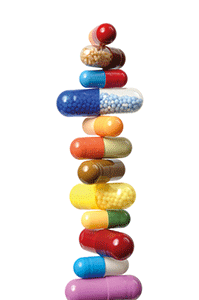
Study sheds light on vitamin balance in the body
Scientists have discovered that the body’s levels of vitamins are controlled by the brain rather than other organs. These findings could have implications for the diagnosis and treatment of vitamin-related diseases such as anaemia, infertility and blindness.
Researchers from the University of Aberdeen looked at vitamin A and how the brain reacts to it. Vitamin A is essential for life but until now it was not known how it is maintained in the body. Their research revealed that the region of the brain known as the hypothalamus may be responsible for controlling vitamin A levels, and that there may be top-down control of vitamin A function around the body.
Published in iScience, this is the first time that the hypothalamus, which regulates many body systems including temperature, appetite and thirst has been implicated in the control of vitamins in the body.
Peter Ikhianosimhe Imoesi, joint author of the study, said: “Our results suggest that vitamin A imbalance may not be simply due to irregular intake but that an abnormality in hypothalamic function due to disease or inflammation may lead to inadequate supply of vitamin A to the body. Diseases that affect the hypothalamus may have some of their symptoms due to disordered vitamin A levels in the body. Measurement of vitamin A levels in the blood may provide a guide to whether the hypothalamus is functioning normally.”

The ketogenic diet may help women with PCOS
The ketogenic diet, which is high in fat and low in carbohydrates, may help women with polycystic ovary syndrome (PCOS), according to new research.
PCOS affects 7 to 10 per cent of women of childbearing age. It can cause infertility and raises the risk of developing diabetes, obesity and other metabolic health problems. Women with PCOS have at least two of these signs: elevated levels of testosterone and other androgen hormones associated with male reproduction, irregular periods, and large ovaries with many small follicles.
Researchers from the Ministry of Health in Kuala Lumpur, Malaysia, conducted a meta-analysis of clinical trials in women with PCOS on the ketogenic diet and examined the diet’s effects on their reproductive hormones (follicle stimulating hormone, testosterone and progesterone) and weight change.
They found women with PCOS who were on the keto diet for at least 45 days saw significant weight loss and an improvement in their reproductive hormone levels. Their follicle-stimulating hormone ratio was lower, which means they may have had a better chance of ovulating. The women also had lower testosterone levels, which could help with excess hair growth and other symptoms of excess male sex hormones. The findings were published in the Journal of the Endocrine Society.

Multivitamins could help to slow memory decline
Taking a daily multivitamin could help to slow down age-related memory decline, according to the results of a new study.
More than 3,500 adults over the age of 60 were randomly assigned to take a daily multivitamin supplement or placebo for three years. At the end of each year, the participants performed a series of assessments designed to test memory function of the hippocampus, an area of the brain that is affected by normal ageing. By the end of the first year, memory improved for people taking a daily multivitamin, compared with those taking a placebo.
The researchers, from Columbia University and Brigham and Women’s Hospital/Harvard, estimate the improvement, which was sustained over the three-year study period, was equivalent to about three years of age-related memory decline. The effect was more pronounced in participants with underlying cardiovascular disease.
“Cognitive ageing is a top health concern for older adults, and this study suggests that there may be a simple, inexpensive way to help older adults slow down memory decline,” said study leader Adam M. Brickman, PhD, professor of neuropsychology at Columbia University Vagelos College of Physicians and Surgeons. The study was published in the American Journal of Clinical Nutrition.

Did you know?
Kiwi fruits are packed with vitamins and nutrients. In fact, one piece of fruit contains 100 per cent of your daily vitamin C needs. That’s a great boost of energy for the start of the day!
Source: Zespri SunGold Kiwifruit (@zespri_kiwi_UK)

Organic September celebrates 15th anniversary
This year marks the 15th anniversary of Organic September, the month-long campaign dedicated to raising awareness of the benefits of organic food and products. This year’s campaign message is “organic is climate action”. It will highlight how choosing organic can help to support a more sustainable future in the face of the climate and nature crisis.
Soil Association Certification Senior Marketing Manager Niamh Noone said: “By choosing organic you have a chance to help change our food system for the better! Over 300 independent quality food retailers and the supermarkets will be participating with promotions, in store tastings and lots of events planned.” Why not support the campaign by making one small swap to organic next time you shop?

Fewer meals may help to prevent type 2 diabetes
New research from the University of Georgia has found that a form of fasting may reduce the chances of developing type 2 diabetes and obesity. Time-restricted eating involves having fewer but regular meals, cutting out late-night snacks and not eating for 12 to 14 hours (often overnight). After a comprehensive review of published, peer-reviewed studies, the researchers found a connection between number of meals and obesity and type 2 diabetes.
“What we’ve been taught for many decades is that we should eat three meals a day plus snacking in between,” said Krzysztof Czaja, an associate professor of biomedical sciences in UGA’s College of Veterinary Medicine. “Unfortunately, this appears to be one of the causes of obesity.”
The three meals and snacks style of eating prevents insulin levels from going down during the day and can overload the body’s insulin receptors. This leads to insulin resistance and often type 2 diabetes. The researchers found that time-restricted eating allows the body to relax and lower insulin and glucose levels, which in turn can improve insulin resistance, brain health and glycaemic control. The findings were published in Nutrients.

Did you know?
According to environmental organisation City to Sea (www.citytosea.org.uk), every year, the plastics industry produces more than 450 million tonnes of plastic and half of this is single-use.
Less than 10 per cent of the plastic ever created has been recycled.
New study examines impact of diet and gut health on dementia risk
Scientists at the University of East Anglia and the Quadram Institute are launching a new study to investigate how our genes, diet and microbiome influence the risk of dementia. Recent research has linked gut health to Alzheimer’s disease. And dietary compounds found in foods including fruits and vegetables, tea and dark chocolate, have been found to reduce Alzheimer’s risk.
Now, the team want to better understand how these compounds, called polyphenols, influence the microbiome and Alzheimer’s risk. They will also look at the role that genetics play. And they are looking for more than 150 people to take part in the study.
Participants will be asked to provide a saliva sample to determine what type of the APOE gene they carry and then faecal samples to create a sophisticated model of the gut.
This will then be used to understand how their microbes break down polyphenols, how diet influences the composition of the microbiome and how the products made when the microbes breakdown polyphenols may influence the risk of developing Alzheimer’s.
To find out more visit quadram.ac.uk/diamond-study or email DIAMOND.study@uea.ac.uk

Study highlights links between nutrition and healthy ageing
A new study from the University of Illinois has shed light on how nutrition contributes
to health, ageing and disease.
Researchers from the University of Illinois collected data from 111 healthy older adults using MRI scans, blood-based biomarkers of 52 dietary nutrients and cognitive performance during tests of memory and intelligence.
Reported in the Journal of Nutrition, the study found that blood markers of two saturated fatty acids, along with certain omega-6, -7 and -9 fatty acids, correlated with better scores on tests of memory and with larger structures in the frontal, temporal, parietal and insular cortices of the brain.
While the study only reveals associations between these factors and does not prove that dietary habits directly promote brain health, it adds to the evidence that nutrition is a key player in healthy ageing, the researchers said.

New campaign promotes the power of plants
A campaign is launching in June to encourage runners to adopt a wholefood plant-based diet as part of their training. The campaign is called Running On Plants and is the brainchild of Tom Pickering, a lifelong runner and documentary filmmaker. To take part, sign up at www.runningonplants.org, log a 5K run at the start of the month as a benchmark, then follow the full training plan along with nutritional tips and recipes. After a month of completely free support and resources, log a second 5K and celebrate your new improved time!
The venture is being supported by Plant-Based Health Professionals UK, an education resource on plant-based nutrition (plantbasedhealthprofessionals.com). Dr Shireen Kassam, its founder, says: “There is now ample scientific evidence that not only is a plant-based diet good for your health, it can also support you to thrive and achieve optimal athletic performance. This way of eating has the co-benefits of reducing your carbon footprint and being kinder to our fellow animals.”

A pawsitive new wellbeing programme!
A unique wellbeing programme involving furry four-legged friends is being rolled out at the University of Edinburgh to help students cope with anxiety and stress. Paws on Campus will combine clinical psychology with veterinary science, and aims to support students through structured activity sessions involving therapy dogs. Sessions will help students reflect on their own challenges and recognise the connections between their wellbeing and an animal’s welfare needs.

Group exercise helps prevent falls in older women
Exercise and group training helped to reduce recurrent falls and fall-related injuries among older women, a new study from the University of Eastern Finland has shown.
The trial involved 914 women with an average age of 76.5 who were randomised into two groups. One was a control group, whereas the other received a year’s free admission to the city’s recreational sports facilities, including supervised weekly gym and tai chi sessions during the first six months.
The women were followed up for two years, during which time 1,380 falls were recorded and about 60 per cent of the women in both groups fell at least once. In the exercise group, there were 14.3 per cent fewer falls overall. The number of falls causing significant pain was 41 per cent lower, and the number of falls leading to a fracture diagnosis was 38 per cent lower than in the control group.
The researchers concluded that light- or moderate-intensity group training with free admission to sports facilities can prevent falls and reduce fall-related injuries among older women in an urban environment.
The findings were published in Age and Aging.

Heavy drinking linked to muscle loss and frailty, new study finds
Heavy drinking could lead to an increased risk of muscle loss and frailty in later life, new research has revealed.
Researchers from the University of East Anglia analysed data from nearly 200,000 people in the UK aged between 37 and 73. They compared people’s alcohol consumption with how much muscle they had, according to their body size. The researchers also took into account factors such as protein consumption and physical activity.
The findings showed that people with the lowest amount of muscle were drinking 10 units or more a day – about a bottle of wine. Most of these people were aged in their 50s and 60s.
Prof Ailsa Welch, from UEA’s Norwich Medical School, said: “This study shows that alcohol may have harmful effects on muscle mass at higher levels of consumption. We know that losing muscle as we age leads to problems with weakness and frailty, so this suggests another reason to avoid drinking high amounts of alcohol routinely in middle and early older age.” The findings were published in the journal Calcified Tissue International.

Fasting diet could help to lower diabetes risk
A fasting diet which focuses on eating early in the day could help to lower the risk of developing type 2 diabetes, new research has found.
Researchers from the University of Adelaide and the South Australian Health and Medical Research Institute (SAHMRI) compared two different diets: a time restricted, intermittent fasting diet and a reduced calorie diet to see which one was more beneficial for people who were prone to developing type 2 diabetes. The study took place over an 18-month period and involved over 200 participants. It was published in the scientific journal, Nature Medicine.
“Following a time restricted, intermittent fasting diet could help lower the chances of developing type 2 diabetes,” said senior author Professor Leonie Heilbron. “People who fasted for three days during the week, only eating between 8am and 12pm on those days, showed a greater tolerance to glucose after six months than those on a daily, low-calorie diet. Participants who followed the intermittent fasting diet were more sensitive to insulin and also experienced a greater reduction in blood lipids than those on the low-calorie diet.”
The researchers stated that further research is needed to investigate if the same benefits are experienced with a slightly longer eating window, which could make the diet more sustainable in the long term.

Our editor completes the London marathon
Your Healthy Living editor Liz Parry took part in the London marathon on 23rd April, running with a charity place for the Alzheimer's Society. Liz, whose father-in-law has dementia, raised £2,500 for the charity and completed the marathon in 5 hours 15 minutes.
She said: "I was hoping to get under 5 hours, but I struggled quite a lot towards the end. The support from the crowds was amazing and got me through it though! It's been my dream to take part in the London marathon for many years, and I'm so glad to have run for a charity that means a lot to me."
The team of runners who ran for the Alzheimer's Society raised a combined total of £1 million. Liz is now having a well-deserved rest before she starts training for a 50km ultramarathon this summer.

Study highlights benefits of fermented foods
A team of researchers in Ireland are working on a study to determine which fermented foods have the biggest impact on brain health. Ramya Balasubramanian and her team at University College Cork have analysed data from over 200 foods, looking for a variety of metabolites that are known to support brain health.
The study is still in its initial stages, but researchers are already surprised by preliminary results. Ms Balasubramanian explains: “I expected only a few fermented foods would show up, but out of 200 fermented foods, almost all of them showed the ability to exert some sort of potential to improve gut and brain health.”
She added: “Fermented sugar-based products and fermented vegetable-based products are like winning the lottery when it comes to gut and brain health. For all that we see on sugar-based products being demonised, fermented sugar takes the raw sugar substrate, and it converts it into a plethora of metabolites that can have a beneficial effect on the host.”
Ms Balasubramanian hopes that her findings will encourage more people to include fermented foods in their diet as a natural way of supporting their mental health and general wellbeing.

Lack of activity linked to enlarged hearts in adolescents
A new study has found that a sedentary lifestyle could lead to enlargement of the heart in adolescents.
An enlarged heart can indicate decreased heart function and may lead to an increased risk of heart failure, myocardial infarction, stroke and premature cardiovascular death.
Researchers from the University of Bristol, the University of Exeter and the University of Eastern Finland worked together on the study, which used data from 530 adolescents aged 17. The data included various measurements of heart health, function and structure, and the youngsters’ activity levels were also recorded.
On average, the adolescents were sedentary for around eight hours per day and spent about 49 minutes per day engaged in moderate-to-vigorous physical activity. The study found that both sedentary time and moderate-to-vigorous physical activity were associated with enlargement of the heart. However, the increase associated with sedentary time was three times higher than that associated with the moderate-to-vigorous physical activity. Light physical activity was not associated with heart enlargement but was associated with better cardiac function.
Researcher Andrew Agbaje said: “This novel evidence extends our knowledge of the adverse effects of sedentary time on cardiac health.” He added that although taking part in moderate-to-vigorous physical activity was found to slightly enlarge the heart, it is viewed as “an acceptable ‘negative side effect’ considering several other health benefits of moderate-to-vigorous exercise.” The researchers are now calling for steps to encourage adolescents to participate more in physical activities. The findings were published in the Scandinavian Journal of Medicine & Science in Sports.

Cost-of-living crisis is exacerbating obesity
The current cost-of-living crisis is exacerbating the obesity epidemic, claims a leading nutrition researcher from the University of Aberdeen.
In a research paper published in the journal Obesity, Professor Alexandra Johnstone calls for action to be taken to address the dietary inequalities in people living with obesity and food insecurity.
Professor Johnstone explained that “in the UK, healthier foods are three times more expensive per calorie than unhealthy foods and it has been shown that food sources of protein, fibre, vitamins and minerals cost more. As a result, the dietary choices of those on the lowest incomes are often limited to a low-price, high-energy combination, which, in the long term, can promote weight gain, especially when combined with a sedentary lifestyle.”
She continued: “For families on low income, the poorest fifth of the UK population need to spend 47 per cent of their disposable income to consume a healthy diet according to the Eatwell Guide, in contrast to 11 per cent needed by the richest fifth in the UK.”
With an estimated two-thirds of UK adults already overweight or obese, Professor Johnstone argues that it is time to recognise the true cost of this.
“Poor diet is the primary risk factor for cardiovascular diseases and type 2 diabetes,” she added.

Increased magnesium intake may reduce dementia risk
Increasing our intake of magnesium-rich foods could help to reduce the risk of dementia, new findings have revealed.
Scientists from the Australian National University (ANU) carried out the study, which involved more than 6,000 cognitively healthy participants in the UK aged from 40 to 73. The researchers found that people who consume more than 550mg of magnesium each day have a brain age that is approximately one year younger by the time they reach 55 compared with someone with a normal magnesium intake of about 350mg a day.
“Our study shows a 41 per cent increase in magnesium intake could lead to less age-related brain shrinkage, which is associated with better cognitive function and lower risk or delayed onset of dementia in later life,” said lead author and PhD researcher Khawlah Alateeq. “This research highlights the potential benefits of a diet high in magnesium and the role it plays in promoting good brain health.”
Ms Alateeq added: “We also found the neuroprotective effects of more dietary magnesium appears to benefit women more than men and more so in post-menopausal than pre-menopausal women, although this may be due to the anti-inflammatory effect of magnesium.” The research was published in the European Journal of Nutrition.

High fruit and veg intake could lower miscarriage risk
Researchers have discovered that eating plenty of fruit, vegetables, seafood, dairy, eggs and grains prior to conception and in early pregnancy may be associated with a reduced risk of miscarriage.
Researchers at the University of Birmingham analysed 20 studies which explored women’s eating habits in the months before and shortly after conceiving a baby to see whether these studies showed evidence of association with a lower or higher chance of miscarriage.
Writing in the journal Fertility and Sterility the research team concluded that there is evidence to suggest a diet rich in fruit, vegetables, seafood, dairy products, eggs and grain reduces miscarriage risk.
The research review found that, when compared to low consumption, high intake of fruit may be associated with a 61 per cent reduction in miscarriage risk. High vegetable intake may be associated with a 41 per cent reduction in miscarriage risk. For dairy products it is a 37 per cent reduction, 33 per cent for grains and 19 per cent for seafood and eggs.
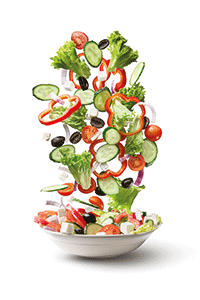
Mediterranean diet linked with decreased dementia risk
Following a Mediterranean diet could help to lower the risk of dementia, a new study has revealed.
Researchers from Newcastle University and the universities of Edinburgh, UEA and Exeter, analysed the eating habits of 60,298 individuals and scored them based on how closely their diet matched that of the Mediterranean diet. The participants were followed for a decade, during which time there were 882 cases of dementia. The authors then considered each person’s genetic risk for dementia by estimating their “polygenic risk”.
Their findings showed that the people who ate a Mediterranean-like diet had a 23 per cent lower risk of dementia than those who did not.
Dr Janice Ranson, joint lead author on the paper, said: “The findings from this large population-based study underscore the long-term brain health benefits of consuming a Mediterranean diet, which is rich in fruits, vegetables, whole grains, and healthy fats.
The protective effect of this diet against dementia was evident regardless of a person’s genetic risk, and so this is likely to be a beneficial lifestyle choice for people looking to make healthy dietary choices and reduce their risk of dementia.” The research was published in BMC Medicine.

Study shows how our brains can learn to love unhealthy foods
A new study has demonstrated how regular consumption of foods that are high in fat and sugar can lead to changes in the brain which encourage a preference for these foods. The study was carried out by a team from the Max Planck Institute for Metabolism Research in Cologne, in collaboration with Yale University.
The researchers gave one group of volunteers a small pudding containing a lot of fat and sugar per day for eight weeks in addition to their normal diet. Another group received a pudding that contained the same number of calories but less fat. The volunteers’ brain activity was measured before and during the eight weeks.
The brain’s response to high-fat and high-sugar foods was greatly increased in the group that ate the high-sugar and high-fat pudding after eight weeks. This particularly activated the dopaminergic system, the region in the brain responsible for motivation and reward. “Through these changes in the brain, we will unconsciously always prefer the foods that contain a lot of fat and sugar,” said Marc Tittgemeyer, lead author of the study.

Study shows link between bone health and brain health
Scientists in the Netherlands have found a link between low bone density and an increased risk of dementia.
Researchers from the Erasmus University Medical Center in Rotterdam carried out the study, which involved a group of 3,651 people with an average age of 72, who did not have dementia at the start of the study.
The participants were followed for an 11-year period, during which time the researchers carried out bone density and brain scans. Over this timescale, 688 people or 19 per cent developed dementia. Of the 1,211 people with the lowest total body bone density, 90 people developed dementia within 10 years, compared to 57 of the 1,211 people with the highest bone density. After adjusting for factors such as age, sex, education, other illnesses and medication use, and a family history of dementia, researchers found that within 10 years, people with the lowest total body bone density were 42 per cent more likely to develop dementia than people in the highest group.
Study author Mohammad Arfan Ikram, MD, PhD said: “It’s possible that bone loss may occur already in the earliest phases of dementia, years before any clinical symptoms manifest themselves. If that were the case, bone loss could be an indicator of risk for dementia and people with bone loss could be targeted for screening and improved care.”
The findings were published in the online issue of Neurology®, the medical journal of the American Academy of Neurology.

Exercise can affect the make-up of our microbiome
A new study from the University of Calgary has analysed how exercise can affect the composition of our gut microbiota.
The study assessed information on the type, time and intensity of exercise in relation to microbiomes in a large cohort of middle-aged adults. Information on body weight, diet and hand-grip strength were also collected.
Jane Shearer, PhD, a professor in the Faculty of Kinesiology and the Cumming School Medicine said: “Encouragingly, the study found that physical activity of moderate duration (greater than 150 minutes per week) increased both the richness and diversity of the gut microbiomes compared to study participants that exercised less.”
When exercise intensity was examined, results showed that how long a person exercised was more important than how hard they exercised during each workout in improving microbes in the gut. Reasons for this are not known and are a topic of future work in the laboratory. The study was published in The FASEB Journal.

Good sleep helps dieters stick to their goals
People who get regular, uninterrupted sleep are more able to stick to their goals while trying to lose weight, according to new research.
Researchers from the University of Pittsburgh found that people who had higher scores for sleep health during a 12-month weight loss programme were more likely to follow the caloric intake and exercise components of the programme compared to individuals who scored lower for sleep health. People with better sleep health also attended more of the programme’s group sessions. The weight-loss programme included 125 adults with an average age of 50 who met criteria for overweight or obesity without any medical conditions requiring medical supervision of their diet or physical activity. Their sleep habits were measured at the beginning of the programme, at six months and at 12 months.
“Focusing on obtaining good sleep — seven to nine hours at night with a regular wake time along with waking refreshed and being alert throughout the day — may be an important behaviour that helps people stick with their physical activity and dietary modification goals,” said lead study author Christopher E. Kline, Ph.D.

More steps linked to lower heart disease risk
A new study has found that walking an additional 500 steps, or about one-quarter of a mile, per day was associated with a 14 per cent lower risk of heart disease, stroke or heart failure.
Researchers from the University of Alabama at Birmingham analysed health data from 452 participants aged 70 and older who wore devices which measured their daily step count. The participants were analysed again after a 3.5-year follow-up period.
The analysis found that compared to adults who took less than 2,000 steps per day, those who took about 4,500 steps per day had a 77 per cent lower observed risk of experiencing a cardiovascular event. Only 3.5 per cent of participants who took around 4,500 steps per day had a cardiovascular event, compared to 11.5 per cent of those who took less than 2,000 steps per day, over the 3.5-year follow-up period.
The researchers have said that additional studies are needed to determine if meeting a higher daily count of steps prevents or delays cardiovascular disease, or if lower step counts may be an indicator of underlying disease.
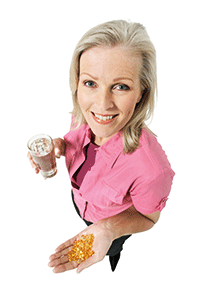
Taking vitamin D could help prevent dementia, study finds
Vitamin D supplements may help in the fight against dementia, a new study has revealed. The research was carried out by teams from the University of Calgary’s Hotchkiss Brain Institute in Canada and the University of Exeter in the UK. The study involved 12,388 participants of the US National Alzheimer’s Coordinating Center, who had a mean age of 71 and were dementia-free when they signed up. Of the group, 37 per cent (4,637) took vitamin D supplements.
In the study, published in Alzheimer’s & Dementia: Diagnosis, Assessment & Disease Monitoring, the team found that taking vitamin D was associated with living dementia-free for longer, and they also found 40 per cent fewer dementia diagnoses in the group who took supplements.
Across the entire sample, 2,696 participants progressed to dementia over ten years; amongst them, 2,017 (75 per cent had no exposure to vitamin D throughout all visits prior to dementia diagnosis, and 679 (25 per cent) had baseline exposure.
While vitamin D was effective in all groups, the team found that effects were significantly greater in females, compared to males. Similarly, effects were greater in people with normal cognition, compared to those who reported signs of mild cognitive impairment – changes to cognition which have been linked to a higher risk of dementia.
Previous research has found that low levels of vitamin D are linked to higher dementia risk. Vitamin D is involved in the clearance of amyloid in the brain, the accumulation of which is one of the hallmarks of Alzheimer’s disease. Studies have also found that vitamin D may provide help to protect the brain against build-up of tau, another protein involved in the development of dementia.

Report highlights importance of sustainability
Sustainability and ethics are more important than ever to today’s beauty and wellbeing shoppers, according to a new report from the Soil Association.
The Soil Association Certification’s Organic Beauty & Wellbeing Market Report 2023 revealed that sustainability information is three times more important to shoppers than product reviews or social proof. Furthermore, consumers are becoming savvier about “greenwashing”, with 79 per cent stating they have doubts about the trustworthiness of claims that brands make relating to sustainability or social impact.
Soil Association Commercial and Marketing Director Alex Cullen said: “Consumer appetite for sustainable and clean beauty solutions shows no sign of slowing down with the market nearly doubling in the last five years. The rapid market growth is an indication of the level of innovation in the sector, as the beauty industry continues to clean up its act, across harmful chemicals, microplastics and single use packaging. Organic beauty and wellbeing offers a certified and trusted solution for consumers to navigate this space, and will only further its position as a source of trends.”

Loneliness linked to unhealthy diets and lack of exercise
A new study has found links between feelings of loneliness and unhealthy diets coupled with a lack of exercise in college students.
The study was carried out by a team from the Nutrition and Food Studies Department of George Mason University in Virginia, USA. Their findings showed that sedentary behaviour (19.2 per cent) and low levels of activity (53.8 per cent) were more frequent in students reporting high loneliness than those reporting low loneliness. Furthermore, the students who reported more loneliness had higher fat diets than those who were less lonely.
Lead researcher Li Jiang said: “Our study supports a potential need for further research in understanding unhealthful dietary behaviour and physical activity which may be related to loneliness, an emotion that impacts many college students. Interventions to reduce loneliness may have a positive effect on health promotion in this population.”
The findings were published in the Journal of American College Health.

Research highlights women’s safety concerns
Research from a new women’s fitness campaign has highlighted the safety fears that prevent women from enjoying exercise. More than one in five (22 per cent) say they’re concerned about sexual harassment when doing sport and physical activity, a statistic that almost doubles (41 per cent) when outdoors in the dark. Three in 10 have experienced harassment first-hand while exercising, mostly on streets and in parks. Two-thirds (66 per cent) worry about other personal safety issues, such as being mugged. The findings were revealed by This Girl Can, Sport England’s award-winning campaign to help women get active.
The research also found that there is a wide range of practical and emotional barriers preventing women from getting active. These include lack of energy, motivation and time; fear of judgement and the rising cost of living. Following consultations and research, the campaign group has identified four action areas to be tackled. Activities for women must be Social (help women feel part of a community), Suitable (meet women’s needs), Self-Affirming (help women feel confident) and Safe (women must feel physically and emotionally safe when taking part).
“This Girl Can With You” will support organisations across the sport and physical activity sector to develop solutions in response to the four action areas. An associated website offers tools, tips and ideas for organisations to get started. Launched in 2015, to tackle the gender activity gap, This Girl Can empowers women and girls of all shapes, sizes and sporting abilities by showing them that there is no “right” way to get active. To find out more, visit www.thisgirlcanwithyou.com.

Time-restricted eating may help to manage chronic disease
Chronic diseases such as diabetes and heart disease could be managed through consuming your daily calories within a time period of 8 to 10 hours. This is a process known as time-restricted eating. These were the findings reported in a new study published in the Endocrine Society’s journal, Endocrine Reviews.
“Time-restricted eating is an easy-to-follow and effective dietary strategy that requires less mental math than counting calories,” said Satchidananda Panda, Ph.D., of the Salk Institute for Biological Studies in La Jolla, Calif. “Intermittent fasting can improve sleep and a person’s quality of life as well as reduce the risk of obesity, diabetes and heart disease.”
In the study, the researchers analysed the science behind time-restricted eating in relation to clinical trials and examined its potential health benefits. Recent studies have shown that genes, hormones and metabolism rise and fall at different times throughout the day. Bringing our eating habits in line with our internal body clocks can optimise health and reduce the risk or disease burden of chronic conditions like diabetes, heart disease and liver disease.
“Eating at random times breaks the synchrony of our internal programme and make us prone to diseases,” said Panda. “Intermittent fasting is a lifestyle that anyone can adopt. It can help eliminate health disparities and lets everyone live a healthy and fulfilling life.”
New online support for eczema sufferers
A new study by researchers at the University of Nottingham has found that appropriate online support can improve eczema in children and young people.
Researchers invited young people (aged 13 to 25 years) and parents or carers of small children to test a website that was specifically designed to support self-management of eczema. The site, which is now available for anyone to use, is free from commercial influences and provides information, such as how to use eczema treatments and how to avoid potential trigger factors, based on the latest research. Users can also watch short videos or print off resources to help when discussing eczema with healthcare professionals.
The results, published in the BMJ, show that the Eczema Care Online website not only improved people’s eczema within six months but it also led to sustained benefits over a whole year. The website was tested in two randomised controlled trials including over 650 people with eczema (340 parents or carers of children with eczema and 337 young people who were caring for their own eczema).
Via the website at www.EczemaCareOnline.org.uk

Light therapy found to help symptoms of MS
Researchers in Vienna have discovered that light therapy is a promising non-drug treatment option for Multiple Sclerosis (MS).
MS is almost always accompanied by fatigue, which is described by the vast majority of patients as the most distressing symptom.
The study involved 26 participants and was carried out by a team from the Department of Neurology at MedUni Vienna and AKH Vienna. Half of the group received a daylight lamp with a brightness of 10,000 lux, while the other half received an identical lamp that emitted a red light with an intensity of less than 300 lux.
While the red light used by the control group showed no effect, the researchers observed measurable successes in the other group after only 14 days. The participants who used the 10,000 lux daylight lamp for half an hour every day showed an improved physical and mental performance and displayed less daytime sleepiness compared to the other group.
Lead researcher Stefan Seidel said: “The findings from our study represent a promising non-drug therapeutic approach.” However, the results need to be confirmed in a larger-scale study. The results were published in the Multiple Sclerosis Journal – Experimental, Translational and Clinical.

The Mediterranean diet may improve fertility
New research shows that following a Mediterranean diet may help to overcome infertility.
Researchers from Monash University, the University of the Sunshine Coast and the University of South Australia found that the anti-inflammatory properties of the diet can improve couples’ chances of conception.
UniSA researcher Dr Evangeline Mantzioris said: “Research shows inflammation can affect fertility for both men and women, affecting sperm quality, menstrual cycles, and implantation. So, in this study we wanted to see how a diet that reduces inflammation – such as the Mediterranean diet – might improve fertility outcomes. Encouragingly, we found consistent evidence that by adhering to an anti-inflammatory diet – one that includes lots of polyunsaturated or ‘healthy’ fats, flavonoids (such as leafy green vegetables), and a limited amount of red and processed meat – we can improve fertility.”
The Mediterranean diet is primarily plant-based, and includes whole grains, extra virgin olive oil, fruits, vegetables, beans and legumes, nuts, herbs, and spices. Yoghurt, cheese, and lean protein sources such as fish, chicken, or eggs; red and processed meats are only eaten in small amounts.
In comparison, a western diet comprises excessive saturated fats, refined carbohydrates, and animal proteins, making it energy-dense and lacking dietary fibre, vitamins, and minerals. Typically, a western diet is associated with higher levels of inflammation.
Monash University researcher, Simon Alesi, said: “The Mediterranean diet is consistently ranked among the healthiest diets in the world. But knowing that it may also boost your chances of conceiving and having a baby is extremely promising. Of course, more research needs to be done, but at the very least, shifting to a Mediterranean diet will not only improve your overall health, but also your chances of conceiving.”

A third of long Covid patients experience loss of smell
Almost a third of long Covid patients experience persistent smell loss, with almost a fifth experiencing loss of taste, new research has revealed.
Researchers from the University of East Anglia analysed results from the UK Coronavirus Infection Survey and studied information from over 360,000 people in March 2022. A total of 10,431 participants identified as suffering from long Covid and were asked about 23 individual symptoms and the impact of the condition on their day-to-day activities.
Lead researcher Prof Carl Philpott said: “Long Covid is a complex condition that develops during or after having Covid, and it is classified as such when symptoms continue for more than 12 weeks. Symptoms include headache, myalgia, fatigue and loss of taste and smell. Parosmia can persist for months after initial infection, alongside brain fog and memory loss.”
Prof Philpott added: “We found that fatigue was the most common symptom, whilst ENT-related symptoms included a loss of smell and taste, vertigo, shortness of breath, wheezing and a sore throat. Almost a third of self-reported long Covid patients were suffering persistent smell loss, and almost a fifth were still experiencing loss of taste. This is really significant because we know that loss of smell and taste really impacts people’s lives. Long Covid is a growing problem in the UK and we need to focus resources on supporting people with loss of smell and taste after Covid infection.”
The findings were published in the journal International Forum of Allergy and Rhinology.

Antioxidant flavonols linked to slower memory decline
People who consume foods and drinks containing antioxidant flavonols may have a slower rate of memory decline, a new study has revealed.
Antioxidant flavonols are found in several fruits and vegetables, as well as tea and wine, and are a group of phytochemicals known for their beneficial effects on health. The study involved 961 people with an average age of 81 without dementia who were followed for an average of seven years. The participants filled out a questionnaire each year on how often they ate certain foods.
They also completed annual cognitive and memory tests and were asked about their level of education, how much time they spent doing physical activities and how much time they spent doing mentally engaging activities. The people were divided into five groups based on the amount of flavonols they consumed in their diet. The lowest group had an intake of about 5 mg per day and the highest group consumed an average of 15 mg per day. After adjusting for other factors that could affect the rate of memory decline, such as age, sex and smoking, the researchers found that the people who had the highest intake of flavonols experienced the slowest rate of cognitive decline. Study author Thomas M. Holland, MD, MS of Rush University Medical Center in Chicago noted this is probably due to the antioxidant and anti-inflammatory properties of flavonols.
Holland said: “It’s exciting that our study shows making specific diet choices may lead to a slower rate of cognitive decline. Something as simple as eating more fruits and vegetables and drinking more tea is an easy way for people to take an active role in maintaining their brain health.”
The findings were published in the online issue of Neurology®.

Brits are unaware of vitamin D recommendations
A new survey has revealed that more than two-thirds (68 per cent) of British adults are not aware of the Government’s recommendation to take daily vitamin D supplements between October and March – when the days are shorter, the nights are longer and exposure to sunlight is lessened. This number is increased to 78 per cent in young adults aged between 18 and 24. The survey was carried out by YouGov for the British Nutrition Foundation. The survey also revealed that 17 per cent of respondents are buying dietary supplements less often due to the cost-of-living crisis.
Vitamin D is an essential nutrient that helps the body absorb calcium to build and maintain healthy bones and muscles, and it also helps the
immune system to work as it should. In the UK we get most of our vitamin D from the sun, as there are relatively few rich food sources, yet during the autumn and winter months the sun is too low in the sky to produce the UV wavelengths required for our bodies to make vitamin D.
Sara Stanner, the British Nutrition Foundation’s Science Director, said, “There is still much to be done to raise awareness of the recommendation that we all consider taking a 10mcg supplement during the autumn and winter months, as uptake of this advice is still too low.”

Vitamin K linked to lower bone fracture risk
Australian researchers have discovered a link between vitamin K intake and reduced risk of bone fractures later in life.
The findings were the result of a study carried out by researchers from the University of Western Australia and Edith Cowan University’s Nutrition and Health Innovation Research Institute.
The study examined the relationship between fracture-related hospitalisations and vitamin K1 intake in almost 1,400 older Australian women over a period of 14.5 years. The researchers discovered that women who consumed more than 100 micrograms of vitamin K1 — equivalent to about 125g of dark leafy vegetables, or one to two servings of vegetables — were 31 per cent less likely to have any fracture compared to participants who consumed less than 60 micrograms. Food sources of vitamin K1 include vegetables such as kale, spinach, broccoli and green beans as well as fruits such as prunes, kiwi fruit and avocado.
There were even more positive results regarding hip fractures, with those who ate the most vitamin K1 cutting their risk of hospitalisation almost in half (49 per cent). Study lead Dr Marc Sim said the results were further evidence of the benefits of vitamin K1, which has also been shown to enhance cardiovascular health.
He said: “Our results are independent of many established factors for fracture rates, including body mass index, calcium intake, vitamin D status and prevalent disease. Basic studies of vitamin K1 have identified a critical role in the carboxylation of the vitamin K1-dependant bone proteins such as osteocalcin, which is believed to improve bone toughness.” The findings were published in Food & Function.

Aerobic activity can reduce risk of metastatic cancer
A new study at Tel Aviv University (TAU) found that aerobic exercise can reduce the risk of metastatic cancer by 72 per cent. According to the researchers, high intensity aerobic exercise increases the glucose (sugar) consumption of internal organs, thereby reducing the availability of energy to the tumour. The study was led by two researchers from TAU, Prof Carmit Levy and Dr Yftach Gepner.
Prof Levy and Dr Gepner said: “Studies have demonstrated that physical exercise reduces the risk for some types of cancer by up to 35 per cent. This positive effect is similar to the impact of exercise on other conditions, such as heart disease and diabetes. In this study we added new insight, showing that high-intensity aerobic exercise, which derives its energy from sugar, can reduce the risk of metastatic cancer by as much as 72 per cent.”
Dr Gepner added: “Our results indicate that unlike fat-burning exercise, which is relatively moderate, it is a high-intensity aerobic activity that helps in cancer prevention. If the optimal intensity range for burning fat is 65–70 per cent of the maximum pulse rate, sugar burning requires 80–85 per cent – even if only for brief intervals. For example: a one-minute sprint followed by walking, then another sprint. It must be emphasised that physical exercise, with its unique metabolic and physiological effects, exhibits a higher level of cancer prevention than any medication or medical intervention to date.”
The paper was published in the journal Cancer Research.
New symptom of Long Covid identified
Reduced exercise capacity is a new symptom of Long Covid, according to a new study by researchers from UC San Francisco and Zuckerberg San Francisco General Hospital.
The researchers analysed nine studies in which the exercise performances of 359 participants who had recovered from the virus were compared to those of 464 participants who had symptoms consistent with Long Covid. The findings suggested that the Long Covid group experienced reduced oxygen extraction in the muscles, irregular breathing patterns, and a lesser ability to increase heart rate during exercise to match cardiac output. The findings were published in JAMA Network.

High salt diet found to increase stress
Scientists have discovered that a high-salt diet increases the levels of stress hormones by 75 per cent. The study, which was carried out by experts at the University of Edinburgh, was published in Cardiovascular Research.
Professor Matthew Bailey, Professor of Renal Physiology at the University of Edinburgh’s Centre for Cardiovascular Science, said: “We are what we eat and understanding how high-salt food changes our mental health is an important step to improving wellbeing. We know that eating too much salt damages our heart, blood vessels and kidneys. This study now tells us that high salt in our food also changes the way our brain handles stress.”
Experts hope the findings will encourage a review of public health policy around salt consumption, with a view to manufacturers reducing the amount of salt in processed food.
The recommended salt intake for adults is less than 6g a day but most people regularly eat about 9g. This can contribute to higher blood pressure, which increases the risks of heart attacks, strokes and vascular dementia.

Moderate to heavy drinking linked to stroke risk
Young people who drink moderate to heavy amounts of alcohol may be more likely to have a stroke than people who drink low amounts or no alcohol. These were the findings of a study conducted at Seoul National University in the Republic of Korea.
The study looked at records from a Korean national health database for over 1.5 million people in their twenties and thirties. They were asked about their alcohol consumption and were followed for an average of six years. A total of 3,153 had a stroke during the study period. People who were moderate to heavy drinkers for two or more years of the study were about 20 per cent more likely to have a stroke than people who were light drinkers or did not drink alcohol.
People who drank 105g of alcohol or more per week were considered moderate or heavy drinkers. This is equal to 15g per day, or slightly more than one drink per day. Light drinkers were those who drank less than 105g per week, or less than 15g per day. As the number of years of moderate to heavy drinking increased, so did the risk of stroke. People with two years of moderate to heavy drinking had a 19 per cent increased risk, people with three years had a 22 per cent increased risk and people with four years had a 23 per cent increased risk. The study was published in the online issue of Neurology®, the medical journal of the American Academy of Neurology.

Educational edible garden to be created for youngsters
An educational garden which will teach children about healthy eating and foraging is coming to the RHS Chelsea Flower Show next year.
The project is a collaboration between garden designer Harry Holding and the charity School Food Matters, which teaches children about food and campaigns for healthy, sustainable school meals.
Designed as an immersive, forageable and naturalistic landscape, the garden will entice children to explore, inspiring them with a variety of edible, climate-adapted plants along the way. The aim is to stimulate their senses and encourage them to learn about food in nature, with over 80 per cent of the planting being edible. The paths lead to a central area featuring low walls that will be covered in quotes from children – a place to air how much nature means to them.
At the end of the show, which takes place from 23 to 27 May, the School Food Matters Garden will be repurposed to create two pocket gardens. One will be located at a school in London and the other will be established at a school in the north of England. It is hoped that children will be able to nurture and enjoy them for years to come.

High cholesterol on the increase in young people
An increasing number of younger people are being diagnosed with high cholesterol, according to research from the British
Heart Foundation.
The foundation revealed that three in 10 (29 per cent) of 25 to 34-year-olds and nearly half (45 per cent) of 35 to 44-year-olds already have elevated cholesterol levels (above 5mmo/L).
Diet is one of the most influential factors in addressing cholesterol levels, particularly saturated fat. Leading nutritionist Anita Bean is working to educate people about better dietary choices to help manage cholesterol levels and look after their heart health.
She said: 'Replacing some or all of the animal proteins that are high in saturated fat with healthful plant and other alternative proteins will help reduce your saturated fat intake and contribute to maintaining a normal cholesterol level as part of a varied, balanced diet and lifestyle. Healthy plant and other alternative sources of protein include soya products such as tofu, edamame beans and soya plant-based drinks and alternatives to yogurt, mycoprotein, pulses (beans, lentils and peas), nuts and seeds.'
Anita also recommends including more heart-healthy fats in your diet through eating nuts, seeds, vegetable spreads and oils and many other plant-based foods. Other tips include eating at least five servings of fruit and vegetables each day and getting regular exercise, for example 150 minutes per week (or five x 30 minutes) of activities that leave you mildly out of breath and slightly sweaty.
HEART UK's Ultimate Cholesterol Lowering Plan© is a fully flexible three-step eating guide to help manage your blood cholesterol levels and your heart health. Any recommended improvements you make and maintain will help your cholesterol levels and heart health. Find out more at www.heartuk.org.uk/uclp-protein

Did you know?
Studies have found that symptoms of colds and Influenza may be shorter and less severe with elderberry supplementation, compared to placebo, according to a report in Current Pharmaceutical Biotechnology.

Bouts of activity after eating may help maintain muscle mass
Interspersing lengthy periods of sitting with occasional bouts of activity may help to maintain muscle mass and quality, a new study has revealed.
Researchers at the University of Toronto found that short bouts of activity enable the body to use more amino acids from food to build muscle proteins. They studied 12 people (seven men and five women) across three trials for seven and a half hours each. Participants were subjected to prolonged sitting interrupted every 30 minutes by short bouts of walking or body weight squatting. The activity helped improve the efficiency of dietary amino acids used for muscle protein synthesis – the process to repair or replace old or damaged proteins.
Daniel Moore, an associate professor of muscle physiology at the Faculty of Kinesiology & Physical Eduction (KPE) and lead author of the study, said: 'This is significant because prolonged periods of low muscle activity – from sitting, wearing a cast or bed rest – is associated with a loss of muscle mass that occurs in parallel with, or because of, an inability of our muscle to build new proteins after we eat a protein-containing meal.'
The research was published in the Journal of Applied Physiology.

Menopause symptoms heightened due to cost-of-living crisis
Menopausal women across Great Britain are experiencing increased challenges due to the financial and emotional impact of the cost-of-living crisis, new research has revealed.
A survey of 2,342 adults, conducted by YouGov for the British Nutrition Foundation, showed that nearly a quarter of women report being unable or less able to purchase particular foods (22 per cent) and vitamins (25 per cent) they feel help to alleviate their menopause symptoms.
The findings also showed that there is low awareness among women of simple diet and lifestyle changes that can help during and after the menopause. 40 per cent of respondents had heard that herbal supplements can help alleviate menopause symptoms and 29 per cent of those experiencing menopause symptoms had tried such remedies despite the need for more evidence to understand the efficacy and safety of many. Yet just 44 per cent of all women had heard about the importance of bone health during the menopause, when the fall in oestrogen can result in bone loss and increase risk of osteoporosis, and that ensuring adequate calcium and vitamin D intakes can help maintain bone strength for the future.
Sara Moger, CEO of the British Menopause Society said: 'We're pleased to be working with the British Nutrition Foundation to raise awareness of sound diet and lifestyle information during the menopause. General awareness among women of how diet and lifestyle choices can impact and help them cope with the symptoms of menopause is growing. There is now more evidence-based advice widely available so that women are able to self-help and manage better.'

British diets are lacking nutrients, report finds
A new report has highlighted gaps in British people's diets, including a lack of fruit and vegetables, no attention to portion control and a decline in immune-supporting nutrients.
The report, Immune Health: Micronutrients Under the Microscope, was commissioned by the Health and Food Supplements Information Service (www.hsis.org). Some of the key findings were as follows:
- A third of survey respondents (34 per cent) ate more comfort foods and snacks during lockdown.
- More than a fifth (21 per cent) have been advised by a healthcare professional to change their diet to lose weight.
- Intakes of vital immune-supporting nutrients, including vitamin A, vitamin D, B vitamins and iron, have declined over the last decade.
- Almost half (48 per cent) say they have no idea what the Government's Eatwell Guide advises – that's the 'bible' on what a healthy diet looks like.
- Around two-thirds (64 per cent) of adults don't take a vitamin D supplement.
- Only half are actively following advice to eat more fruit and vegetables.
- Three in five (60 per cent) don't pay attention to recommended portion sizes or portion control.
Dietitian Dr Carrie Ruxton, who co-authored the HSIS report, says: 'As winter approaches, it's clear our diets will need to deliver more nutritional value to give us optimal immunity support. So, we need to urgently dump our comfort eating habits, watch portion sizes, up our vegetable intake, and choose healthier options for snacks. Tackling low levels of immune-support nutrients with a daily vitamin and mineral supplement is also a useful health hack.'

Study finds link between lack of healthy food and heart failure
A study reviewing data from nearly 3,000 counties in the USA has found an association between lack of access to healthy food and increased rates of death from heart failure. Living in a community with access to more grocery stores and local, healthy food resources was significantly associated with lower rates of death from heart failure. The researchers, from the University of Michigan Health System, found that lower levels of food insecurity by county were associated with lower rates of death due to heart failure.
Anne Thorndike, M.D., M.P.H., FAHA, director of the Cardiac Lifestyle Program at Massachusetts General Hospital in Boston, said: 'The findings of this study are unfortunate yet not surprising. These results are consistent with prior studies that have demonstrated the association of cardiovascular disease and food insecurity. This study provides a robust evaluation of the food environment by US counties and shows that characteristics of the food environment are strongly associated with death from heart failure.'
The findings were published in Circulation: Heart Failure, an American Heart Association journal.

Hibiscus tea could support heart health
Drinking hibiscus tea could help to support heart health, a new study has revealed. The research review authored by the Tea Advisory Panel (TAP) found that drinking two to three cups of hibiscus tea on a regular basis can significantly lower blood pressure. The research paper combined results from more than 20 studies to examine a range of health effects linked with consumption of hibiscus tea, particularly heart health benefits.
Dr Carrie Ruxton from the Tea Advisory Panel said: 'In one meta-analysis ('super study'), there was an overall blood pressure reduction of 7.58 mmHg for systolic blood pressure and 3.53 mmHg for diastolic blood pressure. Putting that into context, studies have shown that a blood pressure reduction of 10 mmHg systolic or 5 mmHg diastolic is associated with a 22 per cent average reduction in heart attacks and a 41 per cent average reduction in strokes.'
The TAP research review also noted clinical trials of hibiscus tea which found favourable changes to blood cholesterol, triglycerides, inflammation and blood glucose control. These are all key markers for cardiovascular health. Commenting on this, lead author of the TAP review and medical herbalist, Dr Chris Etheridge, said: 'We already know from clinical trials that regular black tea has cardiovascular effects – thanks to its rich polyphenol content, mostly from flavonoids. Now we see a similar positive impact from hibiscus infusions, which are rich in another type of polyphenol, called anthocyanins.'
The findings were published in the Food & Nutrition Technology Journal.

Report reveals concerns over indoor pollution
New research has found that nearly eight in 10 Brits (78 per cent) believe that the air quality in their homes can impact our health and wellbeing. Nearly four in 10 (37 per cent) say they are worried about their own home's air quality while 63 per cent are generally more aware of respiratory illnesses as a consequence of the pandemic.
The research was conducted by natural self-care brand Puressentiel and involved a survey of 1,109 consumers.
GP, Dr Nisa Aslam, and a member of the Puressentiel Expert hub said: 'Some indoor pollutants which affect our air in the home are obvious – tobacco smoke, cooking fumes and chlorine-based cleaning materials. But even more insidious are indoor pollutants, such as moulds, which are present in 10 to 50 per cent of houses, and common allergens, such as house-dust mites. These irritants often go unnoticed – until they trigger wheezing and other respiratory symptoms, as well as attacking our immune health.'
Dr Nisa Aslam added: 'Research by the Royal College of Paediatrics and Child Health revealed that 7 cent to 14 per cent of childhood asthma can be directly attributed to damp housing, while higher levels of air CO2, caused by overcrowding of houses or classrooms, has been linked with childhood rhinitis and coughing, as well as poor school attendance. Resulting data like this, coupled with the fact our homes are just as polluted inside, as the pollution on the outside, means we really have to tackle indoor air pollution fast.'

Vitamin D deficiency linked with premature death
Vitamin D deficiency is associated with premature death, according to new research from the University of South Australia.
The researchers carried out an analysis of 307,601 records taken from the UK Biobank. Low levels of vitamin D were noted as less than 25 nmol/L with the average concentration found to be 45.2 nmol/L. Over a 14-year follow up period, the researchers found that the risk for death significantly decreased with increased vitamin D concentrations, with the strongest effects seen among those with severe deficiencies.
Senior investigator and Director of UniSA's Australian Centre for Precision Health, Professor Elina Hyppönen, said: 'The take-home message here is simple: the key is in the prevention. It is not good enough to think about vitamin D deficiency when already facing life-challenging situations, when early action could make all the difference. It is very important to continue public health efforts to ensure the vulnerable and elderly maintain sufficient vitamin D levels throughout the year.'
The study was published in the Annals of Internal Medicine.

‘Night owls’ at higher risk of disease
Our sleep cycles could influence our risk of diseases, such as type 2 diabetes and heart disease, a new study has revealed. Researchers from Rutgers University, New Jersey, USA, found that people who stay up later have a reduced ability to use fat for energy, meaning that fats may build up in the body and increase their risk of type 2 diabetes and cardiovascular disease.
The team classified a group of participants into two groups (early birds or night owls) based on whether they preferred to be more active in the morning or at night. They assessed the participants’ body mass and body composition, as well as their ability to metabolise fat and carbohydrates. The participants were monitored for a week to assess their activity patterns across the day.
The researchers found that the early birds used more fat for energy at both rest and during exercise than the night owls. The early birds were also more insulin sensitive. The night owls, on the other hand, were insulin resistant, meaning their bodies required more insulin to lower blood glucose levels, and their bodies favoured carbohydrates as an energy source over fats. This group’s impaired ability to respond to insulin to promote fuel use can be harmful as it indicates a greater risk of type 2 diabetes and/or heart disease.
The researchers concluded that the cause for this shift in metabolic preference between early birds and night owls is yet unknown and needs further investigation. The findings were published in Experimental Physiology.

Did you know?
1 in 8 people in England have undiagnosed hypertension, putting them at risk of cardiovascular disease. Source: University of Oxford

Leisure activities linked with lower risk of death
Older adults who take part in weekly activities such as walking, jogging, swimming or playing tennis, may have a lower risk of death from any cause, as well as death from cardiovascular disease and cancer.
Researchers at the National Cancer Institute in the US analysed data from 272,550 adults between the ages of 59 and 82, which related to their leisure time activities. They focused on running, cycling, swimming, other aerobic exercise, racquet sports, golf, and walking for exercise.
The researchers found that achieving the recommended amount of physical activity per week through any combination of these activities was associated with a 13 per cent lower risk of death from any cause compared with no participation. When they looked at the role of each activity individually, playing racquet sports was associated with a 16 per cent reduction in risk and running with a 15 per cent reduction. However, all activities were similarly associated with lower risks of death. Playing racquet sports was associated with the greatest reduction in risk of cardiovascular deaths (27 per cent reduction), while running was associated with the greatest reduction in risk of cancer deaths (19 per cent reduction). The findings appear in JAMA Network Open.

Children prefer natural foods to processed fare
Children are more likely to prefer foods they believe to be natural to man-made options, a new study shows.
Researchers at the Universities of Edinburgh and Yale conducted a study involving 137 children based in the US, aged six to 10. They were shown three apples and were told one was grown on a farm, one was made in a lab, and another grown on a tree inside a lab. Adults took part in the same study to compare age groups. The team assessed the participants’ preferences in terms of tastiness, safety and desire to eat. Both the children and the adults preferred the apples they believed were grown on farms to those grown in labs.
In a second study, 85 children aged five to seven and group of 64 adults were shown four different kinds of orange juice – one described as squeezed on a farm, one with no information about it, one with chemicals allegedly removed and one described as having chemicals added. The participants gravitated to the more natural option.
Both studies showed that age had little effect on the outcome, with children as young as five and as old as 10 responding similarly. Researchers say the findings suggest the belief that natural foodstuffs are good could be established at five years old – and possibly even younger. The study was published in Developmental Psychology.
Gout linked to heart attack and stroke, study shows
The risk of heart attacks and strokes temporarily increases in the four months after a flare-up of gout, researchers have found.
Gout is a common form of arthritis that affects one in 40 adults in the UK. It is caused by high levels of uric acid, a chemical produced by the breakdown of tissues in the body and present in certain foods and drinks.
At high levels, uric acid is deposited in and around joints as urate crystals. Once released from their deposits, these crystals cause severe inflammation manifesting as joint pain, swelling, redness, and tenderness that often lasts for 1-2 weeks. These episodes, called gout flares, often recur. Inflammation is also a risk factor for heart attack and stroke.
Experts at the University of Nottingham and Keele University analysed data from 62,574 patients with gout. Of these, 10,475 experienced a heart attack or stroke after the diagnosis of gout, while others of similar age, sex, and duration of gout, did not experience such events. The researchers found that gout patients who suffered a heart attack or stroke were twice as likely to have had a gout flare in the 60 days prior to the event, and one and a half times more likely to have a gout flare in the preceding 61 to 120 days.
Professor Abhishek, lead author on the study, said: “People with gout should be encouraged to adopt a healthy lifestyle with appropriate treatment of conditions such as high blood pressure, high cholesterol, obesity and diabetes to minimise their background risk of heart attack and stroke.”
The results of the study were published in the journal JAMA.

Drinking coffee is linked with a longer lifespan
Consuming two to three cups of coffee a day is linked with a longer lifespan and lower risk of cardiovascular disease, a new study has revealed.
The study included 449,563 participants who were grouped according to their coffee consumption. Coffee drinkers were compared to non-drinkers for the incidence of arrhythmias, cardiovascular disease and death, after adjusting for age, sex, ethnicity, obesity, high blood pressure, diabetes, obstructive sleep apnoea, smoking status, and tea and alcohol consumption. Outcome information was obtained from medical records and death records. The median follow up was 12.5 years.
“In this large, observational study, ground, instant and decaffeinated coffee were associated with equivalent reductions in the incidence of cardiovascular disease and death from cardiovascular disease or any cause,” said study author Professor Peter Kistler of the Baker Heart and Diabetes Research Institute, Melbourne, Australia. “The results suggest that mild to moderate intake of ground, instant and decaffeinated coffee should be considered part of a healthy lifestyle.”
Professor Kistler added: “Caffeine is the most well-known constituent in coffee, but the beverage contains more than 100 biologically active components. It is likely that the non-caffeinated compounds were responsible for the positive relationships observed between coffee drinking, cardiovascular disease and survival. Our findings indicate that drinking modest amounts of coffee of all types should not be discouraged but can be enjoyed as a heart healthy behaviour.”
The findings were published in the European Journal of Preventive Cardiology.

Walking is beneficial for knee pain, study reveals
Walking can help to reduce new, frequent knee pain in people aged 50 and older who have been diagnosed with knee osteoarthritis and may also help to slow the damage that occurs within the joint.
Researchers from Baylor College of Medicine in Texas examined the results of the Osteoarthritis Initiative, a multiyear observational study where participants self-reported the amount of time and frequency they walked for exercise. Those who reported 10 or more instances of exercise from the age of 50 years or later were classified as ‘walkers’ and those who reported less were classified as ‘non-walkers’. The results showed that those who reported walking for exercise had 40 per cent decreased odds of new frequent knee pain compared to non-walkers.
Dr Grace Hsiao-Wei Lo, first author of the paper, said: “These findings are particularly useful for people who have radiographic evidence of osteoarthritis but don’t have pain every day in their knees. This study supports the possibility that walking for exercise can help to prevent the onset of daily knee pain. It might also slow down the worsening of damage inside the joint from osteoarthritis.” The findings were published in Arthritis & Rheumatology.

Study shows that meal timing may benefit mental health
A new study has revealed that the timing of meals may affect people’s mental health, including levels of depression and anxiety.
Researchers from Brigham and Women’s Hospital in Boston, Massachusetts, created a study that simulated night work and then tested the effects of eating during the daytime and at nighttime compared to just daytime eating. The team found that, among participants in the daytime and nighttime eating group, depression-like mood levels increased by 26 per cent and anxiety-like mood levels increased by 16 per cent. Participants in the daytime-only eating group did not experience this increase, suggesting that meal timing may influence mood vulnerability. The results were published in the Proceedings of the National Academy of Sciences.
“Our findings provide evidence for the timing of food intake as a novel strategy to potentially minimise mood vulnerability in individuals experiencing circadian misalignment, such as people engaged in shift work, experiencing jet lag, or suffering from circadian rhythm disorders,” said co-corresponding author Frank A. J. L. Scheer, PhD, Director of the Medical Chronobiology Program in the Brigham’s Division of Sleep and Circadian Disorders. “Future studies in shift workers and clinical populations are required to firmly establish if changes in meal timing can prevent their increased mood vulnerability. Until then, our study brings a new ‘player’ to the table: the timing of food intake matters for our mood.”
Lack of sleep makes us less generous
A new study by scientists at the University of California, Berkeley, has revealed that a lack of sleep makes us less helpful and generous towards others.
The research team carried out three studies assessing the impact of sleep loss on people’s willingness to help others. In the first study, the scientists carried out brain scans of 24 healthy volunteers after eight hours of sleep and after a night of no sleep. They found that areas of the brain that are engaged when people empathise with others or try to understand other people’s wants and needs were less active after a sleepless night.
In the second study, they tracked the sleep quality of more than 100 people online over three or four nights, and then assessed their desire to help others. They found that a decrease in sleep quality correlated with a significant decrease in people’s desire to help others. The third study involved examining a database of charitable donations and analysing whether the number of donations changed after the switch to Daylight Saving Time. The scientists noted a 10 per cent drop in donations which was not seen in regions of the country that did not change their clocks.
The study was led by UC Berkeley research scientist Eti Ben Simon, who said: “It is time as a society to abandon the idea that sleep is unnecessary or a waste and, without feeling embarrassed, start getting the sleep that we need. It is the best form of kindness we can offer ourselves, as well as the people around us.”
The findings were published in the open access journal PLOS Biology.

Reduced meat consumption could avert millions of premature deaths
Reducing meat consumption and eating more fruit and vegetables could avert millions of premature deaths each year, a study has found.
Premature deaths from diseases such as heart disease, stroke and cancer – conditions that are also risk factors for Covid-19 patients – could be prevented by including measures to reduce global meat consumption in Covid-19 recovery plans, researchers say.
Researchers from the University of Edinburgh used a computer model to assess the impacts that different Covid-19 recovery plans could have between 2019 and 2060. They modelled four post-pandemic scenarios and considered how the global food system would be affected by each of these. Their findings show plans that include dietary shifts toward less meat and more fruit and vegetables could prevent 2,600 premature deaths per million people by 2060. With the world’s population projected to be more than 10 billion by 2060, this could potentially avert 26 million deaths that year alone, the team said. Reducing the amount of meat eaten globally would make food more affordable – particularly in low- and middle-income countries – and be better for the environment, the analysis shows. Cutting meat consumption would also reduce agricultural land use and the need for irrigation and fertiliser, which can affect water quality and harm biodiversity, the team said.
The study was published in the journal The Lancet Planetary Health.

Did you know?
“Reishi packs a powerful punch when it comes to anti-ageing,” explains medical herbalist Bergitte McGovern, BSc (Hons) MNIMH, (www.herbsbybee.co.uk).
“It is traditionally known as ‘the mushroom of immortality’ due to its broad spectrum of benefits. Highly beneficial to the heart and circulation, it helps with high blood pressure and cholesterol control. Other benefits include support for healthy blood sugar, liver function, insomnia and anxiety, along with having neuroprotective and anti-tumour properties.”
Study reveals confusion over healthy eating
Findings from a new survey, conducted by the British Nutrition Foundation (BNF), have revealed widespread confusion about healthy eating among both adults and children.
The survey was conducted as part of the BNF’s Healthy Eating Week campaign, which took place in June. This year’s campaign focused on healthy sources of fibre as well as getting your five-a-day. The survey suggests that nearly a quarter (24 per cent) of children aged between seven and 11, and 17 per cent of children aged from 11 to 16 think that chicken counts towards your five-a-day. Nearly a fifth (19 per cent) of primary school children think that cheese can be one of your five-a-day.
Only 38 per cent of all UK adults and 23 per cent of older children know that carrots contain fibre, while 60 per cent of secondary schoolchildren and 36 per cent of primary schoolchildren believe that wholemeal bread is a source of fibre. The survey also shows that many people do not currently eat, or have never tried, a range of plant foods, such as beans and lentils, which provide essential nutrients like protein and fibre.
Sara Stanner, Science Director at British Nutrition Foundation said: “Government advice is for us all to eat more plant-based foods because they’re good for us and for the environment. It is concerning that there is confusion across the UK about the nutritional contents of some common foods, including plant-based foods. Lack of knowledge means people are less empowered to make informed choices, and achieving a healthy diet, with a good balance of the right types of foods, is more difficult if you don’t know which key nutrients the foods that we eat provide.”
The campaign resources, which include information, recipes and activity ideas, can be found at www.nutrition.org.uk/healthy-eating-week

Study to examine impact of sleep on stroke recovery
A study is being launched which will examine how sleep can help with stroke recovery. Researchers from the University of East Anglia are looking for people in the region who have had a stroke to take part in this study.
Lead researcher Prof Valerie Pomeroy, from UEA’s School of Health Sciences, said: “A stroke happens when the blood supply to part of the brain is cut off, killing brain cells. Damage to the brain can affect how the body works – and weakness on one side of the body is the most common and well-known effect of stroke. If your muscles are weak, you are likely to have some difficulty moving your limbs and moving around in general. We want to better understand how the brain recovers after a stroke so we will be investigating how stroke survivors regain movement, and how this is influenced by sleep and time.”
Participants will undertake measures of daily activity, sleep and movement and will need to attend two visits at UEA. For further information or to take part, email v.pomeroy@uea.ac.uk or call 01603 591923.

Dogs can help to reduce stress in children, study finds
Interacting with dogs can significantly reduce stress levels in children both with and without special needs, a new study has found.
The University of Lincoln study involved 149 UK primary school children aged between eight and nine from both mainstream schools and special educational needs schools. The children were randomly assigned to three groups: a dog group, a relaxation group and a control group. In the dog group, the children interacted for 20 minutes with a trained dog and handler, while the relaxation group involved a 20-minute relaxation session. Sessions were carried out twice a week for four weeks. The control group attended school as normal.
The researchers measured levels of the stress hormone cortisol in the saliva of the children. Their findings showed that the children who interacted with the dog had significantly lower cortisol levels. These findings applied to the children in both the mainstream and special needs schools. In the mainstream schools, the children in the control and relaxation groups had increases in mean salivary cortisol over the course of the school term. In contrast, the children who participated in either group or individual sessions with dogs had no statistically significant increase in cortisol. In addition, their cortisol levels were, on average, lower immediately after a dog session. For children with special educational needs, similar patterns were seen, with decreases in cortisol after interacting with the dog. The findings were published in the open-access journal PLOS ONE.

Vitamin D in pregnancy could reduce eczema in babies
Mums-to-be who take vitamin D supplements during pregnancy could substantially reduce the chances of their babies experiencing eczema, a new study has revealed.
Researchers from the University of Southampton conducted the randomised controlled study of more than 700 pregnant women. Of that number, 352 took 1,000 IU of vitamin D a day from when they were 14 weeks pregnant until they gave birth, while 351 took a placebo.
Dr Sarah El-Heis, who was first author of the paper, said: “Our results showed that babies of mothers who received supplements had a lower chance of having atopic eczema at 12 months, which supports recommendations for vitamin D supplements to be routine during pregnancy.”
The effect was particularly seen in babies who were later breastfed for more than a month.
Dr El-Heis added: “We found no effect at 24 and 48 months suggesting that other postnatal influences might become more important beyond infancy or that the babies themselves might also need to be supplemented during the postnatal period for a sustained effect.”
The research was published in the British Journal of Dermatology.

Study highlights the link between sitting and cardio health
Long periods of time spent sitting down have been linked with an increased risk of early death and cardiovascular disease. These were the findings of a study lead by researchers from Simon Fraser University in Canada and Beijing’s Chinese Academy of Medical Sciences.
The international study surveyed more than 100,000 individuals in 21 countries for an average of 11 years. The results showed that people who sat for six to eight hours a day had a 12 to 13 per cent increased risk of early death and heart disease, while those who sat for more than eight hours a day had a 20 per cent increased risk.
The findings were published in the journal Jama Cardiology.
Alcohol intake may be linked to cognitive decline
Drinking seven or more units of alcohol per week is linked with higher iron levels in the brain, a new study has found. Iron accumulation in the brain has been linked with Alzheimer’s and Parkinson’s diseases and is a potential mechanism for alcohol-related cognitive decline.
Researchers from the University of Oxford carried out the study of 20,965 individuals. The participants reported their own alcohol consumption, and their brains were scanned using magnetic resonance imaging (MRI). Almost 7,000 also had their livers imaged using MRI to assess levels of systemic iron. All individuals completed a series of tests to assess cognitive and motor function.
Although 2.7 per cent classed themselves as non-drinkers, average intake was around 18 units per week. The team found that alcohol consumption above seven units per week was associated with markers of higher iron in areas of the brain associated with control of motor movements, procedural learning, eye movement, cognition, emotion and more. Iron accumulation in some brain regions was associated with worse cognitive function. The findings were published in PLOS Medicine.

Higher salt intake linked to higher risk of premature death
People who add extra salt to their food are at higher risk of dying prematurely from any cause, a new study has revealed.
The study was carried out by researchers from Tulane University School of Public Health and Tropical Medicine in New Orleans. The team analysed data from 501,379 people who they followed for an average of nine years. Premature death was defined as death before the age of 75.
Compared to those who never or rarely added salt, those who always added salt to their food had a 28 per cent increased risk of dying prematurely. Furthermore, at the age of 50, 1.5 years and 2.28 years were taken off the life expectancy of women and men, respectively, who always added salt to their food compared to those who never, or rarely, did.
As well as finding that always adding salt to foods was linked to a higher risk of premature death from all causes and a reduction in life expectancy, the researchers found that these risks tended to be reduced slightly in people who consumed the highest amounts of fruit and vegetables, although these results were not statistically significant.
The findings were published in the European Heart Journal.

Plant-based diet linked to lower diabetes risk
Eating healthy plant-based foods is associated with a lower risk of developing type 2 diabetes (T2D), new research has shown.
The study was conducted by researchers from the Department of Nutrition, Harvard T.H. Chan School of Public Health, Boston. The aim was to identify the metabolite profiles related to different plant-based diets and investigate possible associations between those profiles and the risk of developing T2D. A metabolite is a substance used or produced by the chemical processes in a living organism.
The researchers analysed blood plasma samples and the dietary intakes of 10,684 participants. The participants were grouped into three groups based on their intake of various foods: an overall Plant-based Diet Index (PDI), a healthy Plant-based Diet Index (hPDI), and an Unhealthy Plant-Based Diet Index (uPDI). The team distinguished between healthy and unhealthy plant foods according to their association with T2D, cardiovascular disease, certain cancers, and other conditions, including obesity and high blood pressure.
The study found that compared with participants who did not develop T2D, those who were diagnosed with the disease during follow-up had a lower intake of healthy plant-based foods, as well as lower scores for PDI and hPDI. In addition, they had a higher average BMI, and were more likely to have high blood pressure and cholesterol levels, use blood pressure and cholesterol drugs, have a family history of diabetes, and be less physically active.
The authors concluded: “Our findings support the beneficial role of healthy plant-based diets in diabetes prevention and provide new insights for future investigation.”
The findings were published in the journal Diabetologia.

Study highlights link between gut microbiota and strokes
A new study has identified strains of gut microbiota that are associated with more severe strokes and worse post-stroke recovery.
The research identified multiple types of bacteria which were associated with ischaemic stroke risk. An ischaemic stroke occurs when a clot or other blockage blocks the blood supply to the brain and is the most common type of stroke. Other types of bacteria were associated with a more severe stroke in the acute phase (at six and 24 hours respectively) and another variety was related to poor functional outcomes at three months.
Dr Miquel Lledós, lead author from the Sant Pau Research Institute Stroke Pharmacogenomics and Genetics Laboratory in Barcelona commented: “In this study we took faecal samples – the first samples taken after the event – from 89 humans who’d suffered an ischaemic stroke. Comparing with a control group, we were able to identify multiple groups of bacteria that were associated with a higher risk of ischaemic stroke. The discovery opens the exciting prospect that, in the future, we may be able to prevent strokes or improve neurological recovery by examining the gut microbiota.”
The findings were presented at the European Stroke Organisation Conference (ESOC 2022).

Did you know?
“Rose hips are very antioxidant-rich, high in vitamin C and have anti-inflammatory effects,” explains Bergitte McGovern, a NIMH-registered medical herbalist (www.herbsbybee.co.uk). “They help to strengthen capillaries, other blood vessels and the heart, along with having beneficial effects on the skin and digestive system. Rose hips can be enjoyed in teas, as a purée or powdered and added to smoothies. Red ripe rose hips may be harvested from any type of rose – just remember to leave some for wildlife and that the itchy hairs around the seeds at the centre need removing too!”

Dairy products linked to increased risk of cancer in Chinese population
Researchers have found that a greater intake of dairy is associated with higher risks of liver cancer and female breast cancer in Chinese adults.
The researchers collected data from over 510,000 Chinese participants (59 per cent female, 41 per cent male and aged from 30 to 79), who joined the study between 2004 and 2008 and had no previous history of cancer. They were questioned about their dairy intake and placed into three groups: regular dairy consumers (at least once a week), monthly dairy consumers, and people who never or rarely consumed dairy products (non-consumers). Overall, 20 per cent of the participants consumed dairy regularly, 11 per cent consumed it monthly, and 69 per cent were non-consumers.
It is worth noting that in China dairy consumption is much lower than in Western countries. Most Chinese adults cannot properly metabolise dairy products due to lack of lactase, a key enzyme for breaking down the milk sugar lactose.
The participants were followed up for around 11 years and any new cancer diagnoses were recorded. During the study period 29,277 new cancer cases were noted. The results showed that people who consumed dairy products regularly had significantly greater risks of developing liver and breast cancer. For each 50g/day intake, the risk increased by 12 per cent and 17 per cent respectively. Regular dairy consumption was associated with an increased risk of lymphoma (though this was not statistically significant). There was no association between dairy intake and colorectal cancer, prostate cancer, or any other type of cancer investigated. The results were published in BMC Medicine.

Cranberries could improve memory and brain function
Adding cranberries to your diet could help improve memory and brain function, and lower “bad” cholesterol. These were the findings from new research carried out at the University of East Anglia (UK).
The study involved 60 cognitively healthy participants aged between 50 and 80. For 12 weeks, half of the group consumed freeze-dried cranberry powder, equivalent to 100g of fresh cranberries, daily. The other half consumed a placebo.
The results showed that consuming cranberries significantly improved the participants’ memory of everyday events (visual episodic memory), neural functioning and delivery of blood to the brain (brain perfusion). The cranberry group also demonstrated a significant decrease in LDL or “bad” cholesterol levels.
The results were published in the journal Frontiers in Nutrition.

Mediterranean diet helps depression in young men
Young men who switched to a healthy Mediterranean diet experienced a significant improvement in their symptoms of depression, a new study has revealed.
The 12-week randomised control trial involved a group of 72 young men aged between 18 and 25 and was carried out by researchers from the University of Technology, Sydney. The diet used in the study was rich in colourful vegetables, legumes and wholegrains, oily fish, olive oil and raw, unsalted nuts.
Lead researcher Jessica Bayes said: “The primary focus was on increasing diet quality with fresh wholefoods while reducing the intake of ‘fast’ foods, sugar and processed red meat.”
She added: “There are lots of reasons why scientifically we think food affects mood. For example, around 90 per cent of serotonin, a chemical that helps us feel happy, is made in our gut by our gut microbes. There is emerging evidence that these microbes can communicate to the brain via the vagus nerve, in what is called the gut-brain axis. To have beneficial microbes, we need to feed them fibre, which is found in legumes, fruits and vegetables.
Bayes concluded: “Nearly all our participants stayed with the programme, and many were keen to continue the diet once the study ended, which shows how effective, tolerable and worthwhile they found the intervention. It suggests that medical doctors and psychologists should consider referring depressed young men to a nutritionist or dietitian as an important component of treating clinical depression.”
The study was published in the American Journal of Clinical Nutrition.

Krill oil may benefit muscles in older adults
Krill oil may be a supplement worth taking for adults aged 65 and over, following the results of a new study. Researchers from the University of Glasgow’s Institute of Cardiovascular and Medical Sciences have found that krill oil supplementation is linked with increased muscle size and function in older adults.
Krill oil contains high concentrations of the omega-3 fatty acids DHA and EPA, which have been shown to be important nutrients for the body as it ages.
The randomised, double blind, controlled trial included 102 men and women all above the age of 65. The participants were randomly divided into two groups: a control group that received a placebo and a test group that received 4g per day of Superba krill oil.
After six months, the findings showed that the group taking the krill oil supplements demonstrated statistically and clinically significant increases in muscle function and size.
The findings were published in Clinical Nutrition.

Study reveals that humans possess “nutritional wisdom”
A new study from the University of Bristol has revealed that people seem to have “nutritional wisdom,” whereby foods are selected in part to meet our need for vitamins and minerals and avoid nutritional deficiencies.
A total of 128 adults participated in two experiments where they were shown images of different fruit and vegetable pairings so their choices could be analysed without putting their health or wellbeing at risk. The first study showed people prefer certain food combinations more than others. For example, an apple and banana might be chosen slightly more often than an apple and blackberries. These preferences appeared to be predicted by the amounts of micronutrients in a pair and whether their combination provided a balance of different micronutrients. To confirm this, the researchers ran a second experiment with different foods and ruled out other explanations. To complement and cross-check these findings, real-world meal combinations as reported in the UK’s National Diet and Nutrition Survey were studied. Similarly, these results demonstrated that people combine meals in a way that increases exposure to micronutrients in their diet.
Lead author Jeff Brunstrom, Professor of Experimental Psychology, said: “We’ve shown humans are more sophisticated in their food choices, and appear to select based on specific micronutrients rather than simply eating everything and getting what they need by default.”
The findings were published in the journal Appetite.

Lifelong exercise keeps muscles healthy
Lifelong physical activity could protect against age-related loss of muscle mass and function, a new study has revealed.
Researchers from the University of Copenhagen, Denmark, found that elderly people who kept physically active throughout their adult life had a greater number of muscle stem cells, otherwise known as satellite cells in their muscle. These cells are important for muscle regeneration and long-term growth and protect against nerve decay.
The researchers studied 46 male participants who were divided into three groups: young sedentary, elderly lifelong exercise and elderly sedentary. They were measured during a physical exercise and had blood samples taken as well as muscle biopsies. The researchers found that the elderly lifelong exercisers outperformed both the elderly and young sedentary adults.
Lead author, Casper Soendenbroe, University of Copenhagen, Denmark said: “This is an encouraging finding which can hopefully spur more people to engage in an activity that they enjoy.”
The findings were published in The Journal of Physiology.

Nature link to dietary diversity
Researchers from Drexel University in Philadelphia have investigated how the feeling of being connected with the natural world benefits dietary diversity and fruit and vegetable intake.
The team surveyed over 300 adults to measure their self-reported connection to nature. This included their experience with and perspective of nature, and the foods and beverages they had consumed the previous day. The results of the survey showed that participants with a stronger connection to nature reported a more varied diet and ate more fruits and vegetables.
The findings were published in the American Journal of Health Promotion.

Supplement shows promise in Covid-19 patients
A food supplement containing turmeric, quercetin and vitamin D has shown positive effects in hospitalised patients with Covid-19. Turmeric, quercetin and vitamin D are already known to have antiviral, antibacterial and immunomodulatory properties. Therefore, the researchers wanted to know what positive effects the combination of these three substances could have not only on the virulence of Covid-19, but also on the development of the associated pneumonia.
The Belgian clinical trial CHOPIN was conducted with 49 patients aged over 18 and hospitalised with a severe form of Covid-19. They were separated into two groups. In addition to standard care, the first group received a dietary supplement, Nasafytol®, consisting of turmeric, quercetin and vitamin D. The second group received vitamin D (equivalent dose of 800 IU), in addition to standard care.
The study showed that in the group receiving the supplement there was a significant reduction in the number of patients hospitalised on day seven and day 14. There was a significant acceleration in recovery to a state of health which allowed a return home. There was a significant increase in the number of patients discharged from hospital on day seven, with an improvement in the clinical score on day seven. Lastly, no serious complications occurred (no ICU transfers or deaths). However, in the vitamin D group, four patients were transferred to intensive care and one patient died.
Sleep loss increases abdominal fat
New research shows that a lack of sleep combined with free access to food increases calorie consumption and consequently fat accumulation, especially unhealthy fat inside the belly.
Researchers from the Mayo Clinic studied 12 healthy people during two 21-day sessions. They were randomly assigned to the control (normal sleep) group or restricted sleep group during one session and the opposite during the next session, after a three-month break. For the first four days, all participants had nine hours in bed to sleep to acclimatise. For the following two weeks, the restricted sleep group was allowed four hours of sleep and the control group had nine hours. This was followed by three days and nights of recovery with nine hours in bed for both groups. Each group had access to free choice of food throughout the study. The researchers monitored energy intake; energy expenditure; body weight; body composition; fat distribution, including visceral fat or fat inside the belly; and circulating appetite biomarkers.
The participants consumed more than 300 extra calories per day during sleep restriction compared to the acclimation stage. The increase was highest in the early days of sleep deprivation and tapered off during the recovery period. The lack of sleep led to a 9 per cent increase in total abdominal fat and an 11 per cent increase in abdominal visceral fat, compared to the control group. The findings were published in the Journal of the American College of Cardiology.

Reducing sodium can help heart failure patients
Cutting back on sodium intake could help people with heart failure improve their symptoms and their overall quality of life, new research has revealed.
Researchers from the University of Alberta, Canada, studied 806 patients who were suffering from heart failure. This is a condition in which the heart becomes too weak to pump blood effectively. Half of the participants received usual care while the rest received nutritional counselling on how to reduce their dietary salt intake. The target sodium intake was 1,500 mg per day. Before the study, patients consumed an average of 2,217 mg per day. After one year of study, the usual care group consumed an average of 2,072 mg of sodium daily, while those who received nutritional guidance consumed 1,658 mg per day.
The researchers found that reducing salt intake did not lead to fewer emergency visits, hospitalisations or deaths for patients with heart failure. However, it did result in an improvement in symptoms such as swelling, fatigue and coughing, as well as better overall quality of life. The findings were published in The Lancet.

Bacteria linked to aggressive prostate cancer
Researchers at the University of East Anglia have found a link between certain bacteria and aggressive forms of prostate cancer.
Project lead Prof Colin Cooper from UEA’s Norwich Medical School, said: “We already know of some strong associations between infections and cancer. For example, the presence of Helicobacter pylori bacteria in the digestive tract can lead to stomach ulcers and is associated with stomach cancer, and some types of the HPV virus can cause cervical cancer. We wanted to find out whether bacteria could be linked to the way prostate cancer grows and spreads.”
The team identified five types of bacteria which were common in urine and tissue samples from men with aggressive prostate cancer. Dr Rachel Hurst, first author of the work, said: “Among the things we don’t yet know is how people pick up these bacteria, whether they are causing the cancer, or whether a poor immune response permits the growth of the bacteria. But we hope that our findings and future work could lead to new treatment options, that could slow or prevent aggressive prostate cancer from developing.”
The results were published in the journal European Urology Oncology.
Will you take on the challenge?
“Eat well for you and the planet” is the theme of this year’s Healthy Eating Week campaign from the British Nutrition Foundation. The aim is to help debunk misunderstandings and empower people to achieve a diet that is both healthy and sustainable.
The campaign takes place from 13 to 17 June and will revolve around five daily challenges. These will be supported by a series of informative, evidence-based resources and fun activities suitable for the classroom, workplaces or for individuals to take on.
The 2022 challenges are:
- Focus on fibre – for meals and snacks
- Get at least five a day – put plenty on your plate
- Vary your protein – be more creative
- Stay hydrated – fill up from the tap
- Reduce food waste – know your portions
To find out more and to register, visit: www.nutrition.org.uk/healthy-eating-week/

Study highlights the benefits of vitamin D3
Researchers have found evidence that vitamin D3 could balance people's immune systems and help strengthen defences against viral infections such as Covid-19.
Scientists from the Universities of Surrey and Brighton analysed the impact of daily vitamin D2 and D3 supplements on the activity of genes in people's blood over a 12-week period. Contrary to widely held views, the research team discovered that both types of vitamin D did not have the same effect. They found evidence that vitamin D3 had a modifying effect on the immune system that could fortify the body against viral and bacterial diseases.
Lead author, Professor Colin Smith, said that "a healthy vitamin D3 status may help prevent viruses and bacteria from gaining a foothold in the body. Our study suggests that it is important that people take a vitamin D3 supplement, or suitably fortified foods, especially in the winter months."
The study's co-author, Professor Susan Lanham-New, added: "While we found that vitamin D2 and vitamin D3 do not have the same effect on gene activity within humans, the lack of impact we found when looking at vitamin D2 means that a larger study is urgently required to clarify the differences in the effects. However, these results show that vitamin D3 should be the favoured form for fortified foods and supplements."
The findings will be published in Frontiers in Immunology.
Should we be worried about our salt intake?
A new survey has highlighted the fact that British people are unconcerned about their salt intake, with just one in three actually controlling how much they consume.
The survey found that over half (55 per cent) of Brits acknowledge eating too much salt is bad for their health. However, just one in four said that they actively look for food marked low in salt and 27 per cent admitted that they consume over the recommended amount of sodium.
The survey also revealed that, globally, 55 per cent of consumers agree that low-sodium food is tasteless, 83 per cent of consumers prioritise taste over all else when deciding what to eat and 68 per cent of consumers wish healthier food options were more affordable. These were the findings of the SALTS (Sodium Alternatives and Long-Term Solution) survey, conducted across North America, Europe and Asia-Pacific, by the Ajinomoto Group, a company dedicated to contributing to solving global nutrition issues.

Plant-based diets grow in popularity with parents
One in eight parents in the UK are raising their children on a vegetarian or vegan diet, new research has revealed. The survey of over 2,250 UK parents was carried out by digital pharmacy Medino (www.medino.com). The top reasons were health benefits (34 per cent), ethical reasons (25 per cent), matching the diet choice of others within the household (18 per cent), food intolerances within the household (16 per cent), reduced cost of living (4 per cent) and weight loss reasons (5 per cent).
Sleep struggles revealed in new survey
According to a new study, 60 per cent of Brits say they experience at least four bad nights of sleep every month.
The findings, published by the Sleep Charity, also revealed that 28 per cent of those suffering from a lack of sleep have experienced mental health issues as a result. What's more, 22 per cent say it has led to a reduced sex drive, 29 per cent feel less of a desire to socialise with others and 28 per cent say they're less likely to exercise.
Sleep Charity deputy CEO Lisa Artis said: "The data clearly shows the impact that bad sleeping habits are having on our confidence and motivation to physically interact with one another. The Sleep Charity works to help everyone get a better night's sleep. Whether it's advice, education or support, we believe that healthy bedtime habits are more important now than ever, and we are on hand with expert knowledge, resources and accredited training."
Call the National Sleep Helpline between 7pm and 9pm, Sunday to Thursday on 03303 530 541.

High-fibre diet may reduce dementia risk
Japanese researchers have found that a high-fibre diet is associated with a lower risk of developing dementia.
The researchers, from the University of Tsukuba, analysed data from 3,739 adults aged between 40 and 64 which had been gathered as part of a long-term study. The participants had completed surveys about their diets between 1985 and 1999 and were followed up from 1999 until 2020. It was noted whether they developed dementia that required care. The researchers found that the participants who ate higher levels of fibre had a lower risk of developing dementia. Furthermore, the link between fibre intake and dementia was more pronounced for soluble fibres, which are found in foods such as oats and legumes and are important for the beneficial bacteria that live in the gut.
"The mechanisms are currently unknown but might involve the interactions that take place between the gut and the brain," says Professor Yamagishi, lead author of the study. "One possibility is that soluble fibre regulates the composition of gut bacteria. This composition may affect neuroinflammation, which plays a role in the onset of dementia. It's also possible that dietary fibre may reduce other risk factors for dementia, such as body weight, blood pressure, lipids, and glucose levels."
The study was published in the journal Nutritional Neuroscience.
Probiotics help to reduce depression, study shows
An Oxford University study has revealed that taking a multi-strain probiotic for four weeks can reduce depression scores, boost concentration and improve emotional processing and ability to read facial expressions.
The findings, published in the peer reviewed journal Psychological Medicine, add to a growing body of evidence confirming a two-way link between our gut and brain, and strengthen previous research indicating that our gut bacteria can have a significant impact on our mood. A total of 71 adults aged from 18 to 55 were recruited for the randomised double-blind placebo-controlled study. Tests carried out at the start of the trial indicated they were all suffering with mild to moderate depression, but none were taking antidepressants. An encouraging 50 per cent reduction in depression scores from baseline was observed among participants who took the Bio-Kult probiotic.
Associate Professor Phil Burnet, from the Department of Psychiatry at Oxford University said: "Our findings suggest that probiotics could be used as an early intervention to help reduce the risk of people with mild to moderate depression developing a major depressive disorder, which is more debilitating and often difficult to treat."
He stressed that probiotics should not be seen as a replacement for prescription medicines and psychological therapies, but they could be a useful first step in self-care.

Eating carbs earlier in the day linked with better heart health
Researchers have discovered that the time of day that people with diabetes eat certain foods may be just as important to their wellbeing as portion size and calories. The researchers, from Harbin Medical University in China, analysed data from 4,642 people with diabetes to determine their risk of dying from heart disease. They found people with diabetes who ate potatoes or starchy vegetables in the morning, whole grains in the afternoon, and dark vegetables such as greens and broccoli and milk in the evening were less likely to die from heart disease. Those who ate a lot of processed meat in the evening were more likely to die from heart disease.
Researcher Qingrao Song said: "Nutritional guidelines and intervention strategies for diabetes should integrate the optimal consumption times for foods in the future."
The findings were published in the Endocrine Society's Journal of Clinical Endocrinology and Metabolism.
Low-meat intake associated with lower cancer risk
Eating meat five times or less per week is associated with a lower overall cancer risk, a new study has shown.
Researchers from the University of Oxford analysed data collected from 472,377 British adults aged between 40 and 70 who were recruited to the UK Biobank between 2006 and 2010. The participants reported how frequently they ate meat and fish and the researchers calculated the incidence of new cancers that developed over an average period of 11 years using health records.
The researchers found that the overall cancer risk was 2 per cent lower among those who ate meat five times or less per week, 10 per cent lower among those who ate fish but not meat, and 14 per cent lower among vegetarians and vegans, compared to those who ate meat more than five times per week. The authors suggest that future research could investigate the associations between diets containing little or no meat and the risk of individual cancers in larger populations with longer follow-up periods. The study was published in the open access journal BMC Medicine.

Poor sleep increases heart disease risk
Certain aspects of poor sleep can have a negative effect on heart health, but when combined they can increase the risk of heart disease by up to 141 per cent, new research has shown.
Researchers from the University of South Florida analysed sleep data from 6,820 US adults with an average age of 53 who self-reported their sleep characteristics and heart disease history. Of these, 633 wore a device around their wrist that measured sleep activity.
The research team focused on aspects of sleep health, such as regularity, satisfaction, alertness during waking hours, timing of sleep, sleep efficiency and sleep duration and linked them to physician-diagnosed heart disease. They found that each additional increase in self-reported sleep health problems was associated with a 54 per cent increased risk of heart disease. The estimated risk of heart disease associated with an increase in sleep health problems was much higher for those who provided sleep data by both self-report and the research device. They had a 141 per cent increase – a figure that could be perceived to be more accurate.
Since sleep health can be modified, the researchers say these findings can contribute to future prevention strategies to mitigate the risk of heart disease. The findings were published in the journal Scientific Reports.
Obesity may increase risk of female reproductive disorders
Researchers from Oxford University have discovered a link between obesity and a range of female reproductive disorders such as fibroids and polycystic ovary syndrome.
The researchers analysed data from 257,193 women of European ancestry aged between 40 and 69. The team then created a statistical model to estimate the association of BMI and waist-to-hip ratio with risk of female reproductive conditions including endometriosis, heavy periods, pre-eclampsia and infertility. The researchers found observational associations between obesity and a range of female reproductive disorders, including uterine fibroids, polycystic ovary syndrome, heavy menstrual bleeding and pre-eclampsia. They also found that some inherited genetic variation associated with obesity is also associated with female reproductive disorders, but the strength of those associations differed by type of obesity and reproductive condition. The study had several limitations, such as the low prevalence of female reproductive disorders among participants, and a lack of body mass index and waist-hip-ratio data prior to disease onset.
The authors hope that further research can be carried out to identify areas for disease prevention and treatment. The findings were published in PLOS Medicine.

Why children may be off their food after Covid
More children could be turning into fussy eaters after a bout of Covid because they may be suffering with parosmia – distortion of their sense of smell. Smell expert Prof Carl Philpott, from the University of East Anglia’s Norwich Medical School, said: “Parosmia is thought to be a product of having less smell receptors working which leads to only being able to pick up some of the components of a smell mixture. We know that an estimated 250,000 adults in the UK have suffered parosmia as a result of a Covid infection. But in the last few months, we’ve become more and more aware that it’s affecting children too.”
Prof Philpott has joined with Fifth Sense, the charity for people affected by smell and taste disorders, to create guidelines about the condition.
He said: “Parents and healthcare professionals should encourage children to try different foods with less strong flavours such as pasta, bananas, or mild cheese to see what they can cope with or enjoy. Vanilla or flavour-free protein and vitamin milkshakes can help children get the nutrients they need without the taste.”
Finally, children and adults alike should consider “smell training”, which is a simple treatment option for smell loss. Prof Philpott said: “Smell training involves sniffing at least four different odours – for example eucalyptus, lemon, rose, cinnamon, chocolate, coffee, or lavender – twice a day every day for several months.”
Help and advice for parents is available on the Fifth Sense website at: www.fifthsense.org.uk
Most popular skincare trends revealed
Health and beauty brand New Nordic has compiled a list of the top 10 most popular skincare ingredients found in internet searches during 2021.
The most searched for skincare ingredient of 2021 was salicylic acid with 73,000 monthly searches. In second place was the skin plumping and hydrating ingredient, hyaluronic acid at 64,000 searches. These were followed by niacinamide, collagen and retinol.
Karl Kristian, founder of New Nordic commented: “None of these ingredients that have made the top list are too abrasive or intrusive on your skin when used properly. It’s clear the nation is after simple, easy-to-use exfoliators and acids that remove dead cells, leaving skin clear and more even. Thick, abrasive scrubs are no longer as popular now that there has been further education about the delicateness of our epidermis and how to look after it properly. Many are now much more in tune with what they’re putting on their face, paying attention to every ingredient, hand picking their routines and checking sustainability and animal cruelty credentials.”

Flavonoids could lower death risk in those with Parkinson’s Disease
Researchers have discovered that if people with Parkinson’s Disease eat more flavonoids – compounds found in foods such as berries, cocoa and red wine – then they may have a lower mortality risk than those who don’t consume these foods. The researchers, from Penn State University, found that when people who had already been diagnosed with Parkinson’s Disease (PD) ate more flavonoids, they had a lower chance of dying during the 34-year study period than those who did not consume as many flavonoids.
Furthermore, they found that eating more flavonoids before being diagnosed with PD was linked with a lower risk of dying in men, but not in women.
“Adding a few servings of flavonoid-rich foods to their diets a week could potentially be an easy way for people with PD to help improve their life expectancy,” said Xinyuan Zhang, doctoral candidate in nutritional sciences at Penn State. “Flavonoids are antioxidants, so it’s possible they could be lowering chronic neuroinflammation levels. It’s also possible they may interact with enzyme activities and slow neuron loss and could protect against cognitive decline and depression, which are both associated with higher mortality risk.”
The study was published in the journal Neurology.
Small quantities of alcohol can still harm our health, study shows
Drinking less than the UK’s recommended limit of 14 units of alcohol per week still increases the risk of cardiovascular issues, new research has shown. Researchers from Anglia Ruskin University (ARU) examined hospitalisations related to cardiovascular events among more than 350,000 UK residents aged between 40 and 69. The sample included 333,259 people who drank alcohol.
Participants had been asked about their overall weekly alcohol intake and their intake of specific types of alcohol including beer, wine and spirits. Those participants were followed up for a median of approximately seven years, capturing all incidences where patients had been hospitalised through cardiovascular events. Anyone who had suffered a previous cardiovascular event was excluded from the analysis, as were former drinkers or those who had not completed information on alcohol intake.
The analysis found that, for those participants who drank less than 14 units of alcohol per week – the limit recommended by the UK’s Chief Medical Officers – each additional 1.5 pints of beer at 4 per cent strength (alcohol by volume) is associated with a 23 per cent increased risk of suffering a cardiovascular event.
The study was published in the journal Clinical Nutrition.

Yogurt found to help lower blood pressure
A daily dose of yogurt is beneficial for people with high blood pressure, a new study has found. The study was carried out by researchers from the University of South Australia (UniSA) and the University of Maine.
The study involved 915 participants who completed food questionnaires and had their blood pressure measured. High blood pressure was defined as being greater than or equal to 140/90 mmHg (a normal blood pressure level is less than 120/80 mmHg).
The researchers found evidence that connects yogurt with positive blood pressure outcomes for people with hypertension.
UniSA researcher Dr Alexandra Wade said: “High blood pressure is the number one risk factor for cardiovascular disease, so it’s important that we continue to find ways to reduce and regulate it. Dairy foods, especially yogurt, may be capable of reducing blood pressure. This is because dairy foods contain a range of micronutrients, including calcium, magnesium and potassium, all of which are involved in the regulation of blood pressure. Yogurt is especially interesting because it also contains bacteria that promote the release of proteins which lowers blood pressure.”
Dr Wade added: “This study showed for people with elevated blood pressure, even small amounts of yogurt were associated with lower blood pressure. And for those who consumed yogurt regularly, the results were even stronger, with blood pressure readings nearly seven points lower than those who did not consume yogurt.”

Vitamin D plays a role in heart health, study finds
Researchers from the University of South Australia have discovered that vitamin D deficiency can play a part in causing cardiovascular disease (CVD).
The study, which was published in European Heart Journal, used information from up to 267,980 individuals. It showed that people with vitamin D deficiency are more likely to suffer from heart disease and higher blood pressure than those with normal levels of vitamin D. For participants with the lowest concentrations, the risk of heart disease was more than double that seen for those with sufficient concentrations.
Chief investigator, Prof Elina Hyppönen commented: “Severe deficiency is relatively rare, but in settings where this does occur it is very important to be proactive and avoid negative effects on the heart. For example, deficiency can be a problem for people living in residential care who may have limited exposure to sun. We can also get vitamin D from food, including oily fish, eggs and fortified foods and drinks. This said, food is unfortunately a relatively poor source of vitamin D, and even an otherwise healthy diet does not typically contain enough. If we don’t get any vitamin D through the sun, this is one of the rare nutrients for which we sometimes need to take a daily supplement to keep up with the requirements. Understanding the connection between low levels of vitamin D and CVD is especially important, given the global prevalence of this deadly condition. Our results are exciting as they suggest that if we can raise levels of vitamin D within norms, we should also affect rates of CVD. In our study population, by increasing vitamin D-deficient individuals to levels of at least 50 nmol/L, we estimate that 4.4 per cent of all CVD cases could have been prevented.”

Report offers insights on UK health trends
According to new research, 50 per cent of UK consumers say they’re more conscious about looking after their physical health since the pandemic – just 9 per cent disagree.
The findings, from market research specialists GWI, also reveal that 24 per cent of UK consumers say their physical health worsened during the pandemic, while 20 per cent say it improved.
The Connecting the Dots 2022 report lists the most popular strategies that respondents utilise to manage their physical health. At the top of the list is exercising regularly, followed by eating more healthily, getting more sleep, taking vitamin supplements and, lastly, spending time outdoors.
Are you up for the challenge?
January marks that time of year when we’re invited to take on the Veganuary challenge and go plant-based for a month. Veganuary is a non-profit organisation that was founded in January 2014 and which encourages people to try going vegan for January and beyond. Findings from the 2021 campaign showed that more than 580,000 people from 209 countries took part and 40 per cent of participants planned to remain vegan. What’s more, half of the respondents saw some improvements to their overall health, including improvements to their energy levels, mood, skin appearance and body weight. So, what are you waiting for? Will you give it a go?
You can find delicious vegan recipes here.

Did you know?
Olive trees are a rich source of oleuropein, a compound which has anti-inflammatory and antioxidant properties. It is this compound that protects the olive tree from the invasion of insects and disease. Oleuropein is found in various parts of the olive tree, but the highest concentrations are found in the leaves. Olive leaf extract has many benefits for health and wellbeing, and one of the most notable is its ability to support the immune system. For more ways to support your immune system, go here.

Plant-based diet linked to reduced cognitive decline
Researchers have found that consuming a diet high in plant products cuts the risk of cognitive impairment and dementia in the elderly. The European study took place over the space of 12 years and involved tracking the diets of 842 people aged over 65 in two different regions of France. The participants were regularly tested for signs of cognitive decline.
The people who ate more foods rich in polyphenols (such as apples, cocoa, green tea, blueberries, oranges or pomegranates) and those containing certain metabolites (such as cocoa, coffee, mushrooms and red wine) demonstrated a significantly lower risk of cognitive impairment and dementia as they aged.
Lead author, Professor Cristina Andrés-Lacueva, from the University of Barcelona, concluded that: “A higher intake of fruits, vegetables and plant-based foods provides polyphenols and other bioactive compounds that could help reduce the risk of cognitive decline due to ageing.” The paper was published in the journal Molecular Nutrition and Food Research.
Probiotics can help lessen pregnancy sickness
Probiotics can help the symptoms of pregnancy-related nausea, vomiting and constipation, researchers have found.
Researchers at the UC Davis School of Medicine in California carried out a 16-day study involving 32 participants who took a probiotic capsule twice a day for six days and then took two days off. They then repeated the cycle. Each capsule contained approximately 10 billion live cultures, mostly from the bacteria Lactobacillus.
The participants also contributed stool samples before and during the study. Upon analysing the samples, the researchers were able to find that variations in the levels of certain types of gut bacteria were linked with the severity of symptoms. The findings of the study showed that taking the probiotic significantly reduced nausea, vomiting and constipation.
“Over the years, I’ve observed that probiotics can reduce nausea and vomiting and ease constipation. It’s very encouraging that the study proved this to be true,” said Albert T. Liu, lead author for the study and a professor of obstetrics and gynaecology.
The researchers have pointed out that due to the small sample size, further studies will be needed to confirm the effects of the probiotics. The findings were published in the journal Nutrients.

How we boost our mood with food
According to new research, 89 per cent of Brits use food to boost their mood. Whilst the most popular foods for boosting mood are sweet and savoury snacks, like cakes, biscuits and crisps, some people turn to more unusual items. Four per cent enjoy sushi to boost their mood and six per cent drink a cup of green tea and have a portion of oily fish, according to the survey, conducted by Yakult.
The research shows that most are not aware that it is scientifically proven that what we eat also affects our brain, and how we feel. This is thanks to the two-way communication between our gut and brain called the gut-brain axis.
Psychologist Dr Aria Campbell-Danesh explains: “What we eat and how we feel are closely linked, with one having a powerful impact on the other. When it comes to mood boosting, the neurotransmitters serotonin and dopamine, also known as ‘happy hormones’, are often involved. Foods that are rich in the amino acids tyrosine and tryptophan are important in the production of dopamine and serotonin, respectively. Examples are eggs, chicken, fish, and soy. We can also increase diversity in the gut through consuming prebiotics that feed the bacteria already there (including garlic, onions, leeks, asparagus, banana, oats) and fermented foods with live bacteria (e.g. yogurt, sauerkraut, miso, pickles etc.) The key is to find a good balance between nutrient-rich, fibre-dense foods and more processed snacks, in order to positively impact how you feel.”

Overweight children at risk of heart problems, study finds
Researchers from the University of Georgia have discovered worrying evidence that overweight children are at risk of developing heart problems.
The scientists measured the abdominal visceral fat levels and arterial stiffness in more than 600 children, adolescents and young adults. Visceral fat is wrapped around the abdominal organs and is linked with an increased risk of heart disease, type 2 diabetes, stroke and high cholesterol. Arterial stiffness forces the cardiovascular system to work harder to pump blood throughout the body.
The researchers found significantly higher levels of visceral fat and arterial stiffness in the overweight children, suggesting that abdominal fat may contribute to cardiovascular problems in youngsters. The findings also showed that of the study’s participants, 145 had been diagnosed with type 2 diabetes.
Joseph Kindler, corresponding author of the study and an assistant professor of nutritional sciences in the College of Family and Consumer Sciences, said: “The stiffer the artery, the faster blood is going to move through those blood vessels, and that can be detrimental and overstress our system. As these issues build up, unfortunately, it’s sort of this game of dominoes. You tip one over, and the rest of the systems start being overtaxed. That’s when really pervasive health issues can occur.”
He added: “One really important take-home message is that arterial stiffness, which predisposes children to cardiovascular disease down the line, looks to be the most pronounced in individuals who have a high BMI.”
The finding were published in the journal, Pediatric Obesity.

Survey highlights UK’s vitamin D deficiency
One in six UK adults has low levels of vitamin D in their blood, a new survey has revealed. This was just one of the findings from the British Nutrition Foundation’s National Diet and Nutrition Survey.
Conducted by YouGov, the survey revealed that 26 per cent of respondents take vitamin D supplements all year round, while 8 per cent take them for most of the year, 8 per cent take them during the autumn and winter months (October to March), 15 per cent take them "inconsistently" and 39 per cent never take vitamin D supplements.
Vitamin D is essential for keeping our bones and muscles healthy, and also for supporting normal immunity. While we can get some vitamin D from our diet, the main source is sunlight exposure on the skin. During autumn and winter in the UK, UV levels from the sun are not strong enough for us to make vitamin D in our skin. The Government advises everyone to consider taking a daily vitamin D supplement of 10 mcg from October to March to help keep bones and muscles healthy.
Commenting on the findings, Sara Stanner, Science Director, British Nutrition Foundation said, “We have seen little improvement in vitamin D status in the population in recent years. So, it is really important that we raise awareness of the need to consider supplements from October to March to make sure we are getting the vitamin D we need to keep us healthy.”

Appetites for healthy eating are on the up
New research has highlighted how UK consumers are increasingly looking to adopt more healthy and sustainable diets. According to the survey, 77 per cent of respondents have increased, or are thinking about increasing, their fruit and vegetable intake, while 16 per cent now list the environment as their main motivator for healthy and sustainable eating. These were the findings from the Appetite for Change research series from IGD, an education and training charity for the food nd grocery industry.
The research, drawn from 1,368 UK consumers during July 2021, also found there has been a rise in people eating meat only twice a week or less: 39 per cent compared to 34 per cent in 2020, showing that consumers are becoming more aware of the sustainable issues surrounding food production and diets.

Coffee and tea linked to lower stroke and dementia risk
A new study has found that drinking tea or coffee may be linked with a lower risk of stroke and dementia.
Researchers from Tianjin Medical University in China studied 365,682 participants from the UK Biobank, who were recruited between 2006 and 2010, and tracked their data until 2020. At the outset participants self-reported their coffee and tea intake. Over the study period, 5,079 of the people developed dementia and 10,053 experienced at least one stroke.
People who drank two to three cups of coffee or three to five cups of tea per day, or a combination of four to six cups of coffee and tea had the lowest incidence of stroke or dementia. Those who drank two to three cups of coffee and two to three cups of tea daily had a 32 per cent lower risk of stroke and a 28 per cent lower risk of dementia compared with those who drank neither coffee nor tea. Intake of coffee alone or in combination with tea was also associated with lower risk of post-stroke dementia. The results were published in PLOS Medicine.

Exercise found to reduce inflammation
Researchers have discovered that exercise can help to reduce inflammation by increasing the body’s production of cannabis-like substances.
The team from the University of Nottingham found that exercise intervention in people with arthritis did not just reduce their pain, but it lowered their levels of inflammatory substances called cytokines as well. The exercise programme also increased levels of cannabis-like substances produced by the body, called endocannabinoids. This was due to changes in the body’s gut microbes.
The study involved 78 people with arthritis. Thirty-eight participants carried out 15 minutes of muscle strengthening exercises every day for six weeks while the remaining 40 did nothing. At the end of the study, the participants who did the exercise programme not only experienced a reduction in pain, but they also had more microbes in their guts of the kind that produce anti-inflammatory substances, lower levels of cytokines and higher levels of endocannabinoids. The increase in endocannabinoids was strongly linked to changes in the gut microbes and anti-inflammatory substances produced by gut microbes called SCFAS.
Dr Amrita Vijay, first author of the paper, said: “Our study clearly shows that exercise increases the body’s own cannabis-type substances, which can have a positive impact on many conditions. As interest in cannabidiol oil and other supplements increases, it is important to know that simple lifestyle interventions like exercise can modulate endocannabinoids.” The findings were published in Gut Microbes.
Zinc could ward off symptoms of respiratory tract infections
Taking a zinc supplement could help to ward off the symptoms of respiratory tract infections (RTIs) as well as reducing their duration, suggests a review of evidence which was published in BMJ Open.
The researchers carried out a review of 28 clinical trials involving 5,446 adults. Their analysis revealed that when compared with a placebo, zinc supplementation prevented five respiratory tract infections in 100 people a month when taken orally or via a nasal spray. On average, symptoms resolved two days earlier if zinc was taken as a nasal spray or sublingually (under the tongue), when compared with a placebo. And 19 more adults per 100 were likely to remain symptomatic on day seven without taking zinc.
The researchers concluded that: “In adult populations unlikely to be zinc deficient, there was some evidence suggesting zinc might prevent RTIs symptoms and shorten duration.” They added that further research was necessary.

Eating alone linked to heart disease risk in women
A new study suggests that eating alone may contribute to an increased risk of heart disease in older women. The researchers analysed data from nearly 600 menopausal women aged 65 and older, and sought to compare health behaviours and nutritional status between those who ate alone and those who ate with others. Their aim was to investigate the relationship between eating alone and the prevalence of cardiovascular disease (CVD) and its risk factors in older women. Based on the results, the researchers concluded that older women who ate alone had poorer nutritional knowledge and intake. More specifically, it was found that older women who ate alone had lower intakes of energy, carbohydrates, dietary fibre, sodium, and potassium than those who ate with others. In addition, older women eating alone were 2.58 times more likely to have angina, a type of chest pain caused by reduced blood flow to the heart and a symptom of coronary artery disease. These results suggest the value of nutrition education and CVD screening for older women who mainly eat alone. The results were published in Menopause, the journal of The North American Menopause Society (NAMS).

Rye is better than wheat for weight loss
Eating whole grain rye products instead of refined wheat alternatives is more beneficial for weight loss and body fat reduction, a new study has shown.
The study, conducted by researchers at Chalmers University of Technology, Sweden, included 242 overweight men and women between the ages of 30 and 70. The participants were randomly assigned carefully adjusted daily amounts of refined wheat or whole grain rye products with the same energy value. They all received the same general advice on healthy eating from a dietitian and were examined at the start of the study, halfway through, and at 12 weeks, when the study ended.
“The results were clear – the participants who received rye products lost more weight overall, and their levels of body fat decreased compared to those who received wheat products,” said Kia Nøhr Iversen, lead author of the study.
The researchers are keen to understand why different people respond differently to the same foods. They are currently investigating whether certain types of bacteria in the gut might be the reason why some people lost more weight than others who were also on the rye diet. The results were published in the journal Clinical Nutrition.

Moderate and strenuous exercise can help anxiety
Both moderate and strenuous exercise can help to alleviate symptoms of anxiety, a new study has shown. The trial, conducted by researchers from the University of Gothenburg, involved 286 patients with anxiety syndrome. The participants were assigned to group exercise sessions, either moderate or strenuous, for 12 weeks. Both groups had 60-minute training sessions three times a week involving both aerobic and strength training. The results show that their anxiety symptoms were significantly alleviated even when the anxiety was a chronic condition, compared with a control group who received advice on physical activity according to public health recommendations.
Most individuals in the treatment groups went from a baseline level of moderate to high anxiety to a low anxiety level after the 12-week programme. For those who exercised at relatively low intensity, the chance of improvement in terms of anxiety symptoms rose by a factor of 3.62. The corresponding factor for those who exercised at higher intensity was 4.88. The study was published in the Journal of Affective Disorders.

CNM pioneers online natural health diploma courses
Responding to the current worldwide health challenges, the College of Naturopathic Medicine (CNM) is now offering online its internationally recognised diploma and short courses to overwhelming positive response from the public.
CNM graduates and students know:
- that a healthy and robust body can resist infections better and return to health faster
- that a strong immune system is important
- how to boost the immune system naturally
Read the full story here...

Could vitamin A help to recover smell after Covid-19?
Researchers are launching a new project to see whether vitamin A could help people regain their sense of smell after viral infections, including Covid-19.
Smell loss expert, Prof Carl Philpott from the University of East Anglia’s Norwich Medical School and James Paget University Hospitals NHS Trust, said: “The huge rise in smell loss caused by Covid-19 has created an unprecedented worldwide demand for treatment. Even before the Covid-19 pandemic hit, smell loss was thought to affect an estimated five per cent of people, with viruses accounting for one in 10 of those. And around one in 10 people who experience smell loss as a result of Covid-19 report that their sense of smell has not returned to normal four weeks after falling ill. It’s a big problem, and our previous research has shown the impact of smell loss – including depression, anxiety and isolation, as well as risk of danger from hazards such as gas and spoiled food, and changes in weight due to reduced appetite.
Previous research from Germany has shown the potential benefit of vitamin A, and the UEA team will explore how this treatment works to help repair tissues in the nose damaged by viruses. The research team will work with patients who have lost their sense of smell due to a viral infection. They will either receive a 12-week course of nasal vitamin A drops or inactive equivalent drops, and have their brains scanned before and after the treatment. The scans will be compared to those of a control group who have not been treated with vitamin A drops.

Sugar reduction measures proposed
US researchers have proposed that cutting 20 per cent of sugar from packaged foods and 40 per cent from beverages could prevent 2.48 million cardiovascular disease events such as strokes, heart attacks and cardiac arrests. The measure could also prevent 490,000 cardiovascular deaths, and 750,000 diabetes cases in the US over the lifetime of the adult population. These were the findings of a study led by researchers from Massachusetts General Hospital (MGH) and published in the journal Circulation.

Strength training can help to burn body fat, study shows
Australian researchers have shown that, contrary to popular belief, strength training can help to burn body fat.
The new study from the University of New South Wales shows that it is possible to lose around 1.4 per cent of our entire body fat through strength training alone, which is similar to how much could be lost through cardio training.
The research team analysed the findings from 58 research papers that used highly accurate forms of body fat measurement (like body scans, which can differentiate fat mass from lean mass) to measure the outcomes from strength training programmes. The studies included 3,000 participants, none of whom had any previous weight training experience.
The participants worked out for between 45 and 60 minutes for an average of 2.7 times per week. The programmes lasted for about five months.
The team found that, on average, the participants lost 1.4 per cent of their total body fat after their training programmes, which equated to roughly half a kilo in fat mass for most participants.
Although the findings are good news for fans of the gym, the study’s senior author, Dr Mandy Hagstrom, exercise physiologist and senior lecturer at UNSW Medicine & Health, says the best approach for people who are aiming to lose fat is to eat a nutritious diet and follow an exercise routine that includes both aerobic/cardio and strength training. The findings were published in Sports Medicine.

Children who eat more fruit and veg have better mental health
Children who eat a healthy diet full of fruit and vegetables have better mental wellbeing, new research from the University of East Anglia has shown.
The research team studied data from almost 9,000 children in 50 schools across Norfolk (7,570 secondary and 1,253 primary school children). The children self-reported their dietary choices and took part in age-appropriate tests of mental wellbeing that covered cheerfulness, relaxation, and having good interpersonal relationships.
Lead researcher Prof Ailsa Welch said: “In terms of nutrition, we found that only around a quarter of secondary-school children and 28 per cent of primary-school children reported eating the recommended five-a-day fruits and vegetables. And just under one in 10 children were not eating any fruits or vegetables. More than one in five secondary school children and one in 10 primary children didn’t eat breakfast. And more than one in 10 secondary school children didn’t eat lunch.”
Dr Richard Hayhoe, also from UEA’s Norwich Medical School, said: “We found that eating well was associated with better mental wellbeing in children. And that among secondary school children in particular there was a really strong link between eating a nutritious diet, packed with fruit and vegetables, and having better mental wellbeing.”
The research team say that public health strategies and school policies should be developed to ensure that good quality nutrition is available to all children before and during school to optimise mental wellbeing and empower children to fulfil their full potential. The findings were published in the journal BMJ Nutrition, Prevention & Health.
Survey highlights the nation’s sleep woes
One in six women are surviving on up to just five hours of sleep a night, increasing to 20 per cent in women over the age of 55, a new survey has revealed.
The YouGov study was commissioned by Danish home retailer and sleep expert JYSK as part of a collaboration with the Sleep Charity. The results also revealed that one in three adults say their sleep has been impacted by the pandemic with increased anxiety (22 per cent) or intense, unpleasant dreams (18 per cent). Furthermore, half of full-time workers in the UK (52 per cent) are getting a bad night’s sleep from work stress, compared to 39 per cent of part-time workers.
The Sleep Charity’s Deputy CEO, Lisa Artis says: “Sleep, regardless of age, is essential for a healthy lifestyle and should not be taken lightly. Just one night of interrupted sleep negatively affects mood, attention span and cognitive ability. We spend a lot of time focusing on exercising and eating well but we miss sleep out of the equation. A greater understanding of sleep will ensure a healthier society, supporting better mental, physical and emotional wellbeing and will ultimately save costs in the health sector, education and the workplace.”

Ketone supplements may boost brain function in those with obesity
Ketone supplements may help to protect and improve brain health in people with obesity, new research has shown.
Individuals with obesity are known to be at a higher risk of developing cognitive impairment and neurodegenerative diseases.
Researchers from the University of British Columbia’s Okanagan Campus conducted a randomised placebo-controlled crossover study in which adults with obesity consumed either a ketone supplement or a placebo supplement three times per day, 15 minutes before each meal (breakfast, lunch and dinner). The researchers assessed the participants’ cognitive function, measured their brain blood flow and took blood samples to measure their levels of hormones which help neurons grow and improve cognitive functions. The results showed that the individuals who took the ketone supplements three times a day for 14 days experienced enhanced blood flow to the brain and improved aspects of cognitive function, like working memory and processing speed. The findings were published in The Journal of Physiology.

New Covid symptom highlighted
The most common symptoms of Covid-19 are fever, a dry cough, and losing your sense of taste and smell. Other signs that are frequently seen include headaches, muscle and joint pain, nasal congestion, and fatigue. However, scientists are now looking into a new symptom, known as “Covid nails”.
Prof Vassilios Vassiliou, from the University of East Anglia’s Norwich Medical School, said: “A less common symptom is rashes of various forms. These have been slower to be reported, partly due to the wide variety that have appeared in Covid-19 patients, making it more challenging to establish a consistent correlation. Following a Covid-19 infection, for a small number of patients the fingernails appear discoloured or misshapen a number of weeks later – a phenomenon that’s been dubbed ‘Covid nails’.”
Prof Vassiliou continued: “Knowing how Covid-19 affects the skin and nails is important. A recent study found that for 17 per cent of Covid-19 patients with multiple symptoms, skin rashes were the first symptom to appear, while for 21 per cent of patients, rashes were their only symptom. Being able to identify the effects of Covid-19 on the skin may allow cases to be spotted earlier – or even picked up altogether in people who are otherwise asymptomatic. This could help limit transmission.”

Plant-based diet may reduce risk and severity of Covid
A healthy plant-based diet is linked to a lower risk of getting Covid-19, a new study has revealed. The study, led by researchers at Massachusetts General Hospital in the US, also showed that a plant-based diet was linked with a lower risk of experiencing severe symptoms in people who were diagnosed with Covid-19.
Furthermore, there was a synergistic relationship between poor diet and increased socioeconomic deprivation with Covid-19 risk that was higher than the sum of the risk associated with each factor alone.
The researchers examined data from 592,571 participants between March and December 2020. The participants’ diets were assessed using a scoring system that emphasised healthy plant foods such as fruits and vegetables. During follow-up, 31,831 participants developed Covid-19.
Compared with individuals in the lowest quartile of the diet score, those in the highest quartile had a 9 per cent lower risk of developing Covid-19 and a 41 per cent lower risk of developing severe Covid-19.
The co-senior author of the study, Andrew Chan, MD, MPH, said: “Although we cannot emphasise enough the importance of getting vaccinated and wearing a mask in crowded indoor settings, our study suggests that individuals can also potentially reduce their risk of getting Covid-19 or having poor outcomes by paying attention to their diet.”
The results were published in the journal Gut.

Blackcurrant extract can reduce muscle soreness after exercise, study shows
A new study shows that New Zealand blackcurrant extract can reduce muscle soreness by half in recreational exercisers undertaking strenuous exercise. The research showed that the anthocyanin-rich blackcurrant supplement, CurraNZ®, provided a “stark” improvement to functional recovery when taken before and after a damaging bout of bicep curl exercises.
The University of Surrey study was performed in men and women who were unaccustomed to exercise involving strength training to build muscle, otherwise known as “resistance” training. The same study’s clinical data demonstrated three times faster recovery of muscle strength and reduced muscle soreness – great news for those of us who like to keep active, such as gym-goers and individuals looking to take up exercise. The findings were published in Nutrients.

Researchers discover most effective way to improve fitness
Researchers have discovered that moderate-to-vigorous physical exercise is the most effective way to improve fitness, as opposed to simply walking or reducing time spent sedentary.
The team from Boston University School of Medicine studied approximately 2,000 participants who underwent exercise tests to measure their physical fitness. The participants wore devices that measure frequency and intensity of movement. These were worn for one week around the time of the study and approximately eight years earlier.
The researchers found that dedicated exercise (moderate-to-vigorous physical activity) was the most efficient way of improving fitness. Specifically, exercise was three times more efficient than walking alone and more than 14 times more efficient than reducing the time spent sedentary. Additionally, they found that the greater time spent exercising and higher steps per day could partially offset the negative effects of being sedentary in terms of physical fitness. The findings appear online in the European Heart Journal.
Men are more open about their medical conditions than women, study reveals
Although the majority of men are still not confident talking about their health, new research reveals that men are actually more open than women when it comes to talking about their existing medical conditions.
A survey of just over 2,000 UK adults has revealed that 40 per cent of men are open with others about their conditions, compared to only 25 per cent of women. In addition, the research by medical ID charity MedicAlert found that men feel less worried, uncomfortable, or stressed when talking about new or pre-existing conditions than women, showing that positive change is happening, and some feel more comfortable speaking up.
Whilst this is great news, it does mean that 60 per cent of men with underlying conditions are still struggling to open up to others about their health. The research reveals 24 per cent don’t like to explain their condition to every person they meet, while 16 per cent don’t discuss their health as they want to ease the burden on friends and family.

Recovery during sleep is linked to eating behaviour and diet
Good sleep-time recovery is associated with a healthy diet and healthy eating habits, as well as with lower consumption of alcohol, according to a new study.
Researchers from the University of Eastern Finland carried out a study involving 252 participants who were described as “psychologically distressed” and “overweight”. The researchers recorded the participants’ alcohol consumption, the quality of their diets and also their eating behaviour, such as eating according to hunger and satiety cues. The participants’ sleep-time recovery was measured via their sleep-time heart rate variability over three consecutive nights.
According to the findings, better physiological recovery was associated with a healthier diet and lower alcohol consumption, and possibly also with eating habits, especially factors affecting our decision to eat. Participants with a good stress balance reported better overall diet quality, higher fibre intake, stronger dietary self-control and lower alcohol consumption than those with a poorer stress balance. The results were published in the Journal of Occupational Medicine and Toxicology.

Vitamin D deficiency highlighted in UK’s Black population
According to a new study, over 75 per cent of the UK’s Black population are likely to be deficient in vitamin D. The study was conducted by vitamin company Vitl and involved 2,500 participants from the UK’s Black population. Of those respondents who were recognised as high risk, common symptoms included getting sick frequently (24 per cent) and feeling tired a lot of the time (22 cent).
“Whilst weight and time spent in direct sunlight are both factors that can affect vitamin D levels, research has shown that skin colour can play a part too” says Roxane Bakker, Registered Dietitian and Head of Nutrition at Vitl. “Our skin contains melanin, which is the pigment that gives our skin its colour. It’s been found over years of published studies that individuals who have more melanin, and therefore a darker skin pigmentation, are more likely to be deficient in vitamin D. This is because having more melanin reduces your body’s ability to synthesise vitamin D from the sun, resulting in lower levels.”
Roxane adds: “Although vitamin D can be found in sources of our food (such as oily fish, dairy products) as well as exposure from direct sunlight, here in the UK, we don’t tend to see all that much sun, making it really difficult particularly in the winter to get the required daily dose of vitamin D. A convenient and easy solution is supplementing alongside your diet and sun exposure. This way you’ll be able to meet your recommended vitamin D intake.”

Vitamin K may benefit heart health
Australian researchers have found that people who consume a diet rich in vitamin K have up to a 34 per cent lower risk of health conditions affecting the heart or blood vessels.
The researchers from New Edith Cowan University analysed data from over 50,000 people recorded over a 23-year period. Their analysis showed that people with the highest intakes of vitamin K1 were 21 per cent less likely to be hospitalised with cardiovascular disease related to atherosclerosis (plaque build-up in the arteries). For vitamin K2, the risk of being hospitalised was 14 per cent lower. This lower risk was seen for all types of heart disease related to atherosclerosis, particularly for peripheral artery disease at 34 per cent.
Vitamin K1 comes primarily from green leafy vegetables and vegetable oils while vitamin K2 is found in meat, eggs and fermented foods such as cheese.
ECU researcher and senior author on the study Dr Nicola Bondonno said: “Current dietary guidelines for the consumption of vitamin K are generally only based on the amount of vitamin K1 a person should consume to ensure that their blood can coagulate. However, there is growing evidence that intakes of vitamin K above the current guidelines can afford further protection against the development of other diseases, such as atherosclerosis. Although more research is needed to fully understand the process, we believe that vitamin K works by protecting against the calcium build-up in the major arteries of the body leading to vascular calcification.” The findings were published in the Journal of the American Heart Association.

Did you know?
Eating a hot dog could cost you 36 minutes of healthy life, while choosing to eat a serving of nuts instead could help you gain 26 minutes of extra healthy life. These were just some of the findings revealed in a University of Michigan study. The researchers have developed a Health Nutritional Index, which calculates the net beneficial or detrimental health burden in minutes of healthy life associated with eating certain foods.

Protective benefits of vitamin D highlighted
Consuming higher amounts of vitamin D may help protect against developing young-onset colorectal cancer or precancerous colon polyps, according to a new study.
Scientists from Dana-Farber Cancer Institute and the Harvard T.H. Chan School of Public Health analysed data from 94,205 women. The women were participating in a study which began in 1989 when they were aged between 25 to 42 and were subsequently monitored every two years. The researchers focused on young-onset colorectal cancer, diagnosed before the age of 50, as well as the detection of colorectal polyps, which may be precursors to colorectal cancer.
Analysis showed that higher total vitamin D intake was associated with a significantly reduced risk of early-onset colorectal cancer. The same link was found between higher vitamin D intake and risk of colon polyps detected before the age of 50.
Senior co-author Kimmie Ng, MD, MPH said: “We found that total vitamin D intake of 300 IU per day or more – roughly equivalent to three 8-oz. glasses of milk – was associated with an approximately 50 per cent lower risk of developing young-onset colorectal cancer. Our results further support that vitamin D may be important in younger adults for health and possibly colorectal cancer prevention.” The study was published online in the journal Gastroenterology.

Study highlights effects of Covid-19 on the nervous system
New research published in The Journal of Physiology has found that otherwise healthy young people diagnosed with Covid-19, regardless of their symptom severity, have problems with their nervous system when compared with healthy control subjects. Specifically, the system which oversees the fight-or-flight response, the sympathetic nervous system, seems to be abnormal (overactive in some instances and underactive in others) in those recently diagnosed with Covid-19.
These results are especially important given the emerging evidence of symptoms like racing hearts being reported in conjunction with “long-Covid”.
The impact of this alteration in fight-or-flight response, especially if prolonged, means that many processes within the body could be disrupted or affected. This research team has specifically been looking at the impact on the cardiovascular system – including blood pressure and blood flow – but the sympathetic nervous system is also important in exercise responses, the digestive system, the immune function, and more. Understanding what happens in the body shortly following diagnosis of Covid-19 is an important first step towards understanding the potential long-term consequences of contracting the disease. Importantly, if similar disruption of the flight-or-fight response, like that found here in young individuals, is present in older adults following Covid-19 infection, there may be substantial adverse implications for cardiovascular health.

Eating disorders on the increase in young people
New research has highlighted an increase in eating disorders among young people and children since the pandemic.
The research from Bupa UK revealed that 46 per cent of teens surveyed had altered their eating habits during lockdown while 84 per cent admitted to restricting food for a sense of control. Harriet Finlayson, Specialist Mental Health Nurse Adviser for Bupa UK, said: “Covid-19 may have made eating difficulties worse for some children and young people because of increased anxiety, stress, and a change in their usual routine.”
Harriet recommends that parents find the right treatment for their child to help them develop healthy, balanced eating patterns in the long-term. She said: “An important part of finding suitable treatment is first speaking to your doctor. They may be able to refer you to specialist eating disorder support for both your child and your family.” She added: “It’s important that your child learns how to cope and manage any triggers that arise in their everyday life. As part of their support network, be mindful that topics around food, body image and dieting may naturally come up in conversation. Where you can, avoid talking about these topics at mealtimes. It’s important that your child finds a coping strategy to ease any discomfort. For example, if you can identify the events, people and situations that trigger negative emotions, you can help to avoid that trigger or prepare a way to handle it in future.”
A high-flavonoid diet may reduce cognitive decline
A new study shows that people who eat a diet that includes at least half a serving per day of foods high in flavonoids, like strawberries, oranges, peppers and apples, may have a 20 per cent lower risk of cognitive decline.
Flavonoids are naturally occurring compounds found in plants and are considered powerful antioxidants. It is thought that having too few antioxidants may play a role in cognitive decline as you age.
The study looked at 49,493 women with an average age of 48 and 27,842 men with an average age of 51. Over 20 years of follow up, people completed several questionnaires about how often they ate various foods and the participants evaluated their own cognitive abilities during the study. After adjusting for factors like age and total caloric intake, people who consumed more flavonoids in their diets reported a lower risk of cognitive decline. The group of highest flavonoid consumers had 20 per cent less risk of self-reported cognitive decline than the people in the lowest group.

Children are consuming more ultraprocessed foods, study reveals
A new study has highlighted a worrying increase in the amount of ultraprocessed foods consumed by children and adolescents. Researchers from the Friedman School of Nutrition Science & Policy at Tufts University analysed the diets of 33,795 US children and adolescents aged between two and 19 from 1999 to 2018. They discovered that the calories the youngsters consumed from ultraprocessed foods increased from 61 per cent to 67 per cent of their total caloric intake during the time period.
The largest spike in calories came from foods such as takeaway and frozen pizza and burgers: from 2.2 per cent to 11.2 per cent of calories. The consumption of packaged sweet snacks and desserts grew from 10.6 per cent to 12.9 per cent. However, calories from sugar-sweetened beverages dropped from 10.8 per cent to 5.3 per cent of overall calories.
“This finding shows the benefits of the concerted campaign over the past few years to reduce overall consumption of sugary drinks,” said senior and corresponding author Fang Fang Zhang. “We need to mobilise the same energy and level of commitment when it comes to other unhealthy ultraprocessed foods such as cakes, cookies, doughnuts and brownies.” The results were published in the journal JAMA.

Eating more plant foods may lower heart disease risk in older women
Eating more plant-based foods is associated with a lower risk of cardiovascular disease in postmenopausal women, a new study has revealed.
Researchers conducted a long-term study of 123,330 postmenopausal women who followed a specific diet plan called the “Portfolio Diet” and followed up their results after 15 years. The aim of the study was to evaluate the risk factors, prevention and early detection of serious health conditions in postmenopausal women.
The Portfolio Diet includes nuts; plant protein from soy, beans or tofu; viscous soluble fibre from oats, barley, okra, eggplant, oranges, apples and berries; plant sterols from enriched foods and monounsaturated fats found in olive and canola oil and avocados; along with limited consumption of saturated fats and dietary cholesterol.
The researchers found that compared to women who followed the Portfolio Diet less frequently, those with the closest alignment were 11 per cent less likely to develop any type of cardiovascular disease, 14 per cent less likely to develop coronary heart disease and 17 per cent less likely to develop heart failure.
“These results present an important opportunity, as there is still room for people to incorporate more cholesterol-lowering plant foods into their diets,” said John Sievenpiper, M.D., Ph.D., senior author of the study at St. Michael’s Hospital in Ontario, Canada. The findings were published in the Journal of the American Heart Association.

Poor health in deprived areas may be linked to the gut
Premature ageing and earlier onset of disease in the most deprived could be linked to gut health and poor diet, a new study has revealed.
Researchers from the University of Glasgow analysed the composition of microbes in the body and found that there was a higher amount of disease-causing bacteria in those who were most biologically aged. The study also found that those with a lower socioeconomic position had lower levels of betaine in their gut – a nutrient commonly obtained from a healthy, balanced diet containing fresh vegetables and fruits.
An imbalanced diet which is low in fresh fruits and vegetables is already associated with accelerated ageing, and early onset of disease. Higher betaine levels are found in those with a high intake of betaine-rich food sources, such as quinoa, spinach, fortified cereal products, bran and beetroot. As intake of fruit and vegetables is lower in some socioeconomic groups, researchers believe this may partly explain their low betaine levels.
The researchers believe that the abundance of disease-causing bacteria found in those with a low socioeconomic background, combined with their lower levels of good nutrients, may explain why people in these groups are more biologically aged than their counterparts from higher socioeconomic backgrounds.
The findings were published in Scientific Reports.

Better sleep means better mental health
Improving sleep quality leads to better mental health, particularly reduced feelings of depression, anxiety, and stress, according to a new scientific review.
The review, led by Dr Alex Scott from Keele University, combined the results of 65 randomised controlled trials involving 8,608 people using a technique called meta-analysis.
The team found that improving a person’s sleep quality led to less stress, anxiety and depression. They also found that the greater the improvements in sleep, the greater the improvements in mental health, and that improving sleep had a beneficial effect on mental health even when people were living with physical health problems.
Dr Scott said: “This was a large review of existing sleep research that incorporated a wide range of sleep interventions and a wide range of mental health outcomes. The evidence shows that by using techniques to get a better night’s sleep you can improve your mental health, especially for those experiencing depression, anxiety and stress.”

New study provides food for thought
Researchers have provided insight into why we sometimes make unhealthy food choices. The study, which was published in the journal Nature Human Behaviour, found that on average it takes us less than half a second to decide whether a food tastes good, but twice as long to decide how healthy it is.
The team from the London School of Economics and Political Science and Duke University in North Carolina conducted a study which involved 79 adults. The participants were asked to choose between two foods – some of which were healthy and some of which weren’t – as a way of knowing more about how we decide which foods to eat and buy. Each adult had to choose between two different foods 300 times.
Lead author, Dr Nicolette Sullivan, Assistant Professor of Marketing at LSE, said: “Our findings suggest that it is often not our fault that we give in to unhealthy foods – our brain is simply slower at processing how healthy a food is compared to how good it tastes. We also found that people who take longer to decide what to eat end up making more healthy choices. In fact, even those who generally make unhealthy choices will make the better choice when they take longer. This is because taking longer allows that slower-processed health information a chance to have a say.”
High fat diet linked to chronic pain
A typical Western high-fat diet can increase the risk of painful disorders common in people with conditions such as diabetes or obesity, according to research carried out by a team from the University of Texas.
Moreover, changes in diet may significantly reduce or even reverse pain from conditions causing either inflammatory pain – such as arthritis, trauma or surgery – or neuropathic pain, such as diabetes.
The researchers found that typical Western diets high in omega-6 polyunsaturated fats served as a significant risk factor for both inflammatory and neuropathic pain. Generally, unhealthy foods high in omega-6 fats include processed snacks, fast foods, cakes, and fatty and cured meats, among others.
Reversal of this diet, especially by lowering omega-6 and increasing healthy omega-3 fats, which are found in fish and sources like flaxseed and walnut, greatly reduced these pain conditions, the researchers found. The findings were published in the journal Nature Metabolism.

Fermented foods increase microbiome diversity and lower inflammation
Eating plenty of fermented foods helps to increase the diversity of gut microbes and decreases inflammation, new research from the Stanford School of Medicine has revealed.
The researchers randomly assigned 36 healthy adults to a 10-week diet that included either fermented or high-fibre foods. The two diets resulted in different effects on the gut microbiome and the immune system.
Eating foods such as yogurt, kefir, fermented cottage cheese, kimchi and other fermented vegetables, vegetable brine drinks, and kombucha tea led to an increase in overall microbial diversity, with stronger effects from larger servings. In addition, four types of immune cells showed less activation in the fermented-food group. The levels of 19 inflammatory proteins measured in blood samples also decreased. One of these proteins has been linked to conditions such as rheumatoid arthritis, Type 2 diabetes and chronic stress.
By contrast, none of these 19 inflammatory proteins decreased in participants assigned to a high-fibre diet rich in legumes, seeds, whole grains, nuts, vegetables and fruits. On average, the diversity of their gut microbes also remained stable. “We expected high fibre to have a more universally beneficial effect and increase microbiota diversity,” said Erica Sonnenburg, PhD, a senior research scientist. “The data suggest that increased fibre intake alone over a short time period is insufficient to increase microbiota diversity.”
The study was published online in the journal Cell.
A sweet way to start the day
A new study has found that eating a concentrated amount of chocolate during a specific time in the morning may help to burn fat and decrease blood sugar levels in postmenopausal women.
Researchers from Brigham and Women’s Hospital, Boston, MA, collaborated with investigators at the University of Murcia in Spain. Together, they conducted a randomised, controlled, cross-over trial of 19 postmenopausal women who consumed either 100g of chocolate in the morning (within one hour after waking time) or at night (within one hour before bedtime).
The researchers found that eating chocolate in the morning or in the evening can influence hunger and appetite, microbiota composition, sleep and more. Their findings also showed that a high intake of chocolate during the morning hours could help to burn fat and reduce blood glucose levels. Evening/night chocolate altered next-morning resting and exercise metabolism. Furthermore, neither the morning nor night-time chocolate intake led to weight gain.

A cup of leafy greens a day lowers heart disease risk
Eating one cup of leafy green vegetables a day can significantly reduce the risk of heart disease, new research has found. The researchers, from New Edith Cowan University in Australia, examined data from over 50,000 people that had been recorded over a 23-year period. They found that people who ate the most nitrate-rich vegetables, such as leafy greens and beetroot, had about a 2.5 mmHg lower systolic blood pressure and between 12 to 26 per cent lower risk of heart disease.
Lead researcher Dr Catherine Bondonno, said: “The greatest reduction in risk was for peripheral artery disease (26 per cent), a type of heart disease characterised by the narrowing of blood vessels of the legs. However we also found people had a lower risk of heart attacks, strokes and heart failure.”
Dr Bondonno said hacks such as including a cup of spinach in a banana or berry smoothie might be an easy way to top up our daily leafy greens. She added: “Blending leafy greens is fine, but don’t juice them. Juicing vegetables removes the pulp and fibre."
The results were published in the European Journal of Epidemiology. The study was a collaboration between Edith Cowan University, the Danish Cancer Society and The University of Western Australia.

Scientists to study links between gut microbiome and breast cancer
Scientists are launching a new study to see whether the microbes in our digestive system could be the unlikely heroes in the fight against breast cancer.
The research team from the Quadram Institute, University of East Anglia and the Norfolk and Norwich University Hospital, will focus on the bacteria and other microorganisms that live in each of our digestive systems, known collectively as the microbiome. A number of studies have indicated that these microbes can boost cancer therapies and may also act as a biomarker to screen cancer patients. Most of the work so far has taken place in cancers of the gut and skin, with much less work focusing on breast cancer.
Now, the new BEAM Study (Breast hEalth And Microbiota) will be one of the few trials to date exploring the gut microbiome and breast cancer.
The research team are recruiting participants who have recently been diagnosed with breast cancer to donate their tissue for research, as well as faecal samples to uncover what microbes are present in their gut and which ones might be missing. For more information visit quadram.ac.uk/BEAMStudy or contact the NRP Biorepository at 01603 289221 or biorepository@nnuh.nhs.uk

Benefits of a vegetarian diet highlighted
Vegetarians seem to have healthier “biomarkers” than meat-eaters, according to a new study. Biomarkers can have bad and good health effects, promoting or preventing cancer, cardiovascular and age-related diseases, and other chronic conditions. They have been widely used to assess the effect of diets on health.
Researchers from the University of Glasgow analysed data from 177,723 healthy participants (aged 37 to 73) who were either vegetarian or meat-eaters. The researchers examined the association with 19 blood and urine biomarkers related to diabetes, cardiovascular diseases, cancer, liver, bone and joint health, and kidney function. Compared to the meat-eaters, the vegetarians had significantly lower levels of 13 biomarkers including total cholesterol; low-density lipoprotein (LDL) cholesterol – the so-called ‘bad cholesterol – as well as liver function markers indicating inflammation or damage to cells.
Dr Carlos Celis-Morales from the University of Glasgow, who led the research, said: “As well as not eating red and processed meat which have been linked to heart diseases and some cancers, people who follow a vegetarian diet tend to consume more vegetables, fruits, and nuts which contain more nutrients, fibre, and other potentially beneficial compounds. These nutritional differences may help explain why vegetarians appear to have lower levels of disease biomarkers that can lead to cell damage and chronic disease.”

Eating sardines helps to prevent type 2 diabetes
Regular consumption of sardines helps to prevent the onset of type 2 diabetes, new research has revealed. Nutrients found in high quantities in sardines – such as taurine, omega-3, calcium and vitamin D – help to protect against the disease.
Researchers from Universitat Oberta de Catalunya in Spain recruited 152 participants aged 65 and older who had been diagnosed with prediabetes. The participants followed a nutritional programme aimed at reducing their risk of developing diabetes, but one group added 200g of sardines to their diet every week. Of the group that did not include sardines in their diet, 27 per cent were at a high risk of suffering from diabetes. After one year, 22 per cent found themselves in the same category. Of the group that included sardines in their diet, 37 per cent were at a high risk of suffering from diabetes at the start of the study. After one year, only 8 per cent remained at a very high risk. Sardine consumption was also found to improve other health parameters, such as cholesterol regulation and the reduction of triglycerides and blood pressure. The results of the study were published in Clinical Nutrition.

Boost your health in nature
The physical and mental health benefits of spending time in nature are well documented. And this month The Wildlife Trusts are encouraging us to spend every day in June enjoying the benefits of the great outdoors as part of an annual campaign. By taking part in the 30 Days Wild challenge, participants are encouraged to do ‘random acts of wildness’ each day, such as listening to birdsong, taking wildlife photographs and stargazing.
This year, the challenge kicks off with a nationwide outdoor event on 1 June: A Big Wild Breakfast. People can download a free breakfast placemat, designed as a wildlife spotting guide, and record the nature they see outdoors over their breakfast. Surveys show that taking part in 30 Days Wild not only significantly increases people’s wellbeing and heightened sense of nature – but that these positive increases are sustained beyond the life of the challenge – months after it is over. Sign up at wildlifetrusts.org/30dayswild

Higher vitamin D levels may protect against Covid-19, particularly in Black people
Higher levels of vitamin D may lower the risk of infection with Covid-19, especially for Black people, a new study has revealed.
Researchers from the University of Chicago Medicine retrospectively examined the relationship between vitamin D levels and likelihood of testing positive for Covid-19. While levels of 30 ng/ml or more are usually considered sufficient, the authors found that Black individuals who had levels of 30 to 40 ng/ml had a 2.64 times higher risk of testing positive for Covid-19 than people with levels of 40 ng/ml or greater. Statistically significant associations of vitamin D levels with Covid-19 risk were not found in white people. The study looked at data from more than 3,000 patients at UChicago Medicine who had had their vitamin D levels tested within 14 days before a Covid-19 test.
This research is an expansion of an earlier study showing that a vitamin D deficiency (less than 20 ng/ml) may raise the risk of testing positive for Covid-19. In the current study, those results were further supported, finding that individuals with a vitamin D deficiency had a 7.2 per cent chance of testing positive for the virus. A separate study recently found that more than 80 per cent of patients diagnosed with Covid-19 were vitamin D deficient.
David Meltzer, MD, PhD, Chief of Hospital Medicine at UChicago Medicine and lead author of the study said: “This supports arguments for designing clinical trials that can test whether or not vitamin D may be a viable intervention to lower the risk of the disease, especially in persons of colour.”
The findings were published in JAMA Open Network.

Fast eaters develop bigger waistlines
Both adults and children develop larger waistlines and a higher body mass index (BMI) if they are quick eaters, new research has revealed.
The study, carried out by researchers from the University of Roehampton and Bristol University, showed that quick eating rates resulted in bigger waistlines in both adults and children.
Over 800 adults and children in London took part in the research, which was based on a survey completed by participants providing their own self-reported eating rate with response options ranging on a scale from very slow to very fast. Researchers recorded participants’ height, weight, waist circumference and BMIs, measured under their supervision. A faster eating rate was significantly associated with a higher BMI and larger waist circumference in both children and adults. These findings add to growing evidence of studies showing a clear relationship between body mass and eating rate, particularly amongst children. It adds to the notion already proved by other studies that children who are quick eaters consume larger amounts of food at mealtimes, contributing to an increase in BMI.
The study was published in the journal Clinical Obesity.

Connect with nature
Mental Health Awareness Week takes place this month from 10 to 16 May and the theme this year is nature. Individuals, communities and businesses are being encouraged to talk about mental health and to focus particularly on how connecting with nature can improve our mental wellbeing. People are encouraged to share images, videos or recordings of the nature on their doorstep, and how this made them feel, on social media using #ConnectWithNature and #MentalHealthAwarenessWeek
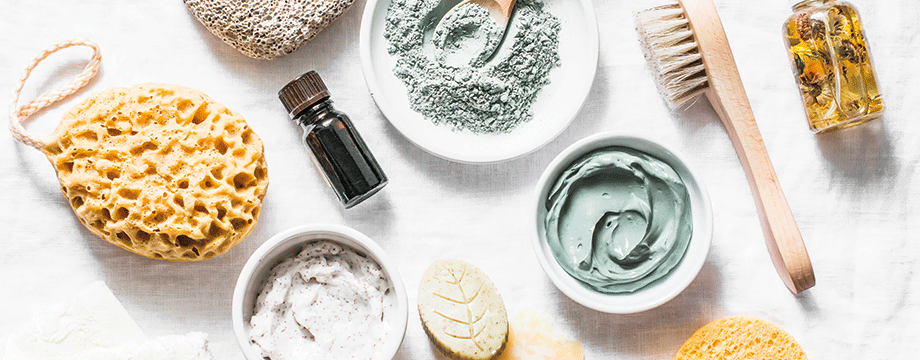
Pandemic has prompted an increased demand for organic beauty
A new Soil Association Certification report has highlighted an increased demand for organic beauty products as a result of the Covid-19 pandemic.
The 2021 Soil Association Organic Beauty and Wellbeing Market Report revealed that 28 per cent of consumers said that the move to online shopping in light of the pandemic made them more likely to buy organic beauty and wellbeing products. The report also stated that half of consumers who already buy organic beauty and wellbeing products said that the pandemic made them more likely to buy these products.
Further findings included the fact that 45 per cent of consumers agreed that organic beauty and wellbeing is better for the environment, which is important as a majority of 56 per cent of consumers believe that beauty and wellbeing brands should do more to reduce their impact on the environment. This is being led by the younger generation, with 28 per cent of 16- to 24-year-olds already buying organic beauty and wellbeing products compared to just 9 per cent of those aged 55-plus.
Fiona Campbell, Soil Association’s Business Development Manager, commented: “Not only does Soil Association certification start with the ingredient at soil level but it is a full circle assessment of the whole supply chain looking at ‘farm to face’ development stages of bringing a product to shelf. Thus, creating the gold standard of organic certification and one which brands are ultimately so proud to achieve and stamp on their packaging. This is how organic is driving sustainability.”

Lack of sleep linked with increased risk of dementia in older adults
Researchers have found a connection between sleep deficiency and risk of dementia in older individuals.
The team from Brigham and Women’s Hospital in Boston, Massachusetts, analysed the sleep habits of 2,610 participants aged 65 and older via questionnaires conducted in 2013 and 2014. The researchers then collected information about patient outcomes such as dementia and death from any cause for up to five years after the survey.
The researchers found that the risk of dementia was double among participants who reported getting less than five hours of sleep compared to those who had seven to eight hours of sleep per night. The team also found associations between sleep disturbance and sleep deficiency with overall risk of death.
Routinely taking 30 minutes or longer to fall asleep was associated with a 45 per cent greater risk for incident dementia. Routinely experiencing difficulty in maintaining alertness, routinely napping, reporting poor sleep quality, and sleeping five or fewer hours per night was also associated with an increased risk of death.
The results were published in Aging.
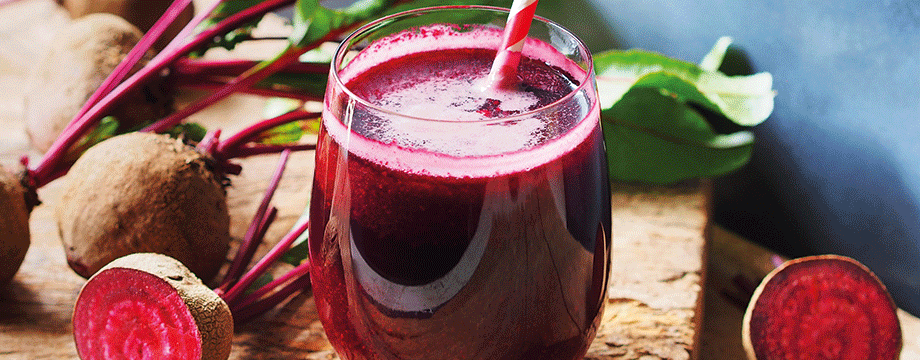
Drinking beetroot juice may promote healthy ageing
A new study from the University of Exeter has found that drinking beetroot juice promotes a combination of oral bacteria linked with healthier blood vessels and brain function.
Beetroot is rich in inorganic nitrate, and many oral bacteria play a role in turning nitrate to nitric oxide, which helps to regulate blood vessels and neurotransmission (chemical messages in the brain). Older people tend to have lower nitric oxide production, and this is linked with poorer vascular and cognitive health.
In the new study, 26 healthy people aged between 70 and 80 took part in two ten-day supplementation periods: one with nitrate-rich beetroot juice and another with nitrate-free placebo juice, which they drank twice a day. The results showed higher levels of bacteria associated with good vascular and cognitive health, and lower levels of bacteria linked to disease and inflammation. Systolic blood pressure dropped on average by five points (mmHg) after drinking the beetroot juice.
Lead author, Professor Anni Vanhatalo, said: “Our findings suggest that adding nitrate-rich foods to the diet – in this case via beetroot juice – for just ten days can substantially alter the oral microbiome (mix of bacteria) for the better. Maintaining this healthy oral microbiome in the long term might slow down the negative vascular and cognitive changes associated with ageing.”
The study was published in the journal Redox Biology.

Regular exercise and a healthy diet key to avoiding metabolic syndrome
New research has shown that a combination of regular exercise and a healthy diet during middle age results in lower odds of developing metabolic syndrome later in life.
Metabolic syndrome is a group of health conditions including excess body fat around the waist, high blood pressure, high blood sugar, abnormal cholesterol or triglyceride levels that increase the risk of heart disease, stroke and Type 2 diabetes.
Researchers from Boston University School of Medicine analysed data from more than 2,300 adults aged 18 and over, which had been captured between 2008 and 2011. They examined the extent to which the participants adhered to US government guidelines on physical activity and also diet. The findings showed that participants who followed the physical activity recommendations alone had 51 per cent lower odds of metabolic syndrome. Participants who adhered to the dietary guidelines alone had 33 per cent lower odds; and participants who followed both guidelines had 65 per cent lower odds of developing metabolic syndrome.
The study’s corresponding author, Vanessa Xanthakis, Ph.D., FAHA, said: “Health care professionals could use these findings to further promote and emphasise to their patients the benefits of a healthy diet and a regular exercise schedule to avoid the development of numerous chronic health conditions in the present and in later life.”
The findings were published in the Journal of the American Heart Association.

A little goes a long way!
Researchers have discovered that as little as four minutes of HIIT training three times per week for 12 weeks significantly improved blood sugar levels, fat in the liver, and cardiorespiratory fitness in adults with Type 2 diabetes. The team from Western Sydney University also showed that these improvements were comparable to an intervention involving 45 minutes of moderate intensity aerobic exercise. The results were published in Diabetes Care.

1 in 3 now take supplements due to Covid pandemic
Concerns about immunity as a result of the Covid-19 pandemic have led to one in three UK adults now taking supplements. These findings were revealed in a new report from the Health Food Manufacturers’ Association (HFMA).
The report, Health of the Nation 2021: Lockdown Focus, was based on a survey of 10,000 UK adults. The findings also showed that 63 per cent of respondents said they had taken vitamin D for the first time since the pandemic began, with 39 per cent saying the same for vitamin C.
Almost 20 million people in the UK are now taking supplements on a daily basis, the report states. Of those questioned, nearly 40 per cent said that information about nutrition and immunity had influenced their choice of food supplements.
Graham Keen, Executive Director of the HFMA, said: “We’re very happy to be reporting that record numbers of people are now taking food supplements. I think we all knew that this is happening, but it’s great to have it confirmed so definitively by this survey. It also gave us a timely opportunity to see how the pandemic, and the series of lockdowns that resulted, has influenced consumers to take proactive steps to help themselves to be healthier.”

Diet may help to reduce cognitive decline
The foods we eat could have a direct impact on our cognitive faculties in later years, according to new research from Iowa State University.
The researchers analysed data from 1,787 ageing adults who completed a series of cognitive ability tests as well as questionnaires about their food and alcohol consumption. A number of significant findings came about as a result of the study. Firstly, cheese, by far, was shown to be the most protective food against age-related cognitive problems, even late into life. Secondly, the daily consumption of alcohol, particularly red wine, was related to improvements in cognitive function. Furthermore, weekly consumption of lamb, but not other red meats, was shown to improve long-term cognitive prowess. Lastly, excessive consumption of salt is bad, but only individuals already at risk for Alzheimer’s disease may need to watch their intake to avoid cognitive problems over time. The study was published in the Journal of Alzheimer’s Disease.

Low vitamin C linked to bleeding gums
Bleeding gums could indicate that you need to up your vitamin C levels, new research from the University of Washington has shown.
“When you see your gums bleed, the first thing you should think about is not ‘I should brush more’. You should try to figure out why your gums are bleeding. And vitamin C deficiency is one possible reason,” said the study’s lead author Philippe Hujoel, a practising dentist and professor of oral health sciences in the UW School of Dentistry.
Hujoel’s study, published in Nutrition Reviews, analysed published studies of 15 clinical trials in six countries, involving 1,140 predominantly healthy participants, and data from 8,210 US residents.
The results showed that bleeding of the gums on gentle probing, or gingival bleeding tendency, and also bleeding in the eye, or retinal hemorrhaging, were associated with low vitamin C levels in the bloodstream. Furthermore, the researchers found that increasing the daily intake of vitamin C in those people with low vitamin C plasma levels helped to reverse these bleeding issues.
As a result, Hujoel recommends that people try to keep an eye on their vitamin C intake by eating foods such as kale, peppers or kiwi fruit, or considering a supplement of about 100 to 200mg a day.
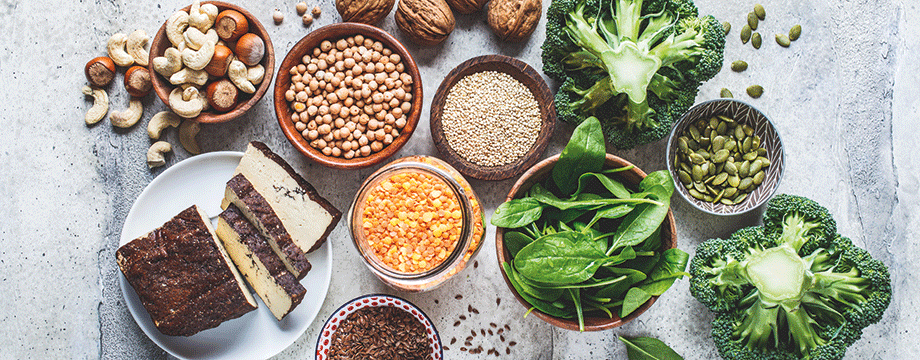
Brits are perplexed about protein, survey shows
According to a new study of 2,000 British adults, more than two thirds (69 per cent) of respondents are confused about protein intake and the quantities we should be consuming daily. Commissioned by healthy Asian food brand itsu, the survey revealed that eight in 10 (82 per cent) of men and women don’t meet their daily recommended protein intake. When questioned, 78 per cent of respondents had no knowledge as to how many grams of protein were in popular foods such as chicken or cheese. One in 10 of those polled had no idea that plants provided a protein boost, with 59 per cent not believing they have the same protein power as meat or fish.
Nutritionist Rob Hobson commented: “Proteins are known as the building blocks of life, as they break down into amino acids that help the body grow and repair. Our hair, skin and muscle are all made from the protein we eat. You might think meat is the best way to get it, but there’s growing evidence that swapping a diet rich in animal protein (such as meat, fish and dairy) for one high in soybean, pulses, nuts and grains could help you live longer.”
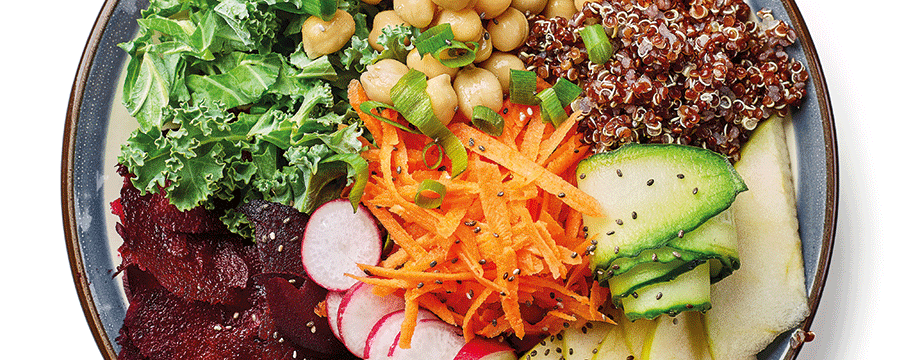
Study highlights shift towards sustainable eating
Brits are embracing diets that are healthy for the planet as well as healthy for themselves, according to new research.
Of the 2,000 UK adults questioned in the survey, a quarter (24 per cent) are actively choosing more sustainable food options to tackle global warming; 22 per cent are following a more eco-conscious diet to address animal welfare; and 25 per cent are eating more sustainably to tackle eco issues due to agricultural expansion.
The new research also shows that Brits would welcome more help when it comes to choosing more sustainable food options:
27 per cent call for more guidance from retailers and 37 per cent urge the Government to collaborate with retailers to promote a dietary shift from meat to plant-heavy diets. The study was carried out by Spoon Guru, a global AI food technology start-up.

Abdominal fat in menopause linked to heart disease risk
Women who gain abdominal fat during menopause are at greater risk of heart disease, even if their weight stays steady, new research shows.
The research was carried out at the University of Pittsburgh Graduate School of Public Health and published in the journal Menopause.
The researchers analysed data on 362 women with an average age of 51 and measured the fat surrounding their abdominal organs using a CT scan. They also measured the thickness of the internal carotid artery lining in their neck as this is an early indicator of heart disease.
The team found that for every 20 per cent increase in abdominal fat, the thickness of the carotid artery lining grew by 2 per cent, independent of overall weight, BMI and other traditional risk factors for heart disease.
They also found that abdominal fat started a steep acceleration, on average, within two years before the participants’ last period and continued a more gradual growth after the menopausal transition.
Senior author, Samar El Khoudary, said: “Historically, there’s been a disproportionate emphasis on BMI and cardiovascular disease. Through this long-running study, we’ve found a clear link between growth in abdominal fat and risk of cardiovascular disease that can be tracked with a measuring tape but could be missed by calculating BMI. If you can identify women at risk, you can help them modify their lifestyle and diet early to hopefully lower that risk.”

Regular meat consumption linked to common diseases
Regular meat consumption is associated with a range of diseases including heart disease, pneumonia and diabetes, according to a study conducted by a team at the University of Oxford.
The study, which was published in BMC Medicine, used data from almost 475,000 UK adults, who were monitored for 25 major causes of non-cancerous hospital admissions. The participants completed a questionnaire about their dietary habits and were followed up for an average period of eight years. Those who consumed unprocessed red meat and processed meat regularly (three or more times per week) were more likely than low meat-eaters to smoke, drink alcohol, be overweight or obese, and eat fewer fruits and vegetables, fibre and fish. However, after taking these factors into account, the results indicated that:
- Higher consumption of unprocessed red meat and processed meat combined was associated with higher risks of ischaemic heart disease, pneumonia, diverticular disease, colon polyps and diabetes.
- Higher consumption of poultry meat was associated with higher risks of gastro-oesophageal reflux disease, gastritis and duodenitis, diverticular disease, gallbladder disease and diabetes.
- Higher intakes of unprocessed red meat and poultry meat were associated with a lower risk of iron deficiency anaemia.
The research team suggest that unprocessed red meat and processed meat may increase the risk of ischaemic heart disease because they are major dietary sources of saturated fatty acids. These can increase low-density lipoprotein (LDL) cholesterol, an established risk factor for ischaemic heart disease.
The World Cancer Research Fund recommends that people limit red meat consumption to no more than three portions per week and processed meat should be eaten rarely, if at all.

Gum disease link with Covid-19 complications
A recent study published in the Journal of Clinical Periodontology revealed that those who suffer with gum disease may be at a higher risk of Covid-19 complications including death. The case-control study, which was conducted in Qatar and involved more than 500 patients, found that patients who suffered with periodontitis (gum disease) were 4.5 times more likely to require a ventilator, nine times more likely to die of the virus and 3.5 times more likely to be admitted to intensive care.
Leading dental hygienist and founder of London Hygienist (www.londonhygienist.com), Anna Middleton, said: “This isn’t the first study that has found a link between poor oral hygiene and Covid-19. Another recent study [published in the British Dental Journal] showcased that poor oral hygiene increased the duration of viral shedding from Covid-19 from approximately 50 days (meaning the virus is detectable for longer in your saliva even if your symptoms have resolved if you are not brushing properly). Therefore, improved oral health can in fact reduce the duration of infection.”
She added: “The key is to make sure that the oral microbiome is healthy. For example, we know that gum disease causes inflammation and alters the bacteria in the mouth. So, if we can make sure that all of our patients are free from gum disease, that’s a huge advantage.”
Anna recommends following a good oral health care regime at home, including brushing teeth twice a day as well as flossing to reduce bacterial overload.

Walking takes a back seat
A survey conducted by Alzheimer’s Society of over 2,000 people has revealed how walking has taken more of a back seat during lockdown, with two fifths (43 per cent) of people walking less than 1,000 steps in an average working day. Additionally, almost two thirds of Brits surveyed (64 per cent) were not leaving the house at all on some days, with respondents spending three days on average without getting any fresh air.
In response to the findings, Alzheimer’s Society is encouraging people to sign up to a complete-your-own Memory Walk in March in a bid to get active and raise money for the charity. Regular physical exercise is one of the best ways to reduce your risk of getting dementia. There’s also evidence to suggest that the impact of staying active for people with dementia’s quality of life and health is huge, as it can improve confidence and wellbeing and may slow down mental decline. For more information, visit www.memorywalk.org.uk and please be sure to follow the latest government guidance when planning and completing your walk.

Working outdoors linked to lower risk of breast cancer among older women
Danish researchers have discovered that working outdoors over many years is associated with a lower risk of breast cancer in women after the age of 50.
As the primary source of vitamin D is UVB sunlight, the researchers say that those who work outdoors are exposed to more sunlight, thus increasing their vitamin D levels.
Vitamin D has a well-recognised role in maintaining bone and musculoskeletal health, but it may have other roles, including helping to ward off infection and cancer.
The researchers analysed data from 38,375 women under the age of 70 who had been diagnosed with primary breast cancer. They compared each of them with five women born in the same year and randomly selected from the Danish Civil Registration System.
A job exposure matrix was used to assess each woman’s occupational exposure to sunlight. After taking account of potentially influential factors, such as reproductive history, no association emerged between occupational exposure to sunlight and overall breast cancer risk. But, long-term occupational exposure was associated with a lower risk of breast cancer after the age of 50. In these women occupational exposure for 20 or more years was linked with 17 per cent lower odds of a breast cancer diagnosis while the highest level of cumulative exposure was associated with 11 per cent reduced odds.
The findings were published online in the journal Occupational & Environmental Medicine.

Demand for Fairtrade on the increase
Research has shown an increase in demand for Fairtrade products during the pandemic, including bananas, cocoa, coffee and wine, as growing numbers of shoppers make ethical choices.
Fairtrade purchases increased by 15 per cent in the last year and almost 30 per cent of consumers pledged to buy more Fairtrade goods in the future, according to Ethical Consumer’s recent Ethical Markets Report.
That sense of the importance and necessity of Fairtrade is also reflected in its latest consumer survey, where active choice – shoppers choosing Fairtrade products over an alternative – is higher than ever in Fairtrade’s history.
The findings have been revealed as the Fairtrade Foundation prepares for its annual Fairtrade Fortnight. Taking place between 22 February and 7 March, Fairtrade Fortnight 2021 marks the start of a new climate campaign asking the British public to get behind Fairtrade so that farmers overseas can benefit from fairer prices, fairer trading practices and the resources needed for tackling the climate emergency in low-income countries such as Kenya and Honduras.
The campaign will include 100 virtual events designed to engage, inform and educate the public about the main issues. To find out more, visit www.fairtrade.org.uk
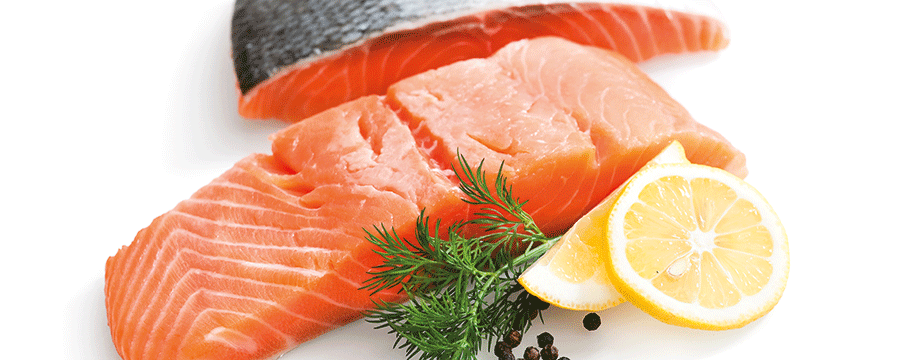
Omega-3 fatty acids could prevent childhood asthma
A higher dietary intake of long chain omega-3 fatty acids in childhood may reduce the risk of developing subsequent asthma, new research has revealed. However this is only applicable in children carrying a common gene variant. The study, led by Queen Mary University of London, was conducted in collaboration with the University of Bristol and University of Southampton, UK, and Karolinska Institutet, Sweden.
The study involved 4,543 participants and focused on children with a particular genetic make-up. More than half of the children carried a common variant in the fatty acid desaturase (FADS) gene which is associated with lower levels of long chain omega-3 fatty acids in the blood. In these children, a higher dietary intake of long chain omega-3 fatty acids was associated with a lower risk of asthma. The risk was 51 per cent lower, comparing those in the top quartile of long chain omega-3 intake with those in the bottom quartile.
Senior author, Professor Seif Shaheen from Queen Mary University of London, said: “Whilst we cannot say for certain that eating more fish will prevent asthma in children, based on our findings, it would nevertheless be sensible for children in the UK to consume more fish, as few currently achieve the recommended intake.”
Fish is of particular interest because it is a rich source of the long chain omega-3 fatty acids, eicosapentaenoic acid (EPA) and docosahexaenoic acid (DHA), which have anti-inflammatory properties. The study was published in the European Respiratory Journal.

Good news for coffee lovers!
Coffee fans may have cause for celebration, thanks to findings from US researchers. An analysis of three large, well-known heart disease studies found that drinking one or more cups of caffeinated coffee was associated with decreased heart failure risk. The findings also showed that drinking decaffeinated coffee did not have the same benefit and may be associated with an increased risk for heart failure.
“The association between caffeine and heart failure risk reduction was surprising,” said David P. Kao, M.D., senior author of the study, from the Colorado Center for Personalized Medicine at the University of Colorado School of Medicine in Aurora, Colorado. “Coffee and caffeine are often considered by the general population to be ‘bad’ for the heart because people associate them with palpitations, high blood pressure, etc.
The consistent relationship between increasing caffeine consumption and decreasing heart failure risk turns that assumption on its head. However, there is not yet enough clear evidence to recommend increasing coffee consumption to decrease risk of heart disease with the same strength and certainty as stopping smoking, losing weight or exercising.”
The research was published in Circulation: Heart Failure, an American Heart Association journal.

Study shows you cannot be ‘fat but healthy’
Regular physical activity is not likely to eliminate the negative health effects of excess body weight on heart health, Spanish researchers have revealed. The research team used data from 527,662 adults who were categorised according to their BMI as being a normal weight, overweight or obese and were grouped by activity level, ranging from regularly active to inactive. Cardiovascular health was determined according to three major risk factors for heart attack and stroke, namely diabetes, high cholesterol, and high blood pressure.
The researchers investigated the associations between each BMI and activity group and the three risk factors. At all BMI levels, any activity was linked with a lower likelihood of diabetes, high blood pressure or high cholesterol compared to no exercise at all. At all weights, the odds of diabetes and hypertension decreased as physical activity rose. However, overweight and obese participants were at greater cardiovascular risk than their peers with normal weight, irrespective of activity levels. As an example, compared to inactive normal weight individuals, active obese people were approximately twice as likely to have high cholesterol, four times more likely to have diabetes, and five times more likely to have high blood pressure.
“One cannot be ‘fat but healthy’,” said study author Dr Alejandro Lucia of the European University, Madrid, Spain. “Fighting obesity and inactivity is equally important; it should be a joint battle.”
The findings were published in the European Journal of Preventive Cardiology, a journal of the European Society of Cardiology (ESC).

We drank more, exercised less, in lockdown – study shows
A new report has highlighted some of the unhealthy habits exhibited by the UK population during the first lockdown in 2020. The research from the University of East Anglia (UEA) found that people ate less fruit and veg, did less exercise and drank more alcohol as the nation adhered to new government restrictions designed to stop the spread of the Covid-19 pandemic.
From 8 April 2020, the researchers tracked the daily lifestyle habits of more than 1,000 participants for a period of three months. This included questions about physical activity, diet, sleep, smoking, drinking and drug use.
The researchers found that people were eating around one portion less fruit and veg every day than they were before the pandemic. The team found that people were drinking more alcohol in total, with women drinking more frequently but men drinking greater quantities per drinking occasion. The participants were also doing significantly less exercise, with those groups most at risk of Covid-19 undertaking the least activity.
The study’s co-lead, Prof Caitlin Notley, said: “It’s not surprising that restrictions on movement outside the house and difficulty getting groceries in the early days of lockdown may have led to a less healthy lifestyle for many. It is critical now that we reflect on these changes so that we can advise people of how best to protect their health for any future lockdowns. This is important because we know that things like drinking, smoking, poor diet and not doing enough exercise have a big impact on people’s health and are responsible for premature mortality. Health behaviours also affect mental health and the risk of chronic conditions and disease, such as cancer, cardiovascular disease and Type II diabetes.”
The findings were published in the British Journal of Health Psychology.

Severe vitamin D deficiency found in UK’s ethnic minorities
More than 50 per cent of the UK’s Asian population is severely deficient in vitamin D, while over a third of Black Africans living in Britain have high levels of vitamin D deficiency, a new study has revealed.
The study was led by the Australian Centre for Precision Health, University of South Australia, using data from 440,581 UK Biobank participants, and the findings were published in the journal Clinical Nutrition.
First author, UniSA PhD student Joshua Sutherland, said: “The reason that people with darker skin are more at risk is because higher levels of melanin, which increases skin pigmentation, can lessen the skin’s ability to make vitamin D. But this, combined with spending more time indoors and consuming lower vitamin D-containing foods, can foster severe deficiency.”
Nearly one third of study participants living in Edinburgh and Glasgow recorded low vitamin D levels in winter, while southern UK residents, from comparatively higher socio-economic regions, had less winter deficiency and were also more likely to take vitamin D supplements and eat more oily fish.
The lead study author, Professor Elina Hypponen, said: “The severity of vitamin D deficiency is concerning, especially with the high rates of Covid-19 infections in Europe and elsewhere in the northern hemisphere this winter. Clinical trials have shown that vitamin D supplements are beneficial in the prevention of respiratory infections and even mortality. Given the Covid-19 pandemic, now is really the time for all who may be affected to take action.”

Regular and intermittent smoking reduces brain power
People who smoke cigarettes occasional for social reasons run a similar risk of reducing their grey matter volume compared to regular smokers, a new study shows.
The research was carried out by scientists from the University of Roehampton, the Combined Universities Brain Imaging Centre, London, and King’s College London. The study involved 85 participants including 41 non-smokers, 24 intermittent smokers and 20 daily smokers, all of whom were examined using MRI brain scanners. The findings showed that both regular and intermittent smokers showed a reduction in volume and concentrations of important chemicals such as glutamate, in the prefrontal cortex area of the brain. It is believed that these changes in brain volume and function are caused predominantly by the nicotine in tobacco, but may also be due to the multitude of harmful chemicals that are also added to cigarettes by manufacturers. The research was published in the journal Addiction Biology.

Quality over quantity
Sleep quality, rather than sleep quantity, is the strongest predictor of mental health and wellbeing in young adults, New Zealand researchers have revealed.
The University of Otago study, which was published in the journal Frontiers in Psychology, surveyed more than 1,100 young adults from New Zealand and the United States about their sleep, physical activity, diet and mental health.
Along with quality sleep, exercising, and eating more raw fruits and vegetables – in that order – were three modifiable behaviours which correlated with better mental health and wellbeing in young adults. Depressive symptoms were lowest for young adults who slept for 9.7 hours per night, and feelings of wellbeing were highest for those who slept for eight hours per night. Wellbeing was highest for young adults who ate 4.8 servings of raw fruit and vegetables per day; those who ate less than two servings, and also more than eight servings, reported lower feelings of wellbeing.
Lead author Shay-Ruby Wickham said: “This is surprising because sleep recommendations predominantly focus on quantity rather than quality. While we did see that both too little sleep – less than eight hours – and too much sleep – more than 12 hours – were associated with higher depressive symptoms and lower wellbeing, sleep quality significantly outranked sleep quantity in predicting mental health and wellbeing. This suggests that sleep quality should be promoted alongside sleep quantity as tools for improving mental health and wellbeing within young adults.”

Super social sharer winners
In the September and October issues of Your Healthy Living we ran a brand new social media competition called the Super Social Sharer. This gave you our readers the chance to get creative and tell us which health products you love the most through either filming a fun video, taking a quirky and creative image or writing a glowing review. The prizes up for grabs included:
- A weekend yoga and spa retreat for two at Green Farm Spa and Retreats in Kent worth £1,000.
- Three online health coaching consultations with holistic lifestyle coach Holly Zoccolan worth £267.
- Five online personal training sessions with personal trainer Anna Cousins worth £175.
We were delighted with the number of entries and the range of creative ideas you came up with! Now, we can reveal our winners and runners-up:
Read the full story here...

Hope for those with Parkinson’s Disease
New research has shown that a cognitive-training app is helping to improve the lives of those with Parkinson’s Disease. The research, carried out at Radboud University Medical Center and Maastricht University Medical Center in the Netherlands, revealed that patients who used the MyCognition app regularly for 24 weeks reversed the decline in their global cognition – that is their memory, their ability to concentrate, make decisions and learn new things. This was when compared to a controlled group of patients in a similar condition who didn’t use the app. For more information, visit mycognition.com

Veggie and vegan inspiration
This January many people will be trying out a plant-based diet as part of the Veganuary pledge. If you want to give it a try, but need some motivation and inspiration, why not take a look at VeggieVision TV? This internet TV station is a great resource for vegan and vegetarian cookery ideas, recipe inspiration as well as interviews with celebrity vegans and vegan experts. There are plenty of TV channels to keep you entertained and inspired, from cookery to health and beauty, food and drink, entertainment and news.
Find out more at VeggieVision.TV
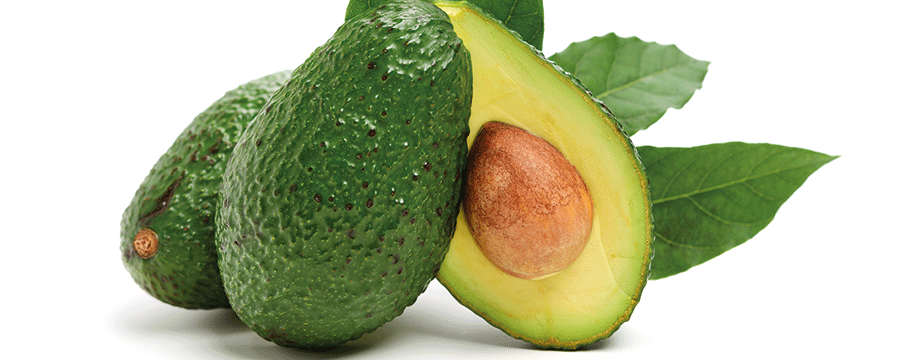
An avocado a day could keep gut problems at bay
A new study from the University of Illinois has shown that consuming avocados on a daily basis can help to improve the health of your gut.
“We know eating avocados helps you feel full and reduces blood cholesterol concentration, but we did not know how it influences the gut microbes, and the metabolites the microbes produce,” said Sharon Thompson, graduate student in the Division of Nutritional Sciences at U of I and lead author on the paper, which was published in the Journal of Nutrition.
The research team discovered that individuals who ate avocado on a daily basis had greater amounts of gut microbes that break down fibre and produce metabolites that support gut health. They also had greater microbial diversity compared to those who did not eat avocado every day.
Thompson added: “Avocado consumption reduced bile acids and increased short chain fatty acids. These changes correlate with beneficial health outcomes.”
Avocado is an energy-dense food, but it is also nutrient-dense, and it contains important micronutrients such as potassium and fibre.
Hannah Holscher, assistant professor of nutrition in the Department of Food Science and Human Nutrition at U of I and senior author of the study said: “We can’t break down dietary fibres, but certain gut microbes can. When we consume dietary fibre, it’s a win-win for gut microbes and for us. Just like we think about heart-healthy meals, we need to also be thinking about gut healthy meals and how to feed the microbiota.”

Lockdown eating patterns revealed
A new study has shed light on Britain’s healthy eating habits during the first and second lockdowns. The study, conducted by health and wellness app Lifesum, analysed the eating habits of 10,000 people across the UK. The findings revealed that during the first lockdown those surveyed ate more fruit, nuts and vegetables, while their intake of ready meals, snacks and desserts decreased. As lockdown lifted, intake of fruit, nuts and vegetables decreased, while those studied craved more snacks and ready meals. Interestingly, when faced with lockdown two, the pattern was repeated, with participants eating more fruit, nuts and vegetables, and decreasing their intake of ready meals, snacks and desserts.
“In 2020 a classic ‘yo-yo’ eating pattern emerged in real-time,” says Lifesum nutritionist, Signe Svanfeldt. “During lockdown Brits ate healthier, then craved self-soothing, sugary foods as it lifted - a natural reward response to the heightened anxiety caused by the pandemic – and, possibly, due to cooking and cleaning fatigue.”

In praise of the elderberry
Ethical vitamin company Viridian Nutrition has named elderberry as its Ingredient of the Year 2021. Native to Europe and scientifically known as Sambucus nigra, these berries from the black elder tree have a long history of use as a traditional remedy. Elderberry is rich in oligomeric proanthocyanidins (OPCs) which have been shown to provide therapeutic benefits in research.
Viridian’s Direction of Nutrition, Aimee Benbow, said: “Elderberry is a fascinating nutrient-rich ingredient which has gained considerable attention and featured in many clinical trials demonstrating its health properties. Our NPD team have been following the studies with huge interest. We strongly believe elderberry will continue to gain prominence in the nutrition and health field.”
Viridian has launched a new Ingredient of the Year logo and will be championing the beneficial properties of elderberries over the coming 12 months.

Cycling to work reduces risk of death, study finds
People who walk and cycle to work have a lower risk of death or serious illness compared with those who commute by car. Researchers from Imperial College London and the University of Cambridge analysed census data from over 300,000 commuters in England and Wales to examine the impact that walking, cycling, getting public transport or driving to work has on our health. Data was gathered in 1991, 2001 and 2011.
The researchers found that, compared to the motorists, those who cycled to work had a 20 per cent lower risk of death overall. The cyclists also had a 24 per cent lower risk of dying from cardiovascular disease and a 16 per cent lower risk of dying from cancer. Those who walked to work had a 7 per cent lower risk of cancer diagnosis compared with those who drove. People who commuted by train had a reduced risk of dying (10 per cent lower), of dying from cardiovascular disease (21 per cent lower) and of being diagnosed with cancer (12 per cent lower).
Following these results, the researchers suggest that providing safe, convenient access to cycle infrastructure could reduce deaths from cancer and cardiovascular disease. The findings were published in The Lancet.

Men’s mental health scheme proves a success
A project aimed at tackling the stigma associated with men’s mental health has proved to be a great success. The Team Talk project uses football fandom as a way of engaging with men about their mental health. In its first year, it ran across four locations before switching to a virtual format throughout lockdown.
Research conducted by the University of Derby shows that in just 12 months, 98 per cent of men said attending Team Talk had both improved their mental health and that they were proud to be part of the group. There was also a huge increase in the level of physical activity undertaken by men involved in the group – with a quadrupling in the activity rate among the men.
Last year, a report entitled Tackling the Stigma revealed that in the UK over 4 million working-class men are suffering in silence with their mental health – more likely than other groups but also less likely to be aware of symptoms and to seek help.

Revealed: the nutrients that could help in the fight against Covid-19
Nutrients such as selenium, vitamin D and zinc, along with a healthy gut microbiota have all been highlighted as potential contributors to the fight against the effects of Covid-19. The findings were revealed during the British Nutrition Foundation (BNF)’s virtual conference: Nutrition and Covid-19.
Prof Philip Calder from the University of Southampton highlighted vitamin D, zinc and selenium as being particularly important for anti-viral immunity. He emphasised the various roles zinc plays in the immune system, particularly its specific function in preventing multiplication of single-strand RNA viruses, like the Coronavirus, by inhibiting the enzymes they need to spread. Prof Calder also highlighted that a selenium deficiency can impair immune responses, increase susceptibility to viral infection, permit viruses to mutate, and allow weak viruses to become stronger. Prof Calder presented data suggesting that low levels of vitamin D are associated with an increased risk of Covid-19 infection, as well as hospitalisation, although he stressed that this is an association and so does not provide evidence of causation and that there is currently not enough data available to recommend vitamin D for prevention of Covid-19.
Prof Glenn Gibson from the University of Reading spoke about the potential role of probiotics and prebiotics in supporting the gut microbiome to fight Covid-19. He explained that the gut microbiome is a harbouring site for Covid-19 and clinical outcomes can be governed by the type of gut microbiome the patient has. For example, if the numbers of ‘good bacteria’ in the gut are low it might be more difficult for that individual to fight off the virus.
Prof Gibson also shared promising results from a recent Italian study into the effect of probiotics on the recovery of patients with Covid-19.

Study reveals effect of lockdown on kids’ mental health
A study which is tracking children and young people’s mental health throughout the Covid-19 crisis has found that returning to school has improved children’s mental health.
The Co-SPACE study reported that participating primary school-aged children experienced an increase in mental health difficulties as well as behavioural and restless/attentional difficulties during the first national lockdown (between March and June 2020). However, these problems generally decreased from July throughout the summer holidays, and as children returned to school in September.
Professor Cathy Creswell, Professor of Developmental Clinical Psychology, University of Oxford, and co-lead of the study, said: “Our findings highlight the challenges that children and families faced during the first lockdown when most children were not able to attend school. We are pleased to see that things have generally improved for study families since the pressures of home learning have reduced, but our findings raise concerns about the impact of the ongoing disruption to schooling that many children are dealing with. We don’t yet know the impact of this second lockdown, although children being able to attend school could make all the difference.”
More than 12,300 parents have now taken part in the Co-SPACE (Covid-19 Supporting Parents, Adolescents, and Children in Epidemics) survey led by experts at the University of Oxford. Survey results are helping researchers identify what protects children and young people from deteriorating mental health, over time, and at particular stress points, and how this may vary according to child and family characteristics.

Antibiotics linked to health conditions in children
Researchers from the Mayo Clinic have discovered that antibiotics given to children below the age of two are linked with a number of health conditions.
The researchers analysed data from over 14,500 children based on information from the Rochester Epidemiology Project, a population-based research collaboration. About 70 per cent of the children had received at least one antibiotic treatment for illness before the age of two. Children who had multiple antibiotic treatments had a greater chance of having multiple conditions or illnesses later in childhood. Type and frequency of illness varied depending on age, type of medication, dose and number of doses. Conditions linked with early use of antibiotics included asthma, allergic rhinitis, food allergies, obesity, attention deficit hyperactivity disorder, coeliac disease and atopic dermatitis.
Lead author Nathan LeBrasseur, PhD, said: “We want to emphasise that this study shows association – not causation – of these conditions. These findings offer the opportunity to target future research to determine more reliable and safer approaches to timing, dosing and types of antibiotics for children in this age group.”
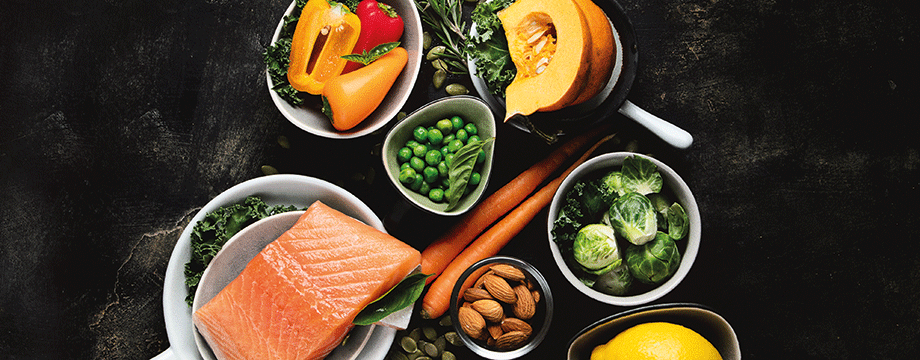
The true cost of Christmas dinner
A traditional Christmas dinner causes the same climate impact as travelling for three hours in a typical car, claims University of Manchester scientist and author of Food and Climate Change – Without the Hot Air, Sarah Bridle.
According to Sarah, taking into account each family member eating a portion of turkey, three pigs in blankets, some stuffing and roast vegetables, a typical Christmas dinner for six people causes the equivalent of nearly 30kg of carbon dioxide to be released into the atmosphere.
That’s the equivalent of driving a car for three hours. Nearly half of this comes from producing and cooking the turkey, and almost the same amount comes from producing the stuffing and pigs in blankets.
Sarah Bridle says there are various ways we can reduce the climate impact of Christmas dinner. The simplest tweak is to change the quantities. Halving the amount of meat and doubling the amount of vegetables would reduce the climate impact by 30 per cent. Alternatively, keeping the same portion sizes and switching pigs to veggie sausages and pork to veggie stuffing would reduce the climate impact by one third. Swapping turkey for a nut roast could reduce climate impacts of the main item by five times, whereas going all-out vegan brings down the total emissions of the Christmas dinner by three times, compared to the traditional version, down to less than 9kg of carbon dioxide per family. That’s equivalent to driving a car for less than an hour.

‘Modest’ weight loss nearly halves the risk of diabetes
Losing a few kilograms in weight almost halves people’s risk of developing Type 2 diabetes, new research has revealed.
The findings, which were published in the journal JAMA Internal Medicine, come from the Norfolk Diabetes Prevention Study (NDPS) which ran over eight years and involved more than 1,000 people with prediabetes at high risk of developing Type 2 diabetes.
The study found that helping participants to make modest lifestyle changes, including losing 2 to 3 kg of weight and increased physical activity over two years, reduced the risk of Type 2 diabetes by 40 to 47 per cent for those categorised as having prediabetes. Importantly these changes were sustained for at least two years and the weight lost was not put back on.
Prof Mike Sampson, NDPS Chief Investigator, said: “We have now shown a significant effect in Type 2 diabetes prevention, and we can be very optimistic that even a modest weight loss, and an increase in physical activity, in real world programmes like this have a big effect on the risk of getting Type 2 diabetes. This is really great news for the eight million people in the UK with a prediabetes diagnosis.”

New study to investigate link between vitamin D and COVID-19
A new clinical trial has been launched to investigate whether taking vitamin D could protect people from Covid-19.
Researchers from Queen Mary University of London will carry out the CORONAVIT trial for six months to establish whether a ‘test-and-treat’ approach to correct people’s vitamin D deficiency during winter could lessen the risk and/or severity of Covid-19 as well as other acute respiratory infections.
More than 5,000 people will participate in the study from their homes, without any face-to-face visits, as all tests and supplements will be sent via the post. Any UK resident aged 16 or more can participate if they are not already taking high-dose vitamin D. To register interest, people can contact the study team on coronavit@qmul.ac.uk.
UK sunshine is too weak to make vitamin D in the skin between October and April, and dietary sources of vitamin D are limited. Government recommendations are that the public takes vitamin D supplements at a dose of 400IU or 10 micrograms per day during winter and spring. This has recently been extended to a recommendation of year-round supplementation in view of potentially decreased sun exposure during lockdown.

Could mindfulness tackle obesity?
Researchers at Birmingham City University are carrying out research into how mindfulness can help tackle rising obesity across the UK.
The team have developed a Construal Diary which encourages mindful eating practices and helps to moderate consumption of calorific foods.
They have also developed a Mindful Chocolate Practice, which uses traditional contemplative practices to encourage reflection on the experience of eating and the sensations that arise during this process. The results showed that people ate less chocolate after the mindfulness exercise and during an enforced waiting period at the end of the experiment.
Members of the public are being invited to access the tools, and complete a survey to help contribute to the research. Around 62 per cent of the UK population is classed as overweight and 25 per cent as obese, according to Health Express, which can lead to potentially life-threatening conditions such as Type 2 diabetes and strokes.

Bad news for ‘evening people’
A recent study by the University of Illinois at Chicago discovered that being an ‘evening person’ is linked to higher body mass indices among people with Type 2 diabetes.
The reason for this, according to the researchers, is that those who go to bed later and wake up later, tend to delay breakfast until later in the day.

Pregnancy increases constipation risk
Women are 2–3 times more likely to suffer from constipation during pregnancy and right after childbirth than at any other time in their life, a new study from the University of Eastern Finland shows. The study found that 44 per cent of women have constipation in the second trimester, and 36 per cent in the third. The incidence of constipation after vaginal delivery increases to 47 per cent, and as many as 57 per cent of women who had a caesarean delivery reported gastrointestinal problems and constipation. Severe constipation increases the risk of haemorrhoids, urinary and faecal incontinence, and pelvic organ prolapse.
Daily exercise, eating a balanced diet that is rich in fibre, and drinking enough fluids are the most important ways to prevent it.
Good cough, bad cough
Australian researchers have discovered that we have different types of coughs which use different brain circuits. The findings are pertinent because more people seek medical advice for an unwanted, nagging cough than any other ailment. In some people their cough can persist for years without relief, as effective treatments are not readily available.
Previous research had shown that separate pathways in the brain are involved in the response to a good cough (which is needed to clear airways, to ensure optimal lung health) vs a bad cough (a sign of disease). In this new study, participants underwent testing to assess cough reflex sensitivity followed by brain imaging in an MRI scanner while inhaling different substances. The researchers hope that their findings will help doctors to treat troublesome coughs in disease without disrupting the protective cough we need for optimal lung health.

Young people’s immunity at a low
A new survey has revealed three-quarters of young people have reported symptoms of low immune health since the start of the coronavirus pandemic – more than any other age group. The poll from Tonic Health, which questioned 2,000 people across the UK, shows that the main symptoms are high stress levels, constant lethargy or low energy and gut issues.
The poll also revealed that the over-55s are the most anxious about a second wave of coronavirus, with 85 per cent reporting they feel worried. However, they’re also the most likely to have done nothing to strengthen their immunity with three in five saying this.
On a more positive note, 53 per cent of Brits are taking steps to strengthen their immunity with the top five most popular methods including exercise, eating at least five portions of fruit and veg, getting plenty of sleep, taking vitamin supplements and limiting sugar intake.

A popular choice to support Autumn immunity
The global pandemic has meant that more people have turned to nutritional supplements to help support their wellbeing during these extraordinary times. This year the health industry has seen an incredible surge in sales of vitamin C supplements to such an extent that a global shortage of vitamin C supplements was experienced for short periods of time. Now, many households are choosing to stock up on their favourite vitamin C supplement to ensure they have a plentiful supply across the upcoming Autumn and Winter months.
Read the full story here...
Sponsored Content

Homeworkers urged to get on their feet
Researchers have discovered a link between premature death and prolonged sitting and are consequently urging homeworkers to move more to improve their health.
The researchers from the University of Leicester carried out a survey during lockdown which revealed that working from home had led to an increase in sitting time, less time standing and an increase in musculoskeletal issues. The results also showed that the likelihood of dying early increases gradually when spending 7.5 to 9 hours per day sitting, with the threat increasing more steeply after 9.5 hours of sitting per day. Those spending 12 hours per day sitting down had nearly three times the chance of dying early when compared to those who spend 7.5 hours per day or less sitting down.
As a result of their findings, the researchers have developed a free programme to help employees sit less and move more throughout the working day. The SMART Work programme includes an interactive online education session on the consequences of sitting too much, gives individuals tools to estimate their sitting time and prompts people to get out of their chair more regularly.
Dr Charlotte Edwardson, a leading researcher on sedentary behaviour at the University of Leicester, said that people who sit a lot need between 30 and 75 minutes of moderate to vigorous physical activity each day to mitigate the risk of high sitting time.
She said: “We know that many people cannot fit this level of physical activity into their daily lives, but what we can do is break up long bouts of sitting with light activity. It is critical that we educate as many people as we can to try and break our bad habit of prolonged sitting.”

Study sheds light on UK’s eating habits
A new survey from the British Nutrition Foundation (BNF) has shed light on the eating habits of both children and adults throughout the Covid-19 pandemic. The survey reveals that 50 per cent of primary school children and 26 per cent of secondary school students said that they feel better or healthier now that they are back at school, while 27 per cent of adults said they feel more healthy since lockdown restrictions were eased (July) compared with during the lockdown that started in March this year.
The survey also indicates the extent to which adults and secondary school children have turned to comfort foods and drinks throughout the pandemic. Nearly half (46 per cent) of adults and 43 per cent of secondary school students said that they have consumed more chocolate when feeling tired, stressed, bored or anxious throughout the Covid-19 outbreak. The most popular comfort foods also included cakes, biscuits, crisps and sugary drinks.
The survey explored consumption of fruit and vegetables among the different age groups and found that children reported eating more fruit than adults, while adults reported consuming more vegetables. One in 10 primary school children and 7 per cent of secondary school students said that, if they could, they would eat no vegetables at all.
Primary school children who took part in the survey were asked to name their three favourite vegetables. The clear winner was carrots, followed by beetroot, cauliflower and cucumber. Parsnips, swede and pak choi were joint last in the list.

Fatty acids may benefit mental performance
Medium Chain Triglycerides (MCTs), a form of dietary fat, could boost the mental performance of sports people and could also offer hope for dementia patients, according to new research.
For years those engaged with sport have used carbohydrate-heavy glucose gels to provide energy to fatigued muscles. Now a different type of sachet gel rich in ‘Decanoic’ fatty acid, or ‘C10’, a type of MCT, has been analysed by experts at Liverpool Hope University.
Lead researcher Jake Ashton notes ‘significant improvements to cognitive performance’ among test subjects after just two weeks of taking the Nuroco gels. Ashton says the results could make a difference to sports people who need to concentrate and think quickly under pressure. He adds that the study could have implications for both dementia and diabetes patients, too, as they could also see a ‘clear benefit’.
While the research has not yet been published, writing about his preliminary results Ashton concludes: “The present study aimed to determine if MCTs with a ratio favouring C10 improved cognition in healthy individuals, and if so, quantify the ideal dose and time frame to elicit these improvements. Our data suggests that these MCTs do appear to improve cognitive performance in healthy individuals after a minimum of two to three weeks, with minimal difference seen between ingesting 12g and 18g of MCTs per day. MCTs have a clear benefit in diseased and/or healthy populations by either slowing down or masking precludes cognitive decline. This study has shown this positive intervention can also be spread to healthy, young individuals.”

Study highlights importance of exercise before menopause
Exercising before the menopause is important for women in order to develop muscle strength, new research has shown. Researchers at the University of Copenhagen discovered that post-menopausal women lose the ability to grow the small blood vessels in muscles (capillaries), which are necessary for building muscle. The researchers attributed this to the drop in oestrogen levels which occurs during the menopause, as oestrogen has a protective effect on the heart and blood vessels.
The study involved a group of older women (over 60 years old) and younger women (around 25 years old). The women underwent a series of physical tests, and the researchers obtained muscle biopsies to isolate the blood vessel cells and muscle cells for analysis. The older women then completed eight weeks of regular cycling training at moderate to high intensity. The women were tested for fitness and several other parameters before and after the training. After the training period, muscle samples were again obtained and analysed.
Ageing is known to lead to a loss of capillaries in the muscle, an effect which, in men, has been shown to be counteracted by a physically active lifestyle. However, this new study suggests that women do not attain capillary growth as readily and that an underlying cause may be a flaw in the cells that make up capillaries. It is important to underline that both men and women have a vast benefit from being physically active throughout life, regardless of age, but the current study supports the idea that women may benefit from being physically active before menopause, while they still have oestrogen, so that they have a good physical starting point as they get older. The research was published in The Journal of Physiology.

Women’s health affected more by lockdown
The UK lockdown has had an unequal impact on the nation’s health and wellbeing, with women being most likely to suffer. The study, commissioned by wearable tech company Garmin, showed that less than half of men have felt energy slumps since lockdown, while women feel consistently more drained. Some 65 per cent of women have experienced a lack of energy, leading to them feeling tired, unproductive and sometimes depressed.
Young people are also taking the brunt of the impact, with 74 per cent having less energy under current conditions, compared to 67 per cent in 2019.
While lockdown has been a positive experience for some, the findings highlight the longer-term impact the extended restrictions are having on the health and wellbeing of many across the UK. Sleep, on the other hand, has seen an improvement, with people saying they’ve been getting more shut-eye during lockdown compared to last year.
While in 2019, nearly 60 per cent of people blamed a lack of sleep for their low energy, lockdown saw this figure drop nearly 10 per cent. One in five people even said they were getting a good night’s sleep every single night during lockdown, double the number who were doing so in 2019. That number goes up even higher for men, with a quarter saying they constantly enjoyed a good night’s sleep, compared to 16 per cent of women.

CBD improves blood flow to the brain
A single dose of cannabidiol (CBD) was found to help increase blood flow to parts of the brain linked with memory and emotion, a new study has shown.
Researchers from University College London say the findings could be an important discovery for conditions which affect memory, such as Alzheimer’s disease. Lead author, Dr Michael Bloomfield (UCL Psychiatry) said: “Cannabidiol is one of the main constituents of cannabis and is gaining interest for its therapeutic potential.”
For the randomised controlled study, 15 healthy young adult participants, with little or no history of cannabis use were selected. On different occasions, separated by at least a week, each participant was given a 600mg of oral CBD or a placebo. The doses came in identical capsules, so participants didn’t know which one they were taking on which occasion. The researchers then used MRI scanning to measure blood flow to the brain.
The researchers found that CBD significantly increased blood flow in the hippocampus, an important area of the brain associated with memory and emotion. However, it did not cause significant differences in blood flow in other regions of the medial temporal lobe (MTL), of which the hippocampus is a significant component. In the prefrontal cortex, the area of the brain used for planning and decision making, CBD caused a significant increase in blood flow in the orbitofrontal cortex.
Dr Bloomfield said: “To our knowledge, this is the first study to find that CBD increases blood flow to key regions involved in memory processing, particularly the hippocampus. If replicated, these results could lead to further research across a range of conditions characterised by changes in how the brain processes memories, including Alzheimer’s disease, where there are defects in the control of blood control flow, along with schizophrenia and post-traumatic stress disorder.”

Research reveals UK’s healthy lifestyle goals
Eating more healthily, exercising at home and drinking less alcohol are the UK’s three main lifestyle goals, according to new research.
The study, which was commissioned by personal trainer matching app Fitain, examined what people’s health and fitness goals were since lockdown restrictions have eased. The top goal for more than a third of people was to eat more healthily, while over a quarter of respondents chose exercising at home, and drinking less alcohol was the aim for 15 per cent of people.
Outdoor exercise was the aim of the game for some, with 15 per cent saying they would start or continue cycling, and 12 per cent aiming to start or continue running. Despite gyms now being open, only one in 10 people vowed to join one, with some even saying they would rather build their own home gym.

Covid-19 worries have led to increased interest in alternative therapies
The global pandemic has led to an increased interest in alternative therapies and natural remedies among the UK public, according to a new study.
The research, carried out by YouGov for omega-3 supplement brand MINAMI®, revealed that nearly a quarter (23 per cent) of respondents claimed to be more open to alternative therapies since the outbreak of Covid-19. One of the main motivations for respondents researching natural remedies was a feeling of stress and anxiety.
The study of over 2,000 people found that the most popular alternative therapies and wellness practices included meditation and mindfulness (38 per cent), intermittent fasting (23 per cent) and CBD (20 per cent).
However, there still appears to be much confusion around the subject of CBD, with nearly 10 per cent of 18 to 24-year olds believing taking CBD gets you high and five per cent still believing that CBD is illegal in the UK.
Dr Julie Moltke, medical doctor and author of A Quick Guide to CBD said of the research: “It’s no surprise that the likes of CBD and meditation, both associated with relaxation and a reduction in stress and anxiety, come out on top at such a challenging time. Whilst it’s great that individuals are proactively exploring natural remedies and rituals, it’s important to ensure you’re using trusted resources and experts, particularly in the case of CBD, which many still find confusing.”

Pycnogenol may reduce frequency and severity of migraines
Daily supplementation with the French maritime pine bark extract, Pycnogenol, may help to decrease the frequency and severity of migraines, a new peer-reviewed pilot study has shown.
According to the World Health Organization (WHO), migraines are one of the 10 most disabling medical conditions, with an estimated 6 million UK sufferers.
The study, which was published in the Panminerva Medica journal, tested 67 participants who suffered from migraine and moderate headache for eight weeks. Three groups were tested, including a control group following standard management of oral magnesium, riboflavin and lipoic acid; a test group that supplemented with 150mg of Pycnogenol daily along with standard management; and another test group prescribed with the generic migraine medication, topiramate.
Participants were asked to rank their migraine symptoms. The results showed that the Pycnogenol test group reported greater improvements of their migraine symptoms, including a 61 per cent decreased frequency of migraine attacks (compared to an eight per cent increase in attacks in the control group and a 33 per cent decrease in the topiramate group. The Pycnogenol group also reported a 39 per cent easing of migraine-induced discomfort (compared to 25 per cent in the control group and 37 per cent in the topiramate group).
For the latest clinical research and information, visit www.pycnogenol.com.

Vitamin C could help over-50s retain muscle mass
Vitamin C could be the key to better muscles in later life, according to new research from the University of East Anglia (UEA).
The study shows that older people who eat plenty of vitamin C – commonly found in citrus fruits, berries and vegetables – have the best skeletal muscle mass. This is important because people tend to lose skeletal muscle mass as they get older, leading to sarcopenia (a condition characterised by loss of skeletal muscle mass and function), frailty and reduced quality of life.
The research team studied data from more than 13,000 people aged between 42 and 82. They calculated their skeletal muscle mass and analysed their vitamin C intakes from a seven-day food diary. They also examined the amount of vitamin C in their blood.
Dr Richard Hayhoe, from UEA’s Norwich Medical School, said: “We studied a large sample of older Norfolk residents and found that people with the highest amounts of vitamin C in their diet or blood had the greatest estimated skeletal muscle mass, compared to those with the lowest amounts. We are very excited by our findings as they suggest that dietary vitamin C is important for muscle health in older men and women and may be useful for preventing age-related muscle loss. This is particularly significant as vitamin C is readily available in fruits and vegetables, or supplements, so improving intake of this vitamin is relatively straightforward.”
The study was published in the Journal of Nutrition.

Covid-19 sparks interest in veganism
One in 10 British people say that a vegan diet has become more appealing since the outbreak of Covid-19, new research has revealed.
The findings, from market intelligence agency Mintel, also revealed that a quarter of young British Millennials (aged 21 to 30) are becoming interested in following a vegan diet. The survey was carried out among 2,000 British internet users aged 16 and over.
The research indicates that there is a strong belief in the healing power of plants, as half of the respondents (51 per cent) believe that plant/botanical ingredients (such as herbs and spices) can have medicinal benefits. ‘Five a day’ is a higher priority too, as a quarter (23 per cent) of Brits say they are eating more fruit and vegetables since the start of the outbreak. Overall, almost two in five (37 per cent) of Brits say the Covid-19 outbreak has prompted them to add more nutrients that support the immune system to their diet.
Alex Beckett, Associate Director, Mintel Food & Drink, said: “People want the world to change for the better right now and they are searching for ways to show compassion. For consumers struggling to know how to make a positive difference, cutting out animal protein may be seen as a way of tackling the climate crisis, showing compassion for nature and boosting their own nutrient intake. Even before the spread of Covid-19, we were seeing a growing interest in plant-based food and drink across global markets. It may well be that the pandemic is accelerating this trend.”
Late eating may lead to weight gain, study shows
Eating a late dinner may contribute to weight gain and high blood sugar, according to a new study.
The researchers studied 20 healthy volunteers to see how they metabolised dinner eaten at 10pm compared to 6pm. The researchers found that blood sugar levels were higher, and the amount of ingested fat burned was lower with the later dinner, even when the same meal was provided at the two different times.
“On average, the peak glucose level after late dinner was about 18 per cent higher, and the amount of fat burned overnight decreased by about 10 per cent compared to eating an earlier dinner,” said the study’s first author Chenjuan Gu, M.D., Ph.D., of the Johns Hopkins University School of Medicine in Baltimore.
“This study sheds new light on how eating a late dinner worsens glucose tolerance and reduces the amount of fat burned,” said the study’s corresponding author Jonathan C. Jun, M.D. “This shows that some people might be more vulnerable to late eating than others. If the metabolic effects we observed with a single meal keep occurring chronically, then late eating could lead to consequences such as diabetes or obesity.”

Outdoor exercise is on the increase
Running, cycling and yoga have all increased in popularity since the outbreak of Covid-19, new research shows. A survey of more than 7,600 UK adults, carried out by sports store Decathlon, found that Brits are placing greater emphasis on health and exercise since the pandemic and are keeping fit through these activities whilst gyms remain closed.
The findings revealed that almost half (42 per cent) of British adults are exercising more than they were prior to when social distancing measures were introduced – and this is something that 52 per cent plan to keep up as the rules are eased. One in three of respondents said that working out has helped to improve their mental health.
Joshua Gutteridge, sports manager at Decathlon said: “Exercise is a great way to alleviate stress, clear your mind, and helps you to feel both physically and mentally strong – as many have discovered over these past few months. Finding the time to exercise regularly is one of the best things you can do for your health.”
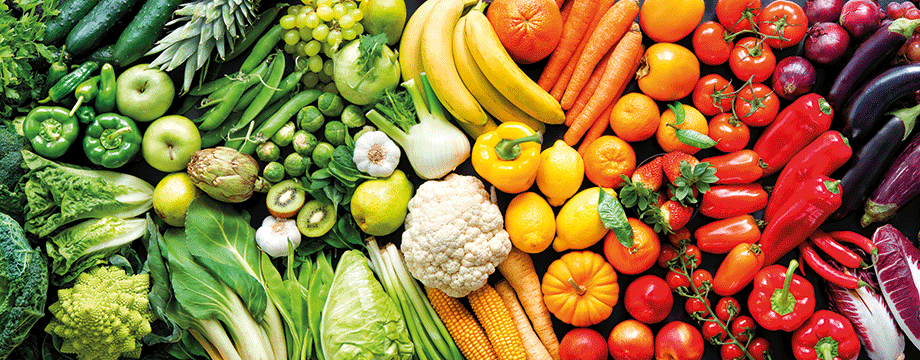
Increased fruit and veg could help prevent diabetes
Boosting fruit and vegetable intakes could help to prevent type 2 diabetes, a new study has shown.
The research was led by a team at the University of Cambridge and published in the British Medical Journal. The researchers analysed data from more than 340,000 adults from eight different countries. The diets and blood samples of 9,754 participants with existing type 2 diabetes were compared with those from 13,662 healthy individuals. Blood levels of vitamin C and carotenoids (bioactive compounds found in orange/yellow/red fruits and vegetables) were assessed and an overall ‘bioactive score’ was calculated.
The results showed that having higher blood levels of vitamin C and carotenoids, as well as a higher overall bioactive score, was statistically linked to a lower risk of type 2 diabetes. The researchers therefore concluded that increasing fruit and vegetable intakes could help to prevent type 2 diabetes.
The researchers also considered which foods in the diet were most associated with a higher bioactive and nutrient score, finding that the top scoring categories for vitamin C were fruit and vegetable juices followed by citrus fruits, fruiting vegetables (e.g. tomatoes, avocados, peppers, courgettes) and cabbage. The top scoring foods for the overall bioactive score were root vegetables, fruit and vegetable juices, fruiting vegetables and citrus fruits.
Dietitian Dr Carrie Ruxton commented: “While it’s important to eat at least five portions of fruit and vegetables daily, this study suggests that certain categories are more effective than others for raising blood levels of specific compounds.”

Lockdown effects on arthritis revealed
People with arthritis saw their symptoms worsen during the Covid-19 lockdown according to research from the University of East Anglia.
A 12-week survey of 264 people with inflammatory arthritis (such as rheumatoid arthritis) found that 39 per cent of patients reported worsening symptoms, and 42 per cent experienced lower energy levels. The majority also spoke of emotional fluctuations, from feeling positive to being isolated, depressed and anxious.
Lead researcher Prof Alex MacGregor, from UEA’s Norwich Medical School, said: “The majority of patients had reduced levels of physical activity, largely because they were not getting out of the house to exercise. The most worrying thing that we found is that a lot of patients reported worsening symptoms, along with lower energy levels. Symptoms such as pain flare-ups and stiffness were in many cases put down to reduced activity and exercise. We also found that some patients were working at home in ways which were not optimal for joint health – such as using laptops on dining tables. Only a few gained support from employers to set up ergonomic work spaces at home. Others struggled with additional demands such as childcare or had less help with household tasks whilst shielding.”
The research team have set out a series of recommendations so that health professionals can better support those at risk of poor health and wellbeing during the Covid-19 pandemic. They hope their work will help people cope better with pain, worry and symptoms during this time.

New study to analyse Covid-19’s effects on sleep
Researchers from the University of Oxford are leading an international study into the impact of the Covid-19 pandemic on sleep and daily rhythms in adults.
During the pandemic, difficulty getting to sleep, difficulty staying asleep and vivid dreaming have been widely reported across the general population. Some people may already have had sleep problems, and these seem to have worsened. Other people who were good sleepers before seem to have developed insomnia. The study will look at changes in sleep quality in relation to social confinement such as a national lockdown or self-isolation, risk of exposure to the virus and psychological symptoms such as anxiety, depression, and post-traumatic stress. The researchers aim to understand how sleep problems have emerged, and to investigate how sleep during Covid-19 has interacted with lifestyle, health and wellbeing.
The study, known as the International Covid-19 Sleep Study (ICOSS), is a large global collaboration involving research institutes in Austria, Canada, China, Finland, France, Germany, Hong Kong, Japan, Norway and the United States. The team will use an online survey to gather data from adults in the UK who are over 18 years old. The data will be collated into a large international database to improve understanding of the worldwide effects of Covid-19 upon sleep.
To take part in the study, visit ndcn.eu.qualtrics.com/jfe/form/SV_9GptjE2PD6YuihL

Lockdown has changed our eating habits
A new survey has found that the lockdown restrictions have had a positive effect on people’s cooking and eating habits. The survey, which was carried out by meal-kit company HelloFresh, found that almost a third (32 per cent) of Brits said the lockdown will change their eating habits for good. Furthermore, 30 per cent of respondents said they had wasted less food since the lockdown began.
The research also found that many people experimented with new ingredients during the lockdown, with coconut milk, chickpeas and sweet chilli being the most popular. Nearly half of Brits (48 per cent) said they had tried up to four new ingredients/recipes during the lockdown with 36 per cent saying they would be more likely to continue being adventurous with new ingredients.

Nutrition students raise funds for care home
Staff and residents at a London care home were delighted when a group of nutrition students raised funds to buy them an industrial blender and fresh produce to make their own smoothies. The students, from CNM (College of Naturopathic Medicine), fundraised to buy a Vitamix and nutritious fresh produce for front-line carer staff at the Muriel Street Care Home in Islington.
The students involved in the initiative included David Kirby, Deborah Bardon-Lisle, Nicholas Grobler, Mo Halloran, Liana Michael, Jacky Lampl and Samreen McGregor. They are all in their first year of nutritional diploma studies. The group said: “Just like many of you, we have been extraordinarily moved by the stoic efforts of front-line staff in their handling of the ongoing battle against Coronavirus. Nursing and care homes seem to have been a bit neglected and we wanted to show our support, especially to one in our local community.”
Fieona Connolly, Lifestyle Lead of the Muriel Street Care Home, said: “We used the blender as part of our Sensory Club. We hold this club each week and yesterday we gave our residents a full tutorial of our new equipment. They tried samples of all the fruit CNM sent, then chose which ones to use to make smoothies. I just wanted the CNM students who raised the money to buy the items to see how much joy they have brought to our residents and team. Thank you so, so much!”
The students are continuing to raise funds for similar activities. To support them, visit: www.gofundme.com/f/NHS-Care-Givers

Natural cosmetic ingredients gaining popularity
The coronavirus pandemic is raising demand for natural ingredients from the personal care industry, according to research company Ecovia Intelligence. Many natural and organic food retailers are reporting a sales surge during the current crisis as consumers are turning to natural and health products to improve their overall health and wellness, as well as disease prevention.
Natural ingredients with antibacterial and antiviral qualities are the most sought after. For example, Australian companies are reporting a surge in demand for lemon myrtle, which is used in hand sanitizers and cleaning products. Tea tree oil, well-known for its antibacterial and antiviral properties, is also experiencing a coronavirus boost. It is used in a wide range of personal care and home care products. Aloe vera is also experiencing high demand. The use of aloe vera has extended from companies to consumers making hand sanitizers at home. Other natural ingredients in high demand include eucalyptus oil, propolis and oregano.
Ecovia reports that the popularity of cannabidiol (CBD) is also continuing during the coronavirus crisis. CBD is featured in many new product launches, including hand sanitizers, creams, lotions and balms. And now consumers are buying CBD products to help give them relieve from anxiety, insomnia and pain.

The miracle of nature
According to new research conducted by Liz Earle Beauty Co., 84 per cent of us say that spending time outdoors helps relieve everyday stress and worries, both of which are at a nationwide high in the current climate.
Being unable to spend time outdoors is clearly having a significant effect on our emotions with almost half (43 per cent) saying that it makes them feel stressed or anxious, 35 per cent saying they feel lethargic when they don’t get to spend much time outside in nature, and 29 per cent saying they feel irritable.
James Wong, Liz Earle Beauty Co. Ethnobotanist says: “Gardening can be a powerful and therapeutic tool for a sense of escapism and wellbeing. There is a growing body of research suggesting that being around plants can reduce stress and anxiety. It can provide not only a welcome distraction from the headlines, but much-needed signs of growth, positivity and a chance to see the miracle of nature at work. There are many other ways that you can experience the benefits of nature to boost your wellbeing by creating a green view from our windows, filling your home with plant-based scents and an indoor edible garden where you can grow your own fruit and veg.”
High-fat meals can hamper concentration
Eating just one meal high in saturated fat can hamper our ability to concentrate, a new study has found. Researchers from Ohio State University analysed how a group of 51 women performed on a test of their attention after they consumed either a meal high in saturated fat or the same meal made with sunflower oil, which is high in unsaturated fat. Their performance on the test was worse after eating the meal high in saturated fat compared to the meal containing the unsaturated fat.
Janice Kiecolt-Glaser, professor of psychiatry and psychology and director of the Institute for Behavioral Medicine Research at Ohio State noted that the results are particularly pertinent at the moment. She highlighted the fact that many people who are stressed by the Covid-19 pandemic are turning to fatty foods for comfort.
“What we know is that when people are more anxious, a good subset of us will find high-saturated-fat food more enticing than broccoli,” said Professor Kiecolt-Glaser. “We know from other research that depression and anxiety can interfere with concentration and attention as well. When we add that on top of the high-fat meal, we could expect the real-world effects to be even larger.”
The study was published in the American Journal of Clinical Nutrition.

Yoga could help to ease migraines
A regular yoga practice could be a useful add-on therapy in the treatment of migraine, a new study has revealed. The research was carried out at the All India Institute of Medical Sciences (AIIMS) in New Delhi, India, and was published in the online issue of Neurology.
The study involved a group of 114 patients aged between 18 and 50 who had been diagnosed with episodic migraine. The participants were randomly assigned into two groups: those who only took medication and those who took medication as well as following a regular yoga practice. After three months, the findings showed that compared to medical therapy, the yoga group demonstrated a significant reduction in headache frequency, intensity and the amount of medication they needed to take.
The study concluded that: “Yoga as an add-on therapy in migraine is superior to medical therapy alone. It may be useful to integrate a cost-effective and safe intervention like yoga into the management of migraine.”

Sugary drinks linked to cardiovascular disease risk
A new study has revealed that women who consume one or more sugary drinks on a daily basis could increase their risk of cardiovascular disease by 20 per cent, compared to women who rarely or never drink them.
The daily consumption of such drinks was also linked with a 26 per cent higher likelihood of needing a procedure such as angioplasty, to open clogged arteries, plus a 21 per cent higher chance of experiencing a stroke.
The research was carried out as part of the California Teacher’s Study which began in 1995 and is ongoing. This involved more than 106,000 women with an average age of 52 who had not been diagnosed with heart disease, stroke or diabetes when they enrolled in the study. The participants recorded what types of drinks they consumed as well as the quantities via a questionnaire. The study defined sugary drinks as being caloric soft drinks, sweetened bottled waters or teas and sugar-added fruit drinks, but not 100 per cent fruit juices.
“Although the study is observational and does not prove cause and effect, we hypothesise that sugar may increase the risk of cardiovascular diseases in several ways,” said senior study author Cheryl Anderson, professor and interim chair of family and public health at the University of California San Diego. “It raises glucose levels and insulin concentrations in the blood, which may increase appetite and lead to obesity, a major risk factor for cardiovascular disease.” The research was published in the Journal of the American Heart Association.
Low flavonoids link to Alzheimer’s risk
A US study has found that older adults who consumed small amounts of flavonoid-rich foods were two to four times more likely to develop Alzheimer’s disease and related forms of dementia over 20 years compared with people whose intake was higher. The research was carried out at Tufts University, Massachusetts. The study involved 2,800 people aged 50 and older who were asked to complete dietary questionnaires approximately every four years.
Flavonoid-rich foods include berries, apples and tea. Flavonoids are associated with various health benefits, including reduced inflammation.
The researchers analysed six types of flavonoids and compared long-term intake levels with the number of diagnoses of Alzheimer’s disease (AD) and Alzheimer’s disease and related dementias (ADRD) later in life. The research team uncovered the following findings:
- Low intake of flavonols (apples, pears and tea) was associated with twice the risk of developing ADRD.
- Low intake of anthocyanins (blueberries, strawberries, and red wine) was associated with a four-fold risk of developing ADRD.
- Low intake of flavonoid polymers (apples, pears, and tea) was associated with twice the risk of developing ADRD. The results were similar for AD.
Paul Jacques, senior author on the study, commented: “The risk of dementia really starts to increase over age 70, and the take home message is, when you are approaching 50 or just beyond, you should start thinking about a healthier diet if you haven’t already.”
The findings were published in the American Journal of Clinical Nutrition.
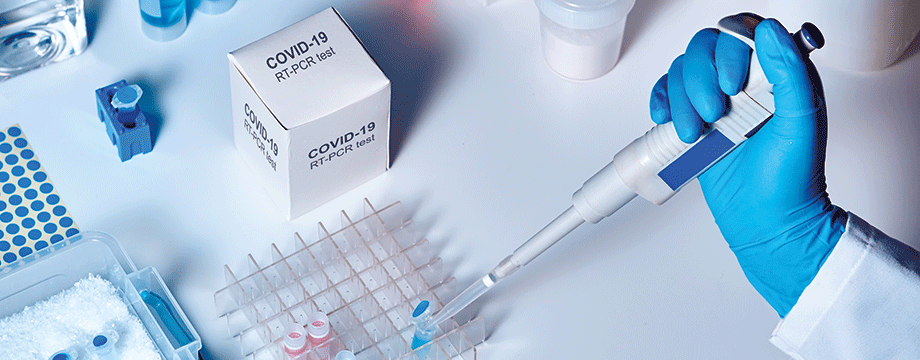
New Covid-19 study aims to identify most at-risk patients
A new study by researchers at the University of Bristol will link hospital and GP practice data to identify patients who are most at risk of harm from coronavirus.
The study will link routine health data recorded in GP surgeries to the records of the most severely ill patients admitted to hospital intensive care units. The linked data will then be analysed to find out which existing health problems, drug treatments, or other factors, such as smoking or pregnancy, are most strongly associated with people being admitted to intensive care or dying due to the virus. Knowing more about who is most at risk of harm will enable health care professionals to advise patients on how to minimise their exposure to the virus, make decisions about when to treat people – earlier for those most at risk – and prioritise treatments for those who are most likely to benefit.
Dr Rupert Payne, Consultant Senior Lecturer in Primary Care at the Centre for Academic Primary Care and lead researcher on the project, said: “We hope our research will inform the ongoing response to Covid-19, as well as serving as an invaluable resource for future research looking at the wider impact of the pandemic on primary care health services.”

Free copies of Your Healthy Living magazine for NHS Hospitals
Your Healthy Living magazine has teamed up with Gold Key Media and Project Wingman to supply NHS Hospitals – including St Thomas's and the Woolwich Hospital, plus many other sites in London – with copies of Your Healthy Living.
Gold Key Media has re-charge hubs in many hospitals and has now also teamed up with Project Wingman, an initiative set up by furloughed aircrew. The project is creating first class lounges in hospitals to help look after NHS workers, providing food, drinks and various free publications. In some they even have beauty products and care packages to give away.
These re-charge areas allow NHS staff some small moments of relaxation and escapism, before they head back to the wards. The scheme is growing daily – London is just the start – and there will soon be similar lounges/areas in many hospitals throughout the UK. We will continue to provide Gold Key Media with as many copies of Your Healthy Living magazine as we possibly can.

Researchers to study mental health effects of COVID-19
Researchers are conducting a new study into the mental health and wellbeing effects of the COVID-19 pandemic in adults across the UK. The study will aim to understand the impact of the pandemic, and the unprecedented social distancing measures introduced across the country, on mental health indicators such as anxiety, depression, loneliness, self-harm or positive mental wellbeing.
The University of Glasgow is leading the study, in partnership with Samaritans and SAMH (Scottish Association for Mental Health). The researchers have recruited 3,000 adults from across the UK and will track their mental health and wellbeing – as well as their experience of COVID-19 – over the next six months and beyond.
Professor Rory O’Connor, from the University of Glasgow’s Institute of Health & Wellbeing, who is leading the study, said: “We are living through exceptional times, that people will find unsettling, and leave them uncertain of what the future may bring. In this study, we aim to understand the psychological impact of COVID-19 on adults across the UK. No one knows for certain what the impact will be, but by tracking a representative sample of the UK public, we will be able to identify who is most vulnerable and what helps to keep people safe and well.”
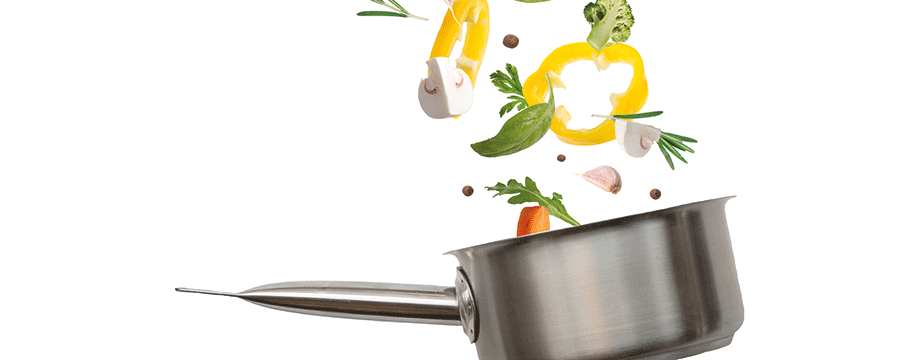
Cooking skills on the increase
More people are learning to cook, cooking from scratch and appreciating the value of food since the coronavirus lockdown was put in place. These are some of the findings from a new study carried out by environmental charity Hubbub. Of the 2,000+ UK adults surveyed, 45 per cent of respondents say they are cooking more since the restrictions were introduced to stop the spread of coronavirus.
Almost half (47 per cent) of those aged 16 to 24 are seeing lockdown as an opportunity to improve their cooking skills, compared with a national average of 34 per cent. Furthermore, over half of people (57 per cent) say they value food more now since the coronavirus restrictions started, with 43 per cent saying they are also enjoying their food more. Whilst a reconnection with food has been a positive experience for some, for others the pandemic has reduced their food security. 45 per cent of respondents said they were more worried about food than before and 43 per cent are worried about the extra cost of providing food for their household. For more advice and tips to make your food go further, visit www.foodsavvy.org.uk
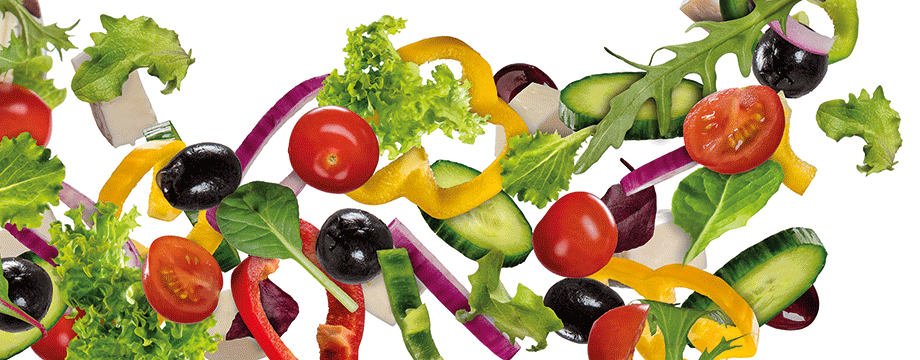
Organic foods receive a boost
An increased demand for organic and sustainable foods has been reported as a result of the coronavirus pandemic. Retailers around the world are experiencing hefty sales increases for organic products, according to Ecovia Intelligence, with online retailers reporting the highest sales growth. However, organic and health food shops have remained open in many countries and are attracting new shoppers. According to Ecovia: “COVID-19 is raising consumer awareness of the relationship between nutrition and health. Consumers are buying more organic and healthy foods as they look to boost their personal immunity.”
The surge in demand is however bringing supply issues. The organic food industry is now global with international supply networks that are coming under pressure. Many of the raw materials used by European and North American organic food companies are produced in Asia, Latin America and Africa. Lockdowns are disrupting supply chains. For instance, India is a major source of organic tea, herbs, spices and related ingredients. Emergency measures introduced in March have halted food processing and exports. On the positive side, Ecovia expects demand for organic and sustainable foods to remain strong after consumer fears subside.

Kids’ healthy eating lessons launched
The British Nutrition Foundation (BNF) has released a range of free remote learning activities aimed at helping parents to educate their children about food and healthy eating while the country remains in lockdown. The Food – a Fact of Life (FFL) Classroom will help youngsters to learn about where food comes from as well as cooking and healthy eating. Some examples of the activities include counting different foods in the kitchen to practise numeracy, learning about the science of natural food colourings and matching foods with the vitamins and minerals they provide. New resources and activities will continue to be released every two to three weeks until 1 September.
For more information, visit www.foodafactoflife.org.uk

Cherry juice may support immunity
A study has shown that taking Montmorency cherry juice daily may support your immunity and help prevent respiratory infections. The UK research team, led by Glyn Howatson at Northumbria University and Lygeri Dimitriou at Middlesex University, found that marathon runners who consumed Montmorency cherry juice had lower markers for inflammation than a placebo group at 24 and 48 hours post-marathon, and had no reported incidences of upper respiratory tract symptoms (URTS) up to 48 hours after the race. For the runners who did not drink Montmorency cherry juice, 50 per cent suffered from URTS. The study was published in the Journal of the International Society of Sports Nutrition.
Glen Howatson commented: “Many athletes can suffer from colds and sore throats following strenuous bouts of exercise, like marathon running and triathlons. This is the first study to provide encouraging evidence of the potential role of Montmorency tart cherries in reducing symptoms associated with the development of exercise-induced respiratory problems. We should be looking at all the potential ways we can help athletes recover from strenuous exercise, and protection of the respiratory system is another dimension.”
Although this study was performed with athletes, drinking Montmorency cherry juice may help prevent upper respiratory tract symptoms in other groups, through keeping the immune system strong. This is particularly important for groups who may be at increased risk of infection, including the elderly, people with underlying health conditions and people with compromised immunity.

Dedicated followers of fitness
Home workouts have soared in popularity as a result of the coronavirus lockdown, new research has revealed. According to findings from Mintel, 26 per cent of Brits have taken part in more home workouts including online classes, exercise bikes and yoga.
Those aged between 16 and 24 are among those most likely to be jumping, stretching and cycling through the crisis. One in seven Brits aged 65+ are embracing fitness from the comfort of their home. Additionally, almost a third (31 per cent) of parents with children under four have stepped up their home exercise.
Mintel spokesperson Paul Davies, said: “With Brits spending the majority of their days at home, there has been an explosion of online fitness programmes, notably ‘The nation’s P.E. teacher’ Joe Wicks who has tailored workout programmes for toddlers through to seniors.
These programmes have enabled Brits to maintain their fitness in the comfort of their homes while not risking contravening the social distancing rules.”

Mediterranean diet linked to healthy ageing
The Mediterranean diet has long been the focus of countless studies into health and wellbeing. Now, a new study has found that older people who followed the diet for a year experienced beneficial improvements in their microbiome linked to healthy ageing as well as a reduction in bacteria associated with harmful inflammation.
The research involved 612 people aged between 65 and 79, from five European countries. Half of the group switched their normal diet to a Mediterranean diet for a year. This required them to eat more vegetables, fruits, legumes, nuts, olive oil and fish, and to consume less red meat, dairy products and saturated fats. The other half of the group continued with their usual diet. After a year, the people following the Mediterranean diet were found to have better bacterial diversity in the gut, compared with those in the control group.
This improved gut bacterial diversity was linked with improved markers of frailty, including better walking speed, better handgrip strength, and improved cognitive functioning. The participants who followed the Mediterranean diet also displayed fewer markers of chronic low-grade inflammation. The findings were published in the journal Gut. The researchers stated: “Collectively, our findings support the feasibility of improving the habitual diet to modulate the gut microbiota which in turn has the potential to promote healthier ageing.”

How to survive working from home
With millions of people potentially having to swap their office desks for the kitchen table in the coming weeks due to the outbreak of COVID-19, these tips from Tara Mestre (www.theinsightpath.com) could help you to manage the transition in a peaceful and balanced way.
Stick to your routine
When your desk is in the same building as your bed it’s easy to shun the alarm. This leads to oversleeping and does not set you up for a productive day. Stick to your routine, set your alarm and try to do everything you normally do on a working day.
Entertain your kids
With many kids staying home from school and childcare facilities closing, you may find yourself at home with the entire family, making work a little challenging. Audiobooks, educational cartoons, documentaries, arts and crafts are a great way to keep kids occupied so that you can get some work done.
Get physical
Use this time at home to increase your physical movement. Go for walks (if you can!) or make the most of the thousands of free yoga and exercise resources online. If your local gym or yoga studio is closing, ask the teachers if they are willing to do online classes, helping to financially support them in this difficult time.
Stay connected
If you are feeling lonely due to lack of interaction with colleagues, schedule online meetings or catch up group calls using platforms like Zoom, Skype or FB messenger. Staying connected is key to avoiding bouts of loneliness, anxiety and stress.
Create a nice atmosphere
Working from home means you get to control your environment. Burn some sweet-smelling candles, use an oil diffuser, turn on the radio and turn your home into an idyllic work environment.

Did you know?
67% of UK adults suffer from disrupted sleep and nearly a quarter (23%) manage no more than five hours a night.
Source: Aviva

Balanced protein intake can reduce age-related muscle loss
Eating more protein at breakfast or lunchtime could help older people maintain muscle mass with advancing age. However, most people eat proteins fairly unevenly throughout the day, new research at the University of Birmingham has found. The body’s mechanisms for producing new muscle require regular stimulation to function efficiently – this stimulation happens when we eat protein. The mechanisms are less efficient in older people, so they need to eat more protein to get the same response as younger people. But just eating more protein is not enough, though. Older people also need to spread that intake evenly across all their meals to ensure they maximise the benefits of protein for muscle mass.
The researchers studied the dietary intake of young, middle-aged and old-aged individuals with a particular focus on the amount, pattern and source of protein consumed. Their results showed that, while the majority of individuals across all three groups met or exceeded current national guidelines (RDA) for protein intake, the protein intake and distribution across daily meals and snacks was very varied. Most noticeably, the team found that old people, compared to young and middle-aged individuals, were more likely to eat a lower-quality protein source, such as bread, at lunchtime.
Future areas for research include studying how protein needs in hospitalised individuals could aid the maintenance of muscle mass, and to further elucidate the interaction between physical activity and protein consumption in the fight against age-related muscle loss.
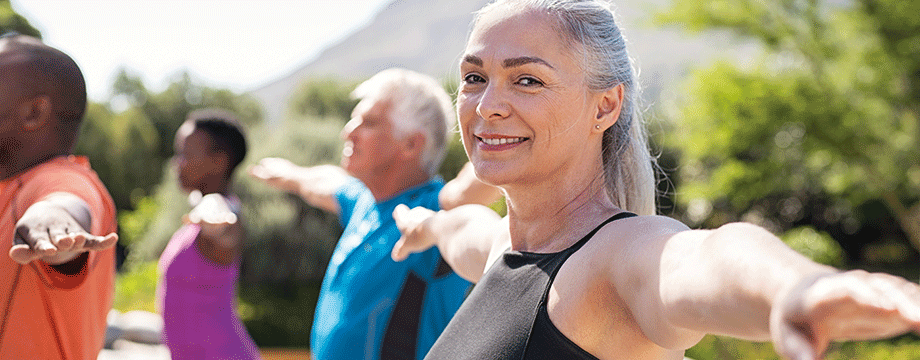
One minute of weekly exercise provides health benefits to the elderly
New research has revealed that just one minute of exercise per week is enough to provide health benefits to people over the age of 65. The study, from Abertay University in Dundee, saw groups of 65 to 75-year-olds participate in either once or twice-weekly training sessions for a period of eight weeks. Each had been living a sedentary lifestyle and had not been taking part in regular exercise. The participants cycled on stationary bikes as hard as possible for six seconds before resting for at least a minute. They then repeated the process – which is known as sprint interval training (SIT) – until they had exercised for one minute.
Experts found that the once weekly session was enough to produce improvements in blood glucose control and general mobility. As people age, they lose the ability to take glucose out of their blood which results in insulin resistance. This can lead to Type 2 diabetes and problems with the heart and liver.
Dr John Babraj, who led the study, said: "While those participating in the twice-weekly sessions observed a greater improvement, those taking part in the single session also observed change. Importantly, they also observed a difference in general function, greatly improving their ability to do everyday tasks such as getting up to answer a door and walk up and down stairs. These are major issues for older people. As we lose physical function, we start to become socially isolated, and as we become socially isolated our quality of life declines significantly."
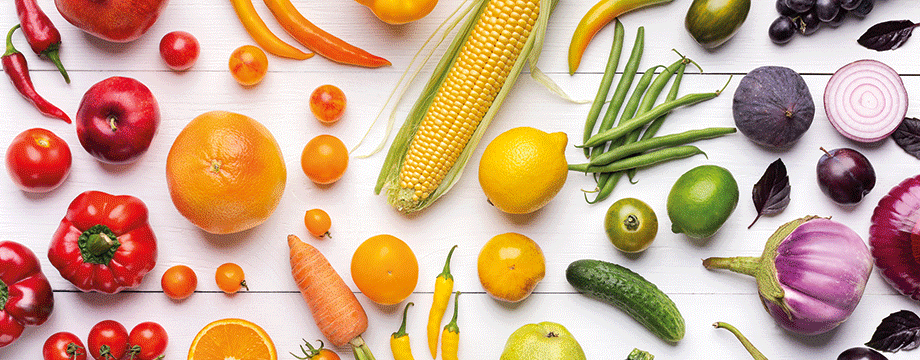
Can you take on the meat-free challenge?
Macmillan Cancer Support’s new fundraising campaign, Meat Free March, is asking people to give up meat for the month of March, with every penny raised going towards providing physical, financial and emotional support to people living with cancer. In order to help you during your challenge, there is a wide selection of veggie recipes from the likes of Fearne Cotton and the Body Coach, Joe Wicks, on the Macmillan website, along with fundraising tips, a countdown planner and ready-made social media posts and posters to download and encourage donations.
To find out more and register, visit meatfree.macmillan.org.uk
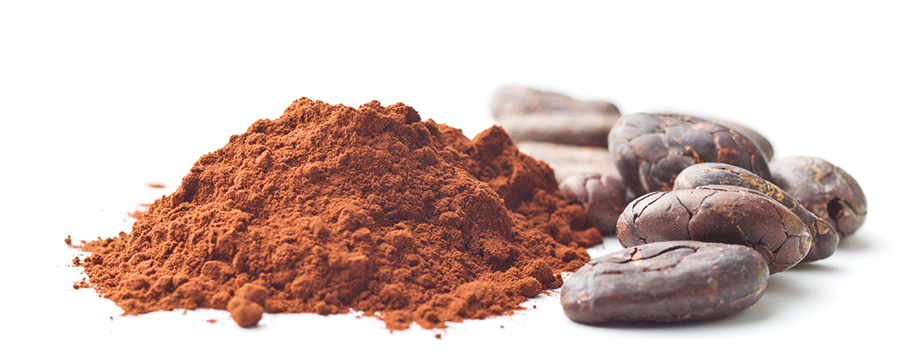
Did you know?
There are over 6,000 Fairtrade products from coffee and tea to flowers and gold, so when you shop, look for the FAIRTRADE mark. Fairtrade is about better prices, decent working conditions, local sustainability, and fair terms of trade for farmers and workers in the developing world. This year’s Fairtrade Fortnight is taking place from 24 February to 8 March 2020 and the emphasis is on cocoa farmers in West Africa and their right to earn a living income. To become involved in the campaign and find out more, visit www.fairtrade.org.uk
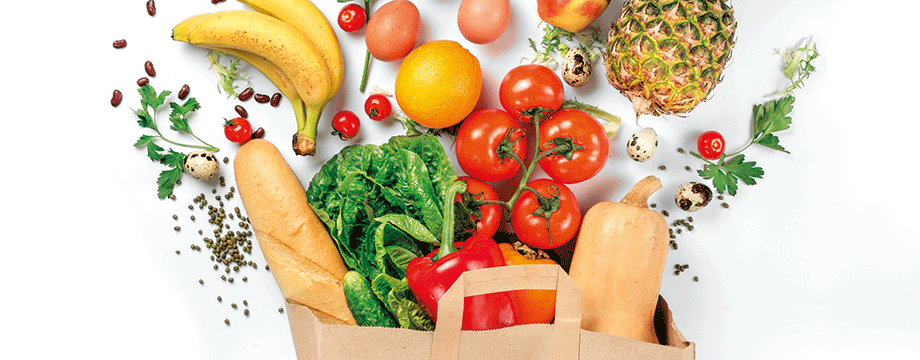
Record growth continues for the organic market
The organic market continues to grow, increasing by 4.5 per cent in 2019 to reach a record £2.45 billion. This was just one of the findings that were revealed in Soil Association Certification’s annual Organic Market Report 2020. The report also revealed that £200 million a month is now spent on organic food and drink as the rise of the ‘conscious consumer’ sees shoppers making two more trips to buy organic than they did five years ago. Indeed the UK organic market is expected to be worth £2.5 billion by the end of 2020. The report shows growth across all areas, including supermarkets, home delivery, foodservice and independent retail, as demand for organic continues to increase across the UK. Independent retailers, the traditional high street home of organic, enjoyed a 6.5 per cent rise in sales of organic in 2019.
Clare McDermott, Business Development Director at Soil Association Certification, said: "With the climate crisis and British farming dominating the headlines, organic is more relevant than ever as a way for shoppers looking for simple choices to reduce their environmental impact. 2019 was another exciting year for organic and 2020 will be a tipping point where organic becomes the go-to choice for shoppers who want to have a sustainable shopping basket."
Brand co-owner’s charity pledge
The co-owner of a natural skincare brand has pledged to donate 10 per cent of sales from one of her key products to the Pancreatic Cancer Research Fund in memory of her father who died from the disease.
Claudia Talsma, co-owner of Salcura, lost her father to pancreatic cancer in 2006 and has since organised a number of fundraising efforts in his memory, including running several 10k races in locations such as Florida, Verona and the Netherlands.
Now, Claudia is donating 10 per cent of sales of Salcura’s Bioskin Dermaspray Intensive to help raise funds for pancreatic cancer research. Each year around 10,000 people in the UK are diagnosed with pancreatic cancer. It has the lowest survival rate of all cancers – just five per cent of those diagnosed survive beyond five years. This figure has barely improved in 40 years. The Pancreatic Cancer Research Fund is dedicated exclusively to funding and promoting research into the disease.
To find out more, visit pcrf.org.uk/

Dry January and beyond
In recent years, increasing numbers of people have pledged to give up alcohol for the month of January as part of the Dry January initiative. However, new research shows that over half of Millennials (54 per cent) are pledging to give up alcohol for more than just one month in 2020. According to new YouGov statistics commissioned by One Year No Beer (OYNB), Baby Boomers also seem committed to going alcohol-free with a quarter (25 per cent) saying they’ll quit for at least a month in the next year.
The statistics have been compiled in a report called One year, no beer? How going alcohol-free long-term can overhaul your life, which examines the broad social and health benefits of cutting out alcohol.
Millennials (18 to 34-year-olds) are most likely to say they don’t like missing out on exercise as a result of being hungover (17 per cent) while two fifths (20 per cent) say they are actually choosing to cut out booze as a way of improving their mental health.
Professor Kevin Moore from the Royal Free Hospital, London, co-authored one of the largest ever studies into the effects of a four-week break from alcohol in 2015.
He said: “Our research has found that stopping drinking hugely improves the sleep quality of patients who were previously moderate drinkers. We recently studied the effects of short-term abstinence and we found that at the end of a month of not drinking, 80 per cent of the patients said they felt so much better that they didn’t want to return to drinking alcohol as heavily as before.”

Another good reason to put the kettle on
A new study has shed light on the impact that drinking tea can have on our gut bacteria. The findings, which were commissioned by the Tea Advisory Panel (TAP) and published in Nutrients Journal, combine the results from 21 studies which examined the impact of different teas on gut health. The results showed clear differences in the types of bacteria thriving in the gut after regular tea drinking, with the balance changed towards healthier strains and away from those linked with infection and even obesity.
Natural health chemist, co-author and adviser from TAP, Dr Tim Bond explains: “We are now much more aware that our gut bacteria have a massive impact on health including influencing whether we develop obesity, diabetes or bowel diseases. Everyone knows that fibre or probiotics can help change gut bacteria towards more favourable strains so it was a pleasant surprise to discover through this research that a simple cup of tea can also be effective. The studies we evaluated seemed to be most successful when participants drank 4-5 cups of tea daily, with significant increases seen for bifidobacteria – a type of bacteria that is thought to help improve our immune defences by crowding out potentially harmful pathogens.”

Campaign launched to encourage kids to eat more veg
A new project has been launched to encourage children to eat more vegetables.
The See & Eat project was launched in response to evidence that children who are exposed to pictures of vegetables are more likely to eat them. As part of the campaign, 24 new eBooks have been made available to download for free along with other resources including meal planners, shopping lists and family-friendly recipes, developed to support parents and carers in encouraging their children to eat more vegetables. The books each tell the farm-to-fork journey of a different vegetable and can be personalised with pictures, videos and text. The initiative is being led by Professor Carmel Houston-Price at the University of Reading and supported by the British Nutrition Foundation (BNF).
Dr Natalie Masento, a collaborator on the project at the University of Reading, comments: “It is well established that children often need 10 to 15 exposures to new foods before they accept them into their diets. But, having to prepare different vegetables on more than 10 occasions, without them being eaten, can be very frustrating – and costly – for many parents. Research has shown, however, that children’s acceptance of new foods can be boosted purely by a food’s visual familiarity, for instance by looking at pictures.”
For more information, visit www.foodunfolded.com
Here’s to a new year!
According to research from the University of Minnesota, six weeks after people make their New Year’s resolutions, 80 per cent of them have either broken them or couldn’t remember what they were. If this sounds familiar, you might be one of the many people hoping that 2020 will be the year – or indeed decade – to finally make your resolutions stick.
“The beginning of a brand new decade is the perfect time to make all those changes you’ve been thinking about,” says Julie Provino, a mindfulness and NLP coach, and author of How to Get What You Want in 7 Weeks (www.julieprovino.com). “Self-improvement isn’t about going in all guns blazing for 31 days, it’s a lifestyle change. You know what steps you need to take, so the difficult part is already done.”
According to Julie, what’s needed is “honesty and commitment” in order to achieve your personal goals.
“Be excited about your plans to become a better person,” she says. “Your enthusiasm will spur you on to achieve 100 per cent. Take time out to visualise yourself achieving your goals, create a mood board, and tell all your family and friends. They’ll provide you with an extra layer of support to help you succeed. Imagine how amazing you’ll feel when you’ve achieved your goals, and keep the positive vibes going every single day. Finally, take time to constantly remind yourself that you deserve to achieve the best.”
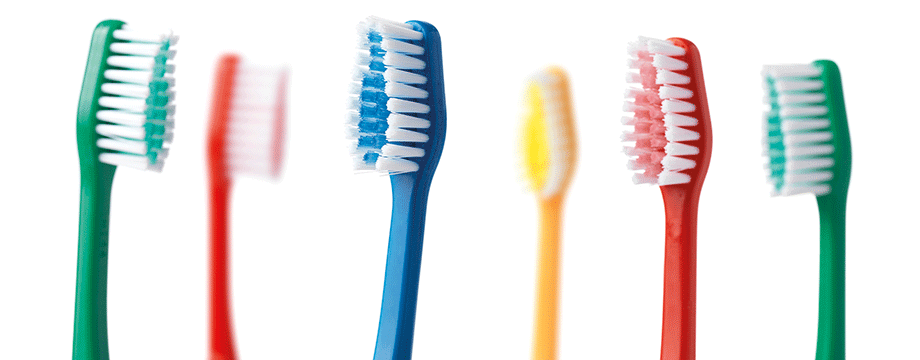
Gum disease doubles stroke risk, new study reveals
People with gum disease are around twice as likely to have a stroke, a new study has found. The researchers, from Brazil and Canada, discovered that when the gums bleed and become inflamed, this leads to changes in how blood and oxygen flows to the brain.
The study, which also examined more than 2,000 previous studies into the area, supports previous studies that have linked a heightened stroke risk with gum disease. The findings were published in Vascular Health and Risk Management.
Gum disease currently affects around 45 per cent of the adult population, according to the British Society of Periodontology. The first sign of gum disease is when the gums start to bleed.
In response to the findings, the Oral Health Foundation is encouraging everyone to ensure they pay close attention to their oral health. The organisation recommends brushing teeth twice a day and cleaning in between teeth with ‘interdental’ brushes or floss. If you have bleeding gums, the first thing to do is visit your dental team for a thorough check-up of your teeth and gums. For more information about gum disease, visit www.dentalhealth.org.

Did you know?
More than 250,000 people from 159 countries took part in Veganuary 2019 by signing up and taking the pledge to go vegan for the month of January.
This is an increase of 49 per cent compared to the 2018 campaign. It is thought that 10 times more people take part in Veganuary than sign up on the website.
For more about the campaign and some delicious vegan recipes, click here .

Late eating linked to heart disease risk
New research has shown that for women the timing and proportion of their daily calories may have an effect on their risk of cardiovascular disease.
Researchers from Columbia University assessed the cardiovascular health of 112 women (average age 33, 44 per cent Hispanic) at the beginning of the study and one year later. The participants kept food diaries recording what, how much and when they ate for one week at the beginning of the study and for one week 12 months later. Data from the food diary completed by each woman was used to determine the relationship between heart health and the timing of when they ate. The researchers found that while most study participants consumed some food after 6pm, those who consumed a higher proportion of their daily calories after this time had poorer heart health. Also, with every 1 per cent increase in calories consumed after 6pm, heart health declined. Specifically, women who consumed more of their calories after 6pm were more likely to have higher blood pressure, higher body mass index and poorer long-term control of blood sugar. Similar findings occurred with every 1 per cent increase in calories consumed after 8pm.
Lead study author Nour Makarem, Ph.D., an associate research scientist at Columbia University’s Vagelos College of Physicians and Surgeons in New York, said: “These preliminary results indicate that intentional eating that is mindful of the timing and proportion of calories in evening meals may represent a simple, modifiable behaviour that can help lower heart disease risk.”
The results were due to be presented at the American Heart Association’s Scientific Sessions 201 in Philadelphia.

MasterChef champion heads up coeliac disease campaign
National charity Coeliac UK has announced that Jane Devonshire, champion of MasterChef 2016, is its new ambassador who will spearhead a 2020 campaign aimed at helping children living with undiagnosed coeliac disease.
Coeliac disease is not an allergy or an intolerance but an autoimmune disease where the body’s immune system damages the lining of the small bowel when gluten, a protein (found in wheat, barley and rye) is eaten. There is no cure and no medication; the only treatment is a strict gluten-free diet for life.
Jane’s youngest son Ben was diagnosed with coeliac disease when he was just two years old. She said: “I’ve seen first-hand the difference that early diagnosis can make and I want to help the charity reach more parents and carers who might be struggling and searching, sometimes for many years, to find answers to their child’s ill health.”
Symptoms of undiagnosed coeliac disease in children include diarrhoea and other unexplained gut symptoms, faltering growth or unexpected weight loss, dental enamel defects and a bloated tummy.
For further information, visit www.coeliac.org.uk

Insomnia link to heart attack and stroke
People who suffer with insomnia may be at greater risk of having a stroke, heart attack or similar diseases, according to new research from China.
The study involved 487,200 people in China with an average age of 51 who had no history of stroke or heart disease at the beginning of the study. The participants were asked if they had any of three symptoms of insomnia at least three days per week: trouble falling asleep or staying asleep; waking up too early in the morning; or trouble staying focused during the day due to poor sleep. They were then followed for an average of 10 years. During that time, there were 130,032 cases of stroke, heart attack and other similar diseases. Those who had all three symptoms of insomnia were 18 per cent more likely to develop these diseases than people who did not have any symptoms.
“These results suggest that if we can target people who are having trouble sleeping with behavioural therapies, it’s possible that we could reduce the number of cases of stroke, heart attack and other diseases later down the line,” said study author Liming Li, MD, of Peking University in Beijing.
The results were published in Neurology®, the medical journal of the American Academy of Neurology.

Nature nurtures children, says new report
Children’s health and wellbeing increases after spending time connecting with nature, a new report has revealed. The research, which was commissioned by The Wildlife Trusts, focused on over 450 primary school children and the effects of outdoor activities on their wellbeing.
The activities involved children learning about nature, such as identifying plants and trees, reflecting on their important role in our lives and considering the needs of wildlife habitats. The ‘nature connection’ of the children was also measured. This refers to the level at which a person considers nature to be a part of their identity, reflecting their emotional closeness to the natural world. Nature connection essentially includes a love of nature and care and concern for the environment.
The results showed that, following the activities, 79 per cent of the children felt more confident in themselves, 81 per cent agreed that they had better relationships with their teachers and 79 per cent reported better relationships with their classmates.

Avocados may help prevent diabetes
Avocados may help to delay or prevent diabetes, according to new findings from Canadian researchers. Researchers from the University of Guelph have demonstrated that avocatin B (AvoB), a fat molecule found only in avocados, can inhibit cellular processes that normally lead to diabetes. In safety testing in humans, the team also found that the substance was absorbed into the blood with no adverse effects in the kidney, liver or muscle. The researchers now plan to conduct clinical trials to test AvoB’s efficacy in treating metabolic ailments in people. The findings were published in Molecular Nutrition and Food Research.

Report warns of ‘cocktail effect’ of pesticides
A new report has revealed that around a quarter of all food, and over a third of fruit and vegetables consumed in the UK contain pesticide ‘cocktails’, with some items containing traces of up to 14 different pesticides.
The report, released by PAN UK and the Soil Association, highlights evidence of pesticide cocktails in the environment, with mixtures of as many as 10 different chemicals found in UK soil and water with the potential to affect wildlife such as birds and bees.
This ‘cocktail effect’ comes from constant exposure to a wide array of different chemicals which can interact to become more toxic.
The report warns that post-Brexit trade deals could lead to a rise in the number of pesticides authorised for use in the UK and an increase in the level and variety of pesticides permitted in food. Both outcomes would increase the exposure of the public and environment to potentially dangerous pesticide cocktails.
Rob Percival from the Soil Association said: “The UK Government has committed to reducing pesticide use, but the support farmers need to transition away from pesticides simply isn’t in place. The Government urgently needs to support farmers to adopt nature-friendly, agroecological approaches that don’t rely on pesticides, including organic, to better protect both human health and the natural world. Brexit poses real threats to food and farming, but it also provides an opportunity to do things differently, if the right policies and legislation are put in place.”

Survey sheds light on indoor pollution
New research has revealed a lack of awareness about indoor pollution, particularly among families who experience respiratory problems.
The survey, which was carried out among parents who have a child with asthma, respiratory problems or allergies, found that fewer than half (49 per cent) had heard of indoor pollution and only a quarter (26 per cent) had concerns about poor air quality indoors. Only a quarter (28 per cent) realised they could be exposed to air pollution inside their homes, compared to 71 per cent who perceived it as a problem on city streets.
Dr Chris Etheridge, a medical herbalist, clinician and adviser to Puressentiel, the essential oil brand behind the survey, said: “There is so much media focus on outdoor pollution and vehicle emissions that we barely give a thought to the air quality in our homes – and when we do think about indoor air quality, it’s usually in terms of neutralising nasty odours rather than potential problems from airborne toxins. Sadly, this often compounds the problem, because our most common strategies for eliminating odours are air fresheners and scented candles which add to airborne pollution rather than reduce it.”
He added: “Pollution and respiratory problems are now so endemic there is a temptation to assume there is nothing we can do to stem the tide. But that is far from the case. Simple measures which make a difference include airing rooms regularly, washing bedding at 60°C and popping soft toys into the freezer to kill mites.”
Women opt for the natural way
Women are more likely to try and get themselves better when they feel unwell, compared to men.
The findings, which were published in the STADA Health Report 2019, reveal that 36 per cent of women say they self-medicate with household remedies, such as honey and lemon, peppermint or a hot water bottle, with a minor illness as opposed to going to the chemist or doctors for medication. Only 23 per cent of men said the same.
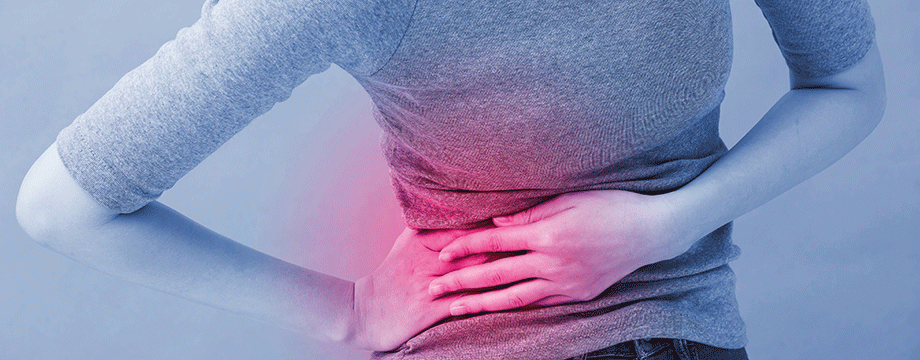
Liver damage on the increase, charity warns
The British Liver Trust has warned that damage to the liver caused by alcohol and unhealthy lifestyles is leading to an increase in liver cancer diagnoses in the UK. In just 10 years, the incidence of liver cancer has increased by 60 per cent and currently 16 people every day are diagnosed with the disease. Most cases of primary liver cancer are linked to cirrhosis (damage and scarring) of the liver. Nine in 10 cases of cirrhosis of the liver is caused by alcohol, obesity and hepatitis infections.
The British Liver Trust’s Love Your Liver campaign focuses on three simple steps to Love Your Liver back to health. These include drinking within recommended limits and having three consecutive days off alcohol every week; cutting down on sugar, carbohydrates and fat, and taking more exercise; and knowing the risk factors for viral hepatitis and getting tested or vaccinated if at risk. To find out more, visit britishlivertrust.org.uk/screener

Vitamin D by oral spray is just as effective as tablets, research states
Researchers have discovered that taking vitamin D via an oral spray is just as effective as taking it through capsules. The researchers from the University of Sheffield compared the rate of change of vitamin D status in response to a vitamin D3 (3000IU per day) dose, in both capsules and oral sprays. Healthy volunteers took vitamin D over the course of six weeks in 2017 during the height of winter – a time when many people’s stores from the summer months are depleted. The findings, published in the European Journal of Clinical Nutrition, concluded that the oral spray method of vitamin D was equally effective as taking a capsule and supported the same rate of improvement in vitamin D levels amongst the trial volunteers.
Dr Bernard Corfe, Senior Lecturer in Molecular Gastroenterology at the University of Sheffield and Principal Investigator for the trial, said: “All participants achieved adequate levels of vitamin D after just 21 days of using an oral spray, with those individuals who were considered severely deficient at the beginning of the trial (with levels lower than 25(OH)D) experiencing the most effective uptake of the supplement.” The trial was conducted through an industry partnership with BetterYou who previously developed the UK’s first vitamin D oral spray.
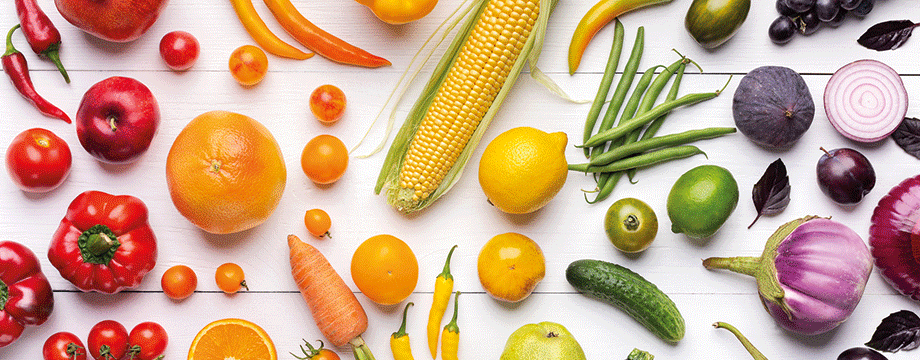
Good nutrition is key during a breast cancer diagnosis
“If breast cancer seems ubiquitous these days, it’s because it basically is,” says Dr Caroline Hoffman, Clinical and Research Director, Breast Cancer Haven. “One in eight women will receive a diagnosis in their lifetime. October is Breast Cancer Awareness Month – an international campaign designed to raise awareness of breast cancer and funds for research and treatment. This October, around 5,000 women will be diagnosed with breast cancer.
Treatment takes a huge physical toll and eating well can often slip off the radar. It’s time-consuming to buy and cook everything while nausea brought on by chemotherapy can make food unpalatable. But nutrition has a huge impact on our immune system, our mood, our hormonal function and our energy levels.”
So, how can we get it right? “At Breast Cancer Haven, we recommend some basic principles as a guideline, although individual needs may differ,” says Dr Hoffman. “Stick to a fresh and colourful range of mainly veg and some fruit to make up around half of your diet to get the different antioxidants. Protein should be included with each meal but limit red meat to twice a week. Oily fish, pulses and dairy are also great sources. Organic food is healthier for us and the planet especially (but not only) meat and dairy products. If this is not possible, the fresher the better. When it comes to carbohydrates, try to stick to whole grains as refined carbs can worsen fatigue. Healthy fats can easily come from sources like nuts and seeds. Finally, remember to stay hydrated, especially during medical treatment. We do not recommend that you drink alcohol during your treatment. It causes dehydration, hot flushes and can influence oestrogen levels, particularly in post-menopausal women.”

Vitamin D deficiency linked with increased risk of death
Vitamin D deficiency has been linked with a significantly increased risk of death, particularly in younger and middle-aged people, new research has found.
The researchers, from the Medical University of Vienna, examined data from 78,581 patients who had their vitamin D levels measured between 1991 and 2011. Participants with a vitamin D level of less than 50 nmol/L were deemed to be deficient. The researchers defined a high level of vitamin D to be 90 nmol/L, whereas 10 nmol/L was considered to be a low level.
The researchers then compared these results with the Austrian national death register to see how many participants died in a 20-year follow up period. The data showed that there were 11,877 deaths in that time.
The study found vitamin D levels of 10 nmol/L or less were linked with a two- to three-fold increase in risk of death of any cause. This link was particularly strong for patients aged between 45 and 60, who had a 2.9 times increased risk. High levels of vitamin D (90 nmol/L or more), were linked with a 30 to 40 per cent reduced risk in all-cause mortality. Again the link was strongest for those aged between 45 and 60, who showed a 40 per cent reduction in risk.
The researchers commented: “Our findings strengthen the rationale for widespread vitamin D supplementation to prevent premature mortality.”
Health benefits revealed for vitamin D and omega-3
New findings have revealed health benefits associated with taking vitamin D and omega-3 fatty acids. A total of 25,871 people took part in the five-year clinical trial conducted by US researchers. Some of the participants were given either vitamin D or fish oil; others were given both and the remaining participants took neither supplement. The results showed that omega-3 supplementation was linked with a lower risk of heart attacks. The study participants ate an average of 1.5 servings of fish per week, and those who ate less than the average seemed to benefit most from the supplement. Meanwhile, vitamin D supplementation was linked with a lower risk of dying of cancer in people of a normal weight – or a BMI of 18.5 to 25. The findings were presented at the 30th Annual Meeting of The North American Menopause Society (NAMS).
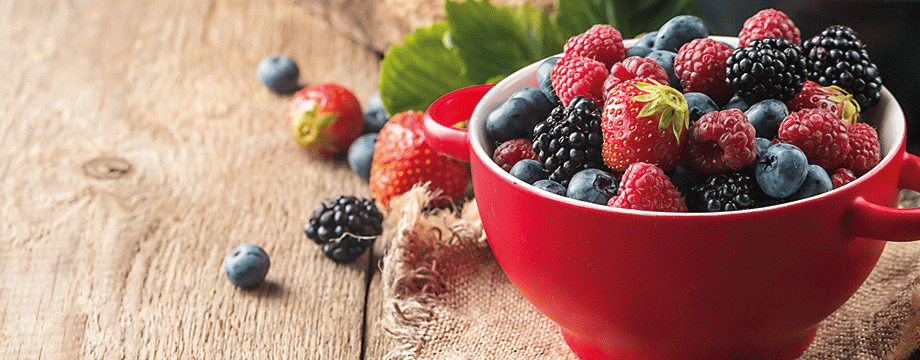
Berries may help to heal wounds
New research has revealed that berries may help to heal wounds. The research, published in the journal of Food Research International, analysed the anti-inflammatory and wound healing properties of strawberries and blackberries. The scientists found that blackberries were particularly good at helping to suppress reactive oxygen species (molecules that are produced when tissues are injured). Berry proanthocyanidins – the very compounds that give berries their red, blue, or purple colours – also appeared to reduce the need for nitric oxide synthesis, a compound involved in wound repair. Dr Emma Derbyshire, Public Health Nutritionist and adviser to British Summer Fruits commented: “This new research has some very interesting findings which suggest that berries are helping to take the pressure off some of our innate wound repair mechanisms. Ongoing research in the form of in vivo human studies are now needed.”

Pumpkins aren’t just for halloween
With Halloween approaching on 31 October, many of us will be busy carving pumpkins. But did you know that these are actually highly nutritious vegetables that could add real value to your diet? Nutritionist Lily Soutter (www.lilysoutternutrition.com) lists some of their health benefits:
- Fighting colds and infections
The bright orange hue of the pumpkin comes from a phytochemical called beta-carotene. Beta-carotene turns into vitamin A within the body and plays a key role in supporting a healthy immune system.
- Supporting vision
Eyesight diminishes with age, but fortunately by fuelling our body with the right nutrients we can lower the risk of sight loss. Pumpkin’s rich content of vitamin A supports healthy vision, but it’s also rich in plant compounds including lutein and zeaxanthin which are associated with a reduce risk of age-related macular degeneration and cataracts.
- Enabling glowing skin
Vitamin A is a key nutrient required for supporting the daily replacement of skin cells and is critical for the formation of healthy skin. Its precursor beta-carotene is an antioxidant found in abundance in pumpkins and has been shown to play a role in protecting skin cells from sun damage, which is critical for the prevention of ageing skin.
- Promoting heart health
It’s not just pumpkin flesh that is highly nutritious – pumpkin seeds are also a top source of magnesium, fibre and healthy polyunsaturated fats. All of these components play a role in maintaining healthy blood pressure and supporting a healthy heart.

Drinking green tea may help reduce the risk of dementia
New research has revealed that drinking tea may help to reduce the risks of dementia, Alzheimer’s disease, mild cognitive impairment or cognition woes.
“This latest research relates to a systematic review of observational studies (following a designated group of people’s health through time), looking at the association between green tea intake and dementia, Alzheimer’s disease, mild cognitive Impairment, or cognitive impairment,” explains natural health expert Dr Tim Bond from the Tea Advisory Panel. “From 30 articles where all types of tea were investigated, the authors narrowed the field to eight research studies that looked at green tea: three cohort studies and five-cross sectional studies. The authors concluded that one cohort study and three cross-sectional studies supported the positive effects of green tea intake. One cohort study and one cross-sectional study reported partial positive effects. The remaining one cohort study and one cross-sectional study showed no significant association of green tea intake. These results seem to support the hypothesis that tea intake may reduce the risk of developing dementia, Alzheimer’s disease, and cognitive impairment.”
Dr Bond added: “Globally, we are living longer and age is a key risk factor in dementia and other forms of cognitive impairment. This new review supports previous studies building further evidence for the link between tea consumption and a lower risk of dementia.”

Not-so-healthy eating habits highlighted
New research has shed some light on the nation’s eating habits and attitudes towards healthy living. The study, conducted by food search and discovery engine Spoon Guru, revealed that 76 per cent of respondents who have been trying to lead healthier lifestyles admitted their diet is still unhealthy, while half (52 per cent) disclosed that they eat five or more processed foods a week.
The research also found that 32 per cent of Brits eat no more than one piece of fruit a day, and 17 per cent eat no more than one vegetable. According to the study, losing weight is the number one reason why Brits are making healthier food choices. Other reasons for changing diets included recommendations from a healthcare expert, having suffered or witnessing a loved one suffer a health scare, and with consumers more informed than ever, technology proved to also be a key enabler for health-conscious citizens.

Overloaded with stress?
A whopping 92 per cent of people surveyed said they suffer from stress, according to new research from Potter’s Herbals. In addition, a third of people admitted simply saying they are fine when really, they are overwhelmed by stress. Furthermore, the survey of more than 1,100 adults across the UK revealed that more than half of people suffer in silence, seeking no effective help to tackle or reduce their stress burden.
Money was the single biggest source of stress in the Potters research survey, causing stress in 50 per cent of the participants overall. Work pressure was a source of stress for 38 per cent, life in general for 44 per cent and relationship issues for 30 per cent.
How to… find joy in each day
If you regularly feel short of time, tired, unmotivated and as a result spend most of the week feeling stressed and demoralised, it’s easy to wish your week away and look forward to the weekend as a means of escape. So how can you find the joy in each day, even when it’s a weekday? Mindset coach Isabella Venour (www.mind-style.com) offers some tips:
- Find purpose in what you are doing. I mean the deeper purpose – how are you helping others? If you find that the answer to that question doesn’t please you, could you be in the wrong job? You can work with a coach to identify what your strengths are, your values and your hopes for the future so you can start looking for a career that aligns with who you are and want to be.
- Take some time to analyse the job you are in by noting down its Strengths, Weaknesses, Opportunities and Threats. What can you do to make the most of the positives? With the negatives, work on ways of improving them. For example you can often work on improving the way you manage conflicts with others or learn to become more productive with your time.
- Your mind and body hugely affect one another. When we feel sad or happy you can often see the signs in our body language. It works the other way too, so if our body is in good shape through exercise, and we hold ourselves in a ‘positive and powerful’ position, it can often trick the mind into feeling better.

Did you know?
According to a new study by gardening tool brand Fiskars, almost 90 per cent of gardeners surveyed believe that gardening improves their wellbeing more than yoga, and 80 per cent consider tending to their garden to be better for them than meditation.
Top tips to declutter your mind
With our busy lives and schedules, it can be difficult to make space for personal thinking time. But just as you’d design a meal plan to eat healthier or an exercise routine to improve your fitness, it’s important to apply the same strategy to your thinking habits. Metacognition, or ‘thinking about thinking’, can vastly help to improve your productivity and mental wellbeing.
- Take a ‘brain break’. A fire without fuel eventually burns out. Taking a break and letting your mind wander allows your brain to refuel so that you can keep the fire burning. Try going for a long walk, meditating or any activity that allows you to mentally ‘switch off’ and clear your mind.
- Make time to daydream. Not only is it a great way to declutter your thoughts, daydreaming actually engages the creative parts of your brain, allowing you to cut through your overwhelming daily thoughts and find your most creative ideas.
- Mind Map your ideas. You don’t need to keep everything stored in your brain. A Mind Map is a visual thinking tool, ideal for capturing ideas in a creative way. Dropping your ideas down means nothing gets lost or forgotten, freeing up your mental space. This can include anything from project ideas to appointments or birthdays.
- Prioritise your tasks. It’s not possible to complete everything in one go – and thinking about everything you need to do easily leads to stress. Prioritising what you can realistically get done today and what can wait until tomorrow will stop you from worrying and free up space in your mind to focus on your most important tasks.
The Creative Thinking Handbook – Your Step-By-Step Guide to Problem Solving in Business by Chris Griffiths and Melina Costi is out now, published by Kogan Page, priced £14.99.

Healthy lifestyle may offset genetic risk of dementia
New research has revealed that following a healthy lifestyle may help to offset a person’s genetic risk of dementia.
The study, which was led by the University of Exeter, found that the risk of dementia was 32 per cent lower in people with a high genetic risk if they had followed a healthy lifestyle, compared to those who had an unhealthy lifestyle. Participants with a high genetic risk and an unfavourable lifestyle were almost three times more likely to develop dementia compared to those with a low genetic risk and a favourable lifestyle.
The study analysed data from 196,383 adults of European ancestry aged 60 and older. The researchers identified 1,769 cases of dementia over a follow-up period of eight years. The team grouped the participants into those with high, intermediate and low genetic risk for dementia.
To assess genetic risk, the researchers looked at previously published data and identified all known genetic risk factors for Alzheimer’s disease. Each genetic risk factor was weighted according to the strength of its association with Alzheimer’s disease. To assess lifestyle, the researchers grouped participants into favourable, intermediate and unfavourable categories based on their self-reported diet, physical activity, smoking and alcohol consumption. The researchers considered no current smoking, regular physical activity, healthy diet and moderate alcohol consumption as healthy behaviours. The team found that living a healthy lifestyle was associated with a reduced dementia risk across all genetic risk groups.
The results were published in the journal JAMA.

The gender sleep gap
A nationwide study has found that the average British woman sleeps three hours less than her partner every night – which equates to 1,095 hours every year.
The poll of 2,000 couples also revealed as many as half of British women say they feel constantly sleep deprived, while a third claim to have a broken night’s sleep every night, compared to just two in 10 men. And the impact for women is severe, with almost a quarter (73 per cent) claiming to be at their wits’ end due to lack of sleep, compared to 64 per cent of men. One in three (34 per cent) feel depressed and 21 per cent say their diet goes out of the window when they are tired. The study, which was carried out by Bensons for Beds, also found that, when they do actually manage to get a good night’s sleep, a fifth of British women believe they look younger, 21 per cent say they feel much more confident, and 30 per cent feel more in control.
Struggling to get a good night’s sleep? See our sleep feature here for some great top tips.

Probiotic can help to reduce stress and anxiety, while increasing sharp thinking and vitality
A new study has revealed that stress and anxiety can be reduced, and sharp thinking and vitality increased by taking a probiotic. The probiotic, Bifidobacterium longum 1714, brand name Zenflore, was given to a group of men and women over a month in a randomised trial in which some took the supplement and others a dummy pill. Those who took the probiotic not only reported reduced stress, but also improved mental acuity. This was borne out by brain imaging – taken at the beginning of the study and again at the end – which showed decreased electrical activity in the brain linked to stress and increased currents in areas linked to alertness in those on the supplement.
The research was carried out at University Hospital Tubingen, Germany. Dr Eileen Murphy a co-author of the research said: “The gut has been called the second brain as there are multiple connections between it and the brain. This is an exciting new area of science and this is the first study to show images of the effect of this probiotic on stress levels in the brain.”
The findings were published in the American Journal of Gastroenterology.
For more tips on how to beat stress and anxiety, read our feature here.
An apple a day...
The old saying goes, “An apple a day keeps the doctor away,” and it seems that there could be a lot of truth in this old adage, particularly when it come to type 2 diabetes.
“There is evidence to suggest that polyphenols – active biological compounds with antioxidant properties, found in plant-based foods such as apples – may help lower the risk of developing type 2 diabetes,” says Tom Sanders, Professor of Nutrition and Dietetics, King’s College London.
“Certain polyphenols, when consumed in foods as opposed to supplements, may contribute to a lower risk of developing type 2 diabetes and cardiovascular disease. In the case of diabetes, it is believed that polyphenols may help to protect the pancreatic beta-cells that produce insulin from damage by harmful chemicals". Perhaps it’s time to include more British apples in your diet?

Bone health not improved by increasing protein intake in healthy adults
New research has revealed that increasing protein intake beyond official recommendations has little to no benefit for bone health in healthy adults.
Researchers from the Department of Nutritional Sciences at the University of Surrey investigated if protein intake can impact the bone health of adults and children. Examining 127 previous studies published over a 40-year period, which scrutinised the link between protein and bone density, bone mineral content and relative risk of osteoporotic fractures, researchers discovered increasing protein intake had minimal benefit for bone health in healthy adults.
The researchers found that only 4 per cent of bone density and bone mineral content in adults is dependent on protein intake with the remaining 96 per cent due to other factors. These were not examined in the research but could include other nutritional factors such as age, body weight and genetics. For children, a strong relationship between protein intake and bone health was identified, accounting for up to 14 per cent of bone mineral content. However, in adults, protein supplementation via protein shakes or tablets was also not found to reduce the risk of fractures nor improve bone health. No detrimental effect of having an increased protein intake was identified.

New report highlights decline in UK’s diet quality over the last 20 years
The average UK diet is falling short of vital nutrients, which could lead to an increase in chronic illnesses, a new report has claimed.
The new report from the Health & Food Supplements Information Service (HSIS) is titled State of the nation: dietary trends in the UK – 20 years on. Where are we and where are we going? The report revealed that more than two thirds (69 per cent) of adults aged 19 to 64 fail to eat the recommended amount of fruit and vegetables. It also stated that oily fish consumption has not improved in the last 20 years, remaining consistently below optimal levels, while intakes of fibre (roughage) were also below recommended levels, partly as a reflection of poor fruit and vegetable intakes and low levels of wholegrain foods.
Other facts to emerge from the report were that more women of childbearing age are not meeting even minimum targets for vitamin A, while 10 times more older women are not meeting the minimum dietary target for iron.
GP, Dr Gill Jenkins, says: “Given that vitamins and minerals are essential for the maintenance of health and we need them daily to fuel our bodies, the shortfall in nutrients across population groups is a worry. With nutrient intakes having declined substantially over the last 20 years, these vitamin and mineral shortfalls are not going to disappear. Efforts must continue to be made to improve the British diet, but in the meantime, adults and children should bridge dietary gaps by topping up with a daily multivitamin and multimineral as well as an omega-3 supplement, appropriate to their age group and needs.”

Study highlights increase in cholesterol levels
Over half of Britons have cholesterol levels that are out of the recommended healthy range, according to new findings. The research, from health company Thriva, focused on the cholesterol levels of both men and women aged between 18 and 90 years old.
The results showed that men, on average, were more likely to have unhealthy cholesterol levels, with over half (56 per cent) of respondents having cholesterol results above the optimal range, compared with 50 per cent of women.
Results showed that the age group with the greatest number of unhealthy cholesterol levels were those aged between 60 and 64, in which over three-quarters (77 per cent) of tests reported cholesterol levels that were out of the recommended healthy range. High cholesterol levels have been linked to increased risk of strokes, heart attacks, angina (chest pain), high blood pressure, and chronic kidney disease.
Dr Vishal Shah, medical director for Thriva commented: “High cholesterol is something that can affect you at any age. The good news is that in most cases people are able to lower their cholesterol levels with a few simple changes to their daily lifestyle and diet.”
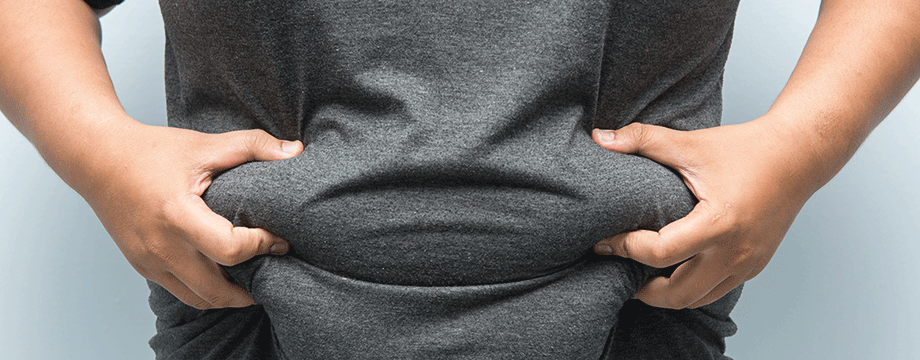
Body fat distribution linked to prostate cancer risk
Higher levels of abdominal and thigh fat are linked with an increased risk of aggressive prostate cancer, researchers have found.
Prior studies have demonstrated that obesity is linked with an increased risk of advanced prostate cancer and a poorer prognosis after diagnosis. Also, emerging evidence suggests that the specific distribution of fat in the body may be an important factor.
Researchers from the Harvard T.H. Chan School of Public Health analysed body fat distribution and assessed the risk of being diagnosed with, and dying from, prostate cancer among 1,832 Icelandic men who were followed for up to 13 years.
During the study, 172 men developed prostate cancer and 31 died from the disease. The accumulation of fat in specific areas – such as visceral fat (deep in the abdomen, surrounding the organs) and thigh subcutaneous fat (just beneath the skin) – was associated with the risk of advanced and fatal prostate cancer. High body mass index (BMI) and high waist circumference were also associated with higher risks of advanced and fatal prostate cancer.
It is hoped that the findings, which were published online in CANCER, a peer-reviewed journal of the American Cancer Society, may lead to a better understanding of the relationship between obesity and prostate cancer and provide new insights for treatment.

Good news for ‘night owls’!
Researchers have been able to ‘retrain’ the body clocks of so-called ‘night owls’ – people with extreme late sleeping and waking habits – in order to improve their mental wellbeing and performance. Teams from the Universities of Birmingham and Surrey in the UK, and Monash University in Australia, showed that, over a three-week period, it was possible to shift the circadian rhythm of night owls.
Disturbances to the sleep/wake system have been linked to a variety of health issues, including mood swings, increased morbidity and mortality rates, and declines in cognitive and physical performance.
The 22 participants in this particular study had an average bedtime of 2.30am and wake-up time of 10.15am. Over a three-week period, they were asked to: wake up two to three hours before regular wake up time and maximise outdoor light during the mornings, go to bed two to three hours before habitual bedtime and limit light exposure in the evening, keep sleep/wake times fixed on both work days and free days, and have breakfast as soon as possible after waking up, eat lunch at the same time each day, and refrain from eating dinner after 7pm.
The study, published in Sleep Medicine, showed participants were able to bring forward their sleep/wake timings by two hours, while having no negative effect on sleep duration. In addition, participants reported a decrease in feelings of depression and stress, as well as in daytime sleepiness.

Liver disease is on the increase, report reveals
Liver disease is now the biggest cause of death in those aged between 35 and 49 years old, a new report has revealed. The findings were released by the British Liver Trust to coincide with the Love Your Liver campaign. The trust also revealed that liver disease is expected to overtake heart disease as the biggest cause of premature death in the next few years.
More than 90 per cent of liver disease is due to three main risk factors: obesity, alcohol and viral hepatitis. Liver problems develop silently with no obvious symptoms in the early stages yet if caught early, the disease can be reversed through lifestyle changes. The Love Your Liver campaign focuses on three simple steps:
- Drink within recommended limits and have three consecutive alcohol-free days every week
- Eat a balanced healthy diet, maintain a healthy weight and take more exercise
- Know the risk factors for viral hepatitis and get tested if at risk. There are now very effective cures for hepatitis C.
To find out more, visit www.britishlivertrust.org.uk/screener

Survey highlights sleep issues
New research from the British Nutrition Foundation (BNF) has revealed that 43 per cent of adults reported sleeping less than the recommended minimum of seven hours and that 32 per cent of primary and 70 per cent of secondary school children reported sleeping less than nine hours. On top of this, 80 per cent of adults, and 44 per cent of secondary school children, reported waking up at least once during the previous night. The research, conducted as part of BNF Healthy Eating Week, surveyed 6,018 primary and secondary school students aged between seven and 16, and 1,576 adults from across the UK. ‘Sleep Well’ is one of the focusses for this year’s BNF Healthy Eating Week, and aims to highlight why getting enough good quality sleep is a key element of a healthy lifestyle.
Dr Lucy Chambers, Senior Scientist at BNF says: “With more and more emerging research linking lack of sleep to poor dietary choices, and the burgeoning obesity crisis in the UK, we are keen to place a new focus on sleep this year – looking into how well we’re actually all sleeping, and providing advice and resources to help improve sleeping habits”.
A clean sweep!
The Marine Conservation Society (MCS) is appealing for people to become part of the solution to the litter problem that is engulfing UK beaches by adopting a beach and leading a clean-up and survey during this year’s Great British Beach Clean, which takes place from 20 to 23 September. During last year’s event, volunteer cleaners picked up over 600 items of litter for every 100m of UK coastline surveyed and just under 15,000 volunteers took part.
Data collected by volunteers from the 25 years of MCS-led Great British Beach Cleans has been instrumental in the introduction of the 5p single-use carrier bag charge, the ban on microbeads in personal cleaning products like shower gels and toothpastes, the commitment to a Deposit Return Scheme in Scotland (and the consultation on one in England and Wales), and a ban on plastic straws, stirrers and cotton buds in England from next year.
To get involved, find a beach you want to clean, sign up and register it on the MCS online system, and MCS will provide you with all the help you need to get going. Visit www.mcsuk.org/beachwatch to find out more.

Poll reveals fears about climate change
A survey has revealed that 70 per cent of respondents would be happy to reduce or give up consuming red meat in order to combat the effects of climate change. The study of 2,000 adults, which was commissioned by The School of Health, also found that over two thirds would willingly stop using plastic packaging and bags and 40 per cent would stop charging equipment overnight, such as phones and televisions.
The survey revealed that three quarters of respondents believed climate change is the biggest crisis facing humanity today – but many are ‘confused’ about how they can help. Human behaviour was blamed more than deforestation and fossil fuels as the factor most strongly affecting climate change. Over one third of those polled believe over-population has an impact, leading to 40 per cent admitting they would avoid having more than three children, while one in 10 would give up having kids altogether.
The study also found that four in 10 people would happily give up their diesel car to help the planet and one sixth is prepared to swap their current vehicle for an electric one in the ‘near future’. A further 44 per cent of those polled via OnePoll.com admitted they are ‘worried’ about their health due to the impact of climate change and half are concerned over the amount of chemicals in medicines.

Could your IBS be undiagnosed coeliac disease?
As many as 1 in 4 people with coeliac disease were previously misdiagnosed with IBS, according to the national charity Coeliac UK. This is because many of the symptoms for IBS, such as bloating, stomach pains or cramps, diarrhoea or constipation and feeling exhausted, are the same as the symptoms of coeliac disease. As a result, the charity is calling for greater awareness of the similarity of symptoms and urges anyone with IBS to ask their GP for a coeliac disease blood test, if they have not already had one.
Coeliac disease is not an allergy or an intolerance but an autoimmune disease where the body’s immune system damages the lining of the small bowel when gluten, a protein (found in wheat, barley and rye) is eaten. There is no cure and no medication; the only treatment is a strict gluten-free diet for life.
1 in 100 people in the UK is estimated to have coeliac disease but, of these, only 30 per cent are currently diagnosed, meaning there are nearly half a million people in the UK with undiagnosed coeliac disease. For more information, visit www.coeliac.org.uk

Study shows promise for natural pain remedies
A new study of over 2,000 UK adults has revealed that 45 per cent suffer with joint pain.
To help manage joint pain, the report by organic wellbeing company, Pukka Herbs, found that many are still looking for pharmaceutical answers to pain, with over three quarters (79 per cent) either having been prescribed pain killers or taken pain killers from over the counter, such as non-steroidal anti-inflammatory drugs (NSAIDs). Almost one quarter of those surveyed said they take pain killers every day and over 2 in 5 (42 per cent) take them at least once a week.
However, the promising news is that over three quarters (85 per cent) of those surveyed were open to exploring natural remedies for pain. But only 9 per cent currently make changes to their diet to help remedy pain, proving that food is commonly overlooked as an effective or powerful solution.
Euan MacLennan, Clinical Medicine lecturer, practising Medical Herbalist and Herbal Director at Pukka Herbs, says: “We can learn from traditional diets from around the globe where a higher intake of plant-based materials and increased phytonutrients are accompanied by a healthier ageing and fewer chronic age-associated diseases. If the aim is to reduce and support pain management by supporting natural processes, then food is one obvious starting point,” adds Euan. “Foods that tend to reduce inflammation are fruits, vegetables and fish oils. Too much fat and starch probably make these problems worse. Turmeric, the common curry ingredient, shows particular promise.”

Dietary cholesterol or egg consumption do not increase the risk of stroke
A new study from the University of Eastern Finland has shown that a moderately high intake of dietary cholesterol or consumption of up to one egg per day is not associated with an elevated risk of stroke.
The study initially involved an examination of the dietary habits of 1,950 men aged between 42 and 60 years with no baseline diagnosis of a cardiovascular disease during the period from 1984 to 1989. During a follow-up of 21 years, 217 men were diagnosed with stroke. The study found that neither dietary cholesterol nor egg consumption was associated with the risk of stroke.
The study authors have stated that the findings should be verified in a larger cohort as well as in people with a pre-existing cardiovascular disease, who are currently advised to limit their intake of cholesterol and eggs. The findings were published in the American Journal of Clinical Nutrition.

Omega-3 may help childhood asthma symptoms
A new study has revealed that children who have more omega-3 fatty acids in their diets experience fewer asthma symptoms triggered by indoor pollution. The study also found that greater amounts of omega-6 fatty acids in the diet may aggravate symptoms.
The six-month study was carried out by Johns Hopkins Medicine researchers and was published in the American Journal of Respiratory and Critical Care Medicine. It involved 135 children aged from five to 12, all with asthma. The children’s diets, asthma symptoms and inhaler use were monitored at the beginning of the study, at three months and then at six months. The researchers also collected blood samples to assess any changes in inflammation markers. The research team, led by Dr Emily P. Brigham, assistant professor of medicine at Johns Hopkins University, believes their findings illustrate the potential links between diet and asthma.
“There is mounting evidence that diet, particularly omega-3 and omega-6 fatty acids, may play a role in lung health,” said Dr Brigham. “Among vulnerable populations, we may find that improving diet and air pollution together has the greatest impact on asthma health.”

Acupressure may help symptoms in breast cancer patients
Researchers have discovered that acupressure may help to ease symptoms such as depression, anxiety and pain in breast cancer patients.
The researchers from the University of Michigan Rogel Cancer Center studied 288 breast cancer patients who reported symptoms in addition to fatigue. Two different types of acupressure were used in the study: relaxing acupressure and stimulating acupressure, which involve stimulating different points on the body. After six weeks, the researchers discovered that relaxing acupressure was more effective than stimulating acupressure or standard care in terms of aiding sleep and depressive symptoms. Both types of acupressure were found to be better than standard care for improving anxiety and pain levels.
The authors wrote: “Acupressure was associated with greater improvements than usual care in anxiety, pain, and symptoms of depression in breast cancer survivors with troublesome fatigue. These findings warrant further evaluation in suitably controlled randomized trials.”
The study was published in JNCI Cancer Spectrum.

Vitamin D deficiency linked to gestational diabetes risk
Mums-to-be who are deficient in vitamin D as early as the first trimester of pregnancy may have an increased risk of gestational diabetes mellitus (GDM), a new study has found.
Researchers from Indiana University examined data from the Fetal Growth Studies-Singleton Cohort to analyse the link between vitamin D levels in early to mid-pregnancy and the risk of gestational diabetes. The study involved 107 women with GDM and 214 control subjects whose blood levels of vitamin D were measured at weeks 10 to 14, 15 to 26, 23 to 31, and 33 to 39 in their pregnancies.
The authors wrote: “Maternal vitamin D deficiency as early as the first trimester of pregnancy was associated with an elevated risk of GDM. The association was stronger for women who were persistently deficient through the second trimester. Assessment of vitamin D status in early pregnancy may be clinically important and valuable for improving risk stratification and developing effective interventions for the primary prevention of GDM.”
The findings were published in Diabetes, Obesity and Metabolism.

Early menopause increases risk of bladder cancer for smokers
Early menopause increases the risk of bladder cancer for smokers, according to findings from Viennese researchers. The research team explored whether hormonal processes in the female body play a role in the development of bladder cancer. To do this they analysed data from 230,000 participants taking part in the Nurses’ Health Study, which has been running since 1976 and is the largest women’s health study in the world.
It has produced important findings relating to nutrition and cancer risks by means of questionnaires and clinical examinations of women. Their findings showed that hormonal factors have no influence on the incidence of bladder cancer, but smokers who start the menopause before the age of 45 have a more than 50 per cent higher risk of developing it.
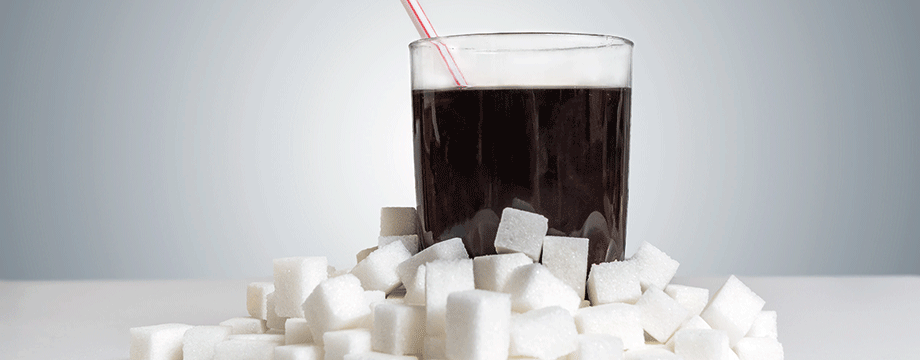
Support shown for sugar tax
The introduction of the sugar tax last year appears to have helped to curb our sweet tooth, a new survey has revealed. Since the implementation of the sugar tax on 6 April 2018, the percentage of the UK public who say they consume too much sugar has fallen from 46 per cent to 38 per cent, reports insight agency Opinium.
Furthermore, a third of respondents (33 per cent) think the introduction of the tax has been successful in reducing the amount of sugar young people consume, while 34 per cent believe the same for the UK population as a whole. Just under half (45 per cent) of the British population think the current levy, which applies exclusively to soft drinks, should be expanded to other types of food and drink.

Raspberries may help those with diabetes
Two new studies published in Obesity and Annals of Nutrition and Metabolism have suggested that eating raspberries could significantly help prevent and manage diabetes. The first study, which investigated people with ‘pre-diabetes’ and insulin resistance, found that people who ate berries for breakfast had reduced glucose levels two hours later. Similarly, the second study also suggested that eating berries was linked to lower blood sugar levels.
Around 4.7 million people in the UK currently have diabetes and if nothing changes these figures are projected to rise to 5.5 million by 2030. Of those with diabetes in the UK, about 90 per cent have type 2 diabetes. This is a condition in which the pancreas can fail to produce enough insulin – the hormone which regulates blood sugar levels. Dr Emma Derbyshire, Public Health Nutritionist and adviser to British Summer Fruits commented: “What we need now is more research along with information about how these findings could be used in practice, for example dietary strategies for those at risk of type 2 diabetes or advice on the best way to get five-a-day for those at risk of poor metabolic health.”

Diet rich in animal protein is linked with a greater risk of death
A diet rich in animal protein and, in particular, meat, is not good for the health, a new study from the University of Eastern Finland has found. The research showed that men who favoured animal protein over plant-based protein in their diet had a greater risk of death in a 20-year follow-up than men whose diet was more balanced in terms of their sources of protein. The findings were published in the American Journal of Clinical Nutrition.
Men whose primary sources of protein were animal-based had a 23 per cent higher risk of death during the follow-up than men who had the most balanced ratio of animal and plant-based protein in their diet. A high intake of meat in particular seemed to be associated with adverse effects: men eating a diet rich in meat, i.e. more than 200g per day, had a 23 per cent greater risk of death during the follow-up than men whose intake of meat was less than 100g per day.
Earlier studies have suggested that a high intake of animal protein, and especially the consumption of processed meats such as sausages and cold cuts, is associated with an increased risk of death. However, the big picture relating to the health effects of protein and different protein sources remains unclear.
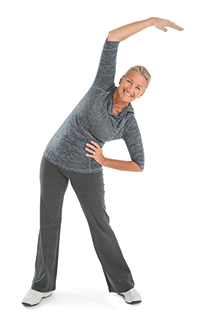
Over-65s are most active age group, research shows
New research has revealed that the over-65s are now one of the most physically active age groups in the UK.
A survey of more than 7,600 UK adults, conducted by Decathlon, shows that 44 per cent of over-65s take part in sports eight times or more in a typical month.
The next most active age group still fell within the older cohort – 41 per cent of those aged between 55 and 64 said they participate in sports or exercise eight times or more in a month.
The top three activities favoured by the over-65s were swimming (38 per cent), fitness/gym (29 per cent) and cycling (21 per cent).

Motivation affects nutrition and diet, study shows
New research led by the University of East Anglia (UEA) suggests that people with a positive attitude are more likely to eat healthily.
The researchers examined different elements involved in motivating and guiding people’s behaviour, particularly ‘promotion’ and ‘prevention’. Individuals with a promotion focus are concerned with pursuing positive outcomes, for example engaging in healthy behaviours, while those with a prevention focus will seek to prevent negative consequences, for example by avoiding unhealthy behaviours.
The findings, which were published in the journal Appetite, show that having a promotion focus leads to people’s involvement in nutrition, which in turn leads to nutrition knowledge and diet adjustment following advice, for example from the media, doctors, family members or friends. Having a prevention focus had no effect on nutrition involvement.
Lead author Kishore Pillai said: “Consumer decisions regarding eating behaviours and nutrition can lead to consequences such as illness and obesity that have direct public health policy implications. Obesity is preventable and increasing consumer involvement in nutrition can help achieve this.”

Exercise shown to help period pain
Exercise can have a huge, positive impact on period pain, according to a new survey. A team of researchers from St Mary’s University analysed responses from over 14,000 active women from around the world, revealing that 78 per cent found exercise reduced the symptoms of their period.
The results also showed that women feel that moderate intensity exercise (exercise categorised as ‘hard breathing, able to hold a conversation’) is most effective at combating symptoms. The most commonly experienced symptoms were stomach cramps, breast pain, mood changes, fatigue and cravings and one in three women have missed work as a result of their menstrual cycle.
The research was carried out in conjunction with Strava, the social network for athletes and FitrWoman, the menstrual cycle tracking and exercise app.

Clinical trial of natural alternative to antibiotics
A new clinical trial is beginning this month at the University of Southampton to test a natural alternative to antibiotics for people with seasonal colds and flu.
PhD student Martin Logue will be working with an estimated 20 GP surgeries across the south of England as part of a randomised placebo-controlled feasibility study involving the herbal supplement andrographis from organic wellbeing company Pukka Herbs. The study, for which results are expected in the summer, aims to find out if GPs and patients are receptive to using herbal medicine for acute respiratory infections (ARTIs) such as acute cough, sore throat and sinusitis, and whether enough patients can be recruited for this kind of clinical trial.
These findings will then support the design of a larger trial providing andrographis capsules to adults who visit their GP with ARTI symptoms believed to be caused by an infection (bacterial or viral). The overall aim of the research is to understand if the use of this herbal medicine may lessen the prescription of antibiotics in UK GP surgeries.
A systematic review published by the University of Southampton and Beijing University of Chinese Medicine identified 33 relevant clinical studies on andrographis and surmised that the herb is beneficial and safe for relieving acute respiratory tract infections and shortening the duration of cold and flu symptoms.
More menopause support needed
Some women are waiting up to four years to seek medical expertise to manage overwhelming menopause symptoms, new research has revealed. The research, carried out by Menopause and Me, shows that 45 per cent of menopausal women surveyed are suffering from depression or low mood, while 48 per cent reported that the menopause has had a negative impact on their relationships.
Despite the concerns of women in the run up to the menopause, and the scale of suffering experienced by women during this time of their life, only 35 per cent seek help from their GP and only 2 per cent ask the advice of their pharmacist – suggesting more needs to be done to support women.
Dr Paula Briggs, a leading menopause specialist, said: “Women do not need to struggle through the menopause alone. Medical help is available and despite the subject still being taboo for many, women need to be encouraged and empowered to talk more openly about their symptoms, the struggles and their experiences. GPs can provide personalised plans to help manage and therefore mitigate the detrimental impact of menopause symptoms and women to not need to suffer in silence.”
For more information, visit www.menopauseandme.co.uk
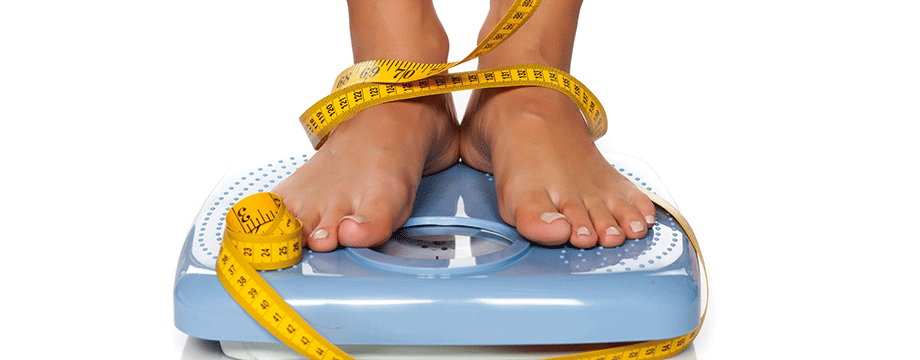
Weight loss can put Type 2 diabetes into remission
A new study has revealed that losing weight can help to reverse Type 2 diabetes. More than a third (36 per cent) of people with Type 2 diabetes who took part in a weight management programme are in remission two years later, the findings of the Diabetes Remission Clinical Trial (DiRECT) have revealed.
The second year results of the trial were published in The Lancet Diabetes & Endocrinology. These new results build on the findings from 2017, which showed that 46 per cent of participants were in remission after one year. A year later, 70 per cent of those participants are still in remission.
The results confirm that remission is closely linked to weight loss; 64 per cent of participants who lost over 10 kilos were in remission at two years.
Participants were defined as in remission if they had long-term blood glucose levels (HbA1c) of less than 48mmol/mol (6.5%) without needing to use any Type 2 diabetes medications.
As well as resulting in remission for many participants, the programme led to a drop in blood glucose levels and fewer diabetes medications across the whole intervention group.

A healthy gut could help to stave off heart disease
Eating a diet that encourages a healthy gut microbiome and avoiding central obesity (fat in the stomach region) are among the many dietary and lifestyle factors that may help to protect against heart disease and stroke. This is according to the findings of a new Task Force report from the British Nutrition Foundation (BNF), entitled Cardiovascular Disease: Diet, Nutrition and Emerging Rask Factors: 2nd Edition.
Scientific research shows that eating plenty of wholegrains and other fibre-rich foods is important for a healthy gut, but the Task Force report highlights that the fermentation of fibre by our gut bacteria may also influence our risk of heart disease. Sara Stanner, Science Director at the BNF and editor of the Task Force report said: “As a nation we’re consuming well below the recommended intake for fibre. Eating plenty of fruit and vegetables, choosing high-fibre or wholegrain varieties of starchy carbohydrates, and eating plenty of pulses, like beans, peas and lentils, will contribute to fibre intakes and can help to keep your gut healthy and decrease your risk of heart disease.”
It’s known that being overweight increases your risk of heart disease and stroke, but where you carry any excess fat is also important in determining the risk of heart disease and stroke. The new Task Force report explains that people who have excess fat around the stomach are at increased risk because the cells secrete a number of substances that can contribute to risk. Stanner said: “Regardless of height or BMI, people should try to lose weight if their waist measures more than 94cm (37ins) for men and 80cm (31.5ins) for women.”
The evidence for other emerging risk factors that may increase risk – such as being sedentary for long periods, and poor diet in pregnancy – were presented at a conference for academics and health professionals to launch the Task Force report in London.

New findings about fat cells
Researchers have discovered that fat cells in the human body work different ‘shifts’ throughout the day. The researchers from the University of Surrey found that fat cells have their own ‘internal clocks’ and circadian rhythms, which affect critical metabolic functions. Misalignment of ‘human clocks’ with each other and the environment is believed to be a major contributor to obesity and poor health.
Fat cells play an important role in our body, acting as energy stores and controlling metabolism and appetite via hormone secretion. The findings of the study showed that the body’s fat cells naturally complete their functions at different times during the day, meaning that this could have an impact on metabolic processes.
Lead author, Dr Jonathan Johnston, said: “This provides us with more information about how human metabolism changes across the day and possibly why the body processes foods differently during day and night.” The research was published in the journal Scientific Reports.

Brain training apps could help alleviate symptoms of depression
A new study has revealed that brain-training apps could help alleviate symptoms of depression. The report, which was conducted at Queens College of the City University of New York, indicates that computerised cognitive training is linked to significant improvements in mood, cognition and everyday functioning.
The study involved 46 young adults who showed mild to moderate depressive symptoms, including depressed mood, loss of interest, concentration and energy and difficulty sleeping. These participants trained using the Peak brain training app on their mobile devices five days per week over an eight-week period, with their depressive severity, everyday functioning and cognition evaluated pre and post-training. By the end of the study, the group showed significant improvements in both self and clinician-rated depressive severity, everyday functioning and cognition. The results were published in the Journal of Affective Disorders.

Eggs encouraged as nutritious food for youngsters
A new research review advises parents to make sure their babies are given eggs once they start weaning – not only to obtain vital nutrients but also to reduce the risk of developing an egg allergy.
The new paper, published in the Journal of Health Visiting, reports on recent changes in official advice on both food safety and allergy, which mean that eggs – even when runny – are now actively encouraged as a highly nutritious food for both young babies and pregnant women. The paper also highlights recent research on some little-known nutrients found in eggs which are particularly important in pregnancy, infancy and early childhood, including several crucial to brain development – iodine, choline and docosahexaenoic acid (DHA) – which many people in the UK may be lacking.
In 2018 the government’s Scientific Advisory Committee on Nutrition (SACN) recommended that eggs can be given to babies from around six months, when weaning should begin, and then should be included regularly in their diet, to avoid increased risk of developing egg allergy later in childhood.
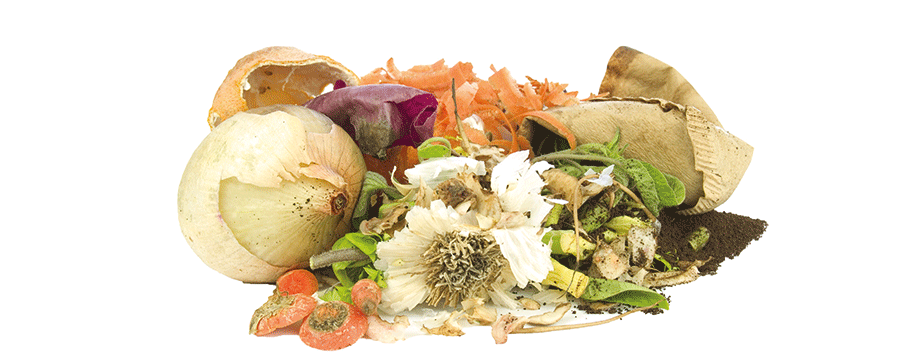
Focus on food waste and recycling a positive step forward
Positive steps have been put in place by the Government to tackle food waste, cut plastic pollution and encourage recycling. A series of consultations has been launched by the Government which will reportedly make up a key part of its upcoming Environment Bill, to be introduced later this year. The measures included in the proposals include packaging producers paying the full cost of dealing with their waste, more consistent household recycling, and a Deposit Return Scheme for cans and bottles. The consultation also includes a tax on plastic packaging that does not meet a minimum threshold of at least 30 per cent recycled content.
The Chartered Institute of Environmental Health (CIEH) has welcomed the move, saying: “This focus on reducing waste and boosting recycling is a very welcome step forward. Climate change and ecological and environmental degradation is reaching crisis point. These are critical public health issues. Recycling and reducing waste is imperative as part of the response needed to meet these challenges.”

Cancer nutrition study launching in Scotland
Maintaining a healthy diet and being physically active are important steps for cancer survivors, and this is the focus of a new study being launched across the North of Scotland.
The new study, which is being overseen by Robert Gordon University (RGU) and CLAN Cancer Support, invites men and women who have completed their cancer treatment to attend the two-day course – EatWell@CLAN – in either Aberdeen, Elgin or Kirkwall, with dates taking place over the next two months. The course will be made up of small, supportive groups and will include presentations from health professionals, practical activities and group discussions with other individuals who have been through a cancer diagnosis and treatment. A team of researchers from RGU’s School of Pharmacy and Life Sciences and School of Nursing and Mifwifery will collect data from each of the participants and hope to identify barriers people may face in achieving their dietary and physical activity goals, and possible solutions. This will inform the development of a future study to improve diet and physical activity in cancer survivors. Anyone interested in taking part in the course and research study can contact Dr Lindsey Masson for more information at l.f.masson@rgu.ac.uk or on 01224 262856.
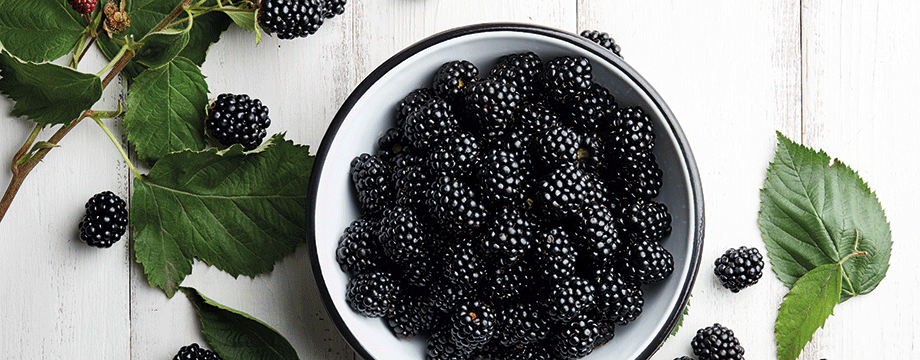
Berries could help narrow the 'folate gap'
The UK is currently experiencing a folate ‘gap’, particularly in woman of childbearing age, whereby people are not getting enough folate in their diet.
However, new research shows that eating berries could help to narrow this gap.
Folate, also known as vitamin B9, is an important water-soluble vitamin that needs to be obtained from the diet to support good health. Folate status has been linked to cardiovascular and cognitive wellbeing and has a crucial role to play in women of childbearing age and early pregnancy, with shortfalls being linked to the risk of spina bifida (known as neural tube defects).
Recent data from the UK National Diet and Nutrition survey show that blood folate levels have dropped over the last nine years. Dietary guidelines advise men and women aged between 15 and 64 to aim for 200µg of folate daily. It is recommended that women of childbearing age take a 400µg folic acid supplement daily until the twelfth week of pregnancy.
At the moment, daily intakes of folate from food sources average just 193µg for girls aged 11 to 18 and 205µg amongst women of childbearing age (16 to 49) with around 1 in 10 (8 per cent) having intakes below the Lower Reference Nutrient Intake (the level below which deficiency may occur). New research published in the journal Food Chemistry has shown that berries are excellent providers of folate with strawberries and blackberries providing the highest amounts of total folates: 93 to 118 µg per 100g, which is a quarter of a typical punnet.

Brits are joining the vitamin D list
Vitamin D, the so-called ‘sunshine drug’, is the most popular vitamin supplement in Britain, according to new research. Vitamin D is used by just over a third (33 per cent) of vitamin users and has overtaken vitamin C in popularity among consumers, say market research analysts Mintel. Their findings also show that calcium and iron supplements are growing in popularity.
Anita Winther, Research Analyst at Mintel, said: “The trend towards meat reduction diets – including both strict vegan diets and the more lenient flexitarian approach – is likely boosting usage of iron. With as many as half of meat eaters believing their red meat intake should be limited, it is likely that people are looking to supplements to fill the iron gap left if they are reducing the amount of red meat they eat. The rise in usage of calcium could also be linked to the growing focus on plant-based foods, both in terms of vegan diets and dairy avoidance. With just three in 10 adults in agreement that fortified foods and drinks are a better source of vitamins and minerals than taking supplements, consumers may well be feeling the need to complement these foods with a supplement.”

Higher fibre intake linked to reduced disease risk
A new study supported by the World Health Organization and published in The Lancet has found that a higher dietary fibre intake is associated with a reduced risk of several chronic diseases including heart disease, type 2 diabetes and colorectal cancer. The study found that the more fibre people consumed, the lower the risk of developing a chronic disease, with 25-29g per day showcasing the greatest benefits.
Dietitian Hala El-Shafie says: “This research joins a body of existing research in this area. Most of us know that fibre is good for us, and this is just further confirmation that we really should be eating more of it.” Hala suggests several simple ways to get your recommended fibre intake, such as eating two slices of wholemeal toast with one banana, a handful of almonds, or a chilli con carne with a 125g serving of wholegrain rice. She says: “Start by making simple swaps. You may want to slowly up your fibre with small steps as a sudden increase may cause a bit of abdominal discomfort.”

Three apps to help you eat well
Forks Over Knives
Forks Over Knives is a plant-based recipe app made by the creators of the critically acclaimed documentary of the same name. It includes hundreds of easy-to-prepare dishes with new recipes added weekly.
Fooducate
The Fooducate Nutrition Tracker features personalised nutrition and ingredient analysis for hundreds of thousands of foods. It also includes healthy recommendations and support and motivation from fellow dieters.
OLIO
OLIO allows users to connect with their neighbours and with local shops in order to share surplus food and other household items, reducing food waste and helping to look after the environment.

Probiotic shows promise for migraine sufferers
Taking a probiotic has been shown to dramatically improve symptoms in migraine sufferers, according to the results of a new study. The findings of the double-blind randomised controlled trial were recently published in Cephalalgia, the international peer reviewed journal covering headaches. The probiotic featured in the trial significantly reduced the frequency and intensity of migraines in those suffering from episodic (less than 15 per month) and chronic (more than 15 per month) migraines compared to a placebo, as well as reducing the reliance on medication in as little as eight weeks.
This is the first successful randomised controlled trial showing the benefits of a probiotic in the management of migraine headaches. It is also unique in that no previous study has analysed both chronic and acute migraineurs.
“As stated on the Migraine Trust Website, migraine is the leading cause of disability among all neurological disorders with more than 50 per cent of migraine sufferers unhappy with their current treatment,” said Jonathan Sowler, managing director, ADM Protexin, manufacturers of Bio-Kult Migréa, the probiotic featured in the study.

Show your support for Fairtrade
Fairtrade Fortnight takes place this year from 25 February to 10 March. This year’s campaign, which is called She Deserves, will focus on the female cocoa farmers of West Africa, with the aim being to ensure that they are paid fairly for their work and are able to live a dignified life. The Fairtrade Foundation intends to work with governments, chocolate companies and retailers to make this become a reality.
To show your support for the campaign, you could buy some Fairtrade chocolate and cocoa, hold your own fundraising event or raise awareness on social by using the hashtag #SheDeserves. To find out more, visit www.fairtrade.org.uk

Walk all over cancer!
Cancer Research UK is running a fitness challenge throughout March, whereby individuals can pledge to walk 10,000 steps a day to raise funds to beat cancer. Participants taking part in the Walk All Over Cancer challenge can take part on their own or join forces with family, friends and work mates. Steps can be measured in a variety of ways, from smartphone apps to pedometers and wearable activity trackers. Based on the average person’s stride, 10,000 steps is around five miles or eight kilometres. To sign up and download motivational tools including a wall chart, leader board and sponsorship form, visit www.cruk.org/walkallover

Positive self-belief key to recovery from pain
People are more likely to recover from pain if they have the confidence to carry on doing most things, despite their pain – according to new research from the University of East Anglia and University of Hertfordshire.
Researchers studied more than 1,000 people undergoing physiotherapy for shoulder pain. They found that those who expected physiotherapy would help them were likely to recover more than those who expected minimal or no benefit. Meanwhile, people suffering more pain, who were confident in their ability to still do most things despite their pain, were likely to recover better with physiotherapy than those suffering less pain, but who weren’t confident.
Lead researcher Dr Rachel Chester said: “We recommend that physiotherapists help patients understand and manage their pain and to select treatments and exercises which help them build confidence in their shoulder and optimise their activity levels. This includes helping patients to gain the confidence to get back on track after a flare-up.” The findings were published in the British Journal of Sports Medicine.

Gum disease and tooth loss linked to high blood pressure in older women
A new study suggests that gum disease and tooth loss are linked to high blood pressure in older women. The research, which was published in the American Journal of Hypertension, suggests that post-menopausal women who have suffered from tooth loss are 20 per cent more likely to develop hypertension.
The study involved more than 35,000 women who were monitored annually for nearly two decades. Researchers involved in the study believe that improved dental hygiene in general is key to reducing the risk of hypertension. As a result of the findings, the Oral Health Foundation is urging women of all ages to develop and maintain a good oral health routine to lower their likelihood of developing gum disease, the leading cause of tooth loss in the UK.
Dr Nigel Carter OBE, the foundation’s chief executive, said: “In addition to an increased risk of high blood pressure, gum disease has also been linked with many conditions such as diabetes, strokes and cardiovascular disease. However, the good news is that gum disease is an entirely preventable and treatable disease. In the grand scheme of things, it takes a relatively small amount of time each day to keep our teeth and gums clean but it can lead to a lifetime of health and wellbeing benefits.”

North East is the UK’s most active region
People in the North East of England are the most active in the UK, according to the results of a new survey. The survey of more than 7,600 UK adults was carried out by sports brand Decathlon. The results revealed that people in the North East exercise 5.20 times per month on average – compared to the UK average of 4.82 times per week.
Those living in Northern Ireland (5.04 times) and the South West (5.03 times) in cities like Bristol and Bath were the second and third most active in the UK. Wales (5.02 times) and Scotland (4.87 times) completed the list of the top five most active regions in the UK.

Report highlights inactivity in youngsters
Over 2.3 million children and young people (32.9 per cent) do fewer than 30 minutes of physical activity a day, a new report by Sport England has revealed. The findings were published as part of the Our Active Lives Children and Young People Survey. The report gives an insight into how children in England are taking part in sport and physical activity, both in and out of school. The findings also showed that more than 40 per cent of children in England do an average of more than 60 minutes of physical activity a day.
A further 1.7 million (23.9 per cent) are fairly active, doing between 30 and 59 minutes of physical activity a day. The report was put together using data from more than 130,000 children aged between five and 16 in England during the academic year from September 2017 to July 2018.
Sport England’s chief executive, Tim Hollingsworth, said: “Parents, schools, the sport and leisure industry and government all have a role to play in addressing and increasing childhood activity. We all care about the health and wellbeing of our children. These results tell us that what is currently being done to support them is not enough and change is required.”

New community kitchens launched
Eighty per cent of people aged over 60 in Britain say they are not getting their recommended five portions of fruit and veg every day, according to the findings of a new survey. Nearly a quarter (23 per cent) of people over 60 said they did not eat as much fresh fruit and veg as they could because they lived alone and the produce went off before they could eat it, with another 22 per cent not being confident enough in their cooking ability to use certain produce.
The survey was carried out by home appliance brand NEFF. As a result of the findings, NEFF has launched two community kitchens in Britain, with the aim of bringing communities and ages together. The kitchens will see old and young take part in cookery courses to brush up on their skills and ensure they are confident cooking a range of fresh produce and not reliant on frozen meals. The first two are opening in Milton Keynes, Buckinghamshire and Haverhill, Suffolk, with two more set to open next year in Yorkshire and London. Find out more at www.neffkitchenlove.co.uk or #neffkitchenlove

Mediterranean diet in pregnancy found to benefit offspring
A new study has revealed that mums-to-be who follow a Mediterranean diet have a lower risk of having children with a high birth weight and an accelerated weight gain in childhood, which could lead to an increased risk of obesity later on. The research was carried out by the Barcelona Institute for Global Health (ISGlobal) and was published in The Journal of Pediatrics.
The Mediterranean diet is high in fruits, vegetables, olive oil, legumes and nuts. It usually includes a low intake of meat and dairy foods. The diet has been linked with lower obesity and cardiometabolic risk in adults, but few studies have analysed its effect on children.
The researchers analysed data from over 2,700 pregnant Spanish women. The women completed a questionnaire about their diet in the first and third trimester of pregnancy. Then, the diet, weight and height of their children were followed up from birth till the age of four. The results revealed that pregnant women who adhered closely to the Mediterranean diet had a 32 per cent lower risk of having children with a high birth weight and an accelerated weight gain in childhood, compared to women who did not follow the diet.
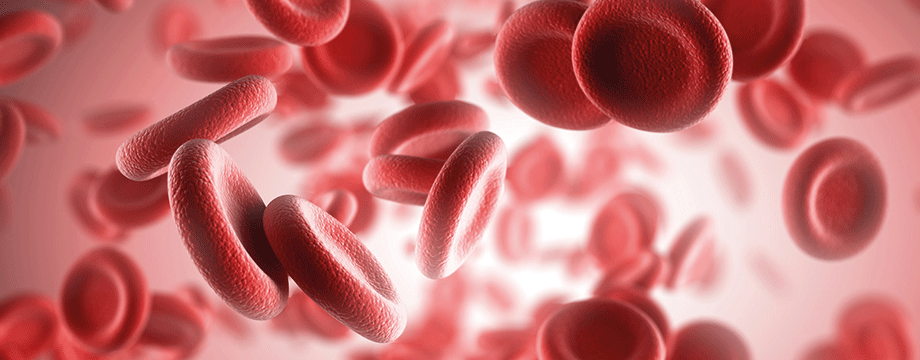
Could you be deficient?
According to the World Health Organization, over 30 per cent of the world’s population are anaemic, many due to an iron deficiency. “Iron is an essential element for almost all living organisms, as it participates in a wide variety of metabolic processes, including oxygen transport,” says Michela Vagnini, a nutritional therapist with Nature’s Plus (naturesplus.co.uk).
“Iron deficiency, which can be known as anaemia, occurs when your body doesn’t have enough iron to produce haemoglobin. Haemoglobin is the part of red blood cells that gives blood its red colour and enables the red blood cells to carry oxygenated blood throughout your body.”
Key signs of iron deficiency include: pale skin, tiredness, a foggy brain, palpitations and shortness of breath. If you have checked with your GP and you are lacking in iron, you may want to consider taking a supplement.

Help needed for research project
Researchers from Edinburgh Napier University are looking to recruit members of the public to take part in a study aimed at helping to improve the post-retirement health of top-flight athletes. The researchers are analysing the risks and benefits associated with participating in elite sport. The first phase of the study involved interviewing more than 4,000 Olympic athletes. Now, for the second phase, the researchers want to recruit thousands of members of the public to take part so that they can carry out meaningful comparisons.
Lead researcher Dr Debbie Palmer said: “In order to identify the risks, and benefits, associated with Olympic sport participation we want to compare what is normal for the general population to the findings of our retired Olympian population. We need people of all ages from the general population to complete a 20-minute questionnaire, the only criteria being you must be 16 years or older, and not have competed in a summer or winter Olympic games. The more people we can get involved, particularly older individuals, the better our study findings will be.”
To take part, visit www.surveymonkey.co.uk/r/olympianhealthGPCE and use the password health2018. The research team can be contacted at health@olympian.org

Brits trim back meat consumption
There is a growing trend among the British population for limiting or reducing meat consumption, particularly among those aged between 25 and 34, says leading market intelligence agency Mintel.
While 90 per cent of Brits are red meat/poultry eaters, the new research found that 34 per cent of meat eaters reduced their meat consumption in 2018. Those aged between 25 and 34 are the most likely (40 per cent) to have reduced their meat consumption in the last year. A further 21 per cent of meat eaters say that they would be interested in limiting/reducing their meat consumption in the future.
The top three perceived benefits of eating less meat are improving health (32 per cent), saving money (31 per cent) and being better for the environment (25 per cent). Despite improving health being seen as the top benefit, considerably fewer consumers associate eating less meat with helping to manage weight (25 per cent) or reducing the risk of disease (22 per cent).
The research was carried out among 2,000 internet users aged 16+ in July 2018.

New game launched to tackle malnutrition
A new educational board game has been created in a bid to tackle the growing problem of malnutrition in older people.
Researchers from The University of Hertfordshire developed The Food in Later Life Game to help people learn more about malnutrition in older people and the actions they can take to help prevent and manage it. Malnutrition affects an estimated one in 10 people over the age of 65 in the UK (around 1.3 million). Over 90 per cent of older people who are malnourished are living in their own homes where the signs and symptoms often go unnoticed and unrecognised.
The board game helps players understand the challenges faced by older people when buying, cooking or eating food. It also helps them to discuss what individuals and organisations can do to ensure older people have access to a safe and nutritious diet.

Air pollution can cause kidney disease
Air pollution not only causes harm to our respiratory system, but also impacts inner organs such as the kidneys, a new study has found. The review article, which was published in the journal CKJ, involved an analysis of scientific papers on the subject dating back over the past 30 years.
Chronic kidney diseases (CKD) cause at least 2.4 million deaths per year and are now the sixth fastest growing cause of death.
Professor Alberto Ortiz, CKJ´s editor-in-chief and co-author of the review, explained: “One hypothesis is that inflammatory mediators induced by polluted air in the lungs spill over into the circulation, resulting in systemic inflammation, oxidative stress and damage to distant organs including the kidneys. Besides, there might also be a direct harming effect. We do not know in detail which underlying mechanisms cause the harm of the kidneys, but the evidence is very strong that air pollution has a long-term effect on the onset of CKD.”
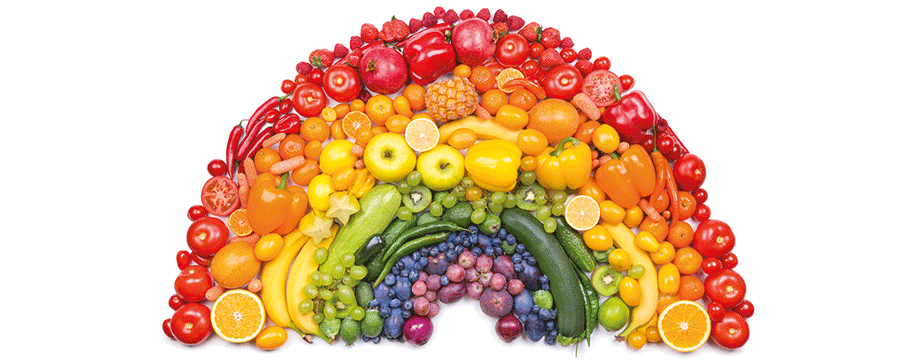
Try, swap and change
The British Nutrition Foundation (BNF) has developed a weekly planner to help people stick to their healthy living resolutions.
The Try, Swap, Change planner has been developed by a team of nutrition scientists and offers 15 easy to follow suggestions to help people lead a healthier lifestyle. Each week you can choose three or more of the suggestions, which involve trying something new, swapping old habits for better ones, and changing small parts of your daily routine. There are six areas that have been colour-coded in the planner:
- Green = fruit and vegetables – make sure you get your five-a-day
- Yellow = wholegrains – the majority of people are below the recommended intakes for fibre
- Red = physical activity – getting active burns calories and helps improve fitness
- Orange = helpful habits – these are things you can change in your lifestyle
- Blue = protein – looking at boosting plant protein and including fish your diet
- Pink = lower salt, sugar and saturated fat – are you getting too much of these?
Sara Stanner, Science Director, British Nutrition Foundation, said: “Finding behaviours that work for you is key to making sure that short-term changes become long-term habits and part of the daily routine.”
The free planner can be downloaded at: www.nutrition.org.uk/healthyliving/planner/tryswapchange.html

Diabetes on the increase in the under-25s
Nearly 7,000 children and young adults are reported to have Type 2 diabetes in England and Wales, according to shocking new figures released by Diabetes UK.
The National Diabetes Audit for 2016-2017 revealed that there are 6,836 individuals under the age of 25 with the condition, a figure based on the numbers treated in GP practices in England and Wales in 2016/17.
Previous figures from the Royal College of Paediatrics and Child Health stated that paediatric diabetes units were treating 715 people under the age of 25 for Type 2 diabetes, meaning that the true figure is almost 10 times higher than previously thought. Diabetes UK states that: “Type 2 diabetes is a lifelong condition that leads to serious complications such as blindness, amputations, heart disease and kidney failure. Unlike Type 1 diabetes, the risk of developing Type 2 is greatly increased by being overweight or obese.”
Bridget Turner, Director of Policy and Campaigns at Diabetes UK, said: “Type 2 diabetes can be devastating for children and young people. To help shape a future where fewer children develop the condition, we need continued commitment across society to create an environment that reduces obesity. We need to encourage healthy living by providing clear and easy to understand nutritional information about the products we are all buying, and protect children from adverts for foods that are high in fat, salt and sugar.”

New study to focus on yoga for older people
Researchers from Northumbria University are about to embark on a study investigating the benefits that yoga brings to older people with multiple long-term health conditions.
The four-year study follows evidence that people with a number of long-term health conditions are more likely to have reduced physical function, lower quality of life and life expectancy, combined with more need for support with mental health issues.
In the UK, two thirds of people over the age of 65 have multimorbidity, which is defined as having two or more long-term health conditions. Conditions include diabetes, heart disease and asthma, and mental health problems such as depression and anxiety.
The more health problems someone has, the more likely they are to consult a GP, be prescribed drugs and be admitted to hospital. The study therefore aims to determine both the clinical effectiveness and cost effectiveness of a specially-adapted yoga programme for older adults with multimorbidity.

Bust that stress!
Christmas time can certainly be stressful, particularly when you are juggling a busy work and home life with trying to organise a festive celebration. Here, life coach Carole Ann Rice (realcoachingco.com) offers some simple tips for keeping seasonal stress at bay.
1. Get your feelings out – If you’re feeling sad, stressed or anxious, get those thoughts out of your head and onto a piece of paper so you’re not carrying them around with you. It’s important not to let bad feelings dwell and rot inside of you.
2. Don’t overcommit – Having a diary full of plans is an easy way to make ourselves feel unnecessarily stressed. Remember that you can always commit half way - if family and friends want to see you, just say you’ll come along for 2 hours. That way, you can go without draining yourself completely.
3. Spend some time outdoors – Try to set aside time for the outdoors – run around the park or walk by the river for exercise. Being among nature is not only a great way to relax and destress, but it’s also 100 per cent free.

Back pain linked to mental health problems
A new study has revealed that back pain is linked to mental health problems in adolescents. The study, published in the Journal of Public Health, reports that adolescents who frequently suffer with back pain are also more likely to smoke cigarettes, drink alcohol, and report problems such as depression and anxiety.
Wellness expert, fitness trainer and author of Body Cycles, Jacqueline Harvey (www.jacquelineharvey.co.uk), recommends getting out as much as possible, whether that is 10 minutes here and there throughout your working day. “Get out into nature and natural daylight as much as possible,” she says. “We can find ourselves going from office to the car or public transport to home, barely venturing outside. There is nothing like a brisk walk on a crisp winter’s day.”

Omega-3 could boost babies’ brains and vision
Women could enhance the development of their unborn child’s eyesight and brain function by regularly consuming omega-3 during pregnancy, according to new findings published in Pediatric Research. The study, carried out by researchers from the University of Turku and Turku University Hospital in Finland, supports previous studies that show the importance of a mother’s nutrition and lifestyle when pregnant.
“Oily fish is an excellent source of omega-3 fatty acids,” explains Dr Marilyn Glenville, author of Getting Pregnant Faster (www.naturalhealthpractice.com). “Science has shown that omega-3 fatty acids have wide-ranging benefits for our health, including brain health, heart health, fertility and also pregnancy, arthritis, endometriosis, dysmenorrhea and skin problems. The omega-3 fatty acids should be added separately because they are not usually included in a multivitamin and mineral, and if they are, the levels will not be high enough. Aim for an omega-3 fish oil supplement containing at least 700mg of EPA per day and 500mg of DHA per day.”

Menopause for thought
“A 2014 study published in The Journals of Gerontology showed that the incidence of Bacterial Vaginosis (BV) increases with age in menopausal women, but thrush decreases,” says Dr Karen Gardiner, founder of Purple Orchid, the Women’s Self-Care Company. “Thrush thrives in an oestrogen-rich environment i.e., premenopausal, or with HRT/vaginal oestrogen. The reduction in oestrogen in menopause makes vaginal pH more alkaline – a better environment for bacteria to multiply. Also, menopausal vaginal tissue is prone to tears during sex or masturbation, giving bacteria an ideal place to colonise. Natural alternatives to antibiotics and antimycotics are available for BV and thrush. The important thing is to treat the right one – two thirds of women who think they have thrush actually have BV, according to research published in the Journal of Family Practice. The key difference is that BV discharge is thin and greyish with a fishy odour, and thrush discharge is creamy/lumpy.”
Read more menopause facts and fixes here

Exercise decreases diabetes and cardiovascular disease risk in children
Physical exercise can reduce the risk factors of type 2 diabetes and cardiovascular disease even in children, a new study from the University of Eastern Finland shows. In a two-year follow-up of primary school children, sedentary behaviour increased the accumulation of risk factors, whereas increasing the amount of vigorous exercise reduced it. This is one of the first follow-up studies to reliably demonstrate these associations in children. The findings of the study were published in the Scandinavian Journal of Medicine & Science in Sports.
Researcher Juuso Väistö, the first author of the article, said: “A physically passive lifestyle is gradually becoming alarmingly widespread among children and young people almost all over the world. Our findings provide support for the role of physical activity in preventing common chronic diseases already in childhood.”

Want to improve your confidence in relationships?
Try these tips from relationship expert Shannon Smith from Plenty of Fish.
1. Feeling confident in a new relationship often comes from being confident within. If you feel the nerves creeping in during the early stages of a relationship (and this is normal), make sure you’re making plenty of time for yourself. Scheduling some me-time will help you feel calm, rather than overwhelmed. This will help put your partner at ease, too, and demonstrates that you have your own life to live.
2. If you’re often very nervous, take charge of the date. Suggest doing something where you feel you’ll be able to be yourself and not too far out of your comfort zone. This will naturally help to make you feel more relaxed and elevate your confidence.
3. From the very start of your relationship, open communication is key. Having honest conversations from the get-go is a vital step in building up your confidence. Try talking about your expectations early on. You don’t need to go into copious amounts of detail, but it will give you the chance to make sure you’re on the same page.

Eat probiotic foods to help your mood
It’s not just the brain which is key to your mental wellbeing – your gut plays a big role as well. Nutritionist Jeannette Hyde explains: “It is now known that when your beneficial gut bacteria are flourishing – and there are lots of different types of bacteria – they may help put you in a better mood via what scientists are now calling, the ‘microbiome-gut-brain axis’. This refers to the cross-talk between gut bacteria and brain via a nerve called the vagus, where there are signals going back and forth between the brain and the gut. And it's not just your brain that sends messages to your body, but your digestive system, the gut, feeds back to your brain too.”
Jeannette adds: “Fermented foods contain billions of probiotic bacteria and there is early research suggesting they could improve mood by delivering friendly bacteria to the gut. A recent pilot study, published in the journal Gastroenterology, of 44 patients with irritable bowel syndrome, showed improvement of depression scores with ingestion of a probiotic called Bifidobacterium longum for six weeks. The take-home message is that regularly ingesting probiotics could be supportive to mood in some people through the gut-brain connection.”

Try this!
Struggling to stay motivated? “Keep a journal of your achievements,” suggests Dawn Ann Campbell of the IAPC&M. “Every time someone gives you praise, note it down! It’ll help for those doubtful times as you can read through kind words, know you’re on the right path, and make a positive difference.”

Mediterranean-style diet may lower women’s stroke risk
Following a Mediterranean-style diet may reduce stroke risk in women over 40 but not in men – according to new research led by the University of East Anglia (UEA). A new report, published in the American Heart Association’s journal Stroke, reveals that a diet high in fish, fruit, vegetables, nuts and beans, and lower in meat and dairy, reduces stroke risk among white adults who are at high risk of cardiovascular disease.
It shows that the diet may be especially protective in women over 40 regardless of menopausal status or hormone replacement therapy. Over a 17-year period, researchers from UEA, the University of Aberdeen and the University of Cambridge examined the diets of more than 23,000 participants and compared stroke risk among four groups ranked highest to lowest by how closely they adhered to a Mediterranean-style diet.
The study participants consisted of 23,232 white adults, aged between 40 and 77. In participants who most closely followed a Mediterranean-style diet, the reduced onset of stroke was 17 per cent in all adults, 22 per cent in women and 6 per cent in men.

Facing fertility facts
Recent news shows that sperm counts have dropped by over 50 per cent from 1973 to 2011.
Dr Marilyn Glenville PhD, the UK’s leading nutritionist specialising in women’s health, says: “With half the problems with fertility concerning the man, it is important to look at male fertility rather than the couple being rushed into IVF when the woman may not have a fertility problem. Male fertility is affected by poor diet, stress, smoking and alcohol. There is also good research on improving sperm count, motility and number of normal sperm using antioxidants such as vitamin E, selenium, vitamin C and zinc as well as omega-3 fish oil, vitamin D, co-enzyme Q10 and two amino acids arginine and carnitine. It is so important for the man to eat healthily and to take a good multivitamin and mineral supplement designed specifically for male fertility.”
Dr Glenville is the author of a number of internationally best-selling books including Getting Pregnant Faster. For more tips on how to improve your fertility naturally, read our feature article Pitter Patter here.

Expectant mums at risk of overeating
Eight in ten mothers are baffled by advice given on nutrition during pregnancy with many believing they can excessively overeat, which could be putting their babies at risk, a new study has revealed.
Almost half (46 per cent) of the women surveyed claimed to be receiving conflicting dietary advice resulting in a third (34 per cent) admitting they have stopped eating certain foods because they simply didn’t know whether they were safe or not. The survey also revealed that 23 per cent of UK women wrongly think they should be consuming a whopping 21,960 extra calories over and above the recommended amount across the term of their pregnancy.
The survey of 1,500 women across the UK, with 1,118 women who are either currently pregnant or have been pregnant, was for the launch of Aptaclub’s Eating For 2 – a free expert-led pregnancy nutrition resource designed to support women during pregnancy, including a selection of pregnancy-friendly recipes developed by celebrity Chef Lorraine Pascale.
To find out more, visit www.aptaclub.co.uk/eatingfor2
Schools sign up to healthier menu programme
A food awareness organisation is helping to introduce a range of healthier, more sustainable meat-free menu options to schools across the UK.
The new School Plates programme was launched earlier this year by ProVeg UK and a total of 110 primary schools will benefit from the new menus. Changes include the adoption of Meat-Free Mondays, new daily meat-free meals, and new descriptions for the meat-free and plant-based dishes to make them even more appealing to the students.
“We all want children to thrive and these new-look, healthier menus are a big step in the right direction,” said Jimmy Pierson, Director of ProVeg UK. “Eating more plant-based foods is such a great way to improve children’s health in the short term – particularly by helping to reduce childhood obesity – and also in the long term by helping to reduce the risk of all kinds of chronic health conditions including heart disease and type 2 diabetes.”
Over the next 12 months, around 3.1 million meat-based meals will become meat-free, based on commitments from the schools and local authorities currently engaging with School Plates.
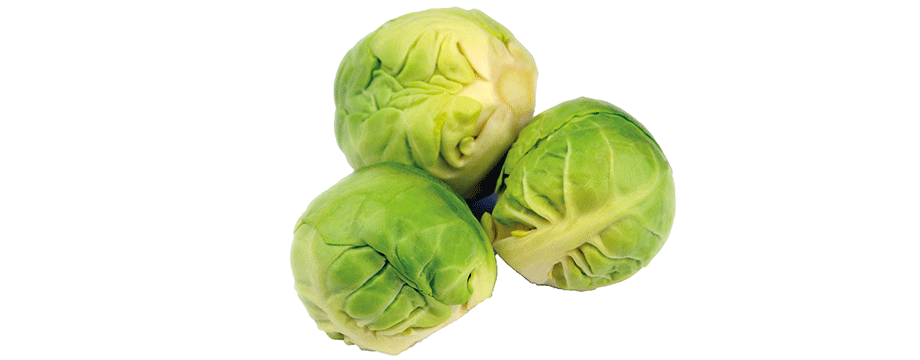
Seasons eatings
“Whilst Brussels sprouts tend to get thought about at Christmas time, they’re actually coming into season very soon,” says nutritionist Suzie Sawyer (www.nutritionlifestyle.co.uk). “And do give consideration for this much-maligned vegetable because it provides some great health benefits. Brussels sprouts are particularly healthy for the liver because they’re high in sulphur and encourage liver detoxification. Plus, they’re packed with vitamins and minerals and provide all the wonderful health benefits of other cruciferous vegetables, such as high fibre to keep the bowels regular, hormonal balance, cholesterol-lowering and antioxidant protection. Hopefully you’re convinced to go out and buy some!”

App of the month
October is Breast Cancer Awareness Month, and leading charity Breast Cancer Now has created the Breast Check Now app which aims to get women into the habit of checking their breasts regularly. The app sets up a plan that’s easy to remember and fits in with your daily life. It also gives all the information on potential signs and symptoms to look out for and enables you to keep a record of your checks to help you learn what’s normal for you and to see if anything changes.
Download the free Breast Check Now app here: breastcancernow.org/breastchecknow

Don’t skip breakfast!
New research has found that incorporating milk at breakfast time can help manage diabetes and obesity. The study, which was published in the Journal of Dairy Science, showed that this high-in-protein breakfast may aid slower digestion of carbohydrates, keeping blood glucose levels balanced throughout the day.
It is crucial that those with type 2 diabetes, or those who are pre-diabetic or at risk of obesity, try to keep their blood sugar levels as balanced as possible.
Nutritionist and fitness instructor Cassandra Barns says: “Skipping breakfast can result in your blood sugar levels dropping by mid-morning, so you need breakfast to keep your levels as even as possible – not dipping too low or rocketing too high.” Cassandra adds that to get the most out of your breakfast you should “focus on eating protein-rich foods with your breakfast. Good options can also include scrambled eggs on wholegrain toast, a natural yogurt with chopped nuts and berries mixed in, or even smoked salmon and avocado on rye toast.”

New study reveals significant nutrient gaps
A new study has found that adults in their twenties and thirties are falling short of recommended intakes of key micronutrients. The study, which was published in Frontiers of Nutrition, examined data from 3,238 people and charted the number of adults in their twenties, thirties, forties and fifties achieving the reference nutrient intake (RNI) for 16 important vitamins and minerals, and the number of people reaching the lower reference nutrient intake (LRNI) for 12 micronutrients.
The results found that adults in their twenties and thirties are failing to achieve even the minimum target for 12 nutrients: vitamin A, vitamin C, riboflavin, vitamin B12, folate, calcium, iron, magnesium, potassium, zinc, selenium and iodine. Among adults in their twenties, intakes for seven nutrients – vitamin A, riboflavin, iron, magnesium, potassium, selenium and iodine – are so low they pose a threat to their health and wellbeing. For adults in their thirties, levels of magnesium, potassium and selenium are dangerously low.
Study author, Dr Emma Derbyshire, Public Health Nutritionist and an advisor to the Health & Food Supplements Information Service (HSIS) said: “Clearly, improvements in dietary quality are needed across mid-life stages."
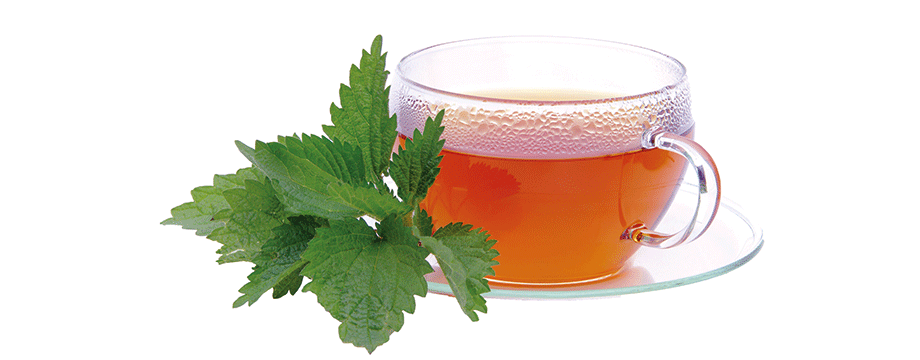
L is for... liver
“Optimum liver function is essential for our digestion, nervous system, hormonal and skin health,” explains Mani Norland, principal of the School of Health (www.schoolofhealth.com). “Its role is to store nutrients, produce hormones, detoxify waste substances and help regulate our blood sugar. Processed or ‘cooked’ fats, high fructose, alcohol or sugar intake puts an extra burden on the liver. To support its daily functions, choose herbal teas such as nettle or fennel and eat at least two portions daily of cruciferous vegetables. Have two days a week that you are alcohol-, sugar- and fruit-free. Ensure you are well hydrated and keep your blood sugar levels balanced and stress levels down throughout the day so the liver is not called upon too often to release its stored sugars into the bloodstream for energy.”

App of the month
Despite Australia having one of the world’s highest rates of skin cancer cases, official figures show 26,807 deaths recorded in Britain over a decade, versus 19,839 in Australia.
The Miiskin app was developed to help people digitally track how skin and moles look, with reminders to routinely check for changes and information about the types of things to look for.
The app assists the user in comparing photographs over time by allowing side-by-side image comparisons such as the appearance of a new mole or a change to an existing one. It does not try to diagnose skin cancer or tell users that they are at risk or not.
People who spot changes should seek advice from their GP or another medical professional. To find out more, visit www.miiskin.com

Don't miss the new GO! Organic Festival taking place in London next month
This September will see London's Battersea Park transformed into a one-of-a-kind, vibrant weekend celebration of the very best in organic, sustainable and healthy living.
Taking place from 8 to 9 September, GO! Organic is set to feature a raft of big-name and up and coming bands, celebrities, talks, demos in the Organic Kitchen, circus entertainment and much more. Alongside the traders, there will be entertainment for all ages, from live music to fun fair rides and even an animal farm.
Early bird tickets can be purchased via the website www.goorganicfestival.co.uk, with tickets for adults priced at £26, children at £13, and a family of four at £69. Plus, Your Healthy Living have an exclusive 20% discount for readers. Simply quote YHL20 to claim.
Find out more here...

Childhood obesity hits new record level
The levels of severely obese children aged between 10 and 11 have reached the highest point since records began, according to new figures released by Public Health England (PHE). The figures were collated as part of the National Child Measurement Programme (NCMP) and were measured between 2006 to 2007 and 2016 to 2017. The programme captured the height and weight of over one million children in Reception (aged four to five years) and Year 6 (aged 10 to 11 years) in school each year. The findings also show that levels of excess weight and obesity are higher in the most deprived areas compared to the least deprived.
Other observations include an upward trend of excess weight, obesity and severe obesity in Year 6 children; a downward trend of excess weight, overweight, obesity and severe obesity in Reception age boys; and a downward trend of underweight in Reception age boys and girls, and Year 6 girls. The Department of Health and Social Care recently announced the second chapter of its Childhood Obesity Plan to help halve childhood obesity by 2030. Main actions include mandatory calorie labelling on menus; and restrictions on price promotions on foods high in fat, salt or sugar. These measures will go out for consultation later in 2018.
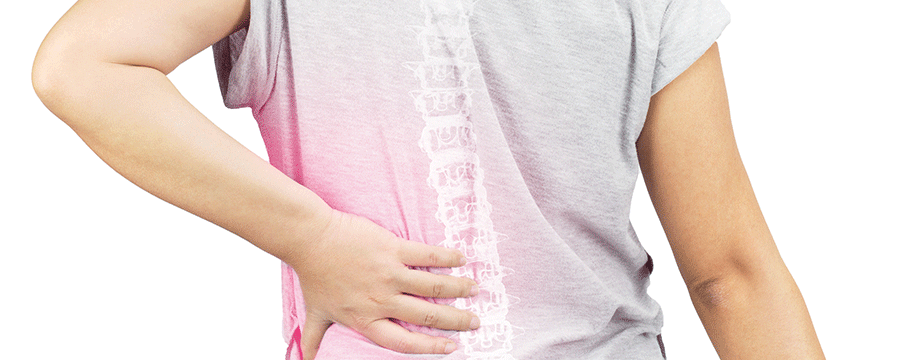
Probiotics may help in the prevention of osteoporosis
Swedish researchers have discovered that probiotics may help in the prevention of osteoporosis. The team from the University of Gothenburg found that bone loss was halved among older women who took daily probiotics compared to women who were given a placebo. Osteoporosis is characterised by porous and weak bones which can lead to fractures. The majority of women over 80 years of age have the disease.
Over the space of a year, a group of 90 elderly women with an average age of 76 were either given daily probiotics or a placebo. After a year, the women’s bone loss in their lower legs was measured with a CT scan and compared with the measurements taken at the start of the study. The results showed that the women who took the probiotics lost only half as much bone in their skeleton compared with those who received the placebo.
Mattias Lorentzon, a chief physician and professor of geriatrics at the University of Gothenburg said: “The fact that we have been able to show that treatment with probiotics can affect bone loss represents a paradigm shift. Treatment with probiotics can be an effective and safe way to prevent the onset of osteoporosis in many older people in the future.” The findings were published in the Journal of Internal Medicine.

Tea could help with weight management via gut microbiome link
Drinking tea could help weight management by changing the gut microbiome, new research has shown. Dr Catherine Hood, a women’s health expert and member of the Tea Advisory Panel said: “Tea drinking has been associated with weight loss in several studies, a benefit that has until recently been thought to be due mainly to the antioxidant polyphenol content of tea. However, findings from new laboratory studies suggest that tea can lead to the proliferation of beneficial bacteria in the gut. An in vitro study has demonstrated that green tea, black tea and oolong tea extracts all increase the growth of beneficial human intestinal bacteria. A further recent laboratory study also found that oolong tea, rich in tea catechins, produced a large increase in Bacteroidetes bacteria with a decrease in Firmicutes bacteria.”
She continued: “These two types of bacteria regulate fat absorption. Researchers have found that Firmicutes are better at extracting energy from food. So, a person with a large ratio of Firmicutes to Bacteroidetes in the gut could convert more of the energy in their food to fat, which will be stored in the body. Obese people have been shown to have a higher Firmicutes/Bacteroidetes ratio than normal and lean weight people. So, the positive effect of tea on the intestinal bacteria, in particular in increasing the Bacteroidetes/Firmicutes ratio may contribute to weight loss.”
Dr Hood added: “Overall, this new and emerging evidence suggests that tea and its polyphenol ingredients may have prebiotic activity, changing the ratio of types of bacteria in the gut which in turn may contribute to weight loss.”

Plastic pollution is the nation’s top environmental concern
Plastic pollution is the most important environmental issue to Brits, according to new research. Data analysts Mintel found that 47 per cent of respondents named this as their number one environmental concern, followed by animal welfare and climate change, both at 37 per cent. The importance of plastic pollution is also highlighted by strong customer demand for plastic-free stores (51 per cent) and packaging-free stores (43 per cent). Meanwhile, the nation’s love of animals is confirmed by the quarter (26 per cent) of Brits who say they are more influenced to buy products that are animal friendly.
Jack Duckett, Senior Consumer Lifestyles Analyst at Mintel, said that the issue of ocean pollution really chimed with the public following the BBC Blue Planet II episode on ocean plastic. He added: “And given the subsequent stream of media coverage about rising levels of plastic waste and contamination, it is little surprise that plastic pollution is the leading environmental concern. This high level of consumer concern has been met by a surge in the number of initiatives designed to cut the amount of plastic entering the environment, while a number of brands are finding new ways to upcycle existing plastic waste.”
The survey also found that 65 per cent of Brits say they are trying to live more ethically than a year ago. But while a conscientious 71 per cent of women are increasing their commitment to ethical living, just 59 per cent of men say they've been living more ethically over the past year.

Long work hours linked to diabetes risk in women
Women who work 45 hours per week or more have an increased risk of diabetes, a new study has found. The study was carried out by a team from the Research Centre of the Quebec University Hospital, Laval University, in Canada.
As part of the study the researchers monitored the health information of 7,065 workers aged between 35 and 74 for a 12-year period. The study participants were put into four groups based on their working hours: 15-34 hours; 35-40 hours; 41-44 hours; and 45 or more hours.
The researchers discovered that women who clocked up a working week of 45 hours or more had nearly a 70 per cent increased risk of diabetes compared to men or women who worked for 30 to 40 hours a week. However, men who worked longer hours did not have the same risk.
The researchers suggested that lengthy working hours might bring about a chronic stress response in the body, thus heightening the risk of hormonal abnormalities and insulin resistance. The results were published in BMJ Diabetes Research & Care.

Positive news for picky eaters
Finnish researchers have discovered that sensory-based food learning encourages young children to eat more fruit and vegetables. Researchers from the University of Eastern Finland used the sensory-based food education method Sapere, which uses all of the five senses by looking at, smelling, tasting, touching and listening to new things. In the Sapere method, children are given an active role around food, and they are encouraged to share their sensory experiences.
The researchers compared children in different kindergarten groups. Some were offered sensory-based food education, while others weren’t. The children were offered a range of different foods to choose from and the researchers took photos of their plates to analyse their willingness to choose and eat certain foods.
The findings showed that sensory-based food education increased the children’s willingness to choose vegetables, berries and fruit – especially among youngsters whose mothers had a lower educational background. The researchers also discovered that children who were picky eaters chose a more diverse selection of vegetables, berries and fruit thanks to the Sapere method.
The findings were published in Public Health Nutrition.

A nation of insomniacs
According to new research commissioned by Schwabe UK, 93 per cent of the UK public claim not to enjoy a good night’s sleep. Health Psychologist, Professor Mark Cropley from the University of Surrey, says: “Sleep is one of the most important restorative mechanisms available to humans, allowing for recovery from daily stresses and strains, and therefore good sleep is a prerequisite for optimal daily functioning and health. A lack of sleep can actually increase the risk of obesity, heart disease and diabetes, and raises the risk of an early death by 12 per cent.”
In order to get a better night’s sleep, Professor Copley recommends using blackout blinds or an eye mask to block out sunlight, avoiding the use of mobile phones or computer screens just before bedtime and keeping the bedroom cool as the optimum temperature for sleep is around 17°C. He adds: “The herb valerian (Valeriana officinalis L.) is known for its positive effect on sleep structure, helping achieve deeper levels of slow wave sleep.”

Step to it!
With an estimated 3 million middle-aged adults physically inactive across the country, Public Health England (PHE) and the Royal College of General Practitioners (RCGP) are encouraging adults to incorporate brisk walking into their days as a way to improve their general health and wellbeing.
As part of the push to get adults doing more moderate intensity physical activity each day, health experts are encouraging people to increase the intensity of their walking, rather than just focus on the distance or number of steps.
Moderate intensity physical activity means getting the heart rate up and breathing faster. Just 10 minutes of brisk walking a day is an easy way for adults to introduce more moderate intensity physical activity into their day and reduce their risk of early death by up to 15 per cent.
The Active 10 app has been created for this very purpose as it combines intensity and time, rather than just distance. Active 10 shows how much brisk walking the user is currently doing and provides tips and encouragement on how they can fit 10-minute bursts of brisk walking into their day. This free app can be downloaded from the iTunes store (for iOS) or the Google Play store (for Android).

Omega-3 may help protect against PTSD
Omega-3 fish oil can help to protect the brain against the effects of PTSD in people who have highly stressful jobs, new research has found. Researchers from John’s Hopkins University studied the effectiveness of omega-3 supplements in helping to prevent the development of post-traumatic stress disorder in disaster rescue workers in Japan.
A sample of 172 rescue workers who were given omega-3 supplementation was compared with the target population of 10,829 rescue workers who did not participate in the trial. The findings showed that female rescue workers who took the omega-3 supplements scored significantly lower on the Impact Event Scale, which is used to assess people for PTSD. The supplementation was not found to have any significant impact on the men in the group, however.
The researchers have stated that although their findings show that omega-3 could help women with PTSD, more research is necessary in order to determine its effectiveness in the general population. The study was published in the journal Psychotherapy and Psychosomatics.
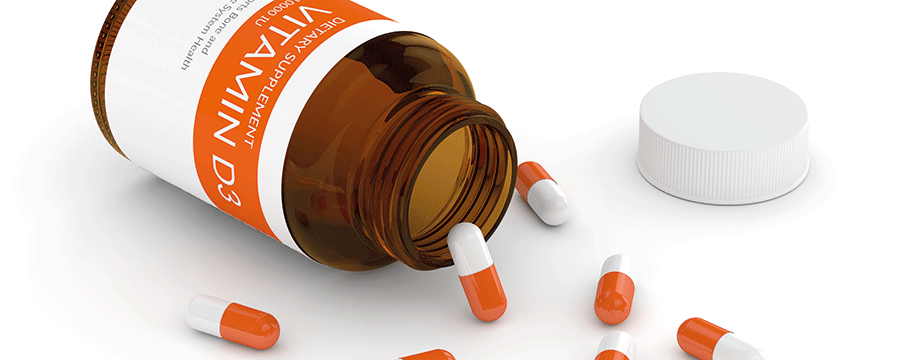
Higher vitamin D levels linked to lower risk of diabetes
A new study has linked higher vitamin D levels with a lower risk of diabetes.
Researchers from Harvard Medical School carried out a 12-year study on a group of 900 adults with an average age of 74, regularly monitoring their vitamin D and blood sugar levels. Compared with people whose blood levels of vitamin D were below 30 nanograms per millilitre (ng/ml), people with vitamin D levels of 30 ng/ml or more had one-third the risk for developing diabetes, and people whose vitamin D levels were 50 ng/ml or more had one-fifth the risk. The findings were published online in PLOS One.
Vitamin D is known as ‘the sunshine vitamin’ because it is manufactured in the body through exposure to the sun. Low levels of this vitamin are linked with poor bone and muscle health and other chronic conditions, such as heart disease and cancer.

Time to love your liver!
More than 70 per cent of people with liver disease in the UK don’t even know they have it, according to research published in The Lancet.
Following these findings, the British Liver Trust is highlighting its Love Your Liver campaign to raise awareness of the symptoms of liver disease. Professor Nick Sheron, a liver expert from the University of Southampton involved in the research, said: “Liver disease develops silently with no signs or symptoms and is the second leading cause of years or working life lost. If current trends continue it will become the leading cause of premature mortality in the UK.”
The Love Your Liver campaign focuses on three simple steps: Drink within recommended limits and have three consecutive alcohol-free days every week; cut down on sugar, carbohydrates and fat and take more exercise; and know the risk factors for viral hepatitis and get tested or vaccinated if at risk. The trust has launched a new online screening tool to help people determine whether they are at risk of liver disease. To find out more, visit www.britishlivertrust.org.uk/our-work/love-your-liver/love-liver-health-screener/

Stress in infancy ‘dramatically alters’ body’s organs
Scientists have found evidence suggesting that emotional stress in infancy has significant and far-reaching effects on the body and could result in disease later in life. Psychological stress in infancy dramatically changes the amount of an important class of proteins, calle d GABAA receptors, which in turn may alter the workings of the heart, lungs, kidneys and bladder.
It was already known that changes in the amounts of GABAA receptors causes some brain disorders, but researchers at the University of Portsmouth are the first to show that stress can also alter their expression in other organs. The research team in the School of Pharmacy and Biomedical Sciences studied the way GABAA receptors behave in secondary organs in mice which had first been exposed to stress. The study was published in Frontiers in Molecular Neuroscience.

Red wine may help protect against prostate cancer
Austrian researchers have discovered that moderate consumption of red wine has a slightly protective effect against prostate cancer. The team from MedUni Vienna’s Department of Urology carried out a retrospective analysis of 17 studies including around 611,000 patients.
Their findings showed that a moderate consumption of red wine – approximately one glass a day – reduced the risk of developing prostate cancer by around 12 per cent. However, consumption of white wine increased the risk by 26 per cent. The researchers now want to find out which components of red wine have this protective effect and whether this can also be used therapeutically – for example in high-risk groups.
“Indeed, it has already been shown that polyphenols, which are predominantly found in red wine, can have a protective effect in other diseases and other types of cancer,” said lead researcher Shahrokh Shariat. Red wine contains 10 times the amount of polyphenols found in white wine, which might explain the observed results. The findings were published in the journal Clinical Epidemiology.

Study shows increased interest in natural health
A new study shows millions of adults are relying on natural remedies and therapies to maintain a normal healthy lifestyle. And rather than turning to a doctor as a first port of call in times of trouble, 48 per cent prefer to find their own treatment while 21 per cent are taking up natural alternatives such as homeopathy, nutritional therapy, therapeutic massages and herbal tonics.
Mani Norland, Principal for The School of Health, which commissioned the report via OnePoll.com, said: “Busy waiting times and overloaded medical professionals mean many people find it easier to fend for themselves. Add to this a growing mistrust of pharmaceutical companies, and it’s little surprise many adults are looking for more natural solutions to stay well. People feel more empowered to take responsibility for their own health and do their own research, and the survey shows that many choose natural medicines because they feel they are safer, less toxic with little or no side effects.”

I is for Iodine...
“Iodine is a trace mineral that is best known for its vital role in thyroid hormone production,” explains Mani Norland, principal of the School of Health (www.schoolofhealth.com). “However, it is also important during pregnancy and early childhood to support the development of the brain. Regular intake of iodine-rich foods boasts the health benefits of increased energy, stamina, increased immunity and improved detoxification. Food sources are a good place to begin. Iodine-rich foods include sushi and other seaweeds, cranberries, baked cod, plain yogurt, eggs, dried prunes, strawberries and sardines.”

Dietary changes may help osteoarthritis symptoms
The pain of arthritis could be reduced by taking 1g of fish oil a day, a new study has found. Researchers from the University of Surrey examined the link between diet and the effective self-management of osteoarthritis. Analysing 68 previous studies in the field, the researchers found that a low-dose supplement of fish oil (one and a half standard capsules) could result in pain reduction for patients with osteoarthritis and help improve their cardiovascular health.
Essential fatty acids in fish oil reduce inflammation in joints, helping to alleviate pain. The researchers also found that a reduction of weight for overweight and obese patients and the introduction of exercise tailored to mobility could also help ease the symptoms of osteoarthritis. Not only does obesity increase strain on joints, it can cause low-grade, systemic inflammation in the body aggravating the condition further.
An increase in foods rich in vitamin K such as kale, spinach and parsley, was also found to deliver benefits to patients with osteoarthritis. Vitamin K is needed for vitamin-K-dependent (VKD) proteins, which are found in bone and cartilage. An inadequate intake of the vitamin adversely affects the working of the protein, affecting bone growth and repair and increasing the risk of osteoarthritis. The results were published in the journal Rheumatology.
Folic acid could reduce risk of stroke
Folic acid could help to reduce the risk of stroke in people with high levels of homocysteine and a low platelet count, according to a new study about to be published in the Journal of the American College of Cardiology. Commenting on the study, Dr Gill Jenkins, a GP and advisor to the Health & Food Supplements Information Service (HSIS), notes: “Most strikingly, in this large analysis involving over 10,000 people with high blood pressure, those with a low blood platelet count and high levels of homocysteine who took a combined daily dose of both enalapril (a prescription medication used to treat high blood pressure) and folic acid saw a 73 per cent reduction in their risk of first stroke compared to people who took only enalapril daily.” She adds: “Folic acid is an essential B vitamin, which is required for making red blood cells and the synthesis and repair of DNA and RNA. Folic acid is also capable of lowering homocysteine levels in the blood. This is important because high levels of homcysteine are associated with increased risk of cardiovascular disease, including stroke.
Dr Jenkins adds: “People who have high blood pressure or are concerned about their cardiovascular health or risk of stroke should consult their doctor and should not change any medication they are taking without their doctor’s advice. However, the findings of this study suggest that taking a B vitamin or multi-vitamin and multi-mineral supplement containing folic acid would be a wise move for all adults in the UK.”

Excessive screen time linked with heart disease and cancer
Time spent watching TV or looking at a computer screen during leisure time – termed discretionary screen time – has been associated with higher risk of mortality and cardiovascular disease in a new large-scale study.
The research was led by the University of Glasgow and published in BMC Medicine. The researchers looked at 390,089 participants and analysed the amount of discretionary screen time. They found that the association between a high level of discretionary screen time and adverse health outcomes was almost twice as strong in those with low fitness levels or low grip strength.
In contrast, the potential adverse associations of high levels of discretionary screen time were much smaller in those who had the highest levels of fitness and grip strength.
The researchers also found that higher levels of screen time were associated with a higher risk of all-cause mortality, as well as a higher risk of both heart disease and cancer. The findings were independent of physical activity, grip strength, BMI, smoking, diet and other major confounding factors, including socio-economic status.

Trend alert: Plogging
Want to get fit whilst helping to improve your local environment? Try plogging! This new fitness craze involves picking up litter while out jogging and was first coined around 18 months ago in Sweden. It has since travelled around the world with active ploggers in Australia, India and the US among others. Staff and students from the University of Sussex have adopted the pastime around their campus and are now looking to make it a regular activity. Why not try it in your own community?

Lack of sleep leads to obesity in youngsters
Children who get less than the recommended amount of sleep for their age are at a higher risk of developing obesity. Research at the University of Warwick has found that children and adolescents who regularly sleep less than others of the same age gain more weight when they grow older and are more likely to become overweight or obese.
The researchers reviewed the results of 42 population studies of infants, children and adolescents aged from 0 to 18, which included a total of 75,499 participants. Their average sleep duration was assessed through a variety of methods, from questionnaires to wearable technology. Participants were followed up for a median period of three years and changes in BMI and incidences of overweight and/or obesity were recorded over time. At all ages, those who slept less gained more weight and overall were 58 per cent more likely to become overweight or obese.
One of the co-authors, Dr Michelle Miller, Reader of Biochemical Medicine, Health Sciences, Warwick Medical School said: “Being overweight can lead to cardiovascular disease and type-2-diabetes which is also on the increase in children. The findings of the study indicate that sleep may be an important potentially modifiable risk factor (or marker) of future obesity.” The findings were published in the journal Sleep.

New study shows being in nature increases happiness
This June, The Wildlife Trusts’ 30 Days Wild challenge will encourage thousands of people across the UK to make their neighbourhoods wilder – to help wildlife and get communities sharing the joy of the wild. The theme this year is all about helping wildlife in your neighbourhood, from carving hedgehog holes in fences to putting up bird and bat boxes and doing a local litter pick.
Academics at the University of Derby, who have monitored the challenge since it began in 2015, have discovered that spending time in nature makes us feel good. Dr Miles Richardson, Director of Psychology, University of Derby explains: “Tuning-in to the everyday beauty of nature becomes part of a journey which connects us more deeply to the natural world. As people’s appreciation of natural beauty increases, so does their happiness. We respond to beauty – it restores us and balances our emotions. This, in turn, encourages people to do more to help wildlife and take action for nature.” To sign up to the challenge, visit www.wildlifetrusts.org/30DaysWild

H is for vitamin H...
“Vitamin H (biotin or vitamin B7) is a little known water soluble vitamin,” explains Mani Norland, principal of the School of Health (www.schoolofhealth.com).
“It plays a vital role in maintaining and improving the condition of our hair, skin, nails and also supporting our blood sugar levels through the metabolism of glucose. It is known as vitamin H after the German words Harr and Haut, meaning skin and hair. We cannot synthesise it in our bodies, so a small daily intake is essential. Dietary sources include almonds, sweet potato, oats, tomatoes eggs, walnuts and salmon.”

Bad news for ‘night owls’
“Night owls” – people who like to stay up late and have trouble dragging themselves out of bed in the morning – have a higher risk of dying sooner than “larks,” people who have a natural preference for going to bed early and rise with the sun. These were the findings of a new study from the University of Surrey and Northwestern Medicine in Chicago.
The researchers examined the link between an individual’s natural inclination toward mornings or evenings and their risk of mortality. They asked 433,268 participants, aged between 38 and 73, if they are a “definite morning type” a “moderate morning type” a “moderate evening type” or a “definite evening type.” Deaths in the sample were tracked up to six and a half years later.
The scientists discovered that owls have a 10 per cent higher risk of dying than larks. They also found that owls had higher rates of diabetes, psychological disorders and neurological disorders. “This is a public health issue that can no longer be ignored,” said Malcolm von Schantz, Professor of Chronobiology at the University of Surrey. “We should discuss allowing evening types to start and finish work later, where practical. And we need more research about how we can help evening types cope with the higher effort of keeping their body clock in synchrony with sun time.”
The study was published in the journal Chronobiology International.

Survey shows kids’ concerns over air pollution
A new survey has revealed that over two fifths (43 per cent) of children living in urban areas are concerned about the levels of air pollution near their school.
A YouGov poll, carried out for Sustrans, the walking and cycling charity, surveyed over 1,000 children aged six to 15 years old about their attitudes towards air pollution and the actions they think should be taken to help clean up the air. More than one in three (38 per cent) of those surveyed think that encouraging more people to cycle, scoot or walk to school is the best way to help to reduce levels of air pollution, while a further 16 per cent feel that reducing the number of journeys taken by car would play the greatest role.
The survey was released to launch the Big Pedal 2018 (23 April – 4 May), the UK’s largest schools competition to encourage more young people to cycle, walk and scoot to school.
Celebs back fundraising campaign for MS
The MS Society has launched a new campaign to help raise money to fund cutting-edge research into the condition. As part of the Kiss Goodbye to MS campaign, the public are being encouraged to give up their favourite ‘guilty pleasure’ throughout the month of May in return for donations to the charity.
Made in Chelsea star Jane Felstead and gold medal-winning Paralympian Kadeena Cox both have MS and are spearheading the campaign by giving up their favourite treats. MS affects over 100,000 people in the UK, but three times as many women as men are affected, and those in their twenties and thirties are most likely to be diagnosed.
Anyone interested can sign up on the MS Society website at www.mssociety.org.uk/kissgoodbyetoMS and name their guilty pleasure using the hashtag #KissGoodbyetoMS

High omega-6 levels can protect against premature death
Finnish researchers have found that omega-6 fatty acids can provide protection against premature death and keep cardiovascular diseases at bay.
“Linoleic acid is the most common polyunsaturated omega-6 fatty acid,” explains Adjunct Professor Jyrki Virtanen from the University of Eastern Finland. “We discovered that the higher the blood linoleic acid level, the smaller the risk of premature death.” The main sources of linoleic acid are vegetable oils, plant-based spreads, nuts and seeds.
The researchers measured the blood fatty acid levels of 2,480 men aged between 42 and 60 at the onset of the study, in 1984–1989. During an average follow-up of 22 years, 1,143 men died of disease-related causes. Deaths due to an accident or other reasons were excluded from the study. The researchers then divided the participants into five different groups based on their blood linoleic acid levels.
Their findings showed that the risk of premature death was 43 per cent lower in the group with the highest blood level of linoleic acid compared to the group with the lowest level. A more detailed analysis of the causes of death showed that a similar association existed for death due to cardiovascular diseases, as well as for death due to some other reason than cardiovascular diseases or cancer. The findings were reported in the American Journal of Clinical Nutrition.

Vitamin D deficiency linked to heart disease
The stress of open-heart surgery significantly reduces patients’ vitamin D levels, US researchers have discovered.
Researchers at the Intermountain Medical Center Heart Institute in Salt Lake City uncovered two key findings related to vitamin D levels and open-heart surgery. First, they found that open-heart surgery patients generally have low levels of vitamin D to begin with, and secondly, they discovered that stress associated with the surgery further reduced their vitamin D levels by the time they were discharged from hospital.
The researchers found that giving heart patients vitamin D3 supplements before and after surgery reduced those deficiencies. Patients who were given the supplement had normal levels of vitamin D shortly after the surgery. This connection is important since a vitamin D deficiency is associated with an increased risk of heart attacks, strokes, congestive heart failure and other cardiovascular conditions, including high blood pressure and diabetes.
“We’re gathering more evidence that vitamin D deficiency is strongly associated with heart disease and death,” said Dr Brent Muhlestein, lead author of the study. “We want to continue our research and see if supplementing vitamin D levels will help prevent heart problems in the future, given our understanding that low levels of vitamin D can cause an increased risk for heart problems.”

Supplementing vitamin B12 could postpone Parkinson’s progression
Newly diagnosed patients with Parkinson’s disease, who have low levels of vitamin B12, develop symptoms faster than those with higher levels, researchers have found.
The study, published in the journal Movement Disorders, demonstrates that low vitamin B12 levels are associated with greater walking and balance problems, possibly due to the known effect of a B12 deficiency on the central peripheral nervous systems.
Researchers divided patients, who were recently diagnosed but had not yet begun treatment, into three groups according to their levels of vitamin B12 and assessed them over a two-year period. Upon completion of preliminary evaluations, patients were given the opportunity to take a controlled daily vitamin supplement. Research results showed improved vitamin B12 levels in approximately 50 per cent of participants, indicating supplementation was taken.
Disease progression in patients with improved vitamin B12 levels was found to be much slower compared with those maintaining low levels of the vitamin.
Vitamin B12 is vital for cognitive health, but it is notoriously difficult to absorb through the gut, meaning that supplementing has become a necessity.
Supplementing via a daily oral spray means the vitamin is absorbed directly into the bloodstream, avoiding the digestive system which can destroy essential nutrients with strong enzymes and acids. To find out more, visit www.betteryou.com
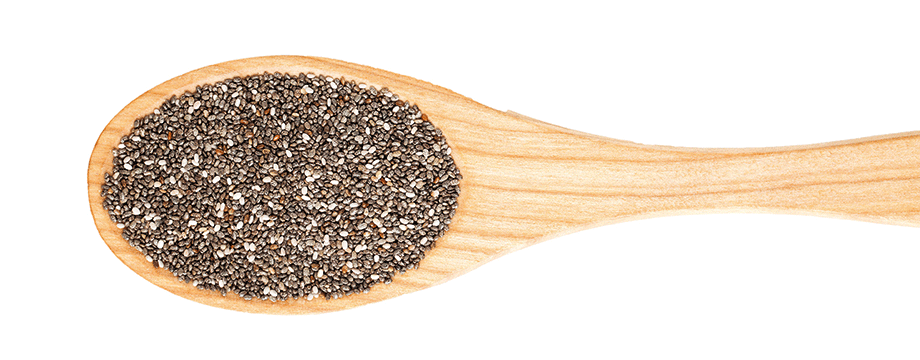
F Is for Fibre...
“Boosting your soluble fibre intake on a daily basis from sources such as brown basmati rice, quinoa, oats, milled flax and chia seeds, psyllium, beans, pulses, vegetables and whole fruit with the skin on has many health-boosting properties,” explains Mani Norland, principal of the School of Health (www.schoolofhealth.com).
“These include gently slowing the digestion so you can absorb the nutrients from your food and supporting blood sugar levels. It has also been shown to aid weight loss. Insoluble fibre is found in bran, nuts and seeds, wholemeal bread and potatoes with their skins on. It supports the movement through your digestive system, increasing the bulk of your stools – great if you are constipated. We need a mix of both for a healthy, happy gut!”

Cinnamon: the super spice?
In a controlled study by the University of Columbo, scientists evaluating the effects of Ceylon cinnamon on the body found 13 overwhelming health benefits which included lowering blood pressure as well as the lowering of cholesterol. The clinical trial took a group of healthy men and women giving them increasing doses of cinnamon in tablet form over the course of three months, resulting in a significant decrease in blood pressure and the lowering of total cholesterol and LDL cholesterol with no significant side effects.
Researchers concluded that the health benefits of cinnamon can be obtained in the form of its pure bark, essential oils, in ground spice form or in extract form when its special phenolic compounds, flavonoids and antioxidants are isolated. It is these compounds that make cinnamon one of the most beneficial spices on earth, giving it antioxidant, anti-inflammatory, anti-diabetic, anti-microbial, immunity-boosting and potential cancer and heart disease-protecting abilities. The findings were published in BMC Complementary and Alternative Medicine.

Daily breakfast boosts physical activity among girls
As the adage goes, breakfast is the most important meal of the day, and a new study by UK researchers seems to back that up.
Researchers from the University of Bedfordshire and Loughborough University carried out a study involving 27 adolescent girls who ate a standard breakfast on seven consecutive days. The same girls then ate breakfast on three days alternating with four days of eating no breakfast over another seven-day period. The results showed that the girls were more active in the morning and after school, and less sedentary after school, when breakfast was eaten daily than when it was eaten intermittently across the seven-day periods.
Dr Julia Zakrzewski-Fruer, Lecturer in Health, Nutrition & Exercise at Bedfordshire, said: “There is some evidence that higher overweight and obesity levels in adolescents who skip breakfast may be partly due to lower physical activity levels. It is an issue particularly pertinent in teenage girls as both the frequency of breakfast consumption and physical activity levels decline markedly in girls between childhood and adolescence. We need to carry out longer trials to examine the possible role of physical activity in contributing to lower body weight and fat levels in girls who eat breakfast frequently.” The findings were published in the Journal of Nutrition.

Vitamin D could help to ease IBS
Scientists from the University of Sheffield have found that vitamin D supplements could help to ease the symptoms of Irritable Bowel Syndrome (IBS). The team also discovered a high prevalence of vitamin D deficiency in IBS patients. The findings were published in the European Journal of Clinical Nutrition.
IBS is a debilitating functional disorder of the gastrointestinal (GI) tract. Little is known about why and how the condition develops, although it is known that diet and stress can make symptoms worse. Two in 10 people in the UK are affected by it, with symptoms including abdominal pain, bloating, diarrhoea and constipation.
Lead author of the study, Dr Bernard Corfe, said: “The study provides an insight into the condition and, importantly, a new way to try to manage it. It is evident from the findings that all people with IBS should have their vitamin D levels tested and a large majority of them would benefit from supplements.”
Vitamin D is essential for general wellbeing, including bone health, immune function, mental health as well as gut health. Vitamin D inadequacy can be remedied relatively easily with supplements if diagnosed. Low vitamin D status has already been associated with the risk of colorectal cancer and has been implicated in inflammatory bowel disease.

New study could help headache sufferers
Researchers from the University of Warwick are launching a new education and self-management programme aimed at helping those who suffer with chronic headaches.
The programme will include education about headache disorders, medication management, sleep, exercise, diet, mood, relaxation, mindfulness and communicating experiences to family and healthcare workers. People with chronic headaches have headaches (including migraine) on 15 or more days every month.
One in 30 of the population are living with this condition, however there is very little information available about how to support them or help them to make the best use of available treatments. Professor Martin Underwood, who is leading the study, said: “Self-management support programmes have an established place in the management of a range of chronic diseases and we are hoping our study will establish an effective method of treating such a common but potentially debilitating condition.”

What’s good for the heart is good for the brain
A new report has found that foods which are good for our hearts are also good for the health of our brains. The report from the Global Council of Brain Health (GCBH) examined the evidence to date on the impact of diet on brain health in adults aged 50 and over. The findings revealed that through eating a combination of different types of food such as leafy greens, berries and good fats in the form of extra virgin olive oil and omega-3 rich fish, people can expect long-term health benefits.
Among the advice given on what to include in your diet, the report also warns people of all ages to go easy on the amount of salt, wine, caffeine and chocolate they consume, if they want to maintain their brain health as they grow older. The study also concluded that it’s never too late to improve your diet and see positive results.
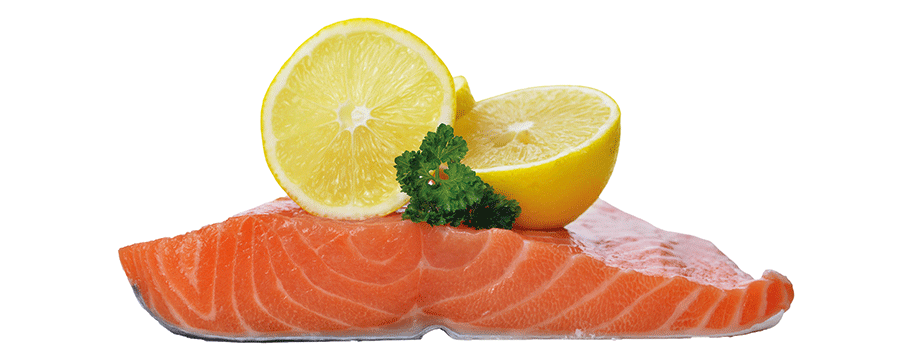
E is for essential fatty acids
“Omega-3 (linolenic acid, EPA and DHA) and omega-6 (linoleic acid) are essential fatty acids as we cannot make them in the body,” says Mani Norland, principal of the School of Health (www.schoolofhealth.com). “They need to come through food or supplementation. Research is currently examining their role in reducing the impact of inflammation, type 2 diabetes, coronary heart disease, cardiovascular disease, depression and other mental health disorders. Boost through diet with eggs and oily fish such as salmon, mackerel, anchovy, sardines and herrings … remember them as “S.M.A.S.H”. Or boost through algae oil if you are vegan or vegetarian.”

Can exercise help prostate cancer patients?
Researchers in the UK are investigating the effects of high intensity exercise on patients with prostate cancer. The team from the University of Surrey and Royal Surrey County Hospital are undertaking this new research to help improve survival rates of men with metastatic prostate cancer. They will investigate the impact of high intensity aerobic and resistance training combined with psychosocial support on men with the disease.
During this worldwide study, the team will provide an exercise programme for 866 men with prostate cancer over a three-year period at sites across Australia, North America and Europe.
Dr Ralph Manders said: “The benefits of exercise to both our physical and mental wellbeing is undeniable. What we are hoping to uncover is whether the same benefits are experienced when a person is living with cancer, and whether it extends their survival from cancer. If it does, this could be revolutionary in the future of treating and supporting people with prostate cancer.”

App of the month
VNutrition is a new app released by The Vegan Society. Created by a registered dietitian, the app features handy hints and illustrations that bring to life the basic principles of vegan nutrition, helping users to learn about portion sizes, getting their five-a-day, hitting their targets for protein, calcium and omega-3 fat, and ensuring appropriate supplementation. A simple checklist enables users to assess their nutritional intake, and a progress graph and personalised tips help them to identify areas for improvement. VNutrition can be downloaded on Google Play and iTunes now.

Berry good!
For those of us who suffer with the mid-afternoon slump, the answer to beating our fatigue could lie in a dose of mixed berries. New research conducted by the University of Reading, in conjunction with British Summer Fruits, has found that consuming mixed berries at breakfast could sustain or improve cognitive function for up to six hours after consumption. The research, which was presented at the recent International Conference on Polyphenols and Health in Quebec, tested 40 adults aged between 20 and 30, who consumed either a drink containing 75g of strawberries, raspberries, blackberries and blueberries, or a placebo. The adults were tested on a computer-based task and were monitored two, four and six hours after consumption.
Findings from the double-blind trial suggest that the adults who consumed the polyphenol-rich berry drink sustained their cognitive performance throughout the day. The study also found that reaction time for those who had consumed the mixed berry drink was faster six hours after consumption compared to their performance at two hours and four hours, whereas no improvement was found for the control group.

Time to stop the plastic tide
The Marine Conservation Society (MCS) is calling for a charge to be placed on single-use plastic items such as straws, stirrers, cutlery, cups and cup lids, in a bid to tackle plastic pollution. In the Great British Beach Clean 2017, the UK’s largest and most influential beach clean-up and survey run by MCS, almost 7,000 volunteer beach cleaners picked up record amounts of litter from 339 UK beaches – on average, a staggering 718 pieces of rubbish from every 100 metres cleaned.
Litter classed by MCS as ‘on the go’ items made up 20 per cent of all litter found on the UK’s beaches between 15 and 18 September 2017.
Luca Bonaccorsi, Director of Engagement and Communications at MCS, said: “The 5p single-use carrier bag charge has made a massive difference to the number of plastic bags entering our seas. If a charge was placed on single use plastic such as straws, stirrers, cutlery, cups and cup lids, we're confident that we'd find fewer of these items on our beaches.”
For more information on the appeal, visit www.mcsuk.org/stop-the-plastic-tide
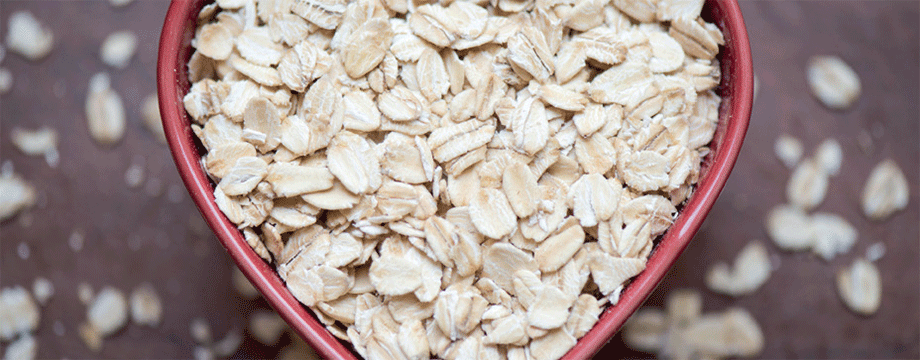
High cholesterol: the silent killer
February is National Heart Health Month, and research from the cholesterol charity HEART UK indicates that most people don’t know they have high cholesterol. This is why it’s becoming known as “The silent killer”. There are often no clear symptoms of high cholesterol and for some, the first sign might be a heart attack.
Linda Main, from HEART UK, says: “Simply knowing that you have raised cholesterol and understanding what this means for your health is probably the most important step. Once you’re aware of high cholesterol, there are many things you can do to help manage your levels, and most of them are simple changes to your diet and lifestyle and take very little effort.”
Oat beta-glucan has been shown to lower/reduce blood cholesterol. High cholesterol is a risk factor in the development of coronary heart disease. The beneficial effect is obtained with a daily intake of 3g of oat beta-glucan. Ask your independent health food store for further information on OatWell®, which contains concentrated oat beta-glucan.

Vitamins in pregnancy linked with reduced autism risk
A new study, published in JAMA Psychiatry, has found that women who took multivitamins and folic acid either before or during pregnancy were significantly less likely to have a child who went on to develop autism spectrum disorder.
The study followed 45,300 Israeli children (of which around half were girls) born in 2003-2007 and checked for a diagnosis of autism up until January 2015. During this time, 572 (1.3 per cent) children received a diagnosis of autism.
Commenting on the study, dietitian, Dr Carrie Ruxton from the Health and Food Supplements Information Service said: “The results showed a 61 per cent reduced risk of autism when mothers had taken either a multivitamin and/or folic acid supplement prior to becoming pregnant. It was also found that mothers who took these vitamin supplements during pregnancy were 73 per cent less likely to have a child who went on to be diagnosed as autistic. While this is an observational study and we need to be cautious, it is an important finding which contributes to our body of knowledge on factors linked with autism. According to autism charities, over 695,000 people in the UK may be autistic, with a prevalence rate of 1.1 per cent in children. Taking a daily multivitamin is a useful way of ensuring that women have the nutrients they require. If planning a pregnancy, a daily folic acid supplement of 400 micrograms should be added to this.”
A grain of truth
University of Hertfordshire researchers have been trialling a new approach to help the public identify which wholegrain foods are the healthiest. Currently there is no national or international definition of what a wholegrain food is, leading to some foods containing high levels of fat or sugar being labelled as wholegrain and appearing to be healthier than they are.
The researchers found that wholegrain foods with a carbohydrate: fibre ratio of less than 10:1 tend to be the lowest in fat, sugar and salt. A total of 266 breakfast cereals and 162 breads sold at the four major UK supermarkets were identified as meeting this criterion and their nutritional quality was compared with the Food Standards Agency traffic light system. Breads which met the criterion typically contained medium fat, low saturated fat, low sugar and medium salt whilst breakfast cereals typically contained medium fat, low saturated fat, high sugar and low salt.
Dr Angela Madden, Lead for Nutrition and Dietetics at the University of Hertfordshire said: “Our work shows that using the carbohydrate:fibre ratio helps to identify foods that have good nutritional value. We suggest that food manufacturers should consider adopting this approach to help consumers.”
Their findings have been published in the online journal Public Health Nutrition.

Fibre-rich diet could help arthritis
A fibre-rich diet could have a positive influence on chronic inflammatory joint diseases such as arthritis, leading to stronger bones, say researchers from Friedrich-Alexander-Universität Erlangen-Nürnberg (FAU) in Germany.
The research team discovered that a healthy, fibre-rich diet can change our gut bacteria in such a way that more short-chained fatty acids, particularly, propionate, are created. Short-chained fatty acids are needed in order to provide energy, stimulate gut movement and have an anti-inflammatory effect.
“We were able to show that a bacteria-friendly diet has an anti-inflammatory effect, as well as a positive effect on bone density,” said Dr Mario Zaiss, who is leading the team behind the study. “Our findings offer a promising approach for developing innovative therapies for inflammatory joint diseases as well as for treating osteoporosis, which is often suffered by women after the menopause. We are not able to give any specific recommendations for a bacteria-friendly diet at the moment, but eating muesli every morning as well as enough fruit and vegetables throughout the day helps to maintain a rich variety of bacterial species.” The findings were published in the journal Nature Communications.

Mediterranean diet may protect against frailty
An analysis of published studies indicates that following the Mediterranean diet may reduce the risk of frailty in older people. The findings, which were published in the Journal of the American Geriatrics Society, suggest that a diet emphasising primarily plant-based foods – such as fruits and vegetables, whole grains, legumes, and nuts – may help keep people healthy and independent as they age.
Researchers from University College London analysed evidence from all published studies examining associations between adherence to a Mediterranean diet and development of frailty in older individuals. Their analysis included 5,789 people in four studies in France, Spain, Italy, and China.
“People who followed a Mediterranean diet the most were overall less than half as likely to become frail over a nearly four-year period compared with those who followed it the least,” said Dr Kate Walters, who led the research team.
The investigators noted that the Mediterranean diet may help older individuals maintain muscle strength, activity, weight, and energy levels, according to their findings. “Our study supports the growing body of evidence on the potential health benefits of a Mediterranean diet, in our case for potentially helping older people to stay well as they age,” added Dr Gotaro Kojima.

Takeaway link to heart disease in children
Worrying new research has found that children who regularly eat takeaways may be at an increased risk of heart disease. These youngsters are more likely to be consuming too many calories and fewer vitamins and minerals than those who eat home cooked food, say the researchers, from St George’s, University of London.
The researchers analysed nearly 2,000 UK children aged from nine to 10, questioning them about their everyday diets and consumption of takeaway food. They also measured the youngsters’ height, weight, waist circumference, skinfold thickness, body fat composition, blood pressure and cholesterol levels. The results showed that skinfold thickness, body fat composition and cholesterol all tended to be higher in the children who regularly ate takeaways.
University of London, said: “These results indicate that children eating takeaway meals frequently may be increasing their risk of disease in the future, and that these meals are less likely to be containing all the important nutrients growing children need for their health. We need to consider the food environment in our neighbourhoods and improve the healthy food options that are available, which are both quick and affordable for families”. The findings were published in the Archives of Disease in Childhood.

Study shows the immediate heart benefits of exercise
A single workout can immediately protect the heart against cardiovascular disease, new findings suggest. The latest research from Liverpool John Moores University shows that just one episode of exercise may provide early protection of the heart for two to three hours followed by a more robust and longer period of protection that emerges after 24 hours and remains for several days.
This theory is based on the well-known concept that the heart is protected against a blockade of blood flow, such as a myocardial infarction, when it is repeatedly exposed to short periods of blood flow blockade, prior to the event. This ‘prepares’ the heart against damage. Various types of exercise seem to induce a comparable effect, leading to protection of the heart.
Professor Dick Thijssen, who led the study, said: “Protecting the heart through exercise is an easy, inexpensive, and powerful therapy that deserves greater recognition and further resources to establish the optimal dose.” The findings were published in JAMA Cardiology.
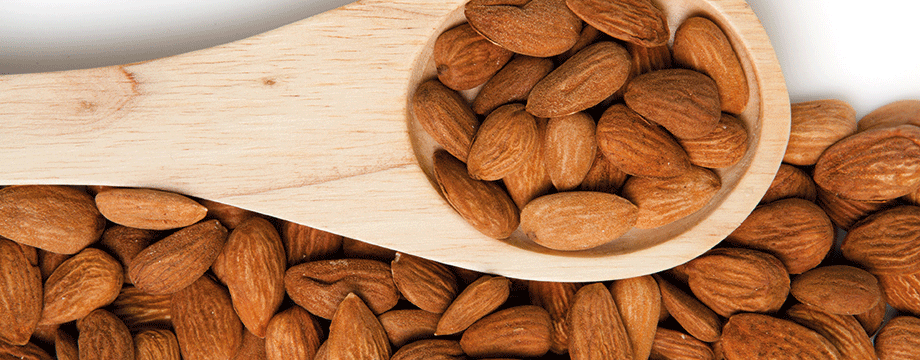
Almonds: the snack for dieters
Recent research suggests that almonds might be the perfect snack for those looking to lose weight.
A study published in the European Journal of Nutrition found that a mid-morning snack of 42g of almonds (one handful) helped control appetite and resulted in reduced calorie intake over the rest of the day.
Despite eating additional calories from almonds, there were no significant differences in total daily energy intake between this group and the group eating no almonds, suggesting that the participants naturally compensated for the calories from the almonds.
In another clinical study, participants were instructed to eat 1.5oz (56g) of whole almonds daily, and despite those additional 250 calories, neither total daily calorie intake nor body weight increased among participants. In fact, snacking on almonds significantly reduced hunger and desire to eat compared to the control group.

New health study aims to support lorry drivers
Researchers are working on a new study aimed at helping lorry drivers to improve their health through physical activity and a healthier diet that fits in with their work schedule. Due to the nature of their work, lorry drivers tend to have higher than average rates of obesity, diabetes and high blood pressure, and have a significantly reduced life expectancy in comparison to other occupational groups.
Researchers from Loughborough University, the University of Leicester and the University of York, have teamed up with logistics company DHL to test a programme aimed at promoting positive behavioural changes in terms of increased physical activity and a healthier diet.
Previous research by the same team has shown that 84 per cent of HGV drivers were overweight or obese compared to 75 per cent of men the same age nationally. The programme, which is funded by the National Institute for Health Research, could be rolled out across the transport sector, if it proves to be successful.
Drivers taking part in the programme will receive education on healthy eating and exercise and be given a fitness tracker. The researchers will monitor their number of steps a day, amount of sleep, blood pressure and cholesterol both at the start of the programme and at six and 12 months.
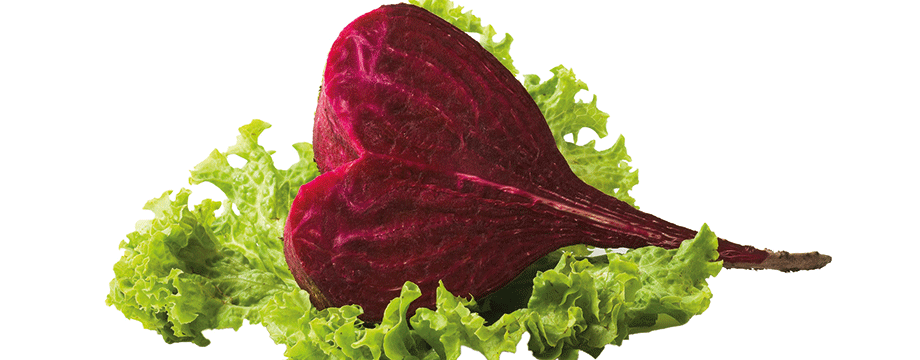
Your best shot at a healthier heart
A new study by scientists at the Queensland University of Technology in Brisbane, has shown that drinking just two nitrate-rich 7cl concentrated beetroot shots can have a significant effect on cardiovascular health in the ageing population.
In a randomised and placebo controlled study, 13 heathy adults aged 64 consumed either two beetroot shots (containing 400mg of natural dietary nitrate each) or a nitrate depleted placebo shot containing no nitrate. Those who drank the nitrate-rich shot were found to have reduced blood pressure by an average of 6.6mmHg. Participants also had a reduced blood clotting time and improved blood circulation. Overall, the findings suggest that drinking just two concentrated beetroot shots can protect against the development of cardiovascular disease.

Why use wood as a winter fuel?
Firewood expert Nic Snell of Certainly Wood (www.certainlywood.co.uk) shares why wood is a good, sustainable energy choice.
- Wood is a renewable source of energy. Unlike fossil fuels, wood is truly sustainable. Trees can produce fuel within approximately 20 years as opposed to millions of years for fossil fuels and new trees can be planted every year to replace those cut down.
- It is clean and easy to store and handle.
- Wood is carbon neutral. Many producers are now implementing as many neutralising practices into their process as possible to produce firewood.
- It can be bought locally and therefore supports UK farmers and woodlands.
- It is beneficial to our woodlands. Certainly Wood only uses ‘thinnings’ for its firewood which helps to manage the UK woodland it harvests from. Taking out the weak trees and ‘thinning’ makes room for strong trees to prosper and helps manage the absorption of carbon dioxide. In its lifetime a strong tree will absorb as much carbon dioxide as it releases when burned.
- Security of supply. Firewood can be supplied from UK woodlands without the need to buy from overseas which also lowers carbon miles.

Low cost energy savings
There are many low cost ways to save energy this winter. One very simple idea, suggested by Friends of the Earth, is to use reflective radiator panels to deflect heat away from the wall behind your radiators and direct it back into the room. You can buy specific panels for this purpose, or make your own by covering a piece of cardboard in aluminium foil and sticking it to the wall behind your radiator.
Another idea is to seal up any gaps that drafts can get through, such as letterboxes or under doors. You can buy special strips for this purpose made from rubber or plastic.

Solar-powered thinking!
Try switching to solar night lights and, by harnessing the sun’s free energy, you could save bundles on electricity bills! Solar garden lights use light-emitting diode (LED) bulbs because they require very little power, offer unparalleled brightness for their size and never need replacing. One bulb typically lasts 300,000 hours. This one simple change can take light in by day and brighten up your night the green way.
Discover more green tips at the Sustainable Business Toolkit: www.sustainablebusinesstoolkit.com

Trend alert: kombucha
The fermented drink kombucha is set to be a big wellbeing trend for 2018. Thought to originate in China around 2,000 years ago, kombucha is a mildly fizzy beverage which is made from sweetened tea and a symbiotic culture of bacteria and yeasts. Nutritionist Cassandra Barns explains: “We’re learning more and more about the importance of the ‘friendly’ bacteria and other microbes that live in our gut. They’re thought to influence our immunity, mood and weight, as well as our digestion of course. Traditional fermented foods such as kombucha can be a key way to maintain the healthy bacteria in our gut.” According to the NHS, around 40 per cent of Brits have at least one digestive symptom at any one time including bloating, abdominal pain and indigestion. So, why not swap your afternoon tea for a glass of kombucha?

Vitamin K found to support heart health
Vitamin K2 supplementation can help to support calcific aortic valve stenosis, a common cardiovascular condition in older people, according to the results of a new study. Researchers noted potential with vitamin K2, specifically the long-chain menaquinones (MK-7), as they are transported more efficiently to tissues beyond the liver.
The findings were published in The European Heart Journal. Supplementation was suggested to replenish vascular vitamin K stores to ensure “optimal calcification inhibition”. Another cardiovascular study in 2015 demonstrated a regression in arterial stiffness in healthy postmenopausal women who took just 180 mcg daily of vitamin K2 as MK-7.
It is difficult to get optimal amounts of vitamin D and K2 in a typical western diet. To obtain enough K2 from food alone, you would have to eat around 200g of cheese every day to reach the recommended 75ug a day. You would need to increase that to over 3kg to get the recommended 10 mcg (400IU) of vitamin D advised throughout autumn and winter by Public Health England. It’s a fact that supplementation is increasingly required to guarantee that we are reaching optimal levels of these essential nutrients.
To find out more about supplementing with vitamin D3 and K2, visit www.betteryou.com

UK obesity levels on the rise
The UK is the most overweight nation in Western Europe, according to a worrying new report from the Organisation for Economic Co-operation and Development (OECD). Furthermore, the report reveals that levels of obesity in the UK are growing faster than in the US.
“For healthy and enjoyable weight loss and fat burning you need to reduce or avoid foods containing added sugar and refined starchy carbohydrates like white bread, cakes and biscuits,” says leading UK nutritionist Dr Marilyn Glenville (www.marilynglenville.com).
“These foods cause fluctuations in your blood sugar and increase levels of insulin, which is the fat-storing hormone of the body. Replace unhealthy saturated fats with healthy unsaturated fats found in eggs, nuts, seeds, olive oil and avocados.” Dr Glenville adds: “Try to keep your blood sugar levels and energy levels stable by eating something every three hours. Just eat breakfast, lunch and dinner plus a snack mid-morning and one mid-afternoon, with no longer than three hours between.”
75%...
…of British people believe the stress of a modern 24/7 work lifestyle can cause poor digestive health, according to a survey by The Taymount Clinic. “The gut is especially vulnerable to the presence of chronic and acute stress,” says Enid Taylor, naturopathic doctor, nutritionist and co-founder of The Taymount Clinic. “Not only does stress affect the physiological function of the gut, but it has also been shown to cause changes in the composition of the microbiota.”
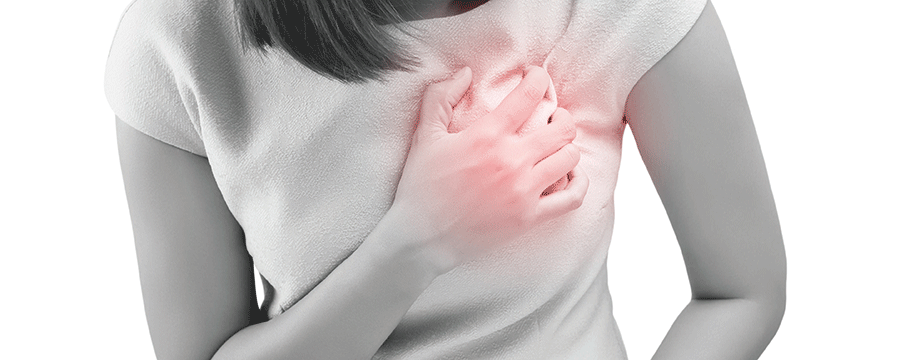
Heart attack link to low phosphate levels
Low phosphate in the blood is linked to the risk of heart attack and coronary artery disease, a new study reports.
Researchers from the University of Surrey found that insufficient levels of phosphate in the blood may pose a particular danger to cardiovascular health, contradicting previous research in this area, which suggested low volumes of the mineral were beneficial to the heart.
The study examined phosphate levels of more than 100,000 patients, over five and nine-year intervals. The researchers found that those with low levels (below 0.75 mmol/L) of the mineral in their blood were at a similar risk of developing coronary problems as those with elevated levels (above 1.5 mmol/L). Instances of both conditions were high amongst those with low and excessive levels of phosphate in the blood, however cardiac events in those with mid-range (1-1.25 mmol/L) levels were significantly less.
Phosphate is an important mineral in the body and helps to regulate blood biochemistry, which can impact on the working of the heart. It plays a crucial role in enabling red blood cells to deliver oxygen to the body’s tissues, and can be found in protein-rich foods such as meat, poultry and fish. The findings were published in the journal PLOS One.

Gut health link to healthy ageing
A potential link has been discovered between healthy ageing and a healthy gut, thanks to new research from Chinese and Canadian researchers. The researchers studied the gut bacteria in a group of more than 1,000 Chinese people aged from 3 to over 100, who were deemed extremely healthy with no known health issues and no family history of disease. The findings showed that the overall microbiota composition of the healthy elderly group was similar to that of people decades younger, and that there was little difference in the gut microbiota between individuals aged between 30 and over 100. Researchers from Western University, Lawson Health Research Institute collaborated with scientists from Tianyi Health Science Institute in Zhenjiang, Jiangsu to work on the study which was published in the journal mSphere.
“This demonstrates that maintaining diversity of your gut as you age is a biomarker of healthy ageing, just like low-cholesterol is a biomarker of a healthy circulatory system,” said Greg Gloor, PhD, the principal investigator on the study. The researchers suggest that resetting an elderly microbiota to that of a 30-year-old might help promote health.

A... is for antioxidants
“Antioxidants occur naturally in plant-based foods,” explains Mani Norland, principal and managing director of the School of Health www.schoolofhealth.com. “They are also abundant in brightly coloured (and dark green) fruits and vegetables, chocolate (flavanols), teas and even red wine (resveratrol). Daily intake is essential to protect the cells in your body from free radicals or oxidative stress. Put simply, this is the damage done to your cells every time you breathe, eat or exercise. We can add or reduce this load of oxidative stress through our lifestyle and food choices and by boosting our antioxidant intake. Amazingly, given the right nutrient balance, the body also makes its own antioxidants!”
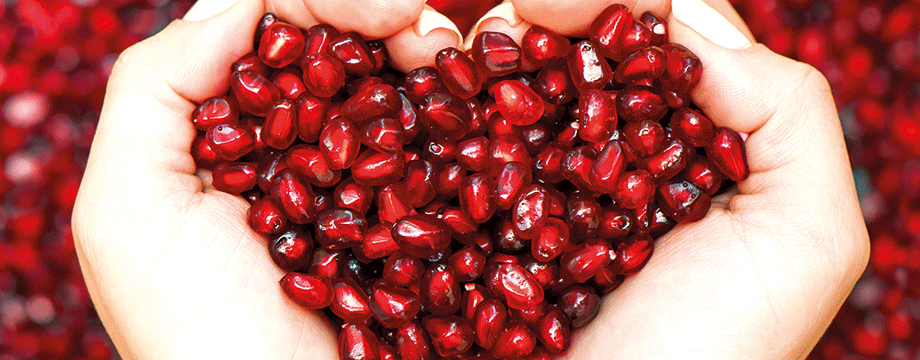
The power of pomegranates
Research shows that pomegranate consumption has several health benefits. Pomegranates can help prevent or treat various disease risk factors including high blood pressure, high cholesterol, oxidative stress, hyperglycemia and inflammatory activities including inflammation in the gut. It has been demonstrated that certain components of pomegranate such as polyphenols, ellagitannins and hydrosable tannins have potential antioxidant and anti-inflammatory effects. Pomegranate juice can reduce oxidative stress, free radicals and lipid peroxidation. Areas of health where pomegranate consumption may help include cardiovascular health, gut health and helping control metabolic syndrome and obesity.

Vitamin K link with heart health
Parents have been telling their children to eat up their greens since time began – and now US scientists have proved that they were right.
Researchers from Augusta University in Georgia carried out a study of 766 otherwise healthy teenagers. Their findings showed that those who consumed the least vitamin K1– found in spinach, cabbage, iceberg lettuce and olive oil – were at 3.3 times greater risk for an unhealthy enlargement of the major pumping chamber of their heart. Overall, about 10 per cent of the adolescents had some degree of this left ventricular hypertrophy.
Left ventricular changes are more typically associated with adults whose hearts have been working too hard, too long to get blood out to the body because of sustained, elevated blood pressure. Unlike other muscles, a larger heart can become inefficient and ineffective. While more work is needed, the researchers believe their findings suggest that early interventions to ensure young people are getting adequate vitamin K1 could improve cardiovascular development and reduce future disease risk. The study was published in The Journal of Nutrition.
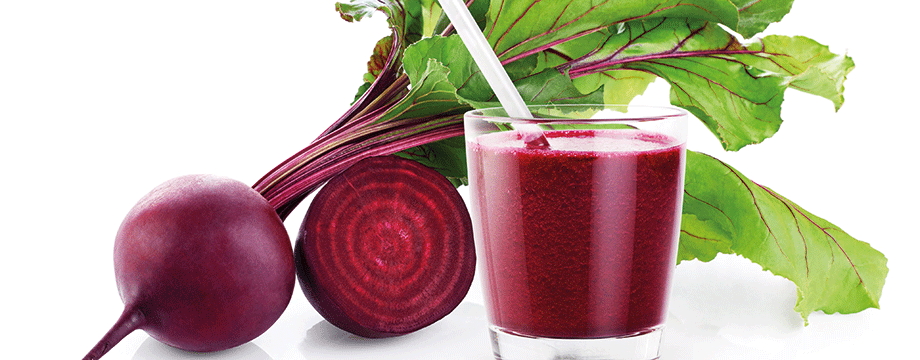
Beetroot juice key to younger, healthier brains
The nitrate in beetroot juice can significantly improve the ability of ageing brains when it comes to learning new information, adapting to new experiences and creating new memories. That’s the conclusion reached in a new clinical study from Wake Forest University, published in the Journals of Gerontology. The researchers found that a group aged 65+, tested by walking on a treadmill, who had first consumed a shot of concentrated beetroot juice, showed such a dramatic memory improvement that they were “comparable to the younger control group (average age 26)”.
Prior studies have shown that concentrated beetroot juice “increases blood flow to the brain and enhances exercise performance”. In the new study, the researchers proved that not only can beetroot juice improve blood flow and blood pressure but that the combination of beetroot juice and exercise improved mental function as well.
Source: Beet It

Time to take a sauna?
Frequent saunas have been found to reduce the risk of elevated blood pressure, according to a study carried out at the University of Eastern Finland. The risk of developing elevated blood pressure was nearly 50 per cent lower among men who had a sauna four to seven times a week compared to men who had a sauna only once a week. These findings were published in the American Journal of Hypertension.
Whilst taking a sauna, the body’s temperature may rise by up to 2°C, causing vasodilation of the blood vessels. Regular saunas improve endothelial function, i.e. the function of the inside layer of blood vessels, which has beneficial effects on systemic blood pressure. Sweating, in turn, removes fluid from the body, which is a contributing factor to decreased blood pressure levels. Additionally, saunas may also lower systemic blood pressure due to overall relaxation of the body and mind.

Study backs benefits of multivitamins
Taking multivitamin and mineral supplements significantly increases nutrient intakes and decreases nutrient deficiencies, a new study has found.
The US study, which was published in Nutrients, found that people who took a multivitamin or mineral supplement for 21 or more days per month eliminated most nutrient inadequacies. The findings were particularly notable for ‘under-consumed’ nutrients such as vitamin A and iron.
Dr Carrie Ruxton, from the Health and Food Supplements Information Service said: “This study is really important in setting the record straight on the value of multivitamins and minerals. We know these nutrients are key to our health and wellbeing and low levels have been shown to have negative health impacts.
Unfortunately, all too often it is said that you can get all the nutrition you need from a healthy, balanced diet. But this ignores how most people actually eat. A lot of people don’t consume the full-spectrum of micronutrients needed to support optimum health.”
She added: “Topping up the diet with a daily multivitamin and mineral plus an omega-3 supplement will help to counteract potential dietary shortfalls and assist people in reaching the recommended levels of key nutrients which we all need to support good health.”

Heart failure risk linked to vitamin D deficiency
New research has highlighted the need for the older generation to supplement with vitamin D, the so-called sunshine vitamin. A study published in European Journal of Heart Failure reported that the risk of heart failure was more than 12 times higher in elderly vitamin D deficient participants than those with an adequate level.
These results support findings from a previous study published in The American Journal of Clinical Nutrition, which found an association between vitamin D supplementation and reducing the risk of heart failure. Deficiency can be corrected by using a simple daily vitamin D oral spray that bypasses the digestive system and guarantees absorption. Multiple trials have found that oral vitamin sprays elevate serum vitamin D levels on average 2.5 times more effectively than traditional tablets and capsules.
To find out how to check your vitamin D levels, visit www.betteryou.com/vitamin-d-testing-service

Asthma link to gum disease
Asthma sufferers have a higher risk of developing gum disease, according to new findings. The study, published in the Journal of Periodontology, examined a range of 21 papers published between 1979 and 2017, and analysed the relationship between asthma and oral health in more than 120,000 people. The results confirmed that people with asthma were almost one fifth (18.8 per cent) more likely to suffer from periodontitis. In response, the Oral Health Foundation is encouraging asthma sufferers to ensure they pay close attention to their oral health in order reduce their risk of developing gum disease.
Dr Nigel Carter OBE, CEO of the Oral Health Foundation said: “We have known for some time that there are close links between oral health and systemic disease, such as heart disease and diabetes. This new study is hugely significant as it could help many millions of asthma sufferers from having to deal with further significant health problems. While gum disease can be treated very effectively, the best approach is certainly prevention and making sure we do not fall foul of it at all. We are encouraging anybody who suffers from asthma to be especially alert to the early signs of gum disease; which include red inflamed gums, bleeding when brushing your teeth and persistent bad breath, and ensure that you visit your dentist as soon as possible to get checked out and avoid any further problems.”

Did you know?
Pumpkin is a great source of vitamin A, so why not get into the Halloween spirit this October by making some pumpkin pie? Marry Cotter, a nutritional therapist with Nuffield Health explains: “Vitamin A is a key ingredient for healthy eyes, more specifically, the two specific carotenoid forms of vitamin A: lutein and zeaxanthin. These carotenoids are found inside the retina of the human eye and help protect the retina and cornea, and defend against age-related eye disorders.”
Other good sources of vitamin A include spinach, kale, carrots, squash and Swiss chard.

Get active this autumn
The end of the summer holidays and gyms nationwide see a surge of ‘returnees’ heading back to the exercise room. But how can you ensure that you stick to a new regime? “Try a new class to re-vitalise your routine,” says Jennifer Saxon, Sr. Director of Corporate Marketing for MINDBODY.
“What about a Flying Fantastic workout: an aerial class to hone your circus skills? Or boxercise: exercises based on the training routines that boxers use to keep fit. Whatever you choose, make it fun, and it won’t feel like a chore. After a break from exercise, you may feel like your fitness levels are back to square one. Don’t feel discouraged. Take the opportunity to push yourself a little bit more – sign up for two classes a week instead of one. And finally, take a friend or family member. Having someone to go with, especially if they’re at the same fitness level, makes exercise more fun.”

In the pink
This October is Breast Cancer Awareness Month and the charity Breast Cancer Now is encouraging everyone to dress in pink as part of its annual fundraising campaign. Wear it Pink takes place on 20 October and encourages supporters to hold events in their homes, schools and workplaces and to make a donation to Breast Cancer Now.
TV star Lisa Riley, who is supporting the event, said: “I will be wearing pink this year for my beautiful mum who lost her life to breast cancer in 2012. I know the devastating effect this awful disease can have and I want to help raise vital funds for Breast Cancer Now’s research so we can create a future where women don’t have to live in fear of a diagnosis.”
To find out more visit www.wearitpink.org

Why beetroot is so unbeatable
Due to its rich nutrient and nitrate profile, beetroot has been linked to reduced blood pressure and improved sports performance when consumed after exercise, according to a new study published in Complete Nutrition. The study found that beetroot has an ‘ergogenic’ effect – meaning that it enhances physical performance – during shorter bouts of high intensity exercise. The study also revealed the link between beetroot consumption and improved muscle recovery after short bursts of physical exercise.
Dr Emma Derbyshire, a leading public health nutritionist who authored the Complete Nutrition paper said: “There is a wealth of studies which explore the staggering health properties associated with beetroots, and so much more research still needs to be done. Beetroots are becoming increasingly popular with health conscious consumers as they can be bought pre-cooked and with infused flavours, making them a simple snack after exercise.”
For more findings and tasty beetroot recipes, visit www.lovebeetroot.co.uk

Landmark vitamin B3 discovery
Australian researchers have made a major discovery that vitamin B3, also known as niacin, can help to prevent miscarriages and birth defects during pregnancy.
Vitamin B3 is required to make a vital molecule called nicotinamide adenine dinucleotide or NAD, which is one of the most important molecules in all living cells. NAD synthesis is essential for energy production, DNA repair and cell communication. Environmental and genetic factors can disrupt its production, which causes an NAD deficiency. The researchers, from Sydney’s Victor Chang Cardiac Research Institute, have found that this deficiency is particularly harmful during a pregnancy as it affects an embryo when it is forming.
Vitamin B3 is typically found in meats and green vegetables. However, a recent study found that despite taking vitamin supplements at least a third of pregnant women have low levels of vitamin B3 in their first trimester, which is the critical time in organ development. By the third trimester, vitamin B3 levels were low in 60 per cent of pregnant women. This indicates pregnant women may require more vitamin B3 than is currently available in most vitamin supplements.
Professor Sally Dunwoodie, who led the research, said: “The ramifications are likely to be huge. This has the potential to significantly reduce the number of miscarriages and birth defects around the world, and I do not use those words lightly.”

51%...
... of Brits struggle to nod off. This problem is made worse by 24/7 media, which has resulted in a nationwide difficulty in getting a full eight hours of sleep.
Source: The Dreams Sleep Matters Club

Go nuts for nuts!
GP, TV presenter and former Your Healthy Living cover star Dr Dawn Harper has launched a new campaign to educate parents on the benefits of giving children nuts as a snack. A new survey has identified that only 1 in 10 (14 per cent) of parents are aware of the high nutritional value of nuts. The study involved 1,000 parents with children aged between five and 12.
Dr Harper said: “Nuts are a great, tasty way of getting good fats, and key vitamins and minerals into the diet which can help children's growth, development and cognitive function.” Nuts such as almonds, hazelnuts and cashews are a natural source of protein and many other nutrients for muscle and bone development, aiding energy release and helping build a healthy immune system. The survey also showed that allergies are a concern – with a fifth (19 per cent) of parents giving it as a key reason not to give nuts to their children. While nut allergies can be very serious, they affect just 2 per cent of children, with most allergic to peanuts specifically. For safety, if you are giving your child nuts to eat outside of the home always check that they will not be in the company of anyone with a nut allergy.
Did you know?
During a 30-minute commute on a hot, stuffy, tube, train or bus, the average person can expect to sweat as much as 0.5 litres of water – that’s an entire litre a day. Dr Sarah Brewer recommends drinking fluids regularly throughout the day rather than just drinking when you feel thirsty. Carry a bottle of water with you and sip regularly. She says: “As up to 60 per cent of our body weight is water, it’s important to drink enough to maintain the body’s fluid balance and allow cells and organs to function properly. Another benefit includes plumper, more elastic and younger-looking skin.”
Source: Vita Coco Natural Coconut Water

Know your numbers!
From 18-24 September, charity Blood Pressure UK will be running its annual campaign, Know Your Numbers! Week. People are being encouraged to have their blood pressure measured at a local Pressure Station so they can take the steps needed to maintain a healthy blood pressure and reduce their risk of debilitating strokes and heart attacks.
Volunteers hosting the Pressure Stations will be providing information and advice on simple steps to keep blood pressure under control and will measure your blood pressure accurately. It is estimated that 1 in 3 adults (16 million people) in the UK are living with high blood pressure (the single biggest cause of death) and a further 5 million remain undiagnosed. Ways to maintain a healthy blood pressure include cutting down on salt, eating plenty of fruit and vegetables, watching your weight, exercising regularly and drinking alcohol in moderation.
For further information about Know Your Numbers! Week and where to get tested, go to: www.bloodpressureuk.org
Airborne toxins linked to rheumatoid arthritis
New research from Sweden has suggested that workers who are exposed to airborne toxins may have an increased risk of developing rheumatoid arthritis. These include bricklayers, concrete workers, electricians and nurses, according to the findings, which were published in Arthritis Care & Research.
In order to reduce your risk of developing rheumatoid arthritis, nutritionist Cassandra Barns recommends cutting out red meat, fried foods, coffee, fizzy drinks and sugary foods. She also advises against consuming high levels of wheat and dairy plus nightshade family vegetables, which include tomatoes, white potatoes, aubergine and peppers. All of the above-mentioned foods can exacerbate inflammation in the body, so are best avoided.

Shake up your school run!
The new school year is the perfect opportunity to change travel habits. Cycling, scooting or walking the school run is an easy way of building physical activity into the whole family’s daily routine. “Not only is it great for your physical health, it can also boost mental health and wellbeing1,” says Chris Bennett, Head of Behaviour Change at Sustrans, the UK walking and cycling charity.
“Physical activity can increase mental alertness, energy, positive mood and self-esteem, as well as reducing stress and anxiety, according to the Mental Health Foundation. Teachers also find that pupils who walk, cycle or scoot arrive at school more relaxed, alert and ready to start the day than those who travel by car2. Parents can benefit in the same way and burn some precious calories along the way – a 20-minute bike ride can use the same amount of calories as a cappuccino, a bar of chocolate or a 175ml glass of wine.”
1. World Health Organisation (2010) Global Recommendations on Physical Activity for Health
2. Centre for Local Economic Strategies (CLES - 2012) Evaluation of Sustrans' sustainable transport infrastructure work surrounding schools

Low vitamin D linked to child development problems
Children whose mothers were deficient in vitamin D during pregnancy may experience development problems during their early years of life, new research has shown. Scientists from the University of Surrey and the University of Bristol examined data from 7,000 mums and children. Their findings revealed that pregnant women who were deficient in vitamin D were more likely to have children with low scores in pre-school development tests such as assessments of their co-ordination, like kicking a ball, balancing and jumping, and their usage of fine muscles, including holding a pencil and building a tower with bricks.
Vitamin D insufficiency in pregnancy was also found to affect a child’s social development at the age of three and a half. The researchers believe that interactions between vitamin D and dopamine in the brain of the foetus may play a crucial role in the development of areas of the brain controlling motor and social development. Vitamin D is derived from sunlight and is also found in oily fish (e.g. salmon, sardines, mackerel and fresh tuna) and in small amounts of red meat, eggs, fortified fat spreads and some breakfast cereals.

Did you know?
It’s common knowledge that consuming too much sugar can lead to a multitude of health problems, but not all sugars are the same. For example, do you know the difference between ‘free’ sugars and ‘total’ sugars?
“Free sugars include those found naturally in fruit juices, honey and syrups plus sugars which are added to food and drink,” explains registered nutritionist Jenny Rosborough, Campaign Manager at Action on Sugar (www.actiononsugar.org).
“Sugars contained naturally within the cell structure of wholefoods, such as fruit, or lactose naturally present in milk and dairy products are not free sugars and therefore are not associated with the same health outcomes as free sugars, which include tooth decay and an increase in energy intake. Government guidelines recommend that adults reduce their consumption of ‘free’ sugars to less than 30g (that’s seven teaspoons) a day.”

Vitamin K2 could provide a boost for athletes
Vitamin K2 could be a useful supplement for competitive runners, cyclists and other athletes to take, new research suggests. A recent study demonstrated that supplementing with vitamin K2 over an eight-week period helped to boost the output of the heart by 12 per cent in aerobically trained males and females.
The study, which was published in Alternative Therapies in Health and Medicine, reports that: “Vitamin K1 and K2 are not typically common in a Western diet because they are found in a variety of fermented foods.” Although supplementation with vitamin K2 has previously been shown to improve cardiovascular function in diseased patients, the research team from the University of North Texas believes that this current study is the first to report its potential in active individuals.

Craving chocolate?
Many people find it difficult to resist the sugar hit from eating a bar of chocolate, but there could be another reason for our choc compulsion. “Cravings for specific foods could be an indication of a deficiency in a micro or macro nutrient,” explains Emily Whitehead, a nutritionist with supplement company BetterYou. “In particular, a craving for chocolate could highlight a magnesium deficiency. Magnesium is an essential mineral and is required for over 300 enzyme reactions in the body. So, try eating a good quality dark chocolate bar (preferably organic and above 70 per cent cocoa) which is a rich source of magnesium.”
Alternatively, Emily suggests trying a magnesium supplement to see if your cravings subside. As well as building bones, magnesium is vital for proper working of nerves and muscles. It is essential for heart health and helps control blood pressure and blood sugar. Deficiency impacts the body’s ability to function properly, causing symptoms including migraine, irritability, anxiety, extreme fatigue, insomnia, irregular heartbeat and lack of concentration.

92%...
... of those who do physical activity believe it improves their mood, but the problem is that most of us struggle to fit it in. In response to this, ASICS has launched the #IMoveLondon campaign in a bid to inspire Londoners to trade their daily commute by switching their train tickets for trainers.
Find out more at www.asics.com/imovelondon

Tee time
New research suggests that golfers have a significantly reduced risk of developing some of Britain’s biggest diseases, including dementia. The research, carried out at Sheffield Hallam University, has established that regular golfers reduce their risk of dementia and coronary heart disease by 30 per cent. What’s more, dementia prevention accounts for nearly half (49 per cent) of the recorded health benefits of golf.

Battle junk food cravings with... sleep
Getting a good night’s sleep has been found to deter urges for junk food, according to findings published in the Journal of Applied Psychology. The study, conducted by researchers at Michigan State University, also found that getting plenty of shut eye prevented participants from eating bigger portions of unhealthy food, especially after a stressful day of work, when usually after a poor sleep they would have given into their cravings.
Nutritionist Cassandra Barns comments: “It’s common to find it hard to get to sleep because we can’t wind down from a busy day – particularly if work or other activities took us later into the evening. This can keep our mind active and alert, preventing us from feeling tired enough to go to bed. At least an hour before bed, put together a ‘to do’ list. This can prevent you from worrying and thinking about tasks for the next day whilst trying to sleep.”

Tired all the time?
Research from the National Hydration Council has shown that one in five visits to a GP are due to patients feeling tired. “As a society we are sleeping less; the time we sleep each night has reduced from 9 hours to 7.5 hours since the 1900s,” explains Dr Marilyn Glenville, a leading nutritionist and author of Natural Solutions for Dementia and Alzheimer's (www.marilynglenville.com).
In order to enjoy a better night’s sleep, Dr Glenville recommends eating one to two tablespoons of pumpkin seeds a day as they are high in natural magnesium. She adds: “It is thought that magnesium has a role in the normal function of the pineal gland, which produces melatonin – a hormone that regulates the sleep-wake cycle and helps us to fall asleep.”

Love your liver
The British Liver Trust has recently launched its Love Your Liver campaign to raise awareness of the risk factors of liver disease. Liver disease is largely preventable and more than 90 per cent of cases are due to three main risk factors: alcohol, obesity and viral hepatitis. The campaign focuses on three simple steps:
• Drink within recommended limits and have three consecutive days off alcohol every week,
• Cut down on sugar, carbohydrates and fat and take more exercise, and
• Know the risk factors for viral hepatitis and get tested or vaccinated if at risk.
A Love Your Liver mobile screening and scanning unit will be visiting various places around the UK throughout the year. To find out more about the campaign and to take an online screening test, visit www.britishlivertrust.org.uk/screener
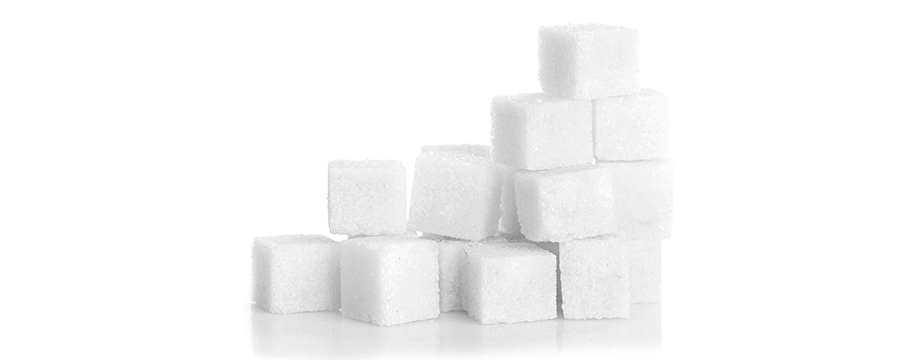
Not so sweet
The dangers of sugar to our health and waistlines have been highlighted frequently in recent times, but oral health campaigners are now urging people to think about the effects of sugar on our teeth.
New research by the Oral Health Foundation has discovered that British adults consume around four cups of tea and coffee per day, with one in seven adding at least two teaspoons of sugar to each cup. A teaspoon contains 4g of sugar, and advice from the NHS states that added sugars should not make up more than 5 per cent of total calorie intake – about 30g of sugar a day.
Dr Nigel Carter OBE, CEO of the Oral Health Foundation, says: “Excessive consumption of added sugar is the sole reason why a third of British adults have signs of tooth decay, the most common chronic disease in the world, which in England last year resulted in around two million tooth extractions.”
The foundation is urging people to consider cutting out added sugar from hot drinks or at least reducing their daily consumption.

More reasons to meditate
Practices such as meditation and yoga can ‘reverse’ the molecular reactions in our DNA which cause ill health and depression, according to new findings from the universities of Coventry and Radboud.
The researchers found that people who practise activities such as yoga and meditation experience a decrease in production of a molecule called nuclear factor kappa B (NF-kB).
NF-kB translates stress by activating genes to produce proteins called cytokines that cause inflammation at a cellular level. This is known as the ‘fight-or-flight’ response and if it becomes persistent this can lead to a higher risk of cancer, accelerated ageing and psychiatric disorders like depression.
Lead investigator Ivana Buric said: “Millions of people around the world already enjoy the health benefits of mind-body interventions like yoga or meditation, but what they perhaps don’t realise is that these benefits begin at a molecular level and can change the way our genetic code goes about its business. These activities are leaving what we call a molecular signature in our cells, which reverses the effect that stress or anxiety would have on the body by changing how our genes are expressed. Put simply, MBIs cause the brain to steer our DNA processes along a path which improves our wellbeing.”

Are you up for the challenge?
Women across Europe are being encouraged to join the #MatchFitWoman 28-day challenge in a bid to improve their heart health. The challenge involves setting goals to get active for 30 minutes a day, five days a week, and sharing these pledges on Facebook and Twitter.
The challenge and research are part of A Healthy Heart Your Goal, a joint campaign by WHF, UEFA, The Dutch Heart Foundation, the Royal Dutch Football Association (KNVB) and the Healthy Stadia network, which aims to raise awareness of heart health and encourage women and children to be more physically active.
Sangeeta Bhagat from the World Heart Federation said: “It’s about making small changes that will see us in the game (of life), fit and healthy and there for our loved ones – for the long term.”
For more information and to join the challenge search #MatchFitWoman and follow @worldheartfed on Twitter.

Delaying meals could alleviate jetlag
Researchers from the University of Surrey have found that delaying meal times delays the circadian rhythm of sugar in the blood which could help to alleviate the symptoms of jet lag and shift work.
Circadian rhythms are approximate 24-hour changes governed by the body’s internal clocks and determine many physiological processes in the body.
The study involved 10 volunteers and the researchers discovered that postponing meal times by five hours delayed rhythms of blood sugar by the same time frame.
This discovery demonstrates that mealtimes synchronise internal clocks that control rhythms of blood sugar concentration. The researchers have suggested that people who struggle with circadian rhythm disorders, including shift workers and long haul flights, might consider timed meals to help resynchronise their body clocks.

Snack away the post-lunch slump
US researchers have found that eating almonds at lunchtime results in less memory decline in the afternoon. “When blood sugar levels dip below normal, cognitive function can decline,” explains Richard Mattes, PhD, RD, whose lab at Purdue University conducted the research.
“Almonds have been shown to moderate blood sugar levels after meals and when consumed as snacks, which may explain why the memory dip is improved when almonds are consumed at lunch.” The relatively high amounts of good fats (13g) and fibre (4g) found in every healthy 28g handful of almonds, coupled with their low carbohydrate content, may help steady blood sugar levels after meals by slowing digestion.
Eating almonds as part of a meal can reduce the glycaemic impact of carbohydrate, thereby helping to keep blood glucose concentrations at optimal levels for memory tasks.
Find out more at www.almonds.co.uk

Diet drinks linked to stroke risk
Fizzy diet drinks may be marketed as a healthier option, but new research has brought up some concerning statistics. Researchers from Boston University have shown that people who drink at least one can a day of artificially sweetened soft drink have a much higher risk of developing dementia or having a stroke. Their findings were published in Stroke, the journal of the American Heart Association.
Meat is getting the chop
Meat is increasingly falling out of favour with British shoppers due to concerns about health. A new study, carried out by market analysts Clusters, has found that just over a quarter of people – the equivalent of 16 million of the UK population – have started to cut down on the amount of meat they eat.
The findings showed that people aged between 45 and 54 are particularly steering clear of red meat due to health concerns. From this group, 69 per cent noted health concerns to be a main motivator in their decision to cut back on meat and a further 37 per cent said they are worried that eating too much red meat will lead to diseases such as colon cancer.
The findings follow a number of high profile reports on the links between cancer and high meat consumption. At the end of 2015, the World Health Organization warned that there was ‘convincing evidence’ that processed meat such as sausages and ham caused colorectal cancer.

New hope for osteoarthritis prevention
Osteoarthritis may not necessarily be ‘part and parcel’ of getting older, as new research has shed light on how this debilitating condition can potentially be prevented.
Researchers from the University of Surrey have identified a crucial link between metabolism and osteoarthritis. Metabolic changes, caused by a poor diet and a sedentary lifestyle, trigger the genetic reprogramming of cells in the body and joints. By identifying metabolic changes in cells, it is potentially possible to control or significantly slow down the symptoms of osteoarthritis, alleviating the suffering of millions of people.
Lead author Professor Ali Mobasheri, Professor of Musculoskeletal Physiology at the University of Surrey, said: “For too long osteoarthritis has been known as the ‘wear and tear disease’ and it has been assumed that it is part and parcel of getting older. However, this is not the case and what we have learnt is that we can control and prevent the onset of this painful condition. It is important never to underestimate the significance of a healthy diet and lifestyle as not only does it impact upon our general wellbeing but can alter the metabolic behaviour of our cells, tissues and organs leading to serious illnesses.” The findings were published in Nature Reviews Rheumatology.

Jeepers, creepers – how to look after those peepers!
It’s no surprise that loss of sight ranks highly in people’s personal fears. Our eyes are amazing, but we need to look after them. With National Glaucoma Awareness Week on the horizon (5-11 June) Fight for Sight, the UK’s leading eye research charity, shares some natural tips on keeping your peepers in top shape.
Feast your eyes
Fill up on green leafy vegetables, oily fish and citrus fruits. A diet rich in nutrients such as omega-3 fatty acids, zinc and vitamins C and E may help to prevent or delay age-related vision problems such as macular degeneration and cataracts.
Have regular check-ups
Have your eyes tested every two years even if you think your vision is fine. An eye test can spot some eye conditions and even other illnesses not related to sight. Regular check-ups are vital as detecting conditions, such as glaucoma, as early as possible can save more of your sight.
Keep on moving
Maintaining a healthy weight and blood pressure can help your eyes stay healthy, so a ‘feel good’ brisk walk or bike ride can bring added benefits for your sight. Being outside and away from artificial light and digital screens also gives eyes a fresh break, but always ensure you protect your eyes from glare and sunshine with good quality sunglasses that reduce exposure to damaging UVA and UVB rays.
For more eye health advice and information visit www.fightforsight.org.uk.

Trend alert: Napercise
“Power naps are one of the most powerful natural performance enhancers known to humankind,” says Dr Guy Meadows, sleep expert for Bensons for Beds and founder of the Sleep School. “They can be a brilliant way of boosting daytime performance and avoiding the typical afternoon slump.
When should I nap? “The ideal time to nap is between midday and 3pm,” says Dr Meadows, “as this is when the waking signal of the body clock naturally dips.”
What are the benefits? “The benefits include boosting energy and alertness levels, which results in improved cognitive processing such as learning, focus and concentration and decision making. Research suggests that power napping can also enhance creative problem solving.”
How long should I nap for? “The term ‘power nap’ refers to a short nap lasting between 10 and 30 minutes,” says Dr Meadows. “This is the ideal time because any longer and you end up in deep sleep and potential brain fog. Keeping it short and at the designated timing mentioned above also prevents reducing sleep drive for the night ahead.”
Practice makes perfect! “Napping is a skill and so the more you practise, the better at it you become. A pro napper can expect to fall to sleep within a minute and wake themselves up of their own accord after 10 minutes feeling refreshed and ready to go.”


Why you love... natural beauty
We love to hear from you. This month you tell us why natural beauty products get your vote.
“Cruelty-free, chemical-free, better for me and for the environment. And, most of all, they look and feel amazing!” Deborah, Birmingham
“I started using natural products over 30 years ago to avoid products that had been tested on animals. I also prefer to limit the number of chemicals I use on my skin.” Kerry-Ann, Bishops Stortford
“I choose natural beauty products because they are so unique in quality and price and second to none on the market place. Plus, I instantly feel like a million dollars when I’m wearing them,” Jaqueline, Bolton

Research shows many probiotics don’t deliver what’s on the label
A new report* claims that many probiotic supplements on the market are subject to poor quality control measures. The study, headed by the European Society for Pediatric Gastroenterology, Hepatology and Nutrition, states that probiotics are frequently misidentified, contaminated or contain little to no viable bacteria.
“Probiotics produced under pharmaceutical control offer the most assurance for consumers,” says Frankie Brogan, a senior nutritionist with Pharma Nord (www.multivits.co.uk). “However, most probiotics are considered dietary supplements and need to comply with less stringent regulatory criteria. Pharmaceutical grade probiotics are available in health food stores alongside dietary grades, so checking the label will help identify them. Optional protective measures (such as hermetically sealed containers) help ensure product stability and bacteria viability.”
*journals.lww.com/jpgn/Abstract/publishahead/Commercial_probiotic_products___A_call_for.97192.aspx

Wake up to organic this month!
This month, independent retailers, delicatessens, farm shops and cafés across the country will celebrating all things organic as part of the Wake Up To Organic campaign. There will be plenty of fun and enticing activities taking place on 14 June including free organic mini breakfasts, cookery demos, talks from chefs and bloggers, free organic tastings and opportunities to meet local producers.
Organic farming works with the environment as it uses fewer pesticides. It’s a way of farming that protects and encourages wildlife whilst looking after the health of the soil. Organic standards insist that animals are given plenty of space and fresh air to thrive and grow more naturally.
It is hoped that the campaign will encourage more people to try organic and demonstrate just how simple it can be to make the switch to organic. From Edinburgh to Manchester, Norwich, London and Bristol there’ll be lots of chances to try a delicious organic breakfast.
To find out more, visit www.wakeuptoorganic.co.uk and share your favourite organic breakfast recipe on social media with #WakeUpToOrganic.

Ditch the plastic
This month, the Marine Conservation Society (MCS) is asking people to give up single-use plastics for a whole month as part of its annual Plastic Challenge. The challenge involves saying goodbye to conveniences like pre-packed sandwiches, ready meals and plastic-bottled drinks.
MCS says the amount of plastic litter on our beaches has increased by 180 per cent in the last 20 years and has become a massive threat to marine wildlife. Plastic bags, bottles and tiny plastic pieces are regularly found in the stomachs of turtles and other sea creatures, and in some cases have caused their death from starvation or choking.
Simon Reeve, TV presenter and ambassador for the challenge, says: “Our planet is becoming poisoned by plastic. The vast amount in our oceans has become an environmental emergency as a direct result of our throwaway society. Don’t just get depressed about plastic – stop using it!” Register to take part in the Plastic Challenge at www.mcsuk.org/plasticchallenge

Enjoy a green BBQ
Summer nights are perfect for barbecues, so make sure that yours is as environmentally friendly as possible. Go for charcoal as it is the most carbon neutral option. Always use good quality, British lump charcoal which is free from additives, by-products and chemical fillers.
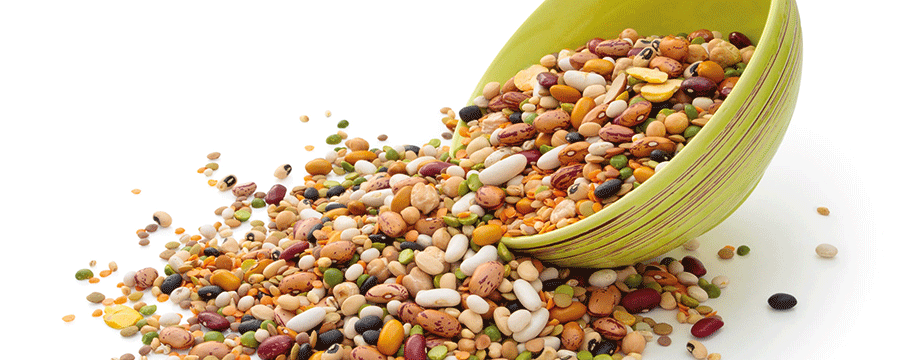
Plant protein may protect against type 2 diabetes
Diets high in plant protein have been linked with a lower risk of type 2 diabetes, whilst diets rich in meat have been associated with a higher risk, according to new findings.
Researchers from the University of Eastern Finland analysed the diets of 2,332 men aged between 42 and 60, who did not have type 2 diabetes. During a follow-up study 19 years later, 432 of the men were diagnosed with type 2 diabetes. The researchers found that the men with the highest intake of plant protein had a 35 per cent lower risk of developing type 2 diabetes compared with the men who consumed the lowest intake of plant protein. The men with a high intake of plant protein also had healthy lifestyle habits, but lifestyle habits alone did not explain their lower risk of diabetes.
The researchers also discovered that a high intake of meat was linked with a higher risk of type 2 diabetes. The strongest association was seen in the consumption of meat in general, including processed and unprocessed red meat, white meat and variety meats.
Using a computational model, the researchers estimated that replacing approximately 5g of animal protein with plant protein daily would reduce the risk of diabetes by 18 per cent. The consumption of plant protein was also associated with lower blood glucose levels at the beginning of the study, which may explain the linkage of plant protein with reduced diabetes risk. The findings were published in the British Journal of Nutrition.

Time to get on your bike!
Cycling to work could reduce your risk of premature death, according to new research by the University of Glasgow. The findings showed that cycling to work is associated with a 45 per cent lower risk of developing cancer and a 46 per cent lower risk of heart disease, compared to a non-active commute.
Walking to work was associated with 27 per cent lower risk of developing cardiovascular disease and a 36 per cent lower risk of dying from cardiovascular disease, but not cancer or premature death overall.
This study analysed data from 264,337 participants from UK Biobank who were asked questions about their usual mode of commuting to work and then followed up for five years.
The new cases of cancer, heart attacks and deaths in that five-year period were assessed and related to their mode of commuting. The researchers believe that their findings suggest that policies designed to make it easier for people to commute by bike may present major opportunities for public health improvement. The findings were published in the BMJ.
Research shows how to stay mentally healthy in older age
Stimulating the brain by taking on leadership roles at work or staying on in education help people stay mentally healthy in later life, according to new research.
The large-scale investigation published in the journal PLOS Medicine and led by the University of Exeter, used data from more than 2,000 mentally fit people over the age of 65. It examined the theory that experiences in early or mid-life which challenge the brain make people more resilient to changes resulting from age or illness – they have higher ‘cognitive reserve'. The analysis found that people with higher levels of reserve are more likely to stay mentally fit for longer, making the brain more resilient to illnesses such as dementia.
The research team analysed whether a healthy lifestyle was associated with better performance on a mental ability test. They found that a healthy diet, more physical activity, more social and mentally stimulating activity and moderate alcohol consumption all seemed to boost cognitive performance.

Fat burning benefits of matcha
New research from the University of Chichester has revealed that drinking organic matcha tea can significantly increase fat burning during exercise. The findings also showed that drinking matcha had no adverse physiological effects such as raised heart rate or blood pressure. Matcha green tea contains one of the highest concentrations of polyphenols and antioxidants, called catechins, in any commercially-grown food. EGCg, L-Theanine and natural caffeine are the active ingredients that deliver the weight loss benefits.
Mark Willems, Professor in Exercise Physiology at the University of Chichester, commented: “To be able to come out with these findings on fat oxidation and performance is just wonderful. I expect an increased interest to discover the additional potential of matcha intake in the world of diet and exercise.”
For more information on organic matcha tea, visit www.omgteas.co.uk

Improving coeliac awareness
This month marks Coeliac UK’s annual awareness campaign to improve our understanding and perception of this autoimmune disease.
Taking place from 8 to 14 May this year, the campaign will have a specific focus on eating out, and will be calling for better gluten-free options for those with coeliac disease. One in 100 people are thought to have the condition, which is caused by a reaction to gluten and results in symptoms ranging from bloating, diarrhoea and nausea to wind, constipation, tiredness and sudden or unexpected weight loss.
For more information on how to support the campaign, visit www.coeliac.org.uk.

Protecting natural and organic beauty
NATRUE, the International Natural & Organic Cosmetics Association, is celebrating its tenth anniversary this year. This international non-profit association has promoted and protected authentic natural and organic cosmetics since October 2007 and 5,000 products worldwide now bear the NATRUE seal.
NATRUE-certified cosmetics are free from mineral oils, silicones, GMO ingredients, and artificial colours, fragrances or preservatives such as parabens. All certified products are listed on a public database, accessible at www.natrue.org, which can be used as a checklist if you want to confirm whether a product is natural or organic.

Vitamin C may help in the fight against cancer
Promising new research has shown that vitamin C (ascorbic acid) can be used to target and kill cancer stem cells (CSCs), the cells responsible for feeding the growth of fatal tumours.
Dr Michael P. Lisanti, Professor of Translational Medicine at the University of Salford, said: “We have been looking at how to target cancer stem cells with a range of natural substances including silibinin (milk thistle) and CAPE, a honey-bee derivative, but by far the most exciting are the results with vitamin C. Vitamin C is cheap, natural, non-toxic and readily available so to have it as a potential weapon in the fight against cancer would be a significant step.”
Cancer stem-like cells are thought to be the root cause of chemotherapy resistance, leading to treatment failure in patients with advanced disease and the triggers of tumour recurrence and metastasis (regrowth).
Vitamin C has previously been shown to be effective as a non-toxic anti-cancer agent in studies by Nobel Prize winner Linus Pauling and was recently shown to reduce mortality by 25 per cent on breast cancer patients in Japan. However, its effects on CSC activity have not been previously evaluated and in this context, it behaves as an inhibitor of glycolysis, which fuels energy production in mitochondria, the ‘powerhouse’ of the cell.
Dr Gloria Bonuccelli, lead author and another member of the Salford team added: “This is further evidence that vitamin C and other non-toxic compounds may have a role to play in the fight against cancer. Our results indicate it is a promising agent for clinical trials, and as an add-on to more conventional therapies, to prevent tumour recurrence, further disease progression and metastasis.” The results were published in the journal Oncotarget.

Sitting too comfortably?
New research has revealed that Brits will spend more than 18 years of their adult lifetime sitting down.
The average person leads a very sedentary lifestyle, spending 51 hours and 44 minutes sitting during a typical week, according to the findings from vitamin experts Solgar UK. The study also found that many people sit watching television for 13.5 hours a week, and more than 2.5 hours while they commute. Furthermore, Brits spend only four hours a week exercising, and four hours a day on their feet – just over half the time they spend sitting down.
Solgar UK’s head of nutrition and education, Paul Chamberlain, said: “Our survey found that many Brits experience joint pain (particularly knee and back pain) that impacts their ability to stay active and exercise. Ironically inactivity is one of the major causative factors of joint pain. Sitting for long periods places pressure on the spine and joints. For some people years of inactivity can also lead to weight gain which increases stress on the joints, along with increasing inflammation which again can impact joint health.”
Author and TV Doctor Dr Ellie Cannon added: “I’ve noticed that stiffness, neck pain and general inflexibility are real issues so making sure you’re standing up and going for a walk around the office rather than being still all the time will help. The new Solgar 7 ‘your body is designed to move’ campaign is about encouraging Brits to be more active and offering extra daily joint support to help keep people moving.”
Vitamin D found to help prevent autism
New Zealand researchers have discovered that vitamin D plays an important role in the development – and prevention – of autism.
Researchers at the Queensland Brain Institute at the University of New Zealand found that giving vitamin D supplements to mice during pregnancy completely prevented autism traits in their offspring. Autism — or autism spectrum disorder — describes lifelong developmental disabilities including difficulty or inability to communicate with others and interact socially. Sun exposure is the major source of vitamin D – which skin cells manufacture in response to UV rays – but it is also found in some foods.
Dr Wei Luan, a postdoctoral researcher involved in the study, said vitamin D was crucial for maintaining healthy bones, but the active hormonal form of vitamin D cannot be given to pregnant women because it may affect the skeleton of the developing foetus. “Recent funding will now allow us to determine how much cholecalciferol – the supplement form that is safe for pregnant women – is needed to achieve the same levels of active hormonal vitamin D in the bloodstream,” said Dr Luan. “This new information will allow us to further investigate the ideal dose and timing of vitamin D supplementation for pregnant women. The findings were published in Molecular Autism.
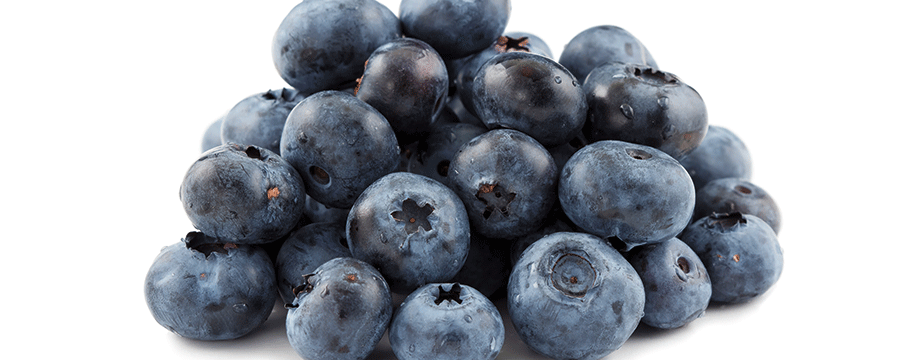
Blueberry concentrate aids brain function in older people
New research from the University of Exeter has shown that drinking concentrated blueberry juice can improve brain function in older people.
The researchers found that a group of healthy people aged between 65 and 77, who drank concentrated blueberry juice every day, demonstrated improvements in brain function, blood flow to the brain and activation of the brain while carrying out cognitive tests. Evidence also suggested an improvement in working memory. Blueberries are rich in flavonoids, which have antioxidant and anti-inflammatory properties.
Dr Joanna Bowtell, head of Sport and Health Sciences at the University of Exeter, said: “Our cognitive function tends to decline as we get older, but previous research has shown that cognitive function is better preserved in healthy older adults with a diet rich in plant-based foods. In this study we have shown that with just 12 weeks of consuming 30ml of concentrated blueberry juice every day, brain blood flow, brain activation and some aspects of working memory were improved in this group of healthy older adults.”
The findings were published in the journal Applied Physiology, Nutrition and Metabolism.
To find out more information on Blueberry concentrate, visit www.cherryactive.co.uk

Mediterranean diet could lower breast cancer risk
A major new study has found that the Mediterranean diet could help to lower the risk of one of the most aggressive types of breast cancer by 40 per cent.
The study, which was published in the International Journal of Cancer, and funded by the World Cancer Research Fund, monitored over 62,000 women during a 20-year period. The researchers found that those who adhered more closely to the Mediterranean diet had a 40 per cent reduced risk of oestrogen-receptor negative breast cancer – which usually has a worse outcome than other types of the disease.
The Mediterranean diet includes a high intake of plant-based proteins, such as nuts, lentils and beans, whole grains, fish and monounsaturated fats – also known as ‘good fats’ – such as olive oil. This diet also has a low intake of refined grains such as white bread or white rice, red meat and sweets. Although the traditional Mediterranean diet involves moderate consumption of alcohol, in this study alcohol was excluded from the criteria, as this is a known risk factor for breast cancer.
Breast cancer is the most common cancer in women in the UK with over 53,000 new cases each year. Dr Panagiota Mitrou, director of research funding at the World Cancer Research Fund, said: “This important study showed that following a dietary pattern like the Mediterranean diet could help reduce breast cancer risk – particularly the subtype with a poorer prognosis. With breast cancer being so common in the UK, prevention is key if we want to see a decrease in the number of women developing the disease.”

Love your heart
Taking steps to keep your heart healthy is vital in order to prevent heart disease and starting this at a young age will lower risk later in life. Doctor, fitness blogger and personal trainer, Dr Hazel Wallace, has teamed up with Linwoods, producers of healthy milled super foods, to come up with five ways to help the health of your heart.
1. Eat more flaxseed
Flaxseed is a heart health superfood, full of fibre, which helps lower cholesterol, and omega-3 fatty acids, which can help improve your good cholesterol.
2. Enjoy some chocolate
Cacao is one of the most nutrient-dense foods in the world because of its rich source of nutrients known as polyphenols. Cacao has also been shown to reduce the amount of both LDL (bad) and total cholesterol, which reduces the risk of heart disease.
3. A sprinkle a day keeps the doctor away
Pack every meal full of heart-loving nutrition by adding a sprinkle of flaxseed and goji berries to your porridge which more than doubles your daily intake of omega-3.
4. Don’t miss out on magnesium
In a recent study, consuming the RDI (200mg) of dietary magnesium has been associated with a 22 per cent lower risk of coronary heart disease. Just one sprinkle (30g) of shelled hemp provides 50 per cent of your recommended daily allowance (RDI).
5. Get moving
Just 30 minutes of moderate activity a day can reduce your risk of heart disease and high blood pressure as well as reducing stress, tension, depression and anxiety.

Global study shows vitamin D protects against colds and flu
Researchers are calling for foods to be fortified with vitamin D after a major new study has found that the so-called ‘sunshine vitamin’ protects against acute respiratory infections including colds and flu.
The research, which was led by Queen Mary University of London (QMUL) and published in the British Medical Journal, was based on a new analysis of raw data from around 11,000 participants in 25 clinical trials conducted in 14 countries.
Lead researcher Professor Adrian Martineau from QMUL said: “This major collaborative research effort has yielded the first definitive evidence that vitamin D really does protect against respiratory infections.
“The bottom line is that the protective effects of vitamin D supplementation are strongest in those who have the lowest vitamin D levels, and when supplementation is given daily or weekly rather than in more widely spaced doses."
Vitamin D – the ‘sunshine vitamin’ – is thought to protect against respiratory infections by boosting levels of antimicrobial peptides – natural antibiotic-like substances – in the lungs.
Professor Martineau added: "By demonstrating this new benefit of vitamin D, our study strengthens the case for introducing food fortification to improve vitamin D levels in countries such as the UK where profound vitamin D deficiency is common.”

Shoppers continue to choose organic
Sales of organic food and drink in the UK continue to grow according to new figures released by the Soil Association. The UK organic market is now worth £2.09 billion, indicating that increasing numbers of shoppers are choosing to go organic.
Recent research from England Marketing revealed that 39 per cent of shoppers buy organic food on a weekly basis while 80 per cent of all consumers have said that they have some knowledge about organic food.
Clare McDermott, Business Development Director at Soil Association Certification said: “It’s a positive time for organic as it ticks lots of boxes for consumers. Organic is extremely relevant for trends towards eating better food, knowing where your food comes from, avoiding pesticides or antibiotics and ‘free from’ diets. Increasingly, we’re seeing consumers choose organic as a shortcut to a healthy lifestyle and this will continue.”
Keep dementia away with your five-a-day
Eating the recommended five-a-day of fruit and vegetables could help prevent dementia in older adults according to the results of a new study.
Researchers at the Chinese University of Hong Kong followed the cognitive status of 17,700 dementia-free older adults for six years. The objective was to investigate whether those consuming at least three servings of vegetables and two servings of fruits daily, in line with the World Health Organisation recommendation, had a lower risk of developing dementia.
The researchers found that inadequate fruit consumption was linked with a higher risk of dementia, even after taking into account factors such as age, education, major chronic diseases and health-related behaviours such as smoking.
The findings suggest that not only could fruits independently reduce dementia risk, but the addition of three servings of vegetables to a person’s daily diet could further reduce this risk.
One reason why fruits and vegetables might help reduce the risk of dementia is because they are rich sources of vitamin B, vitamin E, flavonoids and beta-carotenoids, which have antioxidant and anti-inflammatory properties. As oxidative stress and inflammation are thought to be involved in the development and progression of dementia, not eating enough vegetables or fruits might decrease resilience against the neurodegenerative processes. The results were published in the journal Age & Ageing.

Pre-eclampsia increases risk of heart disease in later life
Women who suffered pre-eclampsia during pregnancy are four times more likely to have heart failure in later life according to research from Keele University. As a result, the researchers are calling for better education surrounding the risks and how to reduce these risks through diet and lifestyle changes.
The findings involved an analysis of 22 studies and more than 6.5 million women and the results were published in Circulation: Cardiovascular Quality and Outcomes. The research also found that expectant mothers with pre-eclampsia, which presents with high blood pressure and protein in the woman’s urine, have a two-fold increase risk of coronary heart disease, stroke and death due to cardiovascular disease in later life. Pre-eclampsia affects five to eight per cent of pregnancies and is the most common cause of severe ill-health during pregnancy which can, in extreme circumstances, lead to the death of the mother or baby.
Dr Pensee Wu, the first author of this publication and lecturer in Obstetrics and Gynaecology at Keele University, said: “Doctors need to be aware of the importance of educating women about their increased level of cardiovascular risk and of advising women about the beneficial effects of changing their lifestyle, such as increasing their level of physical activity and not smoking.” Dr Wu added: “The study shows the risk is highest during the first 10 years after a pregnancy affected by pre-eclampsia, so it is important that women are regularly monitored during this period for cardiovascular risk factors such as high blood pressure, high cholesterol and obesity.”

TV show highlights benefits of omega-3
The health benefits of omega-3 fatty acids were recently highlighted in the BBC show, Trust Me, I’m a Doctor. The show, presented by Dr Michael Mosley, reported on an eight-week trial involving 60 participants who either ate two portions of oily fish a week, consumed an omega-3 supplement containing the same amount of fatty acids or took a placebo. At the end of the experiment both the omega-3 supplement group and the oily fish group experienced a marked improvement in their omega-3 levels. One of the main sources of omega-3 fatty acids is oily fish.
Findings from the UK National Diet and Nutritional Survey show that current oily fish intakes are just 13g to 29g per week for children and 54g to 84g per week for adults – drastically lower than the recommended one portion (140g) of oily fish per week. Low blood cell levels of these fats can be an indication of a higher than normal risk of cardiovascular disease.
When looking to buy an omega-3 supplement Dr Emma Derbyshire, a public health nutritionist from the Health Supplements Information Service (HSIS), notes: “It is important to look at the dose of eicosapentaenoic acid (EPA) and docosahexaenoic acid (DHA) – two long-chain omega-3 fatty acids that are essential for the body.” European authorities advise that daily intakes of 250mg of EPA and DHA can help to maintain general cardiovascular health in healthy populations. However, intakes of up to 2g and 4g per day may be needed to help maintain normal blood pressure and triglyceride levels.
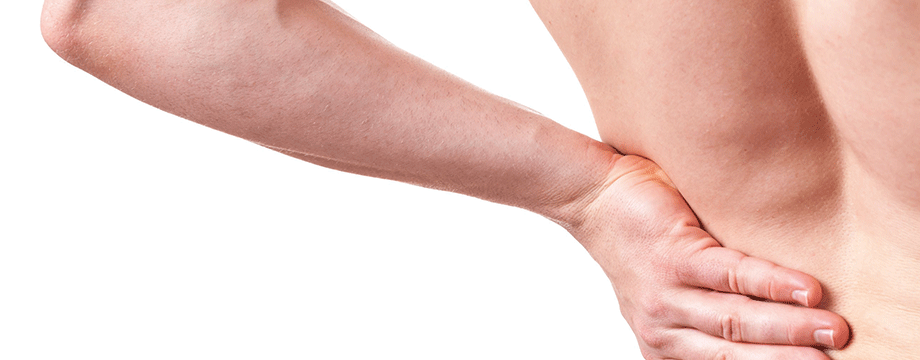
Personalised physical therapy brings relief for lower back pain
A new study from the University of Eastern Finland shows that a combination of manual therapy and exercise is an excellent way to combat movement control impairment in the lower back. Patients with movement control impairment have difficulties in controlling the position of their back when sitting down, standing or doing back bending. Impaired movement control is often caused by an earlier episode of back pain. The situation is problematic because patients don’t realise that their incorrect back position is provoking pain.
The combination of manual therapy and exercise reduced the disability experienced by patients and significantly improved their functional ability. The study found that a personally tailored exercise programme was more beneficial for patients than a generic one, and the treatment results also persisted at a 12-month follow-up. The findings were published in European Journal of Physiotherapy and BMC Musculoskeletal Disorders.

Green swaps
The days are growing lighter and brighter now that spring is here and many of us will be in the mood for a spot of spring cleaning. However, conventional cleaning products tend to be full of harmful chemicals which can have an adverse effect on our health as well as the environment. With this in mind, here are our top tips for green and natural alternatives to the chemical nasties.
It makes perfect scents
Essential oils can be used as a great natural alternative to chemically-based air fresheners and will leave your house smelling wonderful. If you don’t have a diffuser you can simply boil up a pan of water, take it off the heat, and add a few drops of essential oil to the water. The scent will infuse the entire room. Look for fresh, uplifting scents such as grapefruit, lemon, bergamot or eucalyptus.
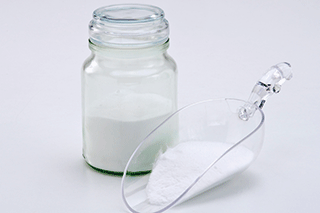
Soda solution
Bicarbonate of soda is a must-have ingredient in your natural cleaning kit. Ditch your toxic cleaning products and instead mix up half a cup of bicarbonate of soda in a bowl of warm water and use it to clean the kitchen surfaces. Add a dab of bicarbonate of soda to a moist cloth and rub gently on any stainless steel appliances. Polish with a clean, dry cloth and they will be gleaming!
Make an oil change
No need to use conventional floor polish when a cupboard staple like olive oil will do the trick just as well! This natural hero will leave wooden floors and furniture with a clean and shiny finish. Simply combine two cups of olive oil with one cup of lemon juice or vinegar and then work the mixture into the wood using a soft cloth.

Versatile vinegar
White vinegar is another versatile natural cleaner that most of us will already have in our kitchen cupboards. You can use it to descale the kettle, clean the floor or mix with bicarbonate of soda to make a natural toilet cleaner. For sparkling windows, mix up a solution of two tablespoons of vinegar to two pints of warm water and a dash of washing up liquid. Wash windows from the top to the bottom on the inside and from side to side on the outside. This will help you to see which side any smears are on.
Juicy good
The humble lemon is another fantastic natural cleaner to add to the list. Mix together some lemon juice and salt until you get a paste-like consistency and, hey presto, you have a great natural cleaner for your sink! Mix two teaspoons of cream of tartar with the juice of a lemon and apply to grout with a small cleaning brush. It will soon look as good as new!
For more top green swaps and the chance to win some great eco-friendly cleaning products, like the Your Healthy Living Facebook page: yourhealthylivingmagazine

Vitamin D deficiency may increase risk of chronic headaches
A new study from the University of Eastern Finland has found that vitamin D deficiency could increase the risk of chronic headaches.
The researchers analysed the serum vitamin D levels and occurrence of headaches in approximately 2,600 men aged between 42 and 60 between 1984 and 1989. In 68 per cent of these men, the serum vitamin D level was below 50 nmol/l, which is generally considered the threshold for vitamin D deficiency. Chronic headaches occurring at least on a weekly basis were reported by 250 men, and men reporting chronic headaches had lower serum vitamin D levels than others.
When the study population was divided into four groups based on their serum vitamin D levels, the group with the lowest levels had over a twofold risk of chronic headaches in comparison to the group with the highest levels. Chronic headaches were also more frequently reported by men who were examined outside the summer months of June through September. Thanks to UVB radiation from the sun, the average serum vitamin D levels are higher during the summer months.
The study adds to the accumulating body of evidence linking a low intake of vitamin D to an increased risk of chronic diseases. Low vitamin D levels have also been associated with the risk of headaches by some earlier, mainly considerably smaller studies. The findings were published in Scientific Reports.

Yoga could improve back pain
The ancient practice of yoga could help people suffering with back pain on a short-term basis, according to a review published by the Cochrane Library.
The researchers, from the University of Maryland in the US, examined the results from 12 clinical trials involving 1,080 people who attended professional yoga classes at least once a week. Within a 12-month period, the participants who practised yoga were twice as likely to have reduced chronic lower back pain compared to those who did only back exercises. The participants reported that they experienced a 26 per cent improvement in physical quality of life. The researchers have recommended that more studies are carried out over a longer term.

Want to be happier? Get active!
Physically active individuals enjoy a better overall state of wellbeing than their more sedentary counterparts, new research has revealed.
The Central YMCA study surveyed a nationally representative sample of 1,000 adults from across the UK. The findings showed that being physically active causes a 13 per cent boost to wellbeing scores, while being less active depletes these scores by up to 19 per cent, revealing a 32 per cent divide between the most and least physically-active people in society.
The research revealed that those who lead physically active lifestyles attain the highest wellbeing scores – achieving 6.92 on an index of 10, against a national average wellbeing score of 6.13. In addition, almost half (44 per cent) of research respondents said they felt wellbeing at its highest when playing a sport or exercising.

Time to tackle snoring
As many as one in four people snore regularly in England. Snoring is not only a nightmare for partners but a symptom of a group of medical conditions called Sleep Disordered Breathing. The most serious form of this is called Obstructive Sleep Apnoea, which increases the risk of heart diseases.
For most people, blood pressure falls at night but for people with Sleep Apnoea blood pressure increases due to lack of oxygen during sleep. This alerts the brain to send signals to the nervous system and puts extra stress on the heart. If left untreated Sleep Apnoea may increase your risk of having a heart attack and developing an irregular heartbeat.
To find out more about snoring relief, visit www.snoreeze.com
People with metabolic syndrome need more vitamin E
People with metabolic syndrome need increased amounts of vitamin E, new research has revealed. The study was carried out by researchers from Oregon State University and Ohio State University. The double-blind crossover clinical trial examined the levels of vitamin E in people with metabolic syndrome, a condition which is often linked to obesity.
The results showed that people with metabolic syndrome tend to need approximately 30-50 per cent more vitamin E than those who are deemed to be healthy. The researchers have stated that their findings clearly indicate that people with metabolic syndrome require a greater intake of vitamin E.
Metabolic syndrome is a group of conditions which occur together and include high blood sugar, excess body fat around the middle, increased blood pressure and abnormal cholesterol or triglyceride levels. The condition can increase an individual’s risk of heart disease, stroke and diabetes.
Vitamin E is an antioxidant which is important for cell protection. Dietary sources of vitamin E include almonds, wheat germ and various seeds and oils.
The findings were published in the American Journal of Clinical Nutrition.

Time and motivation are the biggest barriers to working out
Time and motivation are the biggest deterrents for working out, according to the results of a new survey. The survey of 1,508 people was carried out by Freeletics, the creator of some of the world’s most popular fitness apps.
Although more than half (51 per cent) of respondents lost weight with their current fitness routine, two fifths (39 per cent) said the most common reason they skip a workout is due to a lack of motivation. A third (32 per cent) of respondents cited a lack of time as their top reason for missing a workout. However, research has revealed that shorter sessions of intensive exercise can improve one’s health and deliver many of the benefits of conventional exercise in a much shorter time.
Philipp Hagspiel, Head of Research & Development at Freeletics, comments: “Despite common myths, you don’t need to do an hour-long workout for it to be effective. In fact, just a 15-minute workout can often lead to better results than a 90-minute one. Short bursts of HIT (high intensity training) are a more efficient way to work out, as it takes minimal time and keeps burning energy and calories for up to 24 hours after you have finished your workout.”

App encourages women to go hormone- and chemical-free in 2017
Women who use hormonal contraception are being encouraged to go hormone- and chemical-free in 2017 by the makers of a fertility tracking app, in light of Danish research that has highlighted links between hormonal contraceptives and depression.
The 2016 University of Copenhagen study found that women who took the combined pill were 23 per cent more likely to be prescribed an antidepressant by their doctor. This was most likely to occur during the first six months after they had started taking the pill. Women taking a synthetic form of the hormone progesterone were found to be 34 per cent more likely to take antidepressants than those not taking hormonal contraception. The findings were published in the Journal of the American Medical Association (JAMA) Psychiatry.
The Natural Cycles app uses a smart algorithm to pinpoint fertility and a 2016 study showed that it was found to be as effective as The Pill. It works by recording your daily temperature and a smart algorithm then determines whether you are fertile on that day, letting you accurately know whether and when to have protected intercourse.
“Women in the UK and around the world are interested in exploring effective, non-hormonal contraception options like Natural Cycles,” says Dr Elina Berglund, CTO and co-founder of the app. “Choice is important; there are plenty of contraception options available, including IUDs and condoms, and women should never give up on contraception - if they are unhappy with the pill, they should look for alternatives.”

Get involved with the Big Pedal!
Double Olympic gold medallist cyclist Joanna Rowsell Shand (pictured right) is encouraging families across the UK to get involved in a national challenge to get more young people cycling and scooting to school.
The Big Pedal 2017, which runs from 20 to 31 March, is powered by national walking and cycling charity Sustrans. During the 10 days participating primary and secondary schools will compete with one another to make the most journeys by bike or scooter. This year’s theme is ‘Around the world in 10 days’, with pupils tracking their progress on a map of the world, learning about the countries and cities they pass through on their way. According to the Department for Transport’s National Travel Survey 2014, the proportion of children walking and cycling to school has been declining since 1995, with the number being driven to primary school increasing each year. Indeed, as many as one in four cars on the road during the morning peak are on the school run.
Joanna, who won gold medals at the 2012 and 2016 Olympics, said: “Cycling is great for young people’s health, confidence and independence. The safer and more comfortable they feel on their bikes, the more they will enjoy cycling.”
For more information visit www.bigpedal.org.uk

Magnesium-rich diet could combat a range of diseases
A study by scientists at Zhejiang University in China has claimed that eating a magnesium-rich Mediterranean diet could combat a range of diseases linked to magnesium deficiency, such as strokes, diabetes and heart disease.
The findings showed that a magnesium-rich diet resulted in a 10 per cent lower risk of coronary heart disease, a 12 per cent lower risk of stroke and a 26 per cent lower risk of type 2 diabetes. However, the researchers also explained that the daily requirement for magnesium is difficult to achieve through a single serving of any one food item.
Andrew Thomas, founder and managing director of BetterYou commented: “In today’s modern environment the excess of processed foods, bad fats and sugars are decreasing our magnesium levels, resulting in a population deficient in the mineral. A government-funded report by Professor David Thomas reported that, due to a change in farming methods and food processing, the level of magnesium within our diet has declined by 21 per cent since 1940! Therefore, it’s highly recommended that magnesium supplementation is introduced into your daily routine to help keep your levels optimum and replenish lost magnesium.”

Eating nuts can reduce disease risk, study shows
Eating a handful of nuts a day can help to reduce your risk of heart disease and cancer, a new study has shown.
The study, which was carried out by researchers from Imperial College London and the Norwegian University of Science and Technology, also found a link between consuming nuts and a lowered risk of developing diabetes as well as a reduced risk of dying from respiratory disease.
The researchers analysed a series of studies involving more than 800,000 participants from around the world. Their findings showed that eating at least 20g of nuts a day can reduce risk of heart disease by nearly 30 per cent and cancer by 15 per cent as well as bring about an almost 40 per cent reduction in diabetes and half the number of deaths from respiratory disease. The results were published in the journal BMC Medicine.
Nutritionalist and author Juliette Bryant commented: “Since prehistoric times nuts have been widely eaten as a storable source of essential fats and protein. In recent years some people have avoided these amazing foods due to the fear that their fat content will increase weight. If eaten roasted and salted the delicate fats can actually be changed into something harmful, and lead to storage of fat in the body. However, if eaten raw the body easily processes the essential fats, which support overall health. Eating over 20g of nuts per day doesn't have to be boring and there are many raw recipes that use the goodness of nuts in delicious ways.”

Middle age signals start of sleepless nights
New research from The British Chiropractic Association (BCA) has found that 87 per cent of middle aged people wake up with back or neck pain. As a result, the BCA is now urging people to pay attention to their sleeping habits. The research into this age group (45-54) found that over half (58 per cent) admit pain keeps them from sleeping. The BCA offers these tips for those who struggle to sleep:
- Update your mattress: Chiropractors recommend buying a new mattress at least every 10 years. Mattresses lose their support over time, so if you can feel the springs through your mattress, or the mattress is no longer level, your mattress is no longer providing the support you need.
- Buy the right mattress: Ensure your mattress is supportive for you. If you share a bed with your partner, it’s a good idea to look for two single mattresses which can be joined together, to ensure you both get the support you need.
- Start your day right: Getting up out of bed too quickly in the morning could lead to injury. When you first wake up, try doing some gentle stretches and avoid doing anything too strenuous or making any sudden movements.
- Get moving: Activities such as yoga, which can improve posture, are recommended for people in the 45-54 age group. Other exercise which helps build your abdominal muscles could also help to protect your back. When exercising, warming up and warming down is essential to ensure that your joints and muscles don’t get a shock.
- Straighten up: The BCA’s Straighten Up UK programme offers a series of daily exercise videos to help build muscle tone and improve posture. Try these videos for free online. The BCA advises that, if you are experiencing pain for more than a few days, then you should seek professional help, as an undiagnosed problem could lead to longer-term problems if left untreated. To find out where your local chiropractor is, please visit www.chiropractic-uk.co.uk and search for a chiropractor.

Grow, learn and be inspired
The Grow Club Discovery Box is a new monthly subscription service for those who want to grow fresh food and flowers at home – even in small urban spaces. Launched by Seed Pantry, the service is designed to inspire growers with beautifully curated monthly boxes and easy to follow grow guides. Each month, you can make six choices, from a wider list, to grow your own food and flowers. Deliveries of food and flower seeds, bulbs or plants will be sent to your home at the right time for planting.
Find out more at www.seedpantry.co.uk
Workplace dehydration becoming a problem
A new survey has revealed that dehydration in the workplace is becoming a problem for many workers. The study by the Natural Hydration Council found that a fifth of those surveyed reported rarely or never drinking water at work, with 13 per cent saying this leaves them feeling dehydrated. Over 2,000 people were interviewed for the survey.
Dr Emma Derbyshire, public health nutritionist and adviser to the Natural Hydration Council, said: “The research is especially concerning as it highlights how many people find it difficult to stay hydrated at work. Research has shown that even a reduction in dehydration levels of as little as as two per cent of body weight can influence mood, lead to greater feelings of fatigue and reduced levels of alertness.”
Dr Derbyshire recommends starting the day with a glass of water. If you feel tired, have a headache or are experiencing any other signs of dehydration, take a break and try having a glass of water, as a first step. Also, remember that foods with a high water content such as melons, soups, stews, fruit and vegetables, will make the greatest contribution to your daily water intake.

3 ways to raise eco-conscious kids
Start early by teaching youngsters about how to live a sustainable and eco-friendly lifestyle and you’ll be raising a new generation of eco warriors! Here are some tips to get you started:
1. Teach them about recycling
Give your children responsibilities such as sorting and rinsing items for recycling, placing them in the correct bins and taking the containers out to the kerb for collection. Make things more creative by getting them to help decorate your recycling box with your house number and road name.
2. Start a wormery
Young children – boys in particular – love playing with worms, so this is sure to be a fun activity for them. A wormery will recycle your food waste to make fertiliser for plants and vegetables. What’s more, they are ideal for small spaces and make compost quicker than normal composters. There are plenty of guides for how to build one online.
3. Grow a vegetable garden
Getting children involved in creating a vegetable garden is a great way of teaching them about nature as well as giving them responsibilities. Vegetables that are fun and easy to grow include carrots, tomatoes, beetroots and peas.

Why women should lift weights
There are lots of misconceptions around about women lifting heavy weights. However, Laura Harman, a leading physiotherapist at London’s Boost Physio (www.boostphysio.com), believes that weight training is essential to women’s physical and psychological wellbeing. Here are her top reasons why:
Psychological wellbeing: Weight training is a fantastic way to improve your confidence and self-esteem. It can also help improve your mood and manage symptoms of stress and anxiety.
Blood pressure: A study at the Appalachian State University found that weight training can be used to help lower blood pressure in addition to improving cardiovascular health.
Belly fat: A University of Alabama study found that women who lifted weights lost more intra-abdominal fat (deep belly fat) than those who just did cardio. Weight lifting will improve your posture, strengthen your core and help with balance.
Muscle mass: A study published in the American Journal of Preventative Medicine found weight training to be effective in increasing muscle mass and strength in addition to improving bone density.
Improved sleep: Recent research by Appalachian State University has shown that weight training can help improve your sleep and can have the same effect as a warm bath before bed.

Vitamin D may help children with autism
Symptoms of autism in children, including hyperactivity and social withdrawal, were shown to improve after supplementation with vitamin D3, according to the results of a recent study.
The researchers conducted a double-blind, randomised clinical trial (RCT) on 109 children with autism spectrum disorder (ASD). The group consisted of 85 boys and 24 girls aged between three and 10. Over a period of four months, the children either received a daily dose of 300 IU vitamin D3/kg/day (with a maximum of 5,000 IU/day) or a placebo. The severity of their autism and social maturity was measured.
The results showed that the vitamin D supplementation was “well tolerated” by the children and that autism symptoms “improved significantly” in the group who took the daily dose of vitamin D3, but not in the placebo group.
Study author Khaled Saad said: “This study is the first double-blinded RCT proving the efficacy of vitamin D3 in ASD patients. Depending on the parameters measured in the study, oral vitamin D supplementation may safely improve signs and symptoms of ASD and could be recommended for children with ASD. At this stage, this study is a single RCT with a small number of patients, and a great deal of additional wide-scale studies are needed to critically validate the efficacy of vitamin D in ASD.” The results were published in the Journal of Child Psychology and Psychiatry.

A tired nation
A new study has revealed that a third of Brits (37 per cent) feel that they do not get enough sleep. Furthermore, of the 13 countries surveyed, those living in Britain were found to be the most exhausted. The results also showed that 44 per cent of British adults feel too tired to exercise, with women being more affected by this than men. The survey was conducted by insurance company Aviva.

VeggieWorld comes to London
VeggieWorld, an established European vegan event, will be coming to the UK for the first time in 2017. VeggieWorld London will take place on 8 and 9 April at Kensington Town Hall and promises to include a packed programme of talks and cookery demonstrations as well as around 70 stalls showcasing vegan foods, make-up, beauty products, fashion and more. There will also be a food court offering a wide range of vegan caterers and a charity marketplace, where visitors can find and discuss opportunities to volunteer or work within the sector.
VeggieWorld is the oldest and largest exhibition of the vegan lifestyle in Europe, attracting on average 8,000 visitors at each of its events in countries ranging from Germany and the Netherlands to France and Spain. 2017 will be the year that the UK becomes part of this major international community.
Visit www.veggieworld.de/en/event/london-en for more information.

Maternal deficiency in vitamin B12 linked to risk of diabetes in children
Children of mums-to-be who are deficient in vitamin B12 whilst pregnant may go on to develop health problems such as type 2 diabetes, according to new research. The findings were presented at the UK Society for Endocrinology Annual Conference in Brighton.
Researchers from the University of Warwick discovered that babies born to mothers who were deficient in vitamin B12 had higher-than-normal levels of leptin, a hormone which controls feelings of hunger and satiety. High levels of this hormone have previously been found in individuals who are obese. This can lead to leptin resistance, persistent overeating and an increased risk of insulin resistance, which in turn can develop into type 2 diabetes.
Senior author Ponusammy Saravanan, PhD, FRCP, has stated that the findings signify the importance of good nutrition before and during pregnancy.
Four steps to a more sustainable Christmas
TV presenter and upcycling expert Max McMurdo offers some tips for how to achieve a more sustainable Christmas.
1) Stock up on rechargeable batteries for Christmas toys rather than throwing away alternatives. This is much more sustainable and will save you money in the long run.
2) Rather than buying each other unnecessary gifts, my assistant and I are buying sleeping bags for the homeless this Christmas. While not a creative sustainable tip, it is something very close to our hearts and avoids those gifts that get put to the back of the cupboard. As well as this we will be visiting our local Emmaus branch for an upcycling workshop rather than having a Christmas party… of course, we will be taking a turkey too!
3) Try making your own decorations. They will be treasured for years and will create a homely Christmas atmosphere. Old light bulbs make a great upcycled bauble alternative. Winter forest walks also provide great found materials which can be transformed with simple craft techniques such as spray-painting. Add metallic accents of coppers and golds for an on trend Christmas feel.
4) If you’ve replaced your Christmas jumper, use your old one to create a festive cushion cover with simple sewing techniques.
Max McMurdo’s book ‘Upcycling’ is available now at www.amazon.co.uk. Follow Max on twitter at @maxreestore

Did you know?
If a family of four were to turn off the tap whilst brushing their teeth this could help to save the equivalent of a bath full of water each day.

How to breathe correctly
Breathing relies on the big, powerful muscles of the diaphragm, the abdomen and the intercostal muscles that lie between the ribs. It is helped along by the smaller secondary muscles of the neck, shoulders and upper ribs. When you are upset, anxious or stressed, the abdomen tenses and prevents the big primary muscles from working. Instead, they begin tugging against each other, leaving the secondary muscles to do all the work.
But the secondary muscles are only designed to shoulder 20 per cent of the burden, so they become stressed. If this continues, it can lead to chronic tension in the shoulders and neck, to headaches and fatigue, and to increasingly shallower breathing.
To breathe correctly, all you need to do is set your breath free. Mindfully submit to its natural rhythm. Feel the air as it flows in and out of your body. Allow yourself to relax into the breath’s fluidity. Feel your shoulders loosen and unfurl. Close your eyes (if you want to) and feel the ground beneath your feet. If you feel anxious, distressed, unhappy or exhausted, then begin to consciously breathe in and out.
Take a long, deep breath while counting slowly to 5 in your mind. Pause for a moment. Then breathe out while counting to 7. You can alter the speed of the counting to reflect the unique rhythm of your breath. Try not to rush things. Repeat this 5/7 breathing until you feel more solid, whole and in control. You can come back to it as often as you like.
Extracted from The Art of Breathing by Dr Danny Penman, published by HQ HarperCollins and available in paperback and ebook.
Feeling good
Positive new research amongst UK women aged 40+ reveals a third feel 10 to 20 years younger than their years, and one in three state they are fitter and healthier now compared to when they were younger. Many of the survey respondents reported that staying on top of health checks was important. Three quarters reported that they visit their optician and dentist for regular check-ups and almost two thirds have their blood pressure tested at least once a year, while two in five have their cholesterol tested annually.
The survey was carried out by high street hearing specialists Hidden Hearing.

3 apps to support your mind
Remente (www.remente.com) focuses on helping you exercise your mind and manage day-to-day tasks by first assessing how happy you are with life, identifying the areas that you want to improve, and setting manageable tasks. The app also lets you track your mood and provides you with insightful courses on different areas of life. Available on iOS and Android. Premium Membership is also available for £4.17 per month.
Pacifica (www.thinkpacifica.com) is good if you struggle with anxiety. This app tracks your mood on a daily, weekly and monthly basis and provides you with breathing and meditation exercises to help you work through an anxiety episode. Interestingly, the app also provides you with little experiments that challenge your anxiety, with the aim of gradually reducing its levels, as well as a diary to help you keep track of your thoughts. Available on iOS and Android. Full access is available at £4.49 per month.
Sleepio (www.sleepio.com) When it comes to mental health, sleep is essential. In fact, not getting enough sleep has been linked to developing depression and increasing anxiety levels. Sleepio can help you fall asleep faster, improve the overall quality of your sleep and know what lifestyle changes you should make to sleep better. Available on iOS. Full access is £200 per year.
Are you healthily hydrated?
Research has shown that even a two per cent drop in hydration levels can influence mood, making people less alert and more tired. Studies into the effects of mild dehydration on cognitive function suggest that men and women who are dehydrated are more likely to feel fatigued and to have diminished cognitive performance, specifically vigilance.
Dr Emma Derbyshire, adviser to the Natural Hydration Council and Public Health Nutritionist, recommends starting your day with a glass of water to ensure that you are well hydrated and to drink water at regular intervals throughout the day. She adds: “Foods can also contribute to your daily water intake. Those with a high water content; for example, melon, soups, stews, fruit and vegetables, will make the greatest contribution.”

3 ways to enjoy an eco-friendly holiday
By Kerry Law, editor of eco travel blog Goodtrippers (www.goodtrippers.co.uk)
It’s the journey, not just the destination
Eco-friendly holidays aren’t just about where you go and what you do when you get there. How you get there is just as important. Transport options that produce lower carbon emissions than flying – such as trains and boats – can transform what can often be a stressful or humdrum travel experience into something wonderful and eye-opening. Whizzing through the countryside on a train can reveal sights and scenery you would miss if you were flying above the clouds (taking the railway through mountainous or coastal regions is particularly awe-inspiring). Take a ferry, ship or boat and your spell at sea will add a whole new, adventurous dimension to your holiday – and remind you of how our ancestors used to travel in the past.
Respect local people and wildlife
Responsible tourism helps communities thrive, which can also help preserve indigenous wildlife and environments. Spend your money with good, local businesses instead of large global organisations, and that small, family-run restaurant or local guide will benefit directly. Choose activities with tour operators and businesses that are run responsibly – ask questions and check their websites for more on how they protect or support local communities and wildlife. If something looks dodgy, such as wild animal ‘petting’ or animal-derived souvenirs, stay away!
Slow down!
We could all do with putting on the brakes now and then, particularly for a holiday. But an eco-friendly holiday means embracing an altogether slower, more natural pace of life. Take your time and explore your new surroundings by bicycle or by foot. Linger over freshly-cooked meals and don’t be in a hurry to squeeze in too many sights or activities. So savour your eco holiday – by taking only memories and leaving only footprints, you really can return home destressed and rejuvenated!
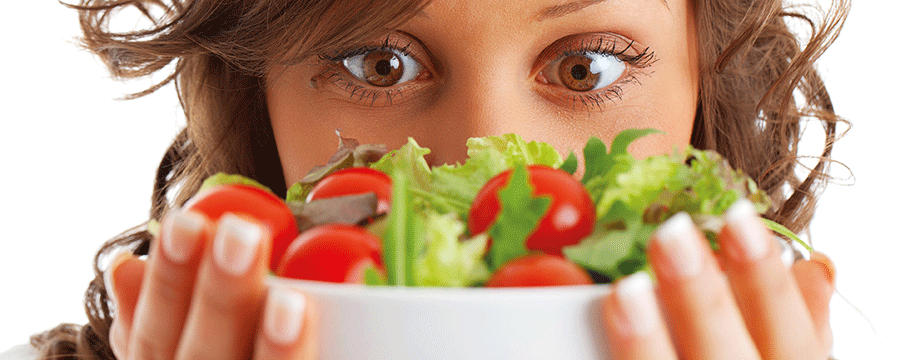
More reasons to follow the Meditteranean diet
The benefits of following the Mediterranean diet are well known, particularly in terms of improving heart health and reducing the risk of cancer, but new research has found that it could be beneficial for our eye health too.
Researchers from the University of Coimbra in Portugal have found that people who closely follow the Mediterranean diet, especially by eating fruit, may be more than a third less likely to develop age-related macular degeneration, (AMD), which is a leading cause of blindness.
The Mediterranean diet is based on eating fruits, vegetables, whole grains, legumes, nuts, healthy fats and fish, and limiting red meat and butter.
The researchers studied 883 people aged 55 and over between 2013 and 2015. Of those, 449 had AMD in its early stages before vision loss, and 434 did not have AMD. The participants’ diets were assessed based on a questionnaire asking how often they ate foods associated with the Mediterranean diet. Their findings revealed a significant reduction in AMD risk in those who ate a Mediterranean diet most frequently, and particularly among those who consumed more fruit and caffeine.
The researchers chose to look at caffeine because it is a powerful antioxidant that is known to be protective against other conditions, such as Alzheimer’s disease.
Rufino Silva, M.D., Ph.D., lead author of the study, said: “This research adds to the evidence that a healthy, fruit-rich diet is important to health, including helping to protect against macular degeneration. We also think this work is a stepping stone towards effective preventive medicine in AMD.”

Vitamin D spray helps resolve deficiency in athletes
Even athletes who spend an above average amount of time outside are at risk of vitamin D deficiency, a new study has found. The randomised placebo-controlled trial was carried out by Ulster University in conjunction with health pioneers BetterYou and looked at the effect of vitamin D on 35 healthy Gaelic footballers.
The findings showed that 72 per cent of participants were vitamin D insufficient at the start of the trial. However, after 12 weeks of supplementation with BetterYou’s DLux3000 vitamin D oral spray, the athletes with a deficiency had boosted their vitamin D levels to ‘adequate’. Vitamin D is often referred to as the 'sunshine vitamin' because our bodies produce it through exposure to the sun.
The results revealed that the group who exercised regularly experienced small improvements in their thinking skills compared to the group who did not do the regular exercise. Notably, six months after the exercise group ceased exercising regularly their cognitive functions were found to be no different than those who did not exercise. The findings were published in the journal Neurology.

Get your beauty sleep!
If you are struggling to lose those extra pounds, your lack of shut-eye may be the problem. Studies have shown that a lack of sleep may cause us to eat 300-400 more calories the next day. And in order to keep energy levels high we tend to choose sugary or starchy quick fixes. “Just one extra hour of sleep each night can increase leptin, the hormone which suppresses appetite,” says Shona Wilkinson, nutritionist at SuperfoodUK.

Regular exercise could benefit those with dementia
Canadian researchers have found that exercise may benefit elderly people with dementia – but the exercise needs to be kept up in order for the benefits to last.
A team from the University of British Columbia in Vancouver carried out the study on a group of 70 individuals with an average age of 74. Half of the group exercised for an hour three times a week over a period of six months, while the other half of the group did not exercise but ate a healthy diet. All participants were tested on their cognitive skills both before the study and after it finished, six months later.

Vitamin D could prevent asthma attacks
New research has shown that vitamin D can offer protection against severe asthma attacks according to a major review of research surrounding the effects of the vitamin on the condition.
Low blood levels of vitamin D have been linked to an increased risk of asthma attacks in children and adults with asthma. Several clinical trials have been carried out to determine whether vitamin D might prevent asthma attacks and improve control of asthma symptoms in children and adults. However results from studies with the most scientifically sound designs have not previously been evaluated as a group.
Researchers from Queen Mary University of London carried out a review for the Cochrane Library, in which they evaluated seven trials involving 435 children and two trials involving 658 adults. The majority of those taking part had mild or moderate asthma and all of the studies compared vitamin D with placebo.
The researchers found that people given vitamin D experienced fewer asthma attacks requiring treatment with oral steroids. The average number of attacks per person per year reduced from 0.44 to 0.28 with vitamin D. Vitamin D also reduced the risk of attending hospital with an acute asthma attack from 6 per 100 to around 3 per 100. The researchers have called for further trials focusing on children and people who experience frequent severe asthma attacks before definitive clinical recommendations can be made.

Selenium linked to decreased risk of liver cancer
German researchers have found that high blood selenium levels are linked with a decreased risk of developing liver cancer.
Selenium is a trace element which is found in foods such as seafood, Brazil nuts, organ meats, milk and eggs. A team of researchers led by Professor Lutz Schomburg of the Institute of Experimental Endocrinology in Berlin examined data from 477,000 adults and selected individuals who had developed hepatocellular carcinoma (liver cancer) during a 10-year follow up.
Blood samples were also chosen from healthy participants and subsequently analysed to determine their selenium status.
“We have been able to show that selenium deficiency is a major risk factor for liver cancer,” said Professor Schomburg, adding: “According to our data, the third of the population with lowest selenium status have a five- to ten-fold increased risk of developing hepatocellular carcinoma – also known as liver cancer.” The findings were published in the American Journal of Clinical Nutrition.

Did you know?
If each of the UK’s 10 million office workers used one less staple a day, that could save 120 tons of steel a year. You can even fold over the corners of the pages to secure them, or use a paperclip if necessary.
Source: Friends of the Earth.
Family fun galore at VegFestUK
A weekend of family fun is promised at this year’s VegfestUK London event on 22 and 23 October at Olympia London. This celebration of veganism will feature plenty of activities for youngsters to enjoy, as well as informative events for the adults. Kids’ entertainer Captain James Tea Cook, Pirate of the Carob Bean, will head up a series of entertaining cookery classes to get the kids busy whilst learning about the basics of veganism.
There will also be a number of family-friendly book reading sessions, magic shows and poetry readings. For older children the Teen Zone will play host to fun workshops, games and competitions. Meanwhile adults will be able to visit the many stalls showcasing hundreds of vegan products, take part in talks and yoga sessions, enjoy stand-up comedy and music plus much more!
For more info, visit www.london.vegfest.co.uk

Poor prenatal diet linked to ADHD
Researchers have found links between a diet that is high in fat and sugar during pregnancy and symptoms of ADHD in children with behavioural problems early in life.
Scientists from King’s College London and the University of Bristol conducted a study involving participants from the Bristol-based ‘Children of the 90s’ cohort. A total of 83 children with early-onset conduct problems were compared with 81 children who had low levels of conduct problems. The researchers examined how the mothers’ diet affected epigenetic changes (or DNA methylation) of IGF2, which is a gene involved in foetal development and the brain development of areas involved in ADHD – the cerebellum and hippocampus.
The researchers discovered that a diet high in fat, sugar, processed food and confectionery during pregnancy was linked with higher IGF2 methylation in children with early onset conduct problems and those with low conduct problems.
Higher IGF2 methylation was also associated with higher ADHD symptoms between the ages of seven and 13, but only for children who showed an early onset of conduct problems.
Dr Edward Barker from King’s College London said: “These results suggest that promoting a healthy prenatal diet may ultimately lower ADHD symptoms and conduct problems in children. This is encouraging given that nutritional and epigenetic risk factors can be altered.”
The findings were published in the Journal of Child Psychology and Psychiatry.

It’s good to go organic!
This month marks the return of the Soil Association’s Organic September campaign, which is a month-long celebration of all things organic. Here are five reasons why you should get involved:
1. Reduce your exposure to potentially harmful pesticides
Over 320 pesticides can be routinely used in non-organic farming and these are often present in non-organic food.
2. It’s naturally different
How we farm really does affect the quality of the food we eat. Research published in the British Journal of Nutrition found significant nutritional differences between organic and non-organic farming.
3. It’s better for the planet
If all UK farmland was converted to organic farming at least 3.2 million tonnes of carbon would be taken up by the soil each year – the equivalent of taking nearly 1 million cars off the road.
4. Help protect our wildlife
75 per cent of UK wildlife is in decline. Organic farms use fewer pesticides and provide homes for bees, birds and butterflies – there is up to 50 per cent more wildlife!
5. Higher standards of animal welfare
Organic animals are truly free range. This means healthy, happy animals that are reared without the routine use of antibiotics which is common in intensive livestock farming.
To find out more about the Organic September campaign, visit www.soilassociation.org/organicseptember

Healthy living helps women ‘take control’ of breast cancer
As Breast Cancer Awareness Month approaches, thousands of women are facing a life-changing diagnosis and often gruelling rounds of treatment. Survival rates are improving but it’s still an incredibly frightening time which leaves women overwhelmed with a feeling of helplessness. For many, adopting a healthy lifestyle is a way of taking back control.
“The moment you get your diagnosis, you do feel very alone,” says Nina Barough, who has had breast cancer and is founder of the grant-making breast cancer charity Walk the Walk. “I felt I needed to do little things that gave me a sense of having control. I had healing, massages, ate only organic foods, got heavily into juicing and walked for miles. Power Walking for me was huge – I consciously decided the fitter I was before surgery, the quicker I would heal and for me it worked.”
Research has since borne Nina’s theory out, showing that doing weight-bearing exercise like walking helps both physically and emotionally – although each individual case differs. Holistic treatments are also gaining some traction. “Twenty years ago acupuncture was not accepted in hospitals,” says Nina. “Now there are lots of charities working within hospitals using massage, nutrition and acupuncture to help people on their journey – it can’t be underestimated how important this is, alongside conventional treatment.”
Two decades on, Nina is an expert in Power Walking and organises The MoonWalk – night-time walking marathons in London, Edinburgh and Iceland which raise money for breast cancer causes – from conventional treatments to holistic care. She’s also still a big fan of juicing and a committed vitamin-taker.
To sign up for The MoonWalk London 2017 go to www.walkthewalk.org
A celebration of veganism
Delicious vegan food from around the world will be on the menu at VegfestUK, which takes place on 22 and 23 October at Olympia London.
From falafels and baklavas to sushi rolls, Chinese stir-fries and Caribbean callaloos, visitors will be able to sample a range of delicious vegan dishes which can be washed down with vegan draught beers, juices and smoothies.
Around 12,000 visitors are expected to attend the event, which is also set to feature around 250 stalls showcasing all manner of vegan products from food and drink to bodycare, fashion, magazines and much more.
Those looking for culinary tips will not want to miss the cookery demos and living raw food demos laden with easy-to-follow techniques on getting the best out of your vegan ingredients.
Families with children will enjoy the cookery classes, smoothie bikes, magic shows and games in the Kids Area, whereas elsewhere in the venue there will be a programme of entertainment from stand-up comedians and acoustic musicians as well as a bodybuilding contest. Those wishing to learn more about the vegan ethos can attend the dozens of talks, workshops and panel discussions, which cover areas as diverse as health, nutrition, activism and more.
• Tickets are priced at £12 for adults and £8 for students/claimants/OAPs (plus a small booking fee) in advance.
Visit www.london.vegfest.co.uk/ticket-info

Join the D-list
Public Health England (PHE) has issued new recommendations that everyone should take 10mcg of vitamin D each day to maintain healthy bones, teeth and muscles. This advice is based on the recommendations of the Scientific Advisory Committee on Nutrition (SACN), which carried out a review of the evidence on vitamin D and health.
Vitamin D is produced in the skin through exposure to sunlight. It regulates the amount of calcium and phosphate in the body, both of which are needed for healthy bones, teeth and muscles. It is found naturally in a small number of foods including oily fish, red meat, liver and egg yolks and in fortified food like breakfast cereals and fat spreads.
PHE advises that in spring and summer most people get sufficient vitamin D through sunlight on the skin as well as a healthy, balanced diet. However, during autumn and winter, people need to rely on dietary sources of vitamin D. Since it is difficult for people to meet the 10mcg recommendation through their diets, it is advised that they should consider taking a daily supplement during autumn and winter.
Natural health company BetterYou have welcomed the recommendations but are keen to emphasise that even during summer months in the UK, we simply are not getting enough vitamin D. BetterYou have always recommended year-round supplementation and developed a vitamin D Oral Spray range (DLux) to ensure optimum delivery and guarantee absorption levels all year round.
Andrew Thomas, founder and managing director at BetterYou, said: “We’ve been waiting a long time for the SACN report to be published as the government’s current advice is that only at-risk groups should take a daily vitamin D supplement, yet due to the lack of sunshine in the UK and cloudy conditions more and more of us are depleted in this essential vitamin which can lead to numerous health risks. As Vitamin D Awareness Week looms (24 to 30 October) it is our aim to educate the nation as to the dangers of vitamin D deficiency and spread the message of not only the importance of supplementation but also how easy it is to rectify this situation.”

The super spice!
According to new research published in the Journal of Neuroimmune Pharmacology, cinnamon could improve your ability to learn.
Researchers from Rush University Medical Center in Chicago discovered that the popular spice can reverse biochemical, cellular and anatomical changes that occur in the brains of those with poor learning by stimulating the hippocampus, a small part in the brain that generates, organises and stores memory.
Cinnamon may also help with sugar cravings, when sprinkled on foods such as natural yogurt and porridge. Leading nutritionist Dr Marilyn Glenville says: “A few studies suggest that adding cinnamon to food might help better control blood sugar, by lowering post-meal blood-sugar spikes.”
The power of pomegranates
Swiss scientists have found evidence that could suggest that pomegranates hold the key to longevity.
A study published in Natural Medicine journal found that pomegranates contain a substance called urolithin A, which is responsible for a process known as mitophagy. This is a process whereby the body's mitochondria (the energy factories of the cells) are recycled into new mitochondria after they become worn down and less efficient.
In laboratory studies when urolithin A was given to worms and mice, the animals were found to live longer and ran further. Clinical trials are underway at present to see whether the effect can be replicated in future.

Reading and diet boosts brain power
A new report has found that a combination of reading and following the right diet can boost brain power and behaviour at the beginning of life. These were the findings of the report, Something fishy about reading, published by Equazen, manufacturers of evidence-based omega fatty acid supplements.
As part of the report, Philip Calder, professor of nutritional immunology at the University of Southampton and independent dietitian Dr Carrie Ruxton, reviewed recent studies of the impact of long chain omega-3 fatty acid supplements on learning and cognition in healthy children. They found that seven out of nine clinical trials showed that youngsters benefited in some way from taking a top-up.
The report also showed that reading boosts academic achievement, increases our emotional intelligence, reduces depression and stalls dementia. Scans have even shown that our brains work differently when we concentrate on a good novel and reading produces lasting changes in the way our brains work.
Compelling evidence of the importance of omega-3 for reading comes from the DHA Oxford Learning and Behaviour (DOLAB) study — a randomised, double-blind, placebo-controlled trial of seven to nine-year-olds which found that a daily dose of 600mg of long chain omega-3 fatty acids produced “significant” improvements in reading in children who had previously underperformed in reading tests.
Professor Calder says it’s hardly surprising that omega-3 appears to be so important for cognition as up to 40 per cent of the grey matter in the human brain is fat, and around half of it is the long chain omega-3, DHA. “DHA is essential for normal brain function, while another long chain omega-3, eicosapentaenoic acid (EPA) has been shown to influence mood and behaviour,” he says.

The impact of pollution
According to a new report by the Royal College of Physicians, each year in the UK around 40,000 deaths are attributable to exposure to outdoor air pollution.
The report, which is titled Every breath we take: The lifelong impact of air pollution states that air pollution has been linked to cancer, asthma, stroke and heart disease, diabetes, obesity, and changes linked to dementia. It also reveals that the health problems resulting from exposure to air pollution in the UK add up to more than £20 billion every year.

A vision of the future
A new report by a young conservationists group is urging the government to offer greater protection to wildlife and the environment.
The Vision for Nature report, which was produced by the organisation A Focus on Nature, calls for the UK Government to bring out a 250-year plan which sets out how nature will be maintained for generations to come.
Other recommendations in the report include that 20 per cent of lesson time throughout primary schools should be spent outdoors in quality green space, with half of this spent learning about and interacting with the natural world.
It also calls for a joint government, business and third sector programme to create 10 city national parks across the UK and to develop urban nature reserves and wildlife gardens in the most deprived communities in the UK.

Wholegrains linked to reduction in heart disease
Eating at least three portions of wholegrains a day has been found to be linked with a lower risk of death from heart and circulatory disease and cancer. The findings came about as a result of a review carried out by the American Heart Association (AHA). The association examined 12 studies which focused on the association between a diet rich in wholegrains with lower risk of death from heart and circulatory disease and cancer.
The review of the combined studies, which was published in the AHA’s journal Circulation, involved 786,076 people in the US, Scandinavia and the UK.
Victoria Taylor, a senior dietitian with the British Heart Foundation, said: “Eating more wholegrains is a simple change we can make to improve our diet and help lower our risk of heart and circulatory disease.
Choosing brown rice, whole-wheat pasta, wholemeal or granary bread instead of white and swapping to wholegrain breakfast cereals like porridge are all simple ways to help us up our fibre and wholegrain intake.”

Coffee found to play a role in good liver health
A report launched by the British Liver Trust supports the role of coffee in good liver health. It is the first time that the entire body of current research and evidence has been reviewed and compiled into a single report.
The report, entitled Coffee consumption and the liver – the potential health benefits, provides evidence that regularly drinking moderate amounts of coffee may prevent liver cancer – the World Health Organisation recently confirmed this reduced risk after reviewing more than 1,000 studies.
It also reveals that coffee lowers the risk of other liver conditions including fibrosis (scar tissue that builds up within the liver) and cirrhosis. Other findings include the fact that drinking coffee can slow the progression of liver disease in some patients and that beneficial effects have been found no matter how the coffee is prepared – filtered, instant and espresso. As a result, the British Liver Trust is calling for more clinical research relating to coffee and the liver.
For more information, visit www.loveyourliver.org.uk
15 minutes of exercise a day could reduce risk of death
Just 15 minutes of exercise per day has been linked with a 22 per cent lower risk of death, according to a new French study.
Researchers from University Hospital of Saint-Etienne monitored the exercise habits of a group of 1,011 people aged 65 in 2001 for a 12-year period. They also studied an international group of 122, 417 people aged 60 for 10 years.
The researchers discovered that individuals who took part in the recommended weekly level of exercise achieved a 28 per cent lower risk of death. Participants who engaged in around 15 minutes of exercise each day still achieved a 22 per cent reduced risk. The health benefits generally came from a reduced risk of dying from heart disease or a stroke.
The researchers concluded that 15 minutes of exercise a day was a ‘reasonable target dose’ for those aged over 60. The findings were published in the British Journal of Sports Medicine.
Survey links stress to digestive distress
According to research carried out by Potter’s Herbals, a producer of licensed herbal medicines, 21 per cent of respondents cited stress as a key trigger of digestive problems, including irritable bowel syndrome (IBS).
Furthermore, 78 per cent of respondents admitted to suffering with stress once a week or more, with nearly a quarter (23 per cent) suffering stress every day.
One in five people stated that their stress was work-related whereas one in six said that their workloads meant that they don’t have regular meals and almost as many (13 per cent) said they often ate on the go at work giving their digestive systems no time to digest their food.
The survey was carried out among 2,000 UK adults aged between 25 and 65. Stress management advice from The Henry Potter Advisory Committee includes staying well hydrated by drinking herbal tea to maintain digestive health, consuming meals and snacks on a regular schedule, eating a minimum of five-a-day fruit and vegetables, limiting fat and sugar intake and exercising regularly.
For more information, visit www.pottersherbals.co.uk
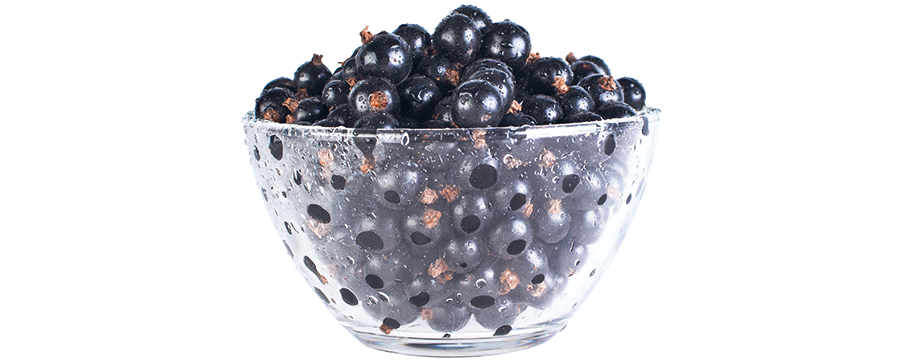
Blackcurrant extract could help cardiovascular function
Athletes who were given a supplement of New Zealand blackcurrant extract were found to experience improved cardiovascular responses according to a study by the University of Chichester.
Fifteen male cyclists were supplemented with New Zealand blackcurrant extract for seven days, at doses of 300mg, 600mg and 900mg. Their cardiovascular function was tested over 20 minutes, while lying down. The results showed that short-duration supplementation with the blackcurrant extract increased blood volume pumped by 27.5 per cent and boosted circulation by 20.2 per cent.
Mark Willems, Professor of Exercise Physiology at the University of Chichester said: “Our findings indicate a clear application for athletes recovering from exercise. If you can enhance blood flow to muscles that were active following exercise then that is beneficial for recovery.” Blackcurrant compounds relax blood vessels, meaning they reduce the tension in blood vessel walls, causing the diameter of the blood vessel to widen, resulting in enhanced blood flow.
A vegan diet could reverse diabetes
Following a vegan diet can prevent, treat and even reverse type 2 diabetes, claims a leading expert. Diet and lifestyle have long been regarded as the main causes of type 2 diabetes. Now research suggests that those following a vegan diet reduce their risk of diabetes by 78 per cent compared with people who eat meat on a daily basis.
“Type 2 diabetes is almost always preventable, often treatable, and sometimes reversible through diet and lifestyle changes,” writes Dr Michael Greger, internationally-renowned physician, in his best-selling book How Not To Die. “People who eat a plant-based diet have just a small fraction of the rates of diabetes seen in those who regularly eat meat. By switching to a healthy diet, you can start improving your health within a matter of hours.”
This is partly because vegans are better able to control their weight. Carrying excess body fat is the number one risk factor of type 2 diabetes, with around 90 per cent of those who develop the disease being overweight. Vegans, however, have lower levels of obesity on average than any other dietary group.
It is also because, Dr Greger explains, the saturated fats found in animal products contribute to insulin resistance – the cause of type 2 diabetes – whereas monosaturated fats found in nuts and avocados may actually protect against the detrimental effects of saturated fats.
As a result, people eating plant-based diets appear to have better insulin sensitivity, better blood sugar levels and better levels of insulin, which enables blood sugar to enter your cells.
For more information on following a vegan diet, visit www.vegansociety.com

Festival time: Staying healthy, naturally
With festival season upon us, and Glastonbury medics treating 600 daily in recent years, it’s worth some careful planning to make sure you’re in the dance tents rather than stuck at first aid. Here, Chloe Lyons a nutritional therapist working with OptiBac Probiotics, offers her top three natural health tips for the festival season:
- Healthy snacks: These are key to your success. You don’t want to be caught out and have to live on your friends’ instant noodles all weekend. Pack a cool bag full of healthy nibbles. A few oatcakes will go a long way, and hydrating vegetables such as cucumber, celery and sugar snap peas will be a god-send for your hangover!
- Tummy love: Festivals can play havoc with your digestive system, with all the fatty foods and dubious hygiene. And, knowing the loos, festivals are the last place you need to be stuck with a dodgy tummy. The peculiarly named Saccharomyces boulardii is the perfect festival probiotic. A natural way to eliminate the runs, it binds to toxins, sorts out an upset tummy quickly, and will help limit time in the portaloos.
- Sunburn isn’t sexy: Stay beautiful with a natural, organic suncream and don’t forget to pack your hat.

Healthy hydration
Next time you head to the gym, make sure you pack a bottle of coconut water in your kit bag. As a natural form of electrolytes, it’s the ideal choice to rehydrate the body. “If you exercise intensely for longer than an hour you are likely to lose some electrolytes,” says Carly Tierney, a personal trainer and nutritionist with DW Fitness.
“Electrolytes are minerals that, amongst other things, regulate the level of water in your body. Electrolytes include sodium, potassium, calcium, magnesium, chlorides, phosphates and iron. These are usually maintained by a healthy diet of proteins, fruits and veggies but can be lost through excessive sweat. Coconut water can help to redress the balance.”
Vitamin D deficiency linked to diabetic retinopathy
Scientists have discovered a link between vitamin D deficiency (VDD) and diabetic retinopathy (DR), which is one of the world’s leading causes of blindness. The researchers reached their conclusion based on an examination of data from 13 studies involving over 9,000 participants. The results were presented at the American Association of Clinical Endocrinologists (AACE) 25th Annual Scientific & Clinical Congress.
Dr Anawin Sanguankeo, one of the study’s authors, said: “Although the role of vitamin D in the pathogenesis of diabetic retinopathy has been, and remains, an area of debate, our meta-analysis of current evidence shows a statistically significant connection between VDD and DR and suggests people with low vitamin D levels should be screened for diabetic retinopathy.”
The researchers have suggested that more research should be conducted into the possibility of using vitamin D supplementation as a means of halting the development of DR.

Technology predicted to boost the nation’s fitness
A new report has predicted that technology, which is often blamed for the increase in childhood obesity, will encourage children to become fitter and healthier. With the rise in wearable tech, fitness apps, heart rate monitors and trackers, the Future of Play report suggests that new fitness technologies and developments are set to enhance the nation’s fitness levels.
The report predicts that new gadgets such as activity-tracking jewellery, drones which can play ‘hide and seek’ or shoot jets of water will encourage kids towards physical activity. Perhaps the most exciting change predicted for the next decade will be augmented reality video games where gamers play outdoors instead of being confined to a computer screen or console.
New generation, super-accurate satellite locating will also increase the popularity of Geocaching, a modern-day treasure hunt where people find hidden boxes using their phone location. The report was commissioned by Soreen in partnership with national charity the Youth Sport Trust, which encourages children and families to become more active together.

3 podcasts for better wellbeing
We pick three top health and wellbeing podcasts from Acast, the free-to-use podcasting platform downloadable from the App store and Google play.
The Daily Meditation: Spare 20 minutes of your day and this podcast will help you regain balance and go about your day in a calm and happy manner. It will inspire you to better manage your stress, deal with feelings of anger, manage anxiety and increase confidence. www.acast.com/thedailymeditationpodcast
Ordinary Vegan: The vegan trend is not going anywhere for a while so tune in to this podcast and learn everything about a vegan diet plan. It discusses how to become vegan and shares ideas on food, nutrition, recipes and cooking: www.acast.com/ordinaryveganpodcast
Food for Fitness: This is the perfect health and fitness podcast to get you feeling motivated to work out, build muscles and continue on your health journey. Full of good advice and useful tips. www.acast.com/foodforfitness

3 apps to support your health and wellbeing
Shoptimix is an innovative shopping list app that features grocery recommendations from nutritional and lifestyle experts. Available to download for free through iOS and Android, the app caters for lots of different health and dietary needs from weight loss to vegan diets and even improved fertility.
Yin yoga is a new app based on the book Serenity yoga by Magdalena Mecweld. Priced at £3.99, the app contains 30 Yin yoga sequences, tailored to specific situations and problems, as well as all-round sequences. It is optimised for all mobiles and tablets.
Dario is an app which enables users to track their blood glucose levels and record them in a logbook. Compatible with iOS and Android, the app is designed to be used with the Dario Smart Glucose Meter, and records your entire diabetes history to indicate how your sugars change. Users can also count their carbs, log their meals and keep a food database.

Save our bees!
Friends of the Earth has launched its annual Great British Bee Count which takes place throughout June. Backed by TV presenter Michaela Strachan, the aim of the initiative is to help people recognise common species of bees, learn about the diversity of bee species in Britain (there are over 250) and to gain an understanding of the threats that bees face and what we can do to help.
To take part, you simply need to download a free app which can be used to record the different types of bees you spot in your gardens, parks, schools and countryside. Over 100,000 individual bee sightings were recorded in 2015.
For more information visit www.foe.co.uk

3 easy steps towards an eco-friendly garden
In an age where you must take steps to look after the environment, you can make a significant contribution without making too much effort, and it all happens in your garden. Being eco-friendly means being resourceful, minimising waste, and harvesting your own crops; these three steps will allow you to easily achieve all of those things.
1. Composting
They say that one man’s rubbish is another man’s treasure, and in this case that actually holds an element of truth. You can turn your household and garden waste into rich compost that can be used to nourish your soil and aid the growth of your plants and flowers.
2. Grow your own food
Growing your own food is by no means as complicated as it is made out. All you need is the right cultivation techniques, a bit of luck with the weather, and some good-quality seeds — Wyevale Garden Centres has a great selection of growing guides on its website, which will guide you through planting and nourishing most common plants and vegetables.
3. Recycling unwanted items
Instead of going out and buying new planters for your flowers, try using unwanted items such as empty drawers, old wellington boots or even a flat tyre!
Tips provided by Wyevale Garden Centres: www.wyevalegardencentres.co.uk

Eco retreat
Secluded in the woodlands of northern France, La Clairière is a truly eco-friendly fitness retreat. 100 per cent of the retreat’s electricity is powered from renewable energy sources while all cleaning products are eco-friendly and the detoxifying organic cuisine is locally sourced and caters to the seasons.
Reconnect with yourself and nature during forest yoga and meditation classes, or rejuvenate with holistic spa therapies. For more information, visit Health and Fitness Travel: www.healthandfitnesstravel.com

Horatio's Garden awarded 4 stars at Chelsea Flower Show
Healthcare product manufacturer Nelsons is celebrating great news from the Chelsea Flower Show for the second year running, with a prestigious 4 stars in the trade stand competition.
This year Nelsons is sponsoring Horatio's Garden – EA514 on Eastern Avenue – to raise awareness of the charity Horatio's Garden, which builds beautiful outdoor spaces at NHS spinal injury centres, giving patients a stress-free place to recover amongst nature.
Evidence shows that gardens and gardening can have a positive effect on a person’s physical, mental and emotional wellbeing and having an inspiring outdoor haven is particularly crucial for people impacted by spinal injuries.
There are currently gardens at the Duke of Cornwall Spinal Treatment Centre at Salisbury District Hospital and Scotland’s National Spinal Unit in Glasgow and they were designed by Cleve West and RHS judge James Alexander-Sinclair respectively. Their next garden will be at The National Spinal Injuries Centre at Stoke Mandeville Hospital and will be designed by Joe Swift, an RHS Gold medal winner and presenter of BBC Gardeners’ World.
Nelsons is also raising funds for their next garden through exclusive merchandise, including a stunning porcelain pestle and mortar by sculptor John Julian. The stand is staffed by volunteers and former patients of the spinal centre at Salisbury Hospital who will be able to give first hand accounts of the benefits of Horatio’s Gardens.
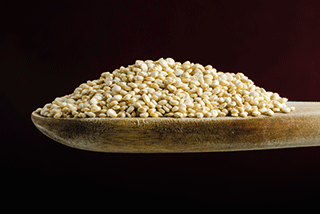
Is it coeliac disease?
The charity Coeliac UK is launching an awareness campaign called “Is it coeliac disease?” which takes place from 9 to 15 May in a bid to highlight the range of symptoms associated with this autoimmune condition. One in 100 people in the UK suffer with the disease, whereby the body’s immune system damages the lining of the small bowel when gluten, a protein found in wheat, barley and rye, is eaten.
There is no cure and no medication; the only treatment is a strict gluten-free diet for life. Key symptoms include: frequent bouts of diarrhoea, stomach pain and cramping, regular mouth ulcers, on-going fatigue, lots of gas and bloating, nausea and vomiting, and unexplained anaemia. Earlier this year the charity launched an online assessment whereby participants answer a series of questions then receive an email indicating whether their symptoms are potentially linked to coeliac disease.
For more details visit www.isitcoeliacdisease.org.uk
Jessica is our fitspiration!
Olympic heptathlon champion Jessica Ennis-Hill has been voted the number one most inspirational female celebrity in a poll of British women.
The research, carried out by natural sports nutrition company, PhD woman, also found that six in 10 women are now cutting out junk food and eating more clean, natural food to make them feel as good as they can about themselves. To mark the launch of its new Natural Protein powder, the company interviewed 1,000 women aged between 18 and 45 about their health and fitness habits.
The results also found that six in 10 women say that feeling fit helps them feel good about themselves – placing it above their relationships and career when it comes to making them feel happy. What’s more, the rise in clean eating means that for four in 10 women, natural produce is at the top of their shopping lists, above low fat and low calorie foods.

A nation of insomniacs
The UK public is sleep-deprived to such an extent that we are losing an entire night’s sleep over the course of a week, according to research from the Royal Society for Public Health (RSPH).
A poll of 2,000 UK adults revealed that on average we sleep for 6.8 hours a night, which falls short of the average 7.7 hours people feel they need. More than half (54 per cent) of respondents said they felt stressed as a result of poor sleep and almost four in 10 (37 per cent) have fallen asleep on public transport.
Martina Della Vedova, a nutritionist with Nature's Plus UK (www.naturesplus.co.uk), suggests supplementing with the mineral magnesium to improve your sleep quality. “It has been scientifically proven that magnesium helps us to not only initially get to sleep, but to stay asleep,” she says. “This is due to magnesium improving the hormonal and neurotransmitters’ balance in the brain.”

Camping out for nature
The RSPB is calling upon adults and children to spend a night under the stars as part of its annual Big Wild Sleepout. Taking place from 29 to 31 July, the idea behind the campaign is for families to sleep out in their own gardens or outdoor spaces to get close to nature and discover which creatures they share their homes with.
Organised events will also be taking place at RSPB nature reserves across the country as well as partner sites, with activities including stargazing, bushcraft, fireside cooking and stories round the campfire. Those taking part can choose to donate money to the charity. The Big Wild Sleepout is part of the RSPB’s ‘Giving Nature a Home’ campaign, aimed at tackling the housing crisis facing the UK’s threatened wildlife.
Sign up for a Big Wild Sleepout pack and register to take part at www.rspb.org.uk/sleepout.
Our survey says!
A survey of London commuters has revealed that those who take the Northern line are less likely to experience health problems such as back ache, gastrological issues and colds. The poll, carried out by HCA at The Shard, a new outpatient and diagnostics centre, surveyed 1,000 of the capital’s commuters to find out their key health issues. The findings also revealed that just 16 per cent of Circle line commuters managed to avoid back pain during the past 12 months while only 10 per cent of Bakerloo line travellers had not suffered a cold in the past 12 months. The majority of Central line commuters admitted to only exercising twice a week and eating just two portions of fruit and vegetables per day.

Eco retreat
Situated on the shores of Lake Garda, Lefay Resort & SPA Lago di Garda is an eco-friendly health retreat which values the connection between personal and environmental wellness.
From the local natural materials used in the eco-designed architecture, to the use of renewable alternative energies, Lefay actively promotes eco-sustainability.
Activities at the resort include personal training, Pilates, Tai Qi, yoga and fitball.
For more information visit www.healthandfitnesstravel.com

5 apps to improve your health
We take a look at some of our favourite health and wellbeing apps.
Remente
(www.remente.com)
The Remente app combines psychology with brain training, to help its users reach their goals and lead a healthier, happier lifestyle. You can track your mood and personal progress, as well as read insightful articles. Free to download; premium version available.
Lifesum
(www.lifesum.com)
Whether your goal is to lose weight, build muscle, or just be healthier, Lifesum shows how changing your small, everyday habits can transform your life. Users can track calories, log their meals, set goals and even monitor their water intake. Free to download; gold membership available for a fee.
Yoga Studio
(yogastudioapp.com)
This handy app boasts up to 65 different yoga and meditation classes ranging from 10 minutes long to an hour. Each comes with instructive videos. Create your own classes, monitor your progress and schedule reminders for your workouts. Download fee is £3.99.
Acast
(www.acast.com)
The Acast podcasting platform plays host to numerous podcasts dedicated to mindfulness, wellbeing and inducing a feeling of calm. The Radio Headspace podcast includes step-by-step instructions, guiding you through daily meditations. Free to download.
Buddhify
(buddhify.com)
Whether you are travelling to work, at home, getting to sleep or taking a walk, this app has over 80 meditations perfect for any situation, helping you find a calm haven amidst bustling activity. Download fee is £3.99 on iOS and £1.99 for Android.

Celebrating vegetarianism
Suma is pleased to be supporting the Vegetarian Society’s National Vegetarian Week again this year, from 16 to 22 May (www.vegsoc.org).
The annual event celebrates the vegetarian lifestyle and showcases some amazing, tasty vegetarian foods which can help when people are thinking about making the switch to a meat-free lifestyle. Animal welfare, health benefits and environmental concerns are some of the many reasons people choose to follow a vegetarian diet.
The campaign is a great opportunity to find out more about vegetarianism, and if you are wondering where you can find a huge selection of veggie alternatives then check out Suma’s website: www.sumawholesale.coop, or call 01422 313845 for your nearest stockist.

5 ways to make your home more eco-friendly
A leader in smart homes, Loxone (www.loxone.com) believes that making your home ‘smart’ can play a key role in reducing your carbon footprint and living an ‘eco’ life. With Loxone in your home you can control lighting, heating, security, audio and blinds. Below are Loxone’s top five tips for how you can make your home eco-friendly using technology.
1. Zoned heating
Add ‘zoned heating’ so you can choose which room you would like to heat and when. You can set separate ‘comfort’ temperatures for each room at specific times and dates – all from a mobile app that can be used in the home and remotely! This means you won’t be wasting energy by heating your entire house for longer than you need to.
2. Smart lighting
Controlling the lighting of a home with smart technology means that if you leave the house and accidentally leave any lights on you can easily switch them off, either through an app or a touch pad at the front of the house.
3. Solar panels
Installing solar panels will give you a completely renewable energy source and guarantee no harmful chemicals or gasses are released into the environment. You can even sell back the electricity you don’t use to the National Grid.
4. Automatic switch off
The average household wastes £50 to £80 leaving appliances on standby. Turn them off or, even better, use self-produced solar electricity to run your appliances, then at night all devices left on standby are automatically switched off.
5. Electricity consumption monitoring
Gas companies are now providing homes with a system to monitor the consumption of household electricity, something that smart home technology is taking to the next level by allowing you to monitor this on your mobile. Keeping track of what you use is a good way of putting your energy habits into perspective.

Keep Britain buzzing!
Our bees, pollinators and other wildlife are under threat, with numbers declining across the UK. There is strong evidence that this is a result of the use of neonicotinoids in farming, and that their use is also having an impact on other species such as birds, worms and aquatic insects. So what can we do?
Buy organic – We can make a stand against the use of these chemicals by supporting wildlife-friendly organic food and farming through our everyday shopping choices.
Encourage bees into your garden – Bees visit flowers to collect nectar and pollen. We can encourage them by planting clumps of bee-friendly flowering plants in sunny places, by not using pesticides in our gardens, and by providing nest sites such as bamboo canes or ready-made bumblebee nest boxes (available from garden centres).
Join the Soil Association – They are lobbying the EU to prevent the ban on neonicotinoids being overturned, and your support and membership fees can help them do this.
For more information visit www.soilassociation.org/keepbritainbuzzing
Victory for sugar tax campaigners
Chancellor of the Exchequer George Osborne has announced new tax and spending measures in the 2016 budget, including a two-part levy on soft drinks companies. One part of the mechanism will tax total sugar content above 5g per 100ml and the second will affect drinks with over 8g per 100ml, excluding pure fruit juice and milk. The government has pledged to use the £520 million raised through the tax for sports and extended school days.
Campaigners who have lobbied for this tax on sugary foods and drinks, including chef Jamie Oliver, have been celebrating this as a victory for healthy eating.
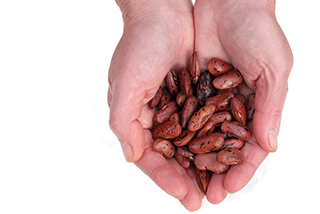
Top three perks of protein
We hear a lot about protein-rich foods, but many of us are unsure why we should be eating more of them. We asked some top nutritionists to explain the benefits of eating plenty of protein:
1. Shed those extra pounds
The one goal that many of us strive towards is that leaner, healthier, more athletic physique, and protein is often the favoured ingredient in many dietary regimes centred on this personal objective. “The reason it has such success and is continuously recommended by nutritionists, health trainers and other healthcare professionals is due to its effects on appetite control,” explains Shona Wilkinson, Head Nutritionist at the NutriCentre. “High protein diets have been shown to reduce the amount of excess calories we eat from snacking and from sugary foods, since it also helps balance our blood sugar.”
“Protein slows down the rate your stomach processes food and slows the passage of the carbohydrates with it. As soon as you add a protein (be it animal or vegetable) to a carbohydrate, you change it into a slower-releasing carbohydrate, which is a very good thing,” explains Dr Marilyn Glenville, author of The Natural Health Bible for Women.
2. Flash those pearly whites
To help get your smile reaching from ear to ear, make sure you’re eating enough protein.
“Proteins are broken down in the body to make amino acids and these are then used to make neurotransmitters, which are responsible for keeping our mind and mood balanced,” says Shona. “Try adding the likes of nuts, seeds, meat, fish, bean and lentils, whey protein and eggs to your diet.”
3. Exercise essential
After any type of exercise that stresses our muscles, we should try to include protein as a recovery agent. “You should try and eat protein after any exercise, from your weekly spin class to your regimented resistance training programme,” says Shona. “This is crucial so that we can repair our bodies in the fastest way and we can develop our muscles to become stronger, more efficient and more responsive during our training sessions. The need for protein after exercise is far more important than before exercise. Before we exercise the requirement for protein is not there since we are not stressing our bodies and it does not need to be consciously consumed in the belief it will help you become stronger during your session, or help you recover. We need to ingest protein after exercise as this is where we have damaged our muscle fibres through our hard training efforts, and the cells in the muscle itself are far more responsive to taking on board protein to start the repair and adaptation process.”

Want a green pet?
We’re not suggesting you buy a lizard, or a tropical parakeet. But there are ways to ensure that your pet isn’t a drain on your eco lifestyle:
Use a poo bag
Scooping up your dog’s waste in biodegradable poo bags will mean it’s not sitting in a plastic bag in a landfill for hundreds of years. Also, don’t use clumping clay cat litter; it contains fairly toxic chemicals including silica dust and sodium bentonite. Opt for an eco-friendly variety instead.
Adopt from a rescue home
Some pet breeders are guilty of overbreeding, inbreeding, poor food and living conditions and culling of unwanted animals. You can avoid this by getting a pet from a trusted source or from a rescue centre.
Use natural, organic pet food
Most conventional pet food brands consist of reconstituted animal by-products from unsustainable sources. Natural and organic varieties use meats raised in humane ways without added drugs or hormones.

Supermarkets commit to cutting food waste
Britain’s major supermarkets are backing a voluntary agreement produced by the Waste and Resources Action Programme (WRAP).
The charity estimates that the agreement, called the Courtauld Commitment 2025, will save the UK economy around £20 billion and put the country on track to meet the UN’s sustainable Development Goal to halve food waste by retailers and consumers by 2030.
The plan has also been backed by local authorities and major brands such as Coca Cola. It aims to reduce food and drink waste by 20 per cent over the next 10 years. The agreement also hopes to reduce water use in the food and drink industry’s supply chains, and cut greenhouse gas emissions created by the food industry by 20 per cent.

Going organic is good for your health
New research from Newcastle University has found that organic meat contains around 50 per cent more omega-3 fatty acids than non-organic, as well as having several other slight nutritional advantages.
Professor Carlo Liefert explained: “Several of these differences stem from organic livestock production and are brought about by differences in production intensity, with outdoor-reared, grass-fed animals producing milk and meat that is consistently higher in desirable fatty acids such as the omega-3s, and lower in fatty acids that can promote heart disease and other chronic diseases.”
Speaking about the research, Helen Browning, chief executive of the Soil Association, said: “This research confirms what many people have always thought was true – what you feed farm animals and how you treat them affects the quality of the food – whether it’s milk, cheese or a cut of meat. These scientists have shown that all the hard work organic farmers put into caring for their animals pays off in the quality of the food they produce – giving real value for money.”

Microbeads update
At Your Healthy Living we’ve previously covered the scandal of microbeads, which are used in many facial washes, shower gels and toothpastes, and the terrible toll they are taking on our planet’s oceans.
The tiny beads of plastic form what has been described as ‘plastic soup’ and are a threat to organic sea life, as well as absorbing pollutants. The good news is that the world is finally waking up to this issue; in the US, the House of Representatives has approved a bill to prohibit the manufacture and sale of products containing microbeads, and there are campaigns underway to achieve similar changes in the law in the UK and the rest of Europe.
Cosmetics Europe says it is recommending its members discontinue the use of microbeads from 2020. Natural beauty and skincare products don’t contain plastic microbeads. Instead they use alternatives such as apricot kernels or fruit seeds to achieve the grainy texture and exfoliating effect.

Sleep solutions
March is National Bed Month, so follow our tips to guarantee a good night’s sleep!
1. Have a bath or shower: Sleep expert James Wilson says: “A great way to help your body start its melatonin production is to take a bath or shower. Melatonin is a hormone made naturally by our bodies which helps create the urge to fall asleep and is key in regulating your body’s internal clock. The fall in body temperature we experience when we get out of the bath or shower is a signal to the body to start producing melatonin. You can supercharge this process by adding BetterYou Goodnight Spray after your bath or shower. Magnesium helps the body relax by ensuring the GABA receptors in our brain and nervous system are working as efficiently as possible. GABA receptors help the brain switch off and without it our brains would continue to race.”
2. Don’t eat late at night: It’s recently been reported that fasting for 12 hours during the night is an effective way of sleeping better and losing weight. One reason for this is that melatonin, which is released by the pineal gland in hours of darkness, is broken down by sugar; hence why it’s important not to eat too close to bedtime! It is also broken down by alcohol, which is why having a few drinks can often leave you tossing and turning at night.
3. Wind down: James Wilson says: “The hour and a half before you go to bed should be seen as a ‘golden time’ to ensure that you get the sleep you need. Make sure you turn off all your devices that emit blue light, such as your phone, tablet or e-reader. The blue light tells your brain that it is still daytime and inhibits the production of melatonin.”
4. Damage limitation: If you do have a bad night’s sleep, it can have an effect on how you feel the next day. So how can you stop the cycle? Clare Daley, in-house nutritionist at Nature’s Own, says: “The National Sleep Foundation links persistent lack of sleep to a number of health conditions including an increased risk of heart disease and obesity. Have you noticed that you are hungrier and crave carbohydrates after a poor night’s sleep? This is because lack of sleep disrupts normal levels of our hunger hormones. We may then snack on sugary foods during the day thinking they will help boost our energy levels – ironically this is likely to lead to poorer quality sleep and frequent waking due to blood sugar imbalances. If you have had a poor night’s sleep choose a high protein breakfast, and if you need a snack choose nuts rather than sugary foods.”

Visit a bluebell wood this spring
Visiting a bluebell wood is one of the UK’s great seasonal highlights, but it can be tricky to work out when the best time is, as bluebells blossom at different times each year depending on a range of factors including temperature and hours of sunlight.
The Woodland Trust has a Nature Calendar on its website where you can track the blossoming of these beautiful flowers – along with other natural events – to ensure you don’t miss it.
Visit www.naturescalendar.org.uk to get started.
The trust also has a hotlist of the best places in the UK to see bluebells, at www.woodlandtrust.org.uk.
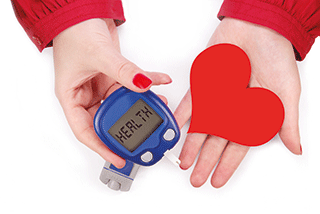
High blood sugar could lead to heart complications
Foods high in sugar could affect the heart’s recovery from a heart attack, according to a study at the University of Leicester. Scientists demonstrated for the first time the mechanism by which the level of sugar in your blood can affect the contraction of blood vessels, with potentially dangerous effects on the heart and blood pressure.
Dr Richard Rainbow, lecturer in Cardiovascular Cell Physiology, said: “We have shown that the amount of sugar, or glucose, in the blood changes the behaviour of blood vessels, making them contract more than normal. This could result in higher blood pressure, or could reduce the amount of blood that flows through vital organs.”
The research comes as MPs and health experts debate proposals for a ‘sugar tax’ and highlights the potential health risks of consuming large amounts of rich, sugary foods regularly in your diet. With healthy eating among the most common New Year’s resolutions, it adds another incentive to reduce our intake of these foods all year round.

Fair-trade fortnight 2016
This year’s Fairtrade Fortnight takes place between 29 February and 13 March. The event will feature a Big Fairtrade Breakfast to inspire the UK public to sit down for breakfast in support of the farmers who grow the food we have every morning, such as coffee, tea, cocoa and bananas.
Despite millions of farmers and workers in developing countries working hard every day to grow the food we eat, many don’t earn enough to know where their next meal is coming from. One in nine people go to bed hungry each night (795 million people), and half of the world’s hungry people are estimated to live on small farms.
Shoppers in the West can change this by harnessing the power of a Fairtrade breakfast – so that farmers and workers behind our products can feel secure, knowing they can feed their families, all year round.
Nilufar Verjee, Public Engagement Director for the Fairtrade Foundation, said: “This Fairtrade Fortnight, make your breakfast count with Fairtrade – use the power of your shopping to help ensure food security for the world’s most vulnerable farmers and workers.” Campaigners up and down the country will hold hundreds of breakfast events as part of Fairtrade Fortnight 2016 and the #YouEatTheyEat hashtag will be used to spread the word on social media.
For more information, visit www.fairtrade.org.uk/breakfast
Vitamin D enhances elderly mobility
Research has suggested that taking vitamin D supplements makes the elderly feel more active. The findings, carried out by University Hospital Zurich in Switzerland, mirror the UK Department of Health guidelines, which deem those over the age of 65 as an ‘at risk group’ for vitamin D deficiency, and recommend regular supplementation. Diseases related to vitamin D deficiency, including Multiple Sclerosis, Type 2 Diabetes, bone diseases such as osteoporosis and a growing number of internal cancers, are believed to cost the UK taxpayer £29 billion annually – more than a quarter of the NHS budget.
BetterYou make a simple, affordable and accurate home-testing kit so that everyone can take control of their own vitamin D requirements. Testing is carried out by City Assays, part of Sandwell and West Birmingham NHS Trust, who use liquid chromatography mass spectrometry to measure the vitamin D level in the blood. A clear interpretation of the vitamin D level is then sent to the customer.
Andrew Thomas, founder and managing director of BetterYou, said: “The estimations as to how many of us are deficient are growing daily. In the 900 tests we’ve carried out with the NHS we found 75 per cent of subjects to have insufficient levels, some severely so.”
For more information about the home-testing kit visit www.betteryou.com
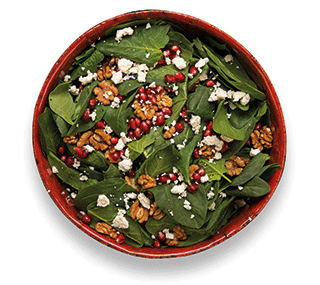
Meat-free motivation
If you’re considering going veggie but need an extra push, why not sign up to Animal Aid’s Big Veg Pledge this March?
Pledge to give meat the elbow for a month and you’ll get free recipes to see you through the month, nutrition advice, shopping tips, an agony aunt service, access to a chat forum and much more besides.
Visit www.animalaid.org.uk for more info or to sign up. And if you need veggie inspiration, you could join a vegetarian cookery course at Demuth’s Cookery School in Bath, run by veggie chef Rachel Demuth.
For more information visit www.demuths.co.uk

Be sugar smart
Public Health England has launched an app which works by scanning barcodes and revealing the total amount of sugar in cubes or grams. Officials hope that the Sugar Smart app will help combat tooth decay, obesity and type two diabetes and encourage families to choose healthier alternatives.
PHE says young children are eating three times more than the sugar limit and suggests that, on average, children aged four to 10 years old are consuming 22kg of added sugar a year. That's about 5,500 sugar cubes – more than the weight of an average five-year-old child.
The app has been developed to raise awareness of how much sugar is contained in everyday food and drink. It works on more than 75,000 products, offering a quick guide to help parents to assess potential purchases that may harm their children's health.
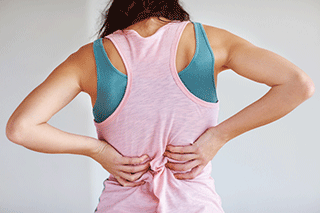
Make looking after your back your New Year’s resolution
Instead of joining the gym or starting the 5:2 diet this January, why not perfect your posture instead? You could find that you not only look slimmer and more youthful, you’ll feel better too.
That’s the advice from Chiropractors of the Year, Arif Soomro and Melanie Cutting, who are also the founders of Cliffs Chiropractic Clinic in Westcliff-on-Sea, Essex.
“We know that most New Year resolutions rarely last more than a week or two,” say Arif and Melanie, “but with so many of us spending hours at a time hunched over our computers or mobile phones, we’d like to suggest a New Year’s resolution with a difference: ‘Don’t look down.’
No, this has nothing to do with scaling the heights or overcoming vertigo; it’s an antidote to our sedentary lifestyles.
Sitting down for hours at a time, at work or home, then whiling away our leisure time on social media, has resulted in many of us developing posture problems that only used to affect the elderly. We’re stooping and slouching more often and this is putting undue pressure on our spines, which can lead to early wear-and-tear and spinal degeneration. The good news is that we can do something about it and it’s never too early to start.
They continue: “If you work in an office, and you’re desk bound, you need to adopt the correct posture to maintain the normal curves in your back, lessen compression in your spine and maintain a good open posture so you don’t compress your ribs or the bowel that affects your digestion, and you don’t restrict your breathing. When you’re walking, try adopting the stance of walking tall and pinching your shoulder blades together whilst looking ahead and not down at your feet – that way you’ll prevent stooping from getting worse. The added benefit is that holding yourself better gives you more energy, plus it takes years off how you feel and how you look!”
For more information on Cliffs Chiropractic Clinic, www.cliffschiropractorsouthend.co.uk
2016: the year of the Flexitarian
Flexitarianism is set be the next mega food trend over the coming year with sales of vegetarian foods in the UK predicted to grow by 10 per cent in 2016, and 35 per cent of Brits choosing to call themselves flexitarians.
However, it’s hardly surprising with meat now part of fewer meals – one in six Brits now claim they are eating more non-animal sources of protein. Flexitarianism is defined as a semi-vegetarian diet that’s plant-based with the occasional inclusion of animal products.
But why is this lifestyle trend on the rise? Mintel’s research reveals that almost half of Brits see meat-free products as environmentally-friendly and 52 per cent see them as healthy.

Shake up your make-up with the benecos lipstick amnesty
benecos, a range of certified natural and organic cosmetics, skincare and brushes, is introducing a ‘Lipstick Amnesty’ throughout January 2016 allowing customers to trade in their ‘conventional’ lipsticks to receive 50 per cent off a benecos natural lipstick of their choice.
The award-winning lipsticks are infused with organic jojoba and sunflower oil to ensure that your lips are cared for and are hydrated throughout the day.
To find your local participating store head over to www.benecos.uk
A good night’s sleep is a dream for many
According to the findings of a new study, the average Briton sleeps for an average of six and a half hours each night, with the majority of respondents admitting they don’t get enough sleep.
Londoners emerged as the UK’s earliest risers, typically waking at 5.30am, with North Easterners the biggest night owls, staying up until 12.30am. The average British adult goes to bed at 10.30pm each night, rises at 6.45am and wakes up twice during the night, according to new research by Web-Blinds.com.
When asked if they ever struggle to sleep after going to bed, 62 per cent of respondents confessed this happens to them at least once a week, with 16 per cent saying they struggle to sleep every night.
Kirsty Martin, spokesperson for Web-Blinds.com, said: “It looks like the widely accepted ideal of getting eight hours’ sleep a night is just a dream for most people. More than a third of those polled in the study blame worry and stress as the main reason behind their difficulty to sleep at night. Of course, the issue can easily snowball as having trouble sleeping can in turn cause an increase in worry and stress.”

Active women may have an iron deficiency
A study published in Network Health Dietitians found that 35 per cent of female athletes had low ferritin levels (this is an intracellular protein that stores iron and releases it in a controlled fashion). Low levels of this protein can leave an individual vulnerable to anaemia.
The study also showed that 60 per cent were found to have depleted iron levels.
Dr Carrie Ruxton, author of the study and member of the Meat Advisory Panel, said: “Our research suggests that lack of iron is probably undermining the performance and potential of thousands of everyday exercise enthusiasts. At a minimum, athletes should ensure their diets contain at least the reference nutrient intake for iron. The simplest way to achieve this is to eat red meat, as the haem iron in meat is more available to the body and readily absorbed compared with non-haem iron from fortified foods and plant foods.”

Are you sick of cuddling your pet?
It’s what many of us look forward to after a long day at work – cuddling our pet. Snuggling up with our furry friends can have a beneficial effect, including lowering our blood pressure and even helping to prevent heart disease. But for some this close contact can also cause unpleasant allergic symptoms, known as pet allergies.
Airborne allergens expert, Max Wiseberg, provides some useful information and tips to help:
- Pet allergy is an allergic reaction to tiny particles shed by your pet which become airborne (known as ‘dander’). Cat owners generally get more grief than dog owners as cats groom more often and their dander is smaller, becoming airborne more easily and for longer. And if you get a pet such as a cat as an adult, for the first time, this can really spell trouble. This is because people who have had a cat in childhood have a much smaller risk of becoming sensitised to it than those who are new cat owners.
- Keep pets off sofas and beds, and out of the bedroom altogether if possible, to reduce exposure. Wash your dog or cat’s bedding and basket regularly. And wash and groom pets regularly too; according to leading UK allergy charity, Allergy UK, bathing a cat once or twice a week can reduce cat allergens in the home by 90 per cent.
- Dust surfaces with a damp cloth, and vacuum regularly, to minimise the amount of allergens in the house and keep cuddly toys and blankets in a cupboard to prevent the build-up of pet dander on them.
- Using an allergen barrier balm such as HayMax can reduce the amount of allergen entering the body through the nose.
Stress playing havoc with Britain's fertilty
Recent statistics have revealed that up to half a million people in the UK have work-related stress, often resulting in illness. It is widely considered to be one of the main causes of ‘unexplained’ infertility.
With one in six couples in the UK experiencing fertility difficulties, stress needs to be taken seriously urges Dr Geetha Venkat, director of Harley Street Fertility Clinic. “Stress seriously hampers ovulation and no amount of sperm will make a difference if the woman’s body hasn't released an egg waiting to be fertilised,” she says.
Stress has also been shown to significantly lower semen quality. A recent study by The American Society for Reproductive Medicine found that men who experienced two or more stressful life events in the past year had a lower percentage of sperm motility and a lower percentage of sperm of normal morphology, compared with men who did not experience any stressful life events.
Dr Venkat urges couples who are suffering with stress to find the root cause of the problem and adopt personalised strategies to help tackle the issue such as exercising, meditation and enjoying hobbies. Stress can have a domino effect by causing people to turn to unhealthy lifestyle habits such as drinking, smoking and eating poorly which goes on to make matters worse. Adopting regular exercise and a healthy diet can have a significant impact on your general health and emotional wellbeing.

Hydration and hangovers
Christmas is prime time for overindulgence and, as a result, prime time for hangovers. Although the symptoms of hangovers such as headaches, nausea and tiredness are well known, the causes are not. In the past, dehydration was thought to be the main cause of hangover symptoms. Scientists now also believe that alcohol withdrawal and chemicals formed in the body when our liver breaks down alcohol contribute to those unpleasant symptoms.
Professor Tom Sanders, Professor emeritus of Nutrition and Dietetics, King’s College London and advisor to the Natural Hydration Council offers these tips to get through the party season unscathed:
1. Don’t drink alcohol when you feel thirsty! Quench your thirst with a refreshing glass of water.
2. If you’re hosting a party, provide plenty of healthy and interesting soft drink options for guests; to encourage your guests to drink water include ice cubes with festive berries frozen inside.
3. Avoid drinking from large wine glasses as this may lead you to underestimate how much alcohol you have consumed.
4. Try to alternate any alcoholic drinks with a glass of water and keep a bottle or glass of water by your bedside during the night to drink whenever you feel thirsty.
5. The darker the alcohol, the more likely it is to cause a hangover. This is because of the phenolic antioxidant compounds found in darker alcoholic liquids, which are thought to cause dilation of blood vessels in the brain. Swapping red wine for white and brandy for vodka can help reduce hangover symptoms.
6. Excess alcohol intake causes dehydration, which can result in headaches the next day, which are also caused by acute increases of blood pressure following the withdrawal of alcohol. Drinking plenty of water is the best remedy.
7. A glass of orange juice in the morning can pick up blood sugar levels, which are often low after excess alcohol.
8. Avoid eating greasy foods such as fry ups in the morning as these can make you feel worse. Instead, opt for carbohydrate-rich foods such as breakfast cereals or toast and marmalade and continue to drink water throughout the day.
Whole grains of great benefit to health
A new review of 49 previous studies has revealed that higher intakes of whole grain and dietary fibre were associated with a significantly lower risk of cardiovascular disease, diabetes, abdominal obesity and certain cancers. The review, by Dr Carrie Ruxton and Dr Emma Derbyshire, found in particular that three or more portions of whole grain cereals daily is associated with a 20 to 30 per cent reduced risk of cardiovascular diseases.
Unfortunately, the UK has no whole grain recommendation, which leads to a lack of understanding of the benefits among the public and also among health professionals.

Will you keep your New Year’s resolution?
New Year's resolutions date back to Babylonian and Roman times.
At the beginning of the year, the Babylonians pledged to their gods that they would pay their debts whilst the Romans made promises to the god Janus, who the month of January is named after. In a study by Richard Wiseman from the University of Bristol on 3,000 people, 88 per cent of those who set New Year resolutions failed despite 52 per cent being confident of success at the beginning. Women succeeded 10 per cent more when they shared their resolution with others and got support from their friends.
One third of Britons name losing weight as their most common New Year’s resolution. An International Journal of Obesity study has found that chillies and green tea (the active ingredients in Chilliburner food supplement) have been proposed as strategies for weight loss and weight maintenance as they may have a threefold effect by increasing energy expenditure and the feeling of fullness that helps control food cravings. They may even counteract the decrease in metabolic rate that often occurs during weight loss. The same study reported that green tea may help prevent weight regain.
Chilliburner tablets are 100 per cent natural, gluten-free, lactose-free, GMO-free and suitable for vegetarians.
Step away from the sugar
Sugar is often reported as one of the substances we need to limit if we are to live healthier lives and reduce our risk of disease. One in three of us has high blood sugar and hidden sugars are found in many of the foods and drinks we consume. Nutritionist and Pharma Nord expert Babi Chana offers some tips to help us control our sugar intake and feel re-energised.
- Hidden sugars are found in many of the foods we eat so it's time to start looking at labels. The NHS considers any food item with a total sugar content over 22.5g per 100g to be high in sugar.
- If you have a sweet tooth, and crave sugar between meals, consider small nutritional changes like starting the day with porridge oats, natural yogurt (topped with nuts or seeds) or wholegrain toast with some eggs. Whole grains help us to feel more energised and fuller for longer.
- High blood sugar has been linked to chromium deficiency. Supplements that combine this important trace mineral with maqui berry extract can regulate blood sugar and help the body's cells to use glucose more efficiently. This reduces the urge to snack and the sugar highs and lows that can leave us feeling tired and drained.
Gluco Control from Pharma Nord is a double-action supplement which helps our bodies to process sugars more efficiently, meaning fewer cravings and energy dips throughout the day. For more information visit www.pharmanord.co.uk

Plastic bags: where is your 5p going?
The plastic bag charge, which was introduced in Wales in 2011, Northern Ireland in 2013 and Scotland in 2014, came into effect in England in October this year. One of the questions that’s been raised by the charge is where the extra money is going to go.
Tesco, which is expected to raise up to £30 million, has elected to donate the money to environmental improvement projects, and in Scotland and Wales has so far used the tax to support Keep Wales Tidy, Keep Scotland Beautiful and the RSPB.
Customers in England will be asked to vote for charities that the supermarket should support.
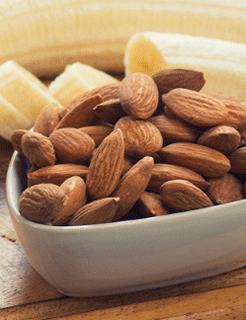
Almonds and men's health
Recent studies have shown that almonds are a booster for male fertility, and it's recommended that men eat two handfuls a day to notice the benefits. But do you know why?
Here are the top reasons why men should be eating more almonds:
1. Almonds contain high levels of D-aspartic acid. The 2011 Testosterone Booster Recommendation Report, found that subjects who had taken D-aspartic acid found their testosterone levels increase by 42% 1
2. D-aspartic acid is also helpful for men doing heavy resistance based training and is sometimes used by athletes to support their performance
3. A handful of almonds supplies around 28% of the daily magnesium recommended for a woman and around a quarter of the recommendation for a man, which helps improve the flow of blood, oxygen and nutrients around the body
4. Almonds contain half the fat of peanuts and cashews
5. A study has also showed improvement in erectile dysfunction among men given 5 grams of L-Arginine per day, which can be found in almonds 2
6. Furthermore, almonds are also an incredible source of minerals such as manganese, potassium, calcium, iron, magnesium, zinc, and selenium
For more information, visit www.bluediamondalmonds.co.uk
References:
1.
www.academia.edu/1603035/Testosterone_Booster_Recommendation_Report
2.
www.ncbi.nlm.nih.gov/pubmed/15005641

Feeling the strain of a long-haul flight?
Gatwick Airport has opened up a yoga room to help passengers stretch out in preparation for sitting for a long period in the same position on long flights.
Yoga expert and personal trainer Shona Vertue has developed a bespoke ‘floga’ routine too – a unique 20-minute pre-flight yoga class designed to help combat the body stress that can come with a long flight.
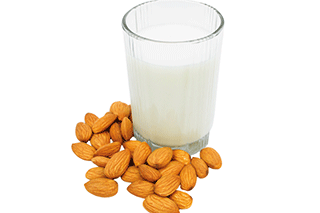
Milk it
Research has shown that the composition of milk, with its balance of protein, carbohydrates, minerals and water, is a perfect post-workout drink, with benefits that far outweigh those of so-called ‘fitness drinks’.
But what if you’re lactose intolerant? The good news is that almond milk will be helpful if your main aim is weight loss, as it contains fewer calories than cows’ milk. But, if adding muscle is what you’re trying to do, you can boost the power of your almond milk by making it into a smoothie with banana, protein powder and flax seeds.
You can even add peanut butter for an added calorie and protein boost.

Unborn babies’ brains need fats from fish oil
A study from the University of California, published in the Journal of Neuroscience, has identified how a deficiency of DHA (docosahexaenoic acid) can cause molecular changes in the developing brain.
The researchers looked at African claw frogs, whose embryos are translucent and develop outside the mother. This enabled them to see how developing brain tissue which did not have enough DHA had poorly developed neurons and limited numbers of synapses, which are the paths through which brain cells communicate with each other.
They could also see that when the diets of the mother frogs were improved with added DHA, the neurons and synapses flourished and returned to normal in the following generation of tadpoles.
Read our feature article on Essential Fatty Acids here
A handful of prunes a day could help prevent fractures
A scientific study from Florida State University has found that beyond the well-documented positive effect of prunes on digestive wellbeing, there could also be a link to bone health. The findings indicate that a simple daily helping of around 8-12 California prunes could help maintain healthy bones and may even contribute to maximising bone potential.
Bone health specialist Dr Bahram Arjmandi said: “I have tested numerous fruits including figs, dates, strawberries and raisins, and none of them come anywhere close to having the effect on bone density as prunes.”

Know a keen junior cook?
Backed by BBC 1’s Celebrity Masterchef finalists, Andi Peters and Liz McClarnon, the RSPCA’s Junior Compassionate Cook competition aims to help children make the connection between the food they eat and the animals that produce it, in a fun and engaging way.
Andi Peters, one of the judges, says: “I’m passionate about food and showing kids how much fun it is to cook is a great way of giving them important skills for life.”
To find out more about the competition, including how to enter, visit www.rspcaassured.org.uk. Entries close on 20 January 2016, and judging takes place on 4 March 2016.
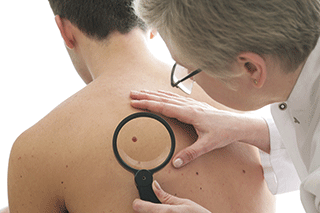
Vitamin B3 may lower skin cancer risk
Australian researchers have discovered that an active form of vitamin B3 may lower the risk of skin cancer in certain high risk patients.
Scientists from the University of Sydney found that a high dose of the vitamin B derivative nicotinamide can prevent up to 25 per cent of non-melanoma skin cancers.
The 12-month clinical trial involved over 380 participants who had all had two or more non-melanoma skin cancers over the past five years. Half of the group were given a high dose of nicotinamide while the other half were given placebos. All were given regular skin checks and at the end of the trial period the nicotinamide group were found to have 25 per cent fewer skin cancers than the placebo group.
The results of the study were published in the New England Journal of Medicine.
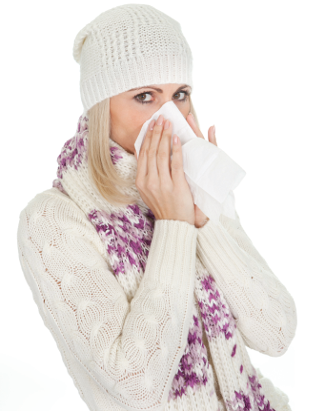
Allergy symptoms can worsen in autumn
The arrival of cooler autumn weather and darker evenings means we tend to start to spend much more time indoors – resulting in greater exposure to house dust allergens. And with symptoms similar to the common cold, many people don’t treat the symptoms properly. “The symptoms of indoor allergies caused by dust can be very similar to cold-like symptoms,” explains allergens expert Max Wiseberg, “such as a runny nose, sneezing, coughing and sinus pain. In fact, many people think they have a caught a cold. In reality, their symptoms are the result of spending more time indoors amongst dust allergens. All homes in the UK have dust mites, and due to their tiny size (around ¼ mm) and translucent bodies, they are almost invisible to the naked eye.”
Try these tips to avoid symptoms:
- Use allergy-friendly mattress covers and bedding – Allergy UK has a good range.
- Vacuum under beds daily, and try not to keep lots of things under beds as these will collect lots of house dust mite allergens. And vacuum mattresses and pillows regularly.
- Dust with a damp cloth and get to all those easily forgotten places like the tops of picture frames and door frames.
- Avoid drying clothes inside over a radiator – this increases the humidity in your home and can result in mould, which releases tiny spores into the air that you breathe.
- An allergen barrier balm like HayMax can be used to help trap the allergens before they enter the body, reducing or helping to prevent symptoms. Applying the balm around the nostrils and/or the bones of the eyes can help reduce or prevent the symptoms of dust allergy.

Stand, don’t sit!
Did you know that too much sitting can be bad for you? A study earlier this year in the American Journal of Preventive Medicine found that people who spent the most time sitting (11 hours or more a day) had a 27 per cent higher chance of dying of heart disease and a 21 per cent higher chance of cancer than those who sat for four hours or less each day.
Yet another good reason to get up and be more active!

Five fantastic fruity facts!
Fruit gets a bit of a bad rep these days – with everyone trying to cut down on sugar, a lot of people are reducing the amount of fruit in their diet. But fruit is an important part of your daily food intake for lots of reasons. Here are some fun fruit facts you probably didn’t know!
- Apples give you more energy than coffee. Due to their perfect combination of carbohydrates, vitamins and minerals, they are the perfect food for a mid-afternoon energy boost.
- Watermelons can keep you hydrated. They have thick skin and are 92 per cent water, making them the perfect food for picnics or for after exercise.
- The skin is the best bit! In many fruits, such as apples and cucumbers, the skin is packed with extra nutrients including fibre – so don’t peel!
- Bananas are a natural antacid - scientists are unsure why this is though. In addition, they can help with diarrhoea, as they contain pectin, a soluble fibre that absorbs fluid in the gut.
- Kiwi fruits contain twice as much vitamin C as oranges.
And finally – it may come as a shock to discover that one of Britain’s favourite fruits, the strawberry, isn’t a fruit at all! Technically, a fruit has its seeds on the inside, so the edible part of the strawberry is a ‘false fruit’ while the seeds are the real fruit!

Bag it up
From 5 October onwards, new government legislation means that you will be charged 5p for a plastic bag in all English retail outlets. And there are lots of reasons why this is a good idea:
- The move is intended to cut back on the estimated eight billion single-use carrier bags used across the UK every year. This works out at nearly 130 bags per person and is the equivalent of 57,000 tonnes of plastic waste.
- Plastic bags don’t just cause unnecessary litter and fill up landfill sites: they also consume resources, including the oil that is used in their production.
- In Wales, where a similar 5p charge has been in force for four years, stores have seen a 71 per cent fall in the number of bags used by shoppers.
- In Scotland, where the charge was introduced 12 months ago, the fall has been even bigger, at 80 per cent.
So don’t forget to take along your reusable shopping bags or baskets when you head to the shops this month – or it will cost you!
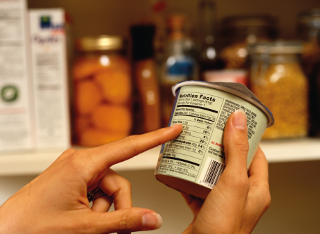
Sugar claims cause confusion
Consumer groups have raised concerns over confusing food labelling and the danger that this causes to shoppers. While there are guidelines about ‘nutritional information’ charts that are quite clear, other claims on labels can be misleading. The main culprit here is the claim of ‘no added sugar’. This can be used on foods such as fruit juices when no extra sugar has been added as an ingredient, but does not take into account the sugar that can already be naturally occurring in the product. For example a 330ml serving of orange juice can contain eight teaspoons of naturally-occurring sugar in the form of fructose.
One way of satisfying your sweet tooth can be to look for drinks with natural sweeteners such as Stur, which is made from real fruit and yet has zero sugar, as it is sweetened with natural stevia, and also has 80mg of vitamin C in every serving.

Let’s go outside!
It’s not long until the clocks change, making it much harder to fit in outdoor exercise before it gets dark. But it’s worth making the extra effort, as al fresco workouts have lots of added benefits:
- You’ll work harder. Research has shown that if you run outdoors, you expend more energy (and burn more calories) than if you run indoors. This is because of wind resistance, and the subtle changes in terrain that you experience even if you run on the pavement.
- You’ll use different muscles. If you’re cycling or running outdoors, you’re more likely to experience downhill stretches than if you were on a treadmill or exercise bike. This will help you to use a bigger range of muscles than you would if you were just exercising on the flat or on uphill stretches.
- You’ll exercise more often. Studies have shown that exercising outdoors is much more enjoyable than indoors, due to the variety of sights and sounds, the feel of being in the fresh air and the changing terrain. This means that those who exercise outdoors are more likely to come back for more, and stick to their routine than those who only work out in the gym.
- It can help with stress. All exercise can help us feel calmer and more relaxed, but studies have shown that people who exercised outdoors had lower levels of cortisol – a stress hormone – in their blood, which may be due to being in the sunlight, or just the feeling of freedom and escape.

Edible playgrounds sprouting across the UK
A partnership between charities Trees for Cities, School Food Matters and Chefs Adopt a School – with additional funding by the Postcode Lottery – has raised money to transform underused areas of school playgrounds into vibrant outdoor spaces that excite and teach children about growing and eating healthy food.
The group has developed more than 25 edible playgrounds across the UK, benefiting more than 10,000 students, and three new ones are currently being planned at Palmer Primary Academy in Reading, Baguley Hall Primary School in Manchester, with the third to be shared by Croydon’s Meridian High School and Fairchildes Primary School. The scheme aims to help tackle obesity, food poverty and lack of access to nature, as well as providing a platform for fun and engaging lessons that support the school curriculum.
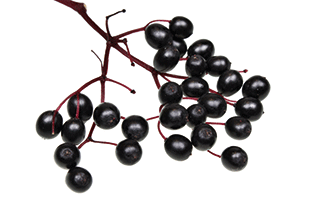
Coughs, cold and 'flu - studies show elderberry works
It's back to school time and with winter just round the corner, coughs colds and 'flu aren't far behind.
Having a safe, natural and non-pharmaceutical way to bolster kids' immunity is a bonus - schools are places where bacteria and viruses thrive.
Two key pieces of research examined the effects of elderberry on both 'flu viruses and bacteria. An in vitro study conducted in 2010, followed by a human study in July this year showed that elderberry is effective.
Dr Christian Kravitz and his team at the University of Geissen, Germany, tested the two major 'flu viruses, Influenza A and B, as well as on four bacteria known to cause upper respiratory infections. The authors concluded that "elderberry liquid extract is active against human pathogenic bacteria as wel as influenza viruses."
The dark red-black pigment of the berry comes from an abundance of anthocyanins which are powerful antioxidants. Elderberry is thought to deactivate the glycoprotein spikes (haemagglutinin) on the surface of viruses. This prevents the virus from attaching itself to the cell membrane and makes it impossible for the virus to enter the cell.
Elderberry research has also shown it to bolster immunity by increasing production of vital proteins (cytokines and chemokines) in immune cells. When our bodies go under attack one immune cell releases its cytokines and another immune cell receives them. This exchange enables a co-ordinated response against the oncoming illness.
Read our back to school health feature Term-time Health Tips here

8 things you didn't know about cherries!
British cherries are the ultimate rare treat - a plump, indulgent snack that offers a wealth of health benefits:
- They reduce inflammation: A powerful antioxidant, anthocyanins are found in pigment - and cherries are pigment-rich fruits. These compounds are crammed with anti-inflammatory, anti-viral and anti-cancer properties.
- They're a great source of fibre: About 10 cherries will provide the body with 1.4g of fibre, which is nearly 10 per cent of an adult's RDA.
- They support the health of your heart, because they are high in potassium, which regulates heart rate and blood pressure.
- They are packed full of antioxidants: Cherries are exceptionally rich in antioxidants such as lutein, zeaxanthin and beta carotene, which act as scavengers against free radicals that play a role in ageing, cancers and various diseases.
- They help us sleep: Cherries are a rich food source of melatonin, which promotes healthy circadian rhythm and sleep patterns.
- They're packed with multivitamins: One cup of cherries provides 10.8mg of vitamin C - 18 per cent of an adult's RDA - alongside beta carotene, vitamin A, vitamin B6 and vitamin K.
- They help reduce cholesterol: Phytosterols, also known as plant sterols, occur naturally in cherries. These help to reduce 'bad' cholesterol levels (LDL) to lower the risk of cancer, and stimulate the immune system.
- They increase bone health: Cherries contain boron which increases bone health, formation and recuperation and reduces bone inflammation.
One in six UK primary schools now serving sustainable fish
More than 500 schools have become Marine Stewardship Council (MSC) certified in the past year - an 18 per cent rise in the number of schools serving sustainably sourced fish. This is due to the new School Food Standards which were implemented in January this year.
Toby Middleton, regional Program Director at the MSC said: "We've seen a significant increase in schools serving MSC-certified fish and a renewed interest in oily fish. Under the School Food Standards, schools are required to serve oily fish every three weeks, and they recommend MSC-certified fish."

The OM Yoga Show is back!
Taking place at its new home of Alexandra Palace in London, the OM Yoga Show is an experience like no other.
It's a unique weekend that allows visitors to immerse themselves in a yogic paradise for three days. This year it takes place on 23, 24 and 25 October.
Register for your free show guide and get more information, including ticket prices, at www.omyogashow.com

Leading dietician comments on the good and bad of fats
Researchers at Canada's McMaster University have found no link between the amounts of saturated fat people ate in products such as butter, egg yolks and cow's milk and their risk of death from heart disease, stroke or type 2 diabetes. This is in contrast to guidelines published in 1983 advising Britons to cut their fat intake to 30 per cent a day.
Current UK health guidelines recommend that:
- The average man should eat no more than 30g of saturated fat a day
- The average woman should eat no more than 20g of saturated fat a day
Robyn Coetzee, specialist dietician at London Bridge Hospital explains: "Saturated fat is the kind of fat found in butter, pies, cakes and biscuits, sausages, bacon, cheese and cream. Although there is a debate around them, there are healthier alternatives for people, which they could consume. For example, lean cuts of meat and trim away any visible fat, and choose lower fat alternatives to whole milk, cheese and cream. You should also have a diet high in dark-fleshed or oily fish. Omega-3 fatty acids reduce your risk of heart disease by lowering the production of blood cholesterol and other blood fats, and help to prevent blood-clotting and reduce triglyceride levels".

Echinacea reduces risk of pneumonia
New research has shown that echinacea reduces the risk of pneumonia and other secondary complications following a cold or the flu, and reduces the likelihood of reinfection. The meta-analysis included six clinical trials with 2,458 participants, and found that 65 per cent of infections leading to pneumonia could be prevented by using echinacea, whilst reinfections were reduced by 58 per cent.
The study examined A.Vogel's latest product in its highly popular echinacea range, Echinaforce Hot Drink, which combines the well-researched immune-boosting benefits of fresh echinacea extract with black elderberry (Sambucus nigra), rich in vitamin C and antioxidants.
Dr Peter Fisher of the Royal London Hospital for Integrated Medicine, said: "Neuraminidase inhibitors such as Oseltamivir (Tamiflu) are the current 'gold standard' for flu treatment, but they have significant limitations and side effects.
"We found Echinaforce Hot Drink to be as effective as Oseltamivir, in terms of shortening the duration of flu and reducing complications. Despite different modes of action, both block the dissemination and development of the viruses. Echinaforce Hot Drink was associated with fewer side effects, particularly gastrointestinal, although the difference was borderline statistically significant."
Screening for diabetes
For people with diabetes, one of the most important annual health checks is retinal screening. Photographs are taken of the backs of the eyes with a non-contact retinal camera, which usually takes a matter of minutes once the patient’s eyes have been suitably dilated with eyedrops. The photographs are assessed by trained graders, using specialist software, and results are sent out within a fortnight.
Retinal screening establishes whether or not there are signs of diabetic retinopathy (damage to retinal blood vessels) and what further management each individual would benefit from – whether it’s further assessment by an eye unit, or nothing at all (except to attend screening again in a year).
Prior to the national roll-out of screening programmes, diabetic retinopathy was the leading cause of blindness amongst working-age adults in the UK. It is still a leading cause but is no longer the forerunner, thanks to the establishment and maintenance of successful screening.
Currently, 10 per cent of the NHS budget is being spent on diabetes and the majority of this spend is on the complications resulting from diabetes. The aim is to reduce that number by utilising the best safeguard for sight that we have – screening.
• For more information, visit www.uhs.nhs.uk/diabetic-eye-screening
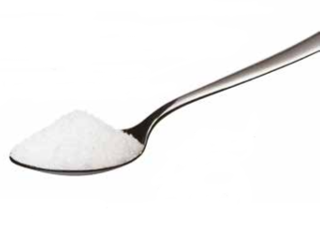
Experts recommend halving sugar in diet
An independent body of expert nutritionists has advised the government to halve the recommended intake of free sugars in a bid to address the rise of obesity and diabetes and cut the risk of tooth decay. The Scientific Advisory Committee on Nutrition (SACN) made the recommendations in its report, Carbohydrates and Health.
Free sugars are those added to food, for example sucrose (table sugar) and glucose, or those naturally present in honey, syrups and unsweetened fruit juices, but exclude lactose in milk and milk products.
SACN has recommended that free sugars account for no more than five per cent of daily energy intake. This is the equivalent of 19g or five sugar cubes for children aged four to six, 24g or six sugar cubes for children aged seven to 10 and 30g or seven sugar cubes for children aged 11 and over, based on average population diets.
SACN were asked by the Department of Health and the Food Standards Agency to examine the latest evidence on the links between consumption of carbohydrates, sugars, starch and fibre and a range of health outcomes – such as heart disease, type 2 diabetes, bowel health and tooth decay – to ensure the government’s position on consumption was up to date.
Professor Ian Macdonald, chair of the SACN Carbohydrates and Health working group, said: “The evidence is stark – too much sugar is harmful to health and we all need to cut back. The clear and consistent link between a high-sugar diet and conditions like obesity and type 2 diabetes is the wake-up call we need to rethink our diet.”
Link between prunes and healthy bones
Two studies presented at the International Symposium on Nutritional Aspects of Osteoporosis highlight the positive effects of prunes. Osteoporosis continues to be a growing health concern and according to the International Osteoporosis Foundation (IOF): one in three women and up to at least one in five men will break a bone in their lifetime due to osteoporosis.
Currently 22 million women and 5.5 million men are estimated to have osteoporosis in the EU; thus increasing their risk for broken bones, causing an estimated 3.5 million breaks a year. This new research presented in June this year suggests that a simple daily helping of California prunes could help support the maintenance of healthy bones and may even contribute to maximising bone mass potential.
“I’m thrilled to learn more about the research involving prunes and how they help support healthy bones. The more effective strategies for minimising bone loss we can share with the public, the better,” said ISNAO Symposium Director Connie Weaver, PhD, distinguished professor and nutrition sciences department head at Purdue University.
The new research, which supports the US National Osteoporosis Foundation’s (NOF) decision to include prunes on its “Good For Your Bones” food list, was conducted in the US and commissioned by the California Prune Board as part of its long-term commitment to nutritional research, which has already resulted in an EU health claim – recognising prunes as the only whole dried fruit to benefit digestive health, if 100g prunes is eaten daily.

New app rewards health and fitness
Being fit and healthy is its own reward, but now there’s an app that helps you earn wellness rewards for being active. So being healthy and taking care of yourself gets you even more healthy goodies in return! With Earthmiles you can earn a single virtual currency for all your fitness activities.
The points are called earthmiles, and all you do is link up your preferred tracker when you sign up and you automatically start clocking up earthmiles for doing what you love doing! You can also add friends regardless of which tracker they might be using. You can then redeem your earthmiles for a whole host of incredible rewards from the best wellness, fitness and health brands, ranging from free trials or free classes to an exclusive discount you can only ‘earn’ by working hard.
Find famous brands you already love or be adventurous and discover something new – you’ll find only delightfully trendy stuff in there.
• The app is free to use – give it a try at: www.earthmiles.co.uk
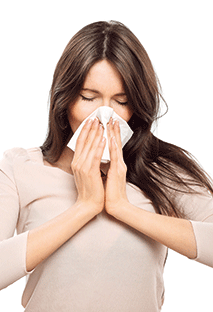
Elderberry helps manage coughs, colds and flu
In-vitro studies have shown evidence that elderberry – one of Europe`s oldest traditional remedies for treating coughs, colds and flu – could be effective in managing those regular sniffles, and now a human study is underway.
Iprona AG, an Italian specialist in red fruit extraction and Europe's largest processor of elderberry, funded an in-vitro clinical trial to examine the effect of elderberry on both flu viruses and bacteria. The study was conducted and published by Dr Christian Kravitz at the University of Giessen in Germany. Tests were conducted on the two major flu viruses, Influenza A and B, as well as on four bacteria known to cause upper respiratory infections. The authors concluded that: “Elderberry liquid extract is active against human pathogenic bacteria as well as influenza viruses.”
Iprona technical director, Anthony Jacobs, said the results were sufficiently encouraging for the company to fund the largest ever human study on the effectiveness of elderberry to reduce upper respiratory infections during and after long-haul flights. “If it works on a plane, it works in schools, offices, metros and every other place, where people come together and ‘share’ their bugs,” he said. The results of this new long-haul flight study are planned to be completed and made public next month at a medical conference in Melbourne.

Bin the booze in September and help beat cancer
Cancer Research UK is offering a new twist to its hugely successful Dryathlon® fundraising challenge, offering people the chance to go "dry" to help beat cancer the challenge in September as well as January.
Since 2013, 140,000 Dryathletes™ have raised £15 million for Cancer Research UK; now men and women who think they've got the willpower to go dry for September can sign up to become a Dryathlete™ at dryathlon.org. Dryathletes™ will be encouraged to persuade friends, family and work colleagues to sponsor them to stay dry for a whole month, or alternatively pledge the pounds they've saved from not picking up that pint.
Anthony Newman, brand, marketing and communications director, and chief Dryathlete™-in-training at Cancer Research UK said: "Dryathlon is back! We are so excited to be bringing our Dryathlon® campaign to the nation this September. A summer of holidays, festivals and weddings can mean that we all feel we have overindulged a little with the drinking, so September is the perfect time to bin the booze. We know it's a tough challenge to commit to a month on the wagon but we have faith in the willpower of the British public. We are asking all those who think they have got what it takes to put down their pint or prosecco and join our team. Every pound raised by Dryathletes™ will help fund life-saving research into beating cancer. So sign up today!"
Sarah Williams, health information manager at Cancer Research UK, said: "Alcohol is linked to seven different types of cancer, including breast and mouth cancers - the less alcohol you drink the lower the risk.
"To make a difference to your risk of cancer and other diseases, it's your long term behaviour that really counts. But challenges like Dryathlon might help give you a kick start - half of our 2014 Dryathletes said they were drinking less after taking part in Dryathlon."
Knowledge of safe herbal remedies dangerously sparse
We might be a nation of green-fingered gardeners, but we are surprisingly green when it comes to recognising popular health-enhancing herbs and plants, a new survey has revealed.
According to Potter’s Herbals, nine out of 10 people (87 per cent) believe we are a nation of gardeners, yet only one in six (17 per cent) Brits could recognise echinacea – also known as coneflower – the plant which has been scientifically proven to help combat coughs and colds. We believe in the healing power of plants – we spend £485 million a year on herbal remedies – yet only 13 per cent of consumers can recognise the Traditional Herbal Registration (THR) logo, which guarantees the purity and safety of herbal medicines.
Medical herbalist Dr Chris Etheridge, from the Henry Potter Advisory Committee (HPAC), notes: “We have used medicinal herbs for centuries and many modern-day medicines, including aspirin and digitalis, are derived from plants. Many plants contain phytochemicals with proven and often potent medical activity.”
The Organic Trade Board launches #ThriftyOrganic Challenge
The Organic Trade Board (OTB) has launched their #ThriftyOrganic Challenge this summer. The challenge aims to highlight to consumers how simple it can be to eat organic and be thrifty too.
It will be led by food blogger Deliciously Ella, alongside top parenting blogger English Mum, and will encourage consumers to make the transition to eating organic food for one week on a normal couple or family’s food budget. To inspire consumers to get involved in the challenge, the OTB has created a selection of money-saving tips to help make the transition to thrifty organic eating, alongside some delicious, budget-friendly meal suggestions.
Consumer research commissioned by the OTB in March highlighted price as one of the barriers to shopping organically, with over 40 per cent of those surveyed limiting the amount of organic food they bought due to the increased cost. Catherine Fookes, Campaign Manager at the Organic Trade Board said: “The #ThriftyOrganic Challenge aims to convey the value of organic products to shoppers and break down the misconception that organic food is out of reach for most people.”
The #ThriftyOrganic Challenge will run from June until March 2016 and will feature recipe inspiration, thrifty tips, blog posts and social media content.

Organic milk not a health risk to pregnant women
There have been various stories in the media in recent weeks suggesting that pregnant women should avoid drinking organic milk. In response, the Soil Association has released a statement saying that such reports are inaccurate and scaremongering.
Helen Browning, chief executive at the Soil Association commented: “Pregnant women should not stop drinking organic milk in response to this research, which repeats findings from a study published in 2013. This research is incomplete and to draw these conclusions is incredibly irresponsible. There are scientifically proven health and environmental benefits of organic milk which are valuable as part of a balanced and healthy diet. Studies show that organic whole and semi-skimmed milk has more beneficial omega-3 fatty acid, vitamin E and beta-carotene than non-organic milk, and studies by Glasgow and Liverpool Universities found that UK organic milk has 68 per cent higher levels of the essential fatty acid than non-organic milk.
“Research in the Netherlands found that infants fed on organic dairy products and whose mothers also consumed organic dairy products have a 36 per cent lower incidence of eczema than children who consume conventional dairy products, and that higher levels of beneficial conjugated linoleic acids are found in the breast milk of women consuming organic milk. Any switch from organic milk risks losing all these substantial health benefits.”
Britons missing out on essential nutrients
Many of us are missing out on essential nutrients at key milestones in our lives, according to a survey conducted by the Health Supplements Information Service. The National Diet and Nutrition Survey found that only one in six adults takes a regular top-up of vitamin D, but the data suggests that one in five adults aged 19 to 64 are so deficient in vitamin D that they are at increased risk of weakened bones. Shockingly, more than half (57 per cent) thought children should not take supplements, contrary to emphatic guidance from the Chief Medical Officers of England, Wales, Scotland and Northern Ireland.
Independent dietitian and advisor to the Health Supplements Information Service (HSIS) Dr Carrie Ruxton says: “It is really important to drive home the message that nutritional deficiencies can lead to serious health problems. Taking a multivitamin, or topping up on specific nutrients for a milestone moment such as pregnancy, or to address a particular health issue or concern, is simply common sense.”

Did you know?
Fatigue, muscle weakness, joint and muscle aches, bleeding gums and leg rashes can all be symptoms of a vitamin C deficiency.
This vital vitamin, which is also known as ascorbic acid, is a water-soluble vitamin and a powerful antioxidant. It serves many important functions in the body including helping to repair and regenerate tissues, protecting against heart disease, supporting the immune system, aiding with the absorption of iron and reducing total and LDL (‘bad’) cholesterol and triglycerides.
Its antioxidant capacity means that it may help to guard against various cancers by combating damaging free radicals.
According to the National Institutes of Health (NIH), the recommended daily intake for adults is 90 mg per day for men and 75 mg per day for women.
Chief medical officer raises rickets concerns
Britain’s chief medical officer, Dame Sally Davies, has expressed concerns again at the alarming rise of rickets among the UK’s children. Rickets occurs due to a lack of vitamin D which reduces the body’s ability to absorb calcium into the bone, causing brittle or weak bones and leading to deformity if untreated.
It was prevalent in the 19th century as families left the country to take advantage of the growth of factory employment, but improvements in nutrition and our understanding of vitamin D dramatically reduced the number of cases until it was virtually eradicated after World War Two. However, according to a survey commissioned by public health campaigners Vitamin D Mission in October 2014, there were 4,635 children admitted to hospital with the condition in 2013/14, a fourfold increase in four years.
Andrew Thomas, founder and managing director at BetterYou, said: “We have been aware for a long time that cases of rickets and other bone diseases are on the rise, particularly in the under-five-year-olds and primarily those with darker skin pigmentation. Vitamin D deficiency is so easily corrected by supplementation and simple lifestyle changes. By taking a daily dose and spending more time outdoors, many health conditions and diseases could be avoided.”

Meal skipping becoming more common
A new survey has revealed that the average Briton skips five meals a week. Breakfast was the most likely meal to be skipped, in spite of it being arguably the most important meal of the day.
Two thirds of those who skip meals did so because they ‘don’t have time to eat’.
The survey was conducted by Huel (www.huel.me) a nutritionally-complete powdered food product, as part of their research into consumer habits and attitudes towards nutrition in the UK. 2,829 British adults took part in the survey, all of whom were aged 18 years old or older. All participants were in full-time employment at the time of the survey.
All relevant respondents who stated they’d missed at least one meal per week were then asked to reveal all the reasons why. The most common answers were given as follows:
1. I don’t have time to eat – 82 per cent
2. I forget to eat meals – 73 per cent
3. I can’t be bothered to cook/prepare food – 68 per cent
4. I am not very good at cooking/preparing food – 56 per cent
5. I prefer to snack rather than eat meals – 41 per cent
Julian Hearn, founder of Huel, commented: “Food is a great thing which many of us enjoy – but in our everyday routines, we can’t always set aside time, attention and energy to dedicate to our mealtimes. On a typical weekday, it’s not unusual to just grab a coffee while dashing out the door or work through lunch without even realising. Our busy lifestyles, however, are not good for us. If we skip meals we often end up over-compensating later with sugary foods as our energy levels sag.”

Learn about seaweed
It’s becoming more and more well known that seaweed is great for our health in many different ways. If you’d like to find out more, why not visit the annual Seaweed for Health event this September, in the Royal Botanic Garden, Edinburgh? The event takes place on 5 and 6 September between midday and 4pm, and features talks, exhibits, demonstrations and lots more.
This is the third year of this event and attendance has grown every year. Last year there were almost 1,000 visitors to the exhibition and talks and, believe it or not, this is now by far the leading national public Seaweed Event in the British Isles!
• For more information, visit www.rbge.org.uk/whats-on

Five reasons why probiotics could help you have a healthier holiday
As much as we love our holidays, they’re not always entirely beneficial for our health. Sun damage, a few too many drinks and foreign bugs can all negatively impact our wellbeing, but here’s the good news: taking a probiotic can help protect you. Probiotics are the ‘friendly’ bacteria that balance out the bad bugs in your gut. Digestive healthcare experts, Renew Life (www.renewlife.co.uk) have teamed up with nutritionist Kim Pearson, to offer five reasons why probiotics could make you feel good this summer and keep your holiday healthy.
1. Prevent holiday illness
Stay healthy on holiday by boosting your beneficial bacteria. The immune system within out gut accounts for 70-80% of the body's immune cells and so optimising our gut health is essential in maintaining a healthy immunity to infection. Probiotics help protect against infections, resulting in fewer health problems.
2. Protect from sun damage
We all know that we should wear and regularly re-apply a high factor SPF to protect from sun damage, but did you know that probiotics could help protect your skin from sun damage from within? Studies have demonstrated that certain probiotics can help modulate the skin’s immune system and may be useful for helping to prevent UV-induced damage. However – you should still always wear your sunscreen!
3. Moderate the effects of alcohol consumption
Many of us indulge in a little more alcohol than usual whilst on holiday. We know that too much booze isn’t good for our liver but did you know that it can also affect your gut? Alcohol can promote increased permeability of the gut lining and changes to the microflora present in the gut. Probiotics can help protect from the negative effects of alcohol by replenishing beneficial bacteria and promoting a healthy gut lining.
4. Help beat the post-holiday blues
We are all familiar with the post-holiday blues, but optimising your gut bacteria may help to boost your mood. We are learning more and more about the link between the gut and the brain, known as the ‘gut-brain axis’. We now know that bacteria in the gut are capable of producing and delivering substances such as our ‘happy hormone’ serotonin – in fact, the gut contains approximately 90% of the entire body’s serotonin. Taking a probiotic regularly helps to maintain a healthy balance of beneficial bacteria within the gut.
5. Keep and maintain a healthy weight
We all know that holiday is a time where you sit back and relax and let yourself indulge in all the ‘naughty’ foods, yet according to a study published in the British Journal of Nutrition, taking certain probiotics may actually help you lose weight (and keep it off too!) Additional research suggests that the gut flora in those that are overweight, in comparison to those that are of a healthy weight, is different, which explains why this might be the case.
To re-establish good bacteria and help achieve that healthy holiday feeling, try Renew Life's Ultimate Flora Critical Care (RRP £36.99 – Vegetarian Society Approved) a unique one-a-day probiotic containing 50 billion live cultures and 10 beneficial strains of probiotic. Each capsule has an enteric water-based coating to ensure the live bacteria survive the harsh, acidic environment of the stomach and is delivered to the intestines. Ultimate Flora Critical Care is available at various health food stores across the UK.

Shop local with handy app
Local food and drink website BigBarn has just unveiled a brand new, free app designed to help people avoid the supermarket and shop locally and seasonally, all at the touch of their smartphone.
The aim of the new BigBarn App, which is now available free through the app store, is to allow people to connect with local producers and shops in their area and build a stronger local industry. The app includes information on local food producers, retailers and suppliers online.
It also provides information about what's in season, recipe ideas and special offers and allows consumers to gain a better understanding of food and seasonality.
To find out more, visit www.bigbarn.co.uk, or download the app from the app store.

Put ethics on the menu!
A survey by Ethical Consumer has revealed that the UK’s fast food and restaurant chains are not offering customers an ethically responsible menu. The organisation surveyed 22 of the UK’s leading restaurant chains for their provision of ethically-sourced food including Fairtrade, free-range, organic and sustainable fish.
The survey found that 64 per cent of restaurant chains don’t offer any organic options, 77 per cent don’t offer any Fairtrade options, 41 per cent don’t offer any free-range options and 85 per cent don’t offer any sustainably-sourced fish.
Tim Hunt, editor of Ethical Consumer's product guide to fast food and restaurant chains said: “Our survey shows that high street fast food and restaurant chains are largely ethical-free zones. This is extremely disappointing given that both Fairtrade and organic food and drink are now mainstream items and are regularly bought by large numbers of people. The country’s fast food and restaurant chains need to wake up and provide their customers with what they want.”

The 'myth' of obesity and physical activity
Exercise has a role to play in weight loss, but has to be accompanied by changes in diet. That's the verdict in a recent editorial in the British Journal of Sports Medicine, which says that public health messages aimed at tackling obesity need to focus on unhealthy eating, rather than just physical activity.
The article commented that members of the public were "drowned by an unhelpful message about maintaining a 'healthy weight' through calorie counting" and that many people wrongly believe that obesity is entirely due to lack of exercise.
"What exercise (increased activity) does," the article continued "in association with appropriate dietary intervention, is to promote weight loss maintenance once weight has been lost, but it is a poor contributory factor to promoting weight loss."

Mediterranean diet shown – again! – to be most beneficial to health
A study by scientists at Harokopio University in Athens has found that adopting a Mediterranean diet is good for your health. Filling up on oily fish, nuts, whole grains and fruit and vegetables – and even the odd glass of red wine – could cut your risk of developing heart disease by almost half over a 10-year period. More than 2,500 Greek adults, aged 18 to 89, provided researchers with details about their health each year from 2001 to 2012. The participants also completed comprehensive surveys about their medical records, lifestyle and dietary habits three times throughout the study: at the start, after five years and after 10 years.
Overall, those who stuck most closely to a Mediterranean-style diet (participants who scored in the top third on the scale) were found to be 47 per cent less likely to develop heart disease than those who did not (participants who scored in the bottom third on the scale). This figure was the same regardless of other risk factors such as age, gender, family history and smoking habits, all of which the researchers accounted for. Ekavi Georgousopoulou, who conducted the study along with Professor Demosthenes B Panagiotakos, said: “Our study shows that the Mediterranean diet is a beneficial intervention for all types of people – in both genders, in all age groups, and in both healthy people and those with health conditions.”
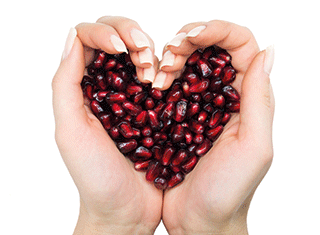
Pomegranates and dates can protect against heart disease
A study by researchers at the Technion-Israel Institute of Technology has found that daily consumption of pomegranate juice and dates drastically slows down the build-up of fatty substances in the arteries – atherosclerosis – which can cause a stroke or heart attack.
It is thought that this is the result of the high levels of antioxidants in the two fruits which, when combined, provide the perfect mix to help fight heart disease. The team recommend that people consume half a glass of pomegranate juice and three dates a day to get the benefits.
However, some of the most powerful antioxidants are found in the stone of the dates, so it’s recommended that you grind up the stones and eat those too!

Frequent sauna use protects men against cardiac death
Frequent – even daily – saunas can reduce the risk of cardiac death, according to a recent study carried out at the University of Eastern Finland, published in JAMA Internal Medicine. The 20-year follow-up study discovered that men taking a sauna four to seven times a week were 63 per cent less likely to experience a sudden cardiac death than those taking a sauna once a week.
Furthermore, the occurrence of death due to coronary artery disease and other cardiac events, as well as overall mortality, was less frequent in the group taking saunas several times a week.
According to Jari A. Laukkanen, the study leader, the mechanisms of why taking a sauna protects the heart are not yet fully understood, and further research is still required. However, taking a sauna may reduce blood pressure and maintain blood vessel elasticity.

Combating menopausal body odour
Personal care, particularly in relation to intimate body odour, is especially pertinent during the menopause, during which time falling oestrogen levels can affect the production of mucus in the vagina, causing dryness, irritation and sometimes infection. The lack of mucus, which is slightly acidic to deter infection, can also affect the balance of friendly bacteria in the vagina, leading to odour.
There are a number of steps you can take to minimise this unpleasant symptom. If you are not on any hormonal contraception or HRT you could try a fermented soya supplement to gently raise and balance oestrogen levels, thereby increasing vaginal mucus. You could also take a daily sea buckthorn oil supplement to counter dryness. A probiotic can be helpful, especially in the weeks following antibiotic use, which often affects the vaginal balance of friendly bacteria. Shower gels and soaps can contain chemicals which irritate your sensitive, intimate areas – so swap to organic and natural alternatives. To avoid possible fungal infections and chafing in the groin area, make sure you wear cotton underwear which will allow your skin to breathe and reduce sweating. Finally, to inhibit odour, consider using a natural deodorant, like the Salt of the Earth Deodorant Spray. Gentle enough to use on sensitive areas, potassium alum-based deodorants work by leaving a thin layer of odour-inhibiting mineral salts on the skin which provide long-lasting protection but importantly do not stop the skin from breathing.

The ice bucket challenge lives on!
We all remember the Ice Bucket Challenge, the charity social media fad that took the world by storm last summer.
Now a range of xylitol chips has been launched that aims to continue the charitable work achieved by the challenge. Ice Bucket® 100% Xylitol Chips are healthy and completely sugar free, but the best part is that half of the profits from every Ice Bucket® will be donated to charities, and not just the original ALS charity that benefited from the challenge.
The brand will be looking for suggestions from their customers for the best charities to benefit from the funds. To find out more, or suggest a charity, contact andy@v-tality.be

App could predict your risk of heart attack
The NHS has launched a new online app that predicts your chances of a heart attack. The online tool guides individuals through a range of lifestyle questions, such as age, height, weight, smoking history and family and personal medical history, in order to determine their chances of a heart attack.
Medical professionals hope the calculator, developed with NHS Choices, Public Heath England and the British Heart Foundation, will become a useful method to prompt individuals into changing unhealthy lifestyles by highlighting how many years they have before a heart attack. Professor John Deanfield, an NHS cardiologist who helped develop the app, said it could be a ‘real wake-up call’ for people to change their lifestyles. “It can be that all-important nudge to take action and make lifestyle changes to improve your heart health,” he added.
The app, which can only be completed by those born before 1985, asks individuals whether they know their cholesterol and blood pressure levels, as well as listing if they have diabetes, rheumatoid arthritis, chronic kidney disease or atrial fibrillation. But some researchers have cautioned that the blunt tool generalises and will distress many with dire predictions on results (such as family history) outside their control. They also caution the app may push thousands into taking medication out of fear.

Changes in diet are saving lives
A study at the University of Liverpool has suggested that healthy eating offers more protection against heart disease than drugs. The research showed that more than 20,000 lives were saved in seven years by big falls in the nation's blood pressure and cholesterol, with about half this fall the result of eating less salt. Heart deaths have fallen by more than half, with two thirds of this attributable to changes in the way we live, and the other third to improvement in treatments.
Martin O'Flaherty, a senior lecturer in public health at the University of Liverpool and the lead author of the study, said: "It's mainly diet. It's salt for blood pressure and particularly saturated fat and sugar for cholesterol. Obesity also has a role. For blood pressure it's the other things, not pills, which are driving massive reductions in mortality."
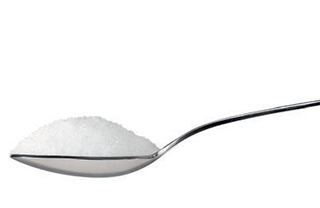
The war on sugar is not yet won
The public health campaign group Action on Sugar have criticised the government for failing to take action on food manufacturers who are failing to reduce sugar in their products. They tested 50 of the nation's favourite breakfast cereals, and found that some of the most popular contained more sugar than they did in 2012. 14 out of 40 contained more than 33.3g, or eight teaspoons, per 100g of cereal.
Kawther Asham from Action on Sugar said: "You wouldn't give your child chocolate biscuits for breakfast, but certain manufacturers are effectively doing that for us."

Fizzy drinks can cause early puberty
A Harvard Medical School study, published in the journal Human Reproduction of 5,583 girls between nine and 14 has found that those who drank more than 1.5 servings of sugary drinks a day had their first period 2.7 months earlier than those who drank two or fewer drinks a week.
Drinks with added sugar are said to increase the concentration of insulin in the body, which in turn results in higher concentrations of sex hormones, normally associated with periods starting earlier.
Associate Professor Karin Michels said: "Our study adds to increasing concern about the widespread consumption of sugar-sweetened drinks among children and adolescents. The main concern is about childhood obesity, but our study suggests that age of first menstruation (menarche) occurred earlier, independently of body mass index, among girls with the highest consumption."
One reason that this is worrying is that a one-year decrease in age at menarche is estimated to increase the risk of breast cancer by five per cent, so, a 2.7 month-decrease in age at menarche is likely to have a modest impact on breast cancer risk.
Black tea could cut diabetes risk
A recent review of studies has found that consumption of black tea is associated with a reduced risk of diabetes. Dr Catherine Hood from the Tea Advisory Panel (TAP) authored the review, and looked at 12 different studies from around the world. 11 of these showed a positive effect of tea consumption on reducing the risk of diabetes.
"Overall these studies indicate a very promising association between tea consumption and diabetes which, if confirmed in further studies, indicates health benefits for tea beyond the well-established cardiovascular benefit," said Dr Tim Bond from TAP.

Are you a conscientious carnivore?
Consumption of meat and livestock production make a huge contribution to climate change and health concerns, and there's a growing movement in countries that consume a lot of meat - including the UK - to encourage 'less and better' meat consumption. A 2014 YouGov survey found that in the past year a quarter of the British public have cut back on the amount of meat they eat.
Even more, one in three of us said we would consider eating less meat, with the need to save money among the key reasons given. But despite our squeezed budgets, around half of us reported that we would be willing to pay more for 'better' meat - meat that tastes better, is healthier, and is produced to higher animal welfare and environmental standards.
But Rob Percival from The Soil Association believes we need 'more than just a shift in attitude.' Belief needs to translate into action - so, if you haven't already, why not take up Meat Free Monday? Cutting out meat one day a week is not only good for the planet, but it means that you will be able to afford 'better' meat on the days you do eat it. It's a win-win situation!

Life satisfaction has beneficial effects on bone health
Women aged 60 to 70 who are satisfied with their lives have a higher bone density and they suffer from osteoporosis less frequently than their unsatisfied peers, according to a recent study completed at the University of Eastern Finland and published in Psychosomatic Medicine.
The study participants responded to mail surveys and took part in bone density measurements. 2,167 women underwent bone density measurements in 1999, and out of these women, 1,147 took part in follow-up measurements 10 years later, in 2009. Life satisfaction was assessed by four questions relating to the study participants' interest in and easiness of life, happiness and loneliness.
Based on the answers, the study participants were divided into three groups: the satisfied, the middle group and the unsatisfied. During the 10-year follow-up, the difference between the satisfied and the unsatisfied was as much as 52 per cent. In persons whose life satisfaction deteriorated, the bone density weakened by 85 per cent in comparison to persons whose life satisfaction improved.

Polka Dot-ty Days in June
A campaign to raise awareness of Dementia with Lewy bodies (DLB) is being run throughout the month with the theme Polka Dot-ty Days in June.
The campaign is a tribute to the Lewy Body Society's Patron, Miss June Brown MBE, known to television viewers as Eastenders' Dot Branning. Miss Brown's late husband, Robert Arnold had dementia with Lewy bodies when he died in 2003.
The Polka Dot-ty challenge is for people to wear the charity's distinctive branding of white spots on dark blue and then post pictures of themselves and/or friends wearing the polka dots on social media -their own as well as the Lewy Body Society's Twitter feed, Facebook page and website. Postings to YouTube and Instagram are also encouraged.
Lewy body dementia is the second most common form of age-related dementia, accounting for approximately 15% of all cases of dementia. Having motor and cognitive symptoms similar to Parkinson's and Alzheimer's diseases it is often misdiagnosed, but unlike people with Parkinson's and Alzheimer's, people with DLB experience hallucinations and dramatic swings in state of consciousness.
Robin Williams' tragic death in 2014 brought the condition to the attention of many people for the first time but many people still think that all dementia is Alzheimer's.
"Just as every vacuum cleaner is not a Hoover or every tissue a Kleenex, not all dementias are Alzheimer's" said the Lewy Body Society's founder and Chair, Ashley Bayston.
Founded in 2006 and run entirely by volunteers, the Lewy Body Society (charity number 1114579) is the only organisation in Europe dedicated exclusively to Lewy body dementia. The Society's mission is to raise awareness of and support research in Lewy body dementia.
www.lewybody.org
Men’s Health Week
Men’s Health Week 2015 is from the 15th to 21st June and will focus on healthy living for men.
Read our Men's Health feature here...

Get on your bike!
Bike Week 2015 takes place between 13 and 21 June. The organisers aim to promote cycling and how it can easily be a part of everyday life. This year one of the big focuses of the event is cycling to work.
The YHL team are lucky enough to work in a beautiful Cambridgeshire village, and several members of our team cycle to work every day; Marketing Manager Natalie Morris says: “One good way to get people into cycling in your workplace is to sign up to the National Cycle challenge. Businesses, organisations and even whole cities can sign up, and will win points for each minute that any member of the team spends on a bike. It’s not about how many miles you clock up, but about how many people you encourage to get on a bike!”
To sign up for the National Cycle Challenge, visit www.lovetoride.net.
And to find out more about Bike Week and find events near you, go to www.bikeweek.org.uk.
Read our feature “On your bike” here...
Caroline Quentin announced as patron of Coeliac UK
Actress and TV personality, Caroline Quentin, has been announced as the new patron of Coeliac UK, the national charity for people with coeliac disease. She will support their campaign to improve diagnosis rates which is launched at the start of Coeliac Awareness Week on 11 May 2015.
Caroline’s involvement comes at a time when she is close to completing her own diagnosis journey, after an initial positive blood test two years ago and, more recently, a genetic test. One in 100 people in the UK has coeliac disease. However, current statistics show that only 24 per cent of those with the condition are diagnosed. “Coeliac UK’s campaign resonates with me because I struggled for years with constant stomach pains, vomiting and total exhaustion. I’m delighted to become the charity’s patron and to help those, like myself, who have been in the dark too long about the cause of their pain and discomfort,” Caroline said.
A new website, www.isitcoeliacdisease.org.uk, will provide information and advice for the general public and healthcare professionals on the symptoms and risk factors associated with undiagnosed coeliac disease.

Give chocolate the finger with DECHOX™
This March, the British Heart Foundation (BHF) launches the UK's first ever DECHOX™, a nationwide sponsored challenge calling on all chocolate lovers to give up their favourite sweet treat to help raise money for lifesaving heart research. For many of us, giving up chocolate for a whole month could feel as much of a challenge as running a marathon!
Dechoxers are encouraged to raise money throughout the month by asking friends, family and colleagues to sponsor them to take on the challenge. They can also donate the money they've saved from ditching that cheeky chocolate bar at work or a naughty dessert after a meal out. Anyone can take part by signing up for free at bhf.org.uk/dechox. The DECHOX™ microsite will also be full of tools and ideas, from freebie downloads, a Survival Kit with food swaps and videos, to the chocolate cheat fine, social newsfeeds and more.
One in four of the UK population is lost to heart and circulatory disease each year and there are currently seven million people in the UK living with heart and circulatory disease. By taking part in DECHOX™ and raising funds for the BHF, Dechoxers will be joining the fight for every heartbeat, helping the BHF continue its life-saving work.